



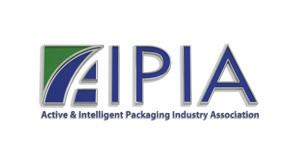



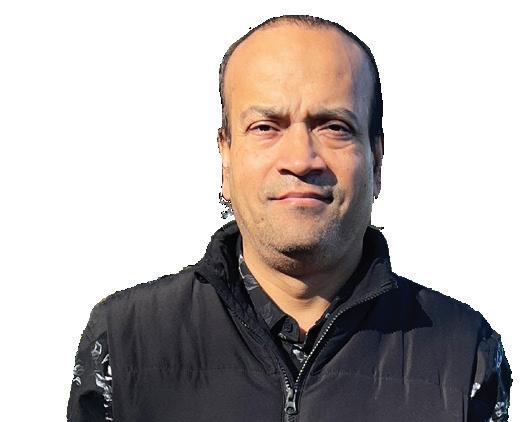























Location: Australia (flexible, with travel to customer sites) Employment Type: Full-time
About Us
A full-time role for a Technical Sales Specialist located IPE Pack and Technology is a fast-growing supplier of barrier shrink packaging solutions for the meat and food processing industry As the Australian subsidiary of one of the world’s largest producers, they specialise in shrink bags, films, and casings that extend shelf life, improve presentation, and reduce waste With two state-of-the-art production sites, global reach, and a strong local presence, they are committed to delivering innovative, sustainable, and cost-effective packaging solutions�
The Role
IPE Pack and Technology are seeking an experienced Business Development Manager to drive growth across the Australia � You will be responsible for identifying new business opportunities, building strong customer relationships, and developing tailored solutions that add value for meat processors, abattoirs, and food manufacturers
This is a customer-facing role that requires a mix of sales expertise, technical understanding and commercial insight
Key Responsibilities
• Develop and execute a sales strategy to grow market share across major meat processors and abattoirs in Australia and New Zealand
• Identify new opportunities and establish strong relationships with decision-makers at target accounts�
• Present IPE’s packaging solutions, highlighting their technical, financial, and sustainability benefits
• Manage the full sales cycle, from lead generation to closing deals and ensuring long-term customer satisfaction�
• Collaborate with technical and operations teams to ensure smooth onboarding and delivery of solutions
• Monitor market trends, competitor activity, and government/industry programs (e�g� APCO guidelines, eco-modulation) to stay ahead of customer needs
• Provide accurate forecasting, pipeline management, and reporting to senior management
About You
IPE Pack and Technology are looking for someone who thrives in a fast-moving, customer-focused environment and can combine commercial drive with technical credibility�
Essential skills and experience
• Proven track record in business development, account management, or technical sales (packaging, food processing, or related industry experience highly desirable)�
• Strong ability to build and maintain relationships with senior decision-makers�
• Commercial acumen with experience in negotiation and closing deals
• Excellent communication and presentation skills
• Ability to work independently and manage a broad territory
• Willingness to travel across Australia as required�
Desirable
• Knowledge of shrink packaging, food processing equipment, or related industries�
• Familiarity with sustainability frameworks (APCO, PREP tool, recyclability)
What We Offer
• Competitive salary package + performance-based incentives�
• Opportunity to work with a global leader in barrier shrink packaging solutions�
• Career growth and professional development opportunities�
• A supportive team culture with a focus on innovation and sustainability PLEASE APPLY TODAY
Advertise Job Vacancies through the AIP
• Dedicated Job Board on the AIP website.
• Full Page ad in AIP Newsletter.
• Job Advertisements on AIP LinkedIn.
• Broad audience across Australasia.
• Access to technical packaging professionals.




























Syntech NZ Limited – your flexible packaging experts.

Specialising in highly technical expert advice and support to provide tailored solutions in flexible packaging for large and small clients from within the pet food, food, industrial and pharmaceutical industries, with Suppliers from around the Globe
Role Description
A full-time role for a Technical Sales Specialist located in West Auckland with nationwide travel The role will be responsible for driving revenue growth and expanding Syntech's existing customer base As their team is known for incredible customer service, ensuring customer relationships thrive is imperative� The role is initially approximately a 40/60 split between new business development and account management The willingness to cold call (phone and in person) is essential
Key Responsibilities
• Actively identify and develop new sales opportunities to broaden Syntech's customer base and grow profitability
• Build and maintain strong relationships with existing and potential clients, understanding their needs and providing tailored solutions�
• Provide exceptional customer service and ensure client satisfaction�
• Collaborate internally to develop tailored technical packaging solutions for clients
• Prepare and present sales proposals and quotes
• Reporting when necessary
What is on offer
• Competitive salary base depending on experience plus incentives
• Car, phone, fuel card and laptop to support your work on the go
• Opportunities for career advancement and professional development�
• A supportive and collaborative team environment�
• The chance to be part of a growing company with a strong reputation in the industry
About you
• Proven track record in technical sales of flexible packaging (minimum 5+ years)
• Strong business acumen and ability to identify and capitalise on new opportunities�
• Excellent communication and negotiation skills�
• Must be great on the end of the phone – telephone cold calling is a non-negotiable
• Ability to build and maintain long-term client relationships�
• Self-motivated, goal-oriented, and able to work independently
• Initiative with the ability to manage your own call cycle
• Willingness to travel nationwide
• Full, clean, current NZ drivers’ licence�
• Ability to work in NZ immediately�
Syntech's aim is to continue to provide the best service, technical experience, advice and product They help businesses – big or small — boost productivity and grow sales with smart, flexible packaging solutions backed by expert advice and support
If you are a proactive sales professional from within the flexible packaging industry with a passion for delivering exceptional results, they invite you to apply for this exciting opportunity�

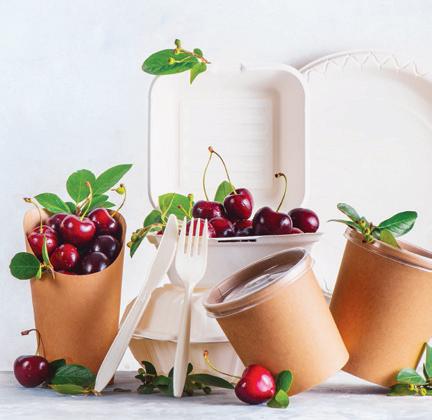
The AIP would like to take this opportunity to welcome Uthaman Kalidas MAIP, Senior Solutions Architect – Print MIS, Five Star Management LLC to the Institute and share a little bit about who he is and what he does in the industry. Please join with us in welcoming him to the AIP.
1. Why did you join the AIP? What benefits do you believe the AIP offers all their members?
Uthaman: I joined the AIP to connect with likeminded professionals and contribute to the advancement of packaging innovation and education Having worked in the industry for almost two decades, I strongly believe that knowledge sharing and collaboration are key to solving the challenges we face today, particularly around efficiency, sustainability, and digital transformation The AIP provides a platform to stay updated on best practices, industry research, and global trends, while also offering opportunities to exchange expertise through networking, events, and publications For me, being part of the AIP means having a stronger voice in the industry, enhancing my own professional growth, and contributing back to the packaging community that has shaped my career�
2. How long have you been in the industry? What are your areas of expertise?
Uthaman: I have been working in the printing and packaging industry for over 19 years, spanning multiple sectors including flexible, label, and carton packaging � Over the years, I have specialised in Print MIS and ERP solutions, particularly with EFI/ePS Radius ERP, PrintFlow, and AutoCount 4D My expertise includes driving workflow automation, supply chain optimisation, and business intelligence integration to help organisations improve efficiency, reduce costs, and scale operations Beyond ERP, I also have in-depth technical knowledge in prepress, digital printing, and colour management�

Senior Solutions Architect – Print MIS
In addition to implementation, I actively contribute to industry research, publishing scholarly articles, and presenting at conferences on topics ranging from AI in ERP to print process optimisation This combination of technical knowledge, hands-on implementation, and research involvement defines my professional expertise and contribution to the industry
3. What is your current job role and what are your responsibilities?
Uthaman: I currently serve as Senior Solutions Architect – Print MIS at Five Star Management Company, where I lead large-scale ERP implementations and digital transformation initiatives for packaging enterprises My responsibilities include designing and deploying customised MIS and ERP solutions, automating business and production workflows, and integrating ERP systems with analytics platforms such as Power BI for real-time business intelligence I also collaborate closely with crossfunctional teams, ensuring that technology aligns with business goals while enhancing operational performance� Beyond solution design, I mentor and train professionals in ERP best practices, enabling knowledge transfer and long-term success for client organisations My role combines technical consulting, leadership, and innovation, ensuring packaging businesses can adapt to evolving customer demands and remain competitive in a fast-changing global market�
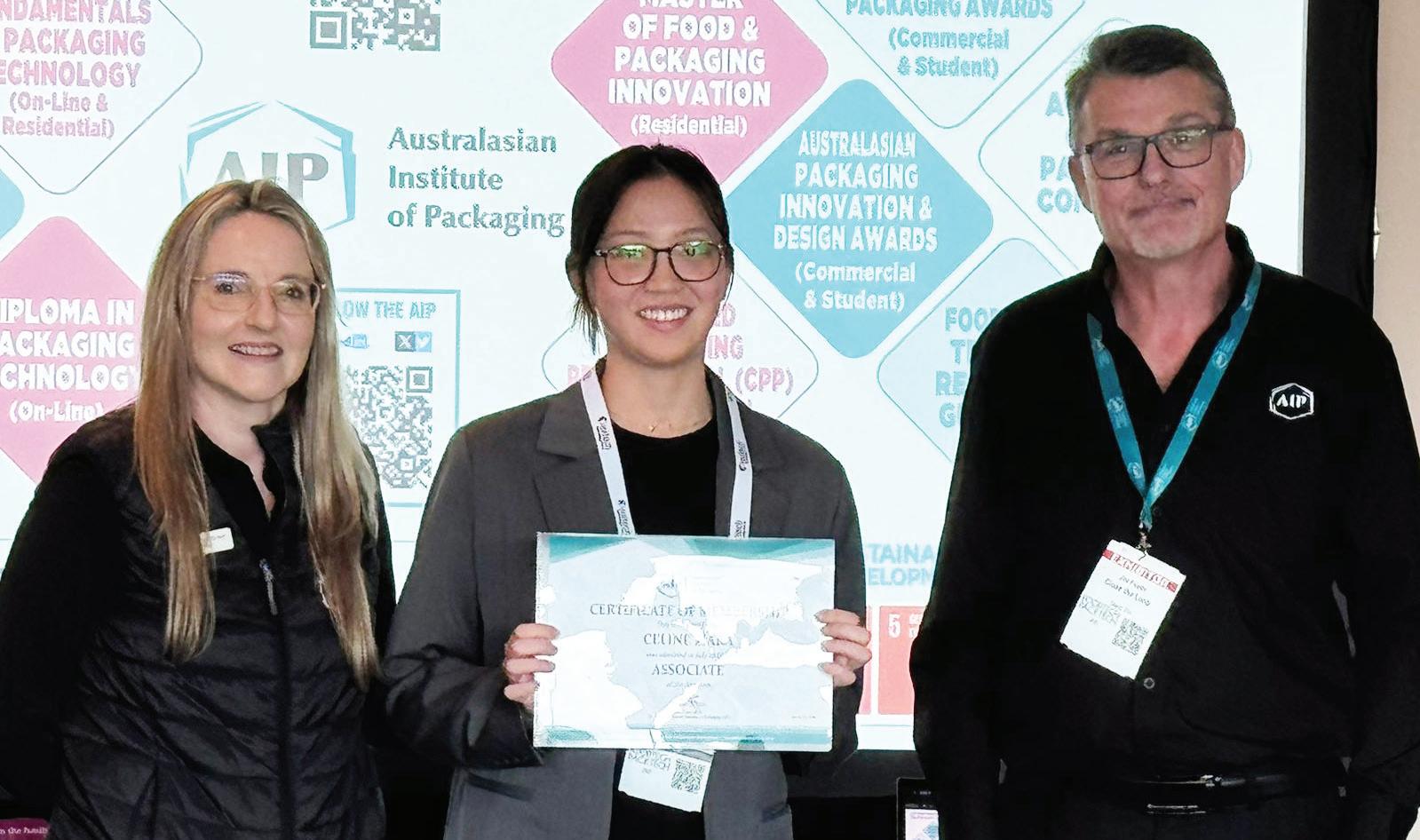
Nerida Kelton FAIP & Joe Foster FAIP from the AIP had the opportunity to personally welcome Celine Tiara, Packaging Technology Coordinator, Tegel Foods NZ to the AIP during Foodtech Packtech.
The AIP would like to welcome the following new Members...
NAME GRADE STATE/ COUNTRY
Brenda da Silva Rocha Member (MAIP) VIC Uthaman Kalidas Member (MAIP) USA
Jamaica Meralles Associate (AAIP) SA
Julie Morgan Member (MAIP) WA
Devaki Rajendran Member (MAIP) Malaysia
Salanieta Dederu Waqa Associate (AAIP) Fiji
Become a part of a large community of like-minded packaging professionals across Australasia

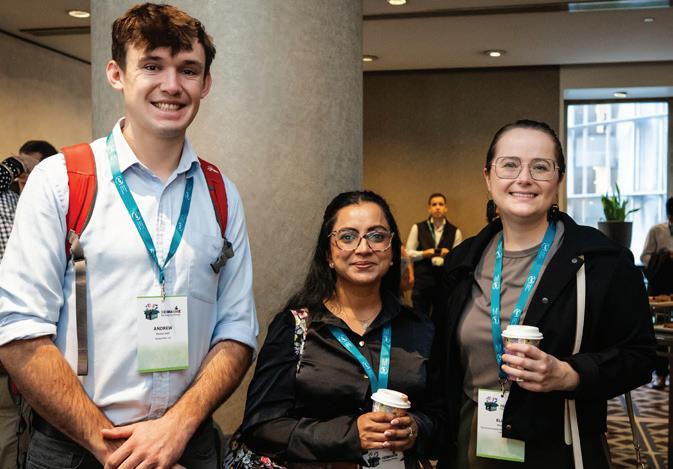

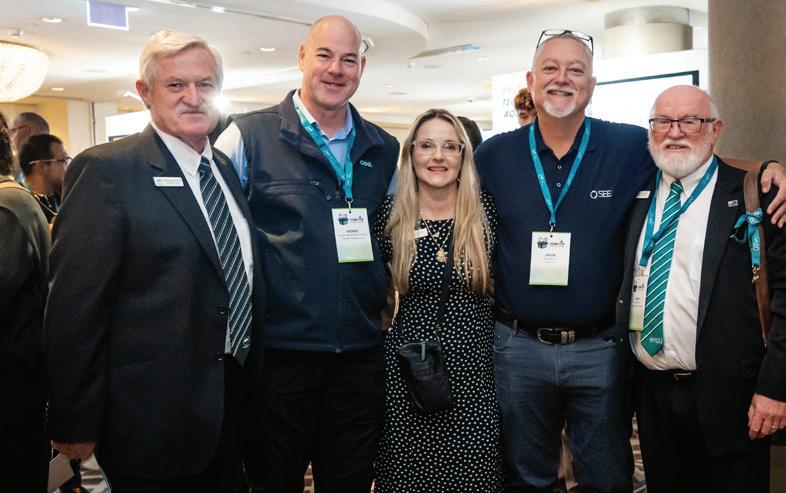
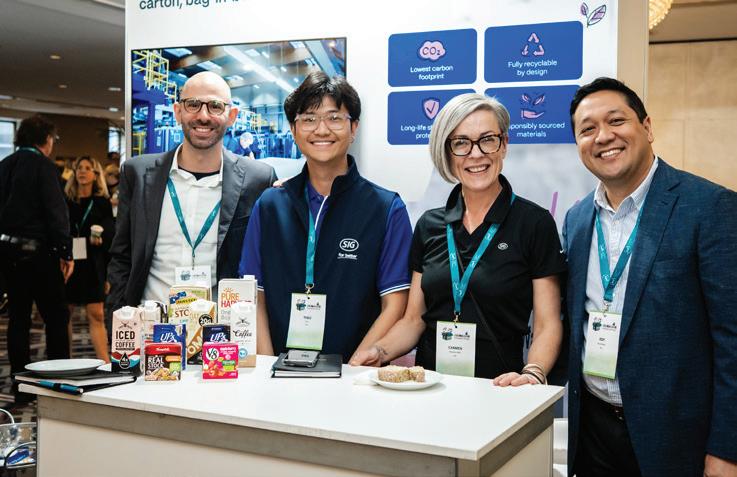


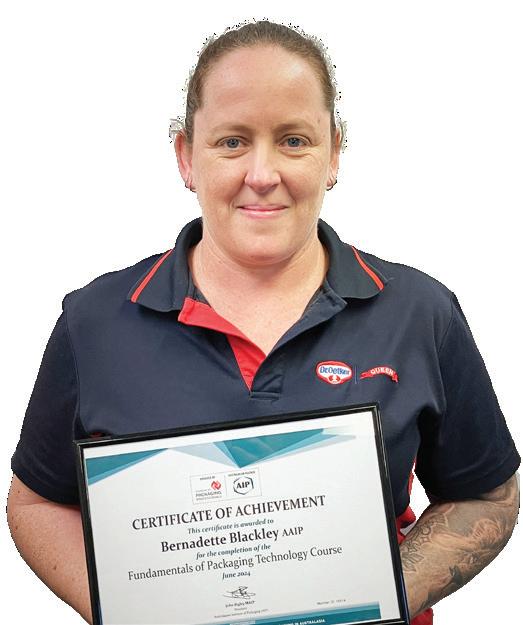

If you are starting in the industry and need foundational knowledge and a general understanding on all materials and substrates then the Fundamentals of Packaging Technology course is for you. You have the option of just taking bite-sized lesson bundles to fill your knowledge gaps, or the full course.
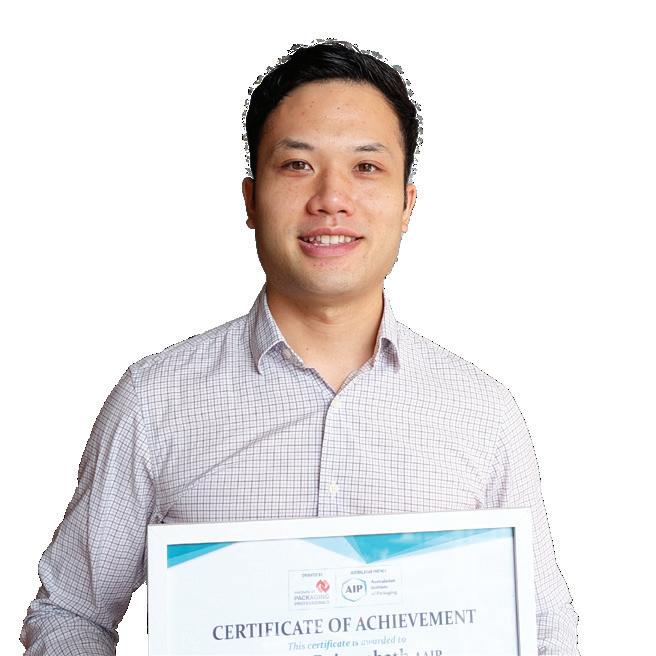
Ideally suited for anyone new to packaging. The first step to gain foundational packaging knowledge.
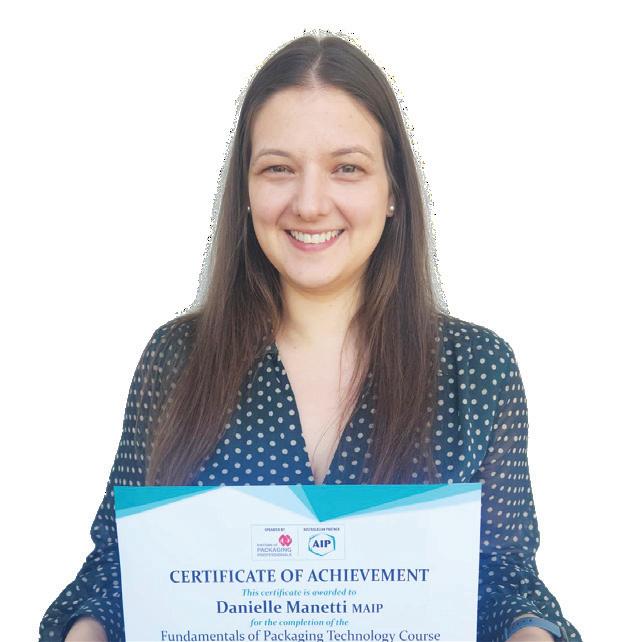

The AIP have introduced a Full Course + Tutor package that is designed to offer you 3 hours with a local packaging technical expert that can support you throughout the course.
The Tutor will also work with you to undertake your Certified Packaging Professional designation as soon as you graduate while the information is fresh. This means that you will have a foundational knowledge of packaging technology and a globally recognised Certified Packaging Professional designation when you graduate.

The 6th edition contains sustainability, the circular economy, packaging law, in-depth discussion of e-commerce, additional on-line resources, and information on technical considerations, standards and testing procedures.


The AIP would like to congratulate our latest Fundamentals of Packaging Technology Graduate, Arindam Haldar AAIP, Graphic Pre-Press Operator, Sealed Air New Zealand. The internationally recognised on-line Fundamentals of Packaging Technology (FPT) bite-sized modules are available exclusively through the AIP in Australasia. The FPT Course is set up for the convenience of busy working professionals, and the training platform is functionally intuitive. Arindam kindly shared with the AIP what he learnt during his studies...
1. What is your current role? What are your areas of responsibility?
Arindam: I am currently working as Graphic Pre-Press Operator at Sealed Air New Zealand and I have been working in the printing industry since 2004 � My main skills are in graphic pre-press in large commercial printing, small scale paper-based packaging and label printing�
2. What made you select the Fundamentals of Packaging Technology course through the AIP?
Arindam: To gain wider knowledge of the fundamentals of packaging technology I found the AIP is the right place to go� The FPT course is great foundational knowledge for everyone�
3. What did you learn along the way? Any favourite areas or topics?
Arindam: I learnt various aspects of packaging technology with my favourite areas being Packaging design, Print, Plastic and Paper
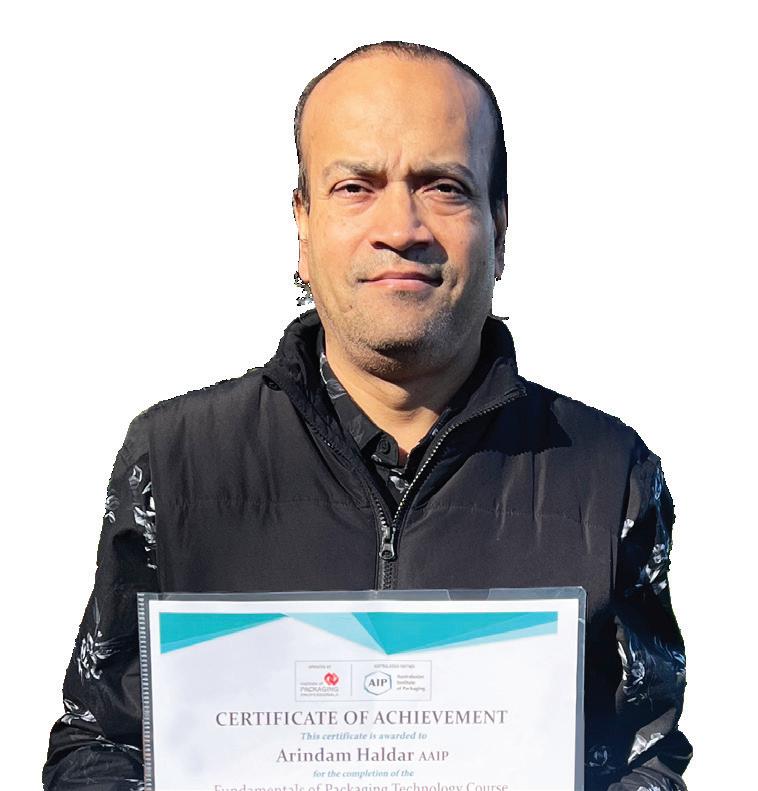
Arindam Haldar AAIP
Graphic Pre-Press Operator Sealed Air New Zealand
4. What advice would you offer anyone looking to undertake the complete Fundamentals of Packaging Technology course?
Arindam: For anyone in the Australasian region the AIP are here to support you to undertake the Fundamentals of Packaging Technology course
5. Would you consider now completing the Certificate Packaging Professional designation as your next step?
Arindam: Yes, I am looking forward to completing the Certified Packaging Professional (CPP) as the next step for my professional development
By Libby Davis, Packaging Insights
A recent Australasian Institute of Packaging (AIP) survey shows that only 29% of industry respondents hold a Diploma in Packaging Technology. It also finds that 31% of the total respondents have more than 20 years’ experience in the packaging industry — down 10% from 2023.
A recent Australasian Institute of Packaging (AIP) survey shows that only 29% of industry respondents hold a Diploma in Packaging Technology It also finds that 31% of the total respondents have more than 20 years’ experience in the packaging industry — down 10% from 2023
As experts reach retirement age, the packaging industry needs more skilled workers with relevant degrees, according to Nerida Kelton, executive director at the AIP�
The Australasian 2024 Career and Salary survey includes industry workers’ education, experience, career satisfaction, concerns, and salaries of industry workers �
The survey and results cover the industry across Australia, New Zealand and Asia Many of the respondents have degrees in food science or industrial design, rather than packaging


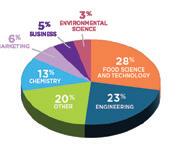

• AIP survey highlights a packaging workforce skills gap as many experts approach retirement.
• Industry leaders call for stronger educational pathways, including degrees, certifications, and scholarships.
• Companies are urged to invest in training programs and help fund scholarships to upskill future talent.
Packaging Insights speaks to Kelton about bridging the workforce skill gap with education and more resources
The AIP offers many degrees and certifications for skilled workers These include a Master of Food and Packaging and Innovation degree, a Diploma in Packaging Technology, a Certificate in Packaging, and the Fundamentals of Packaging Technology
She says: “Designing packaging truly is a science, so having degrees is very important to ensure that the packaging is fit for purpose, functional, protects the product, and offers the lowest environmental impact.”
Kelton argues that the industry needs packaging technologists to complete the basics of packaging education before building into technical knowledge� Moreover, she explains that regulations and businesses need to help packaging experts by providing access to training and education� “It also benefits the business to have skilled professionals in their teams."
The survey suggests that many skilled packaging experts are at retirement age The AIP indicates that the industry supports stable career pathways, but Kelton identifies a skills gap
“The change we are seeing is simply retirement and natural attrition. Our packaging technologists stay in the industry for 30 to 40 years on average. Career longevity is remarkable on the packaging side of the industry.”
“What we are seeing right now is the senior packaging technologists retiring, and now we have big skill gaps as the younger ones do not have foundational degrees in packaging.”
Kelton urges companies to provide access to AIP training within personal and professional development budgets and funding
“Companies could also commit to paying one staff member each year to enrol in the appropriate packaging degree. The AIP education team can work with companies interested in this model to customise a skillset mapping guide for their teams.”
The survey highlights the different careers within the packaging industry It notes that 31% of the respondents work in packaging technology/design, 25% in research, and 11% in sustainability and environment�
Kelton explains some companies are paying for packaging degrees, which she calls “incredible,” and that these degrees are needed to upskill people in packaging roles
She says the AIP offers two scholarship programs to access the Diploma in Packaging Technology, the Certificate in Packaging, and the Fundamentals in Packaging Technology, the demand for which is rising yearly

Do you have any of the following packaging-related degrees?
• 29% of the respondents have a Diploma in Packaging Technology, 24% have completed the Fundamentals of Packaging Technology, 23% have the Certificate in Packaging and 12% have completed the Master of Food & Packaging Innovation.
Kelton stresses the need for specialised education that supports packaging workers' professional development.
Kelton adds: “The AIP would like to see companies help fund the scholarship program as well, so that we can strengthen the industry’s skills. If each company offered one person access to the scholarship program each year, imagine our skills in the industry.”
Published with approval by Packaging Insights
The Diploma in Packaging Technology is a Level 5 PIABC, 51-credit foundation degree-level qualification that prepares students to take responsibility for packaging operations at any level through the supply chain and can also lead to higher level study.

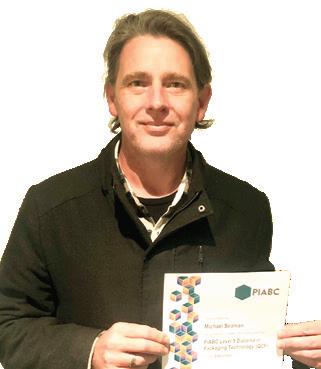
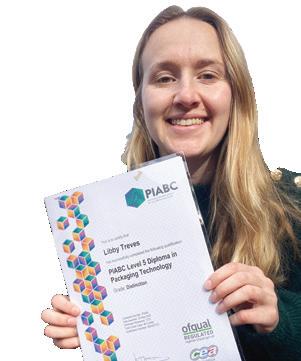
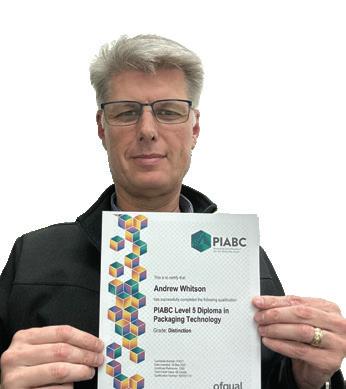
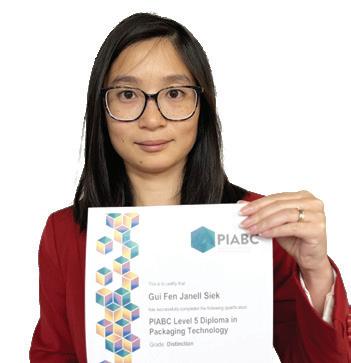

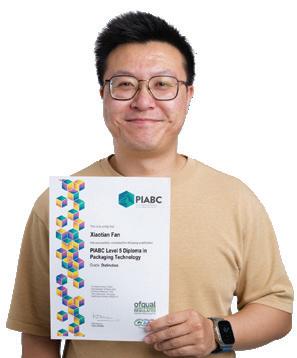
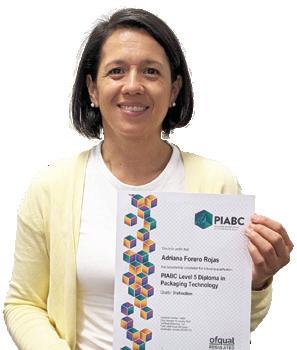

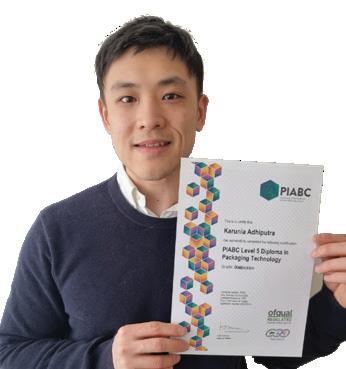
CLOSES 24th October

If you are looking to better understand careers, salaries, employment & education of packaging professionals in Australasia then complete the 2025 survey today.
Do you have any of the following packaging-related degrees?
• 29% of the respondents have a Diploma in Packaging Technology, 24% have completed the Fundamentals of Packaging Technology, 23% have the Certificate in Packaging and 12% have completed the Master of Food & Packaging Innovation.




Experience
• 31% of the total respondents have more than 20 years’ experience in the packaging industry. This is an indication of longevity in the industry and stable careers.
The AIP is pleased to advise that the 2025 Salary & Career Survey is now open for the Australasian Region; Australia, New Zealand and Asia. The annual survey and findings report has been developed in partnership with sister-association the IoPP.
This year’s Salary Survey – the only survey in the Australasian Region dedicated exclusively to benchmarking salaries and employment trends within the packaging industry – will provide a clear look into roles, experience, education, career satisfaction, challenges and salaries of packaging professionals.

The AIP is seeking input from packaging professionals to ensure that we can develop a definitive resource for our industry for the region.
With just a few minutes of your time, your thoughtful responses to the survey’s open-ended questions, will contribute to this important industry staple. The results from the survey will be made in to the 2025 AIP Salary & Career report and will cover roles, education, experience, career satisfaction, concerns and salaries. The report created from this survey does more than report your salary; it touches on your current employment status, educational factors, future career prospects and more.
Those who complete the confidential survey will receive the final 2025 report from the AIP for free.
The deadline to complete this survey is Friday 24 October 2025
Thank you in advance for your valuable input and we look forward to the results. Please extend this invitation to all of your colleagues across the region.
To complete the confidential survey please click here https://forms.gle/k8HPJacLeGH3AsAt7
The AIP hosted a webinar on 17 September, with speakers Lina Wimmer and Charlotte Neumair from Circular Analytics, on the EU Packaging and Packaging Waste Regulation (PPWR). Packaging professionals from around the world tuned in for the session.
Charlotte Neumair, team lead circularity at Circular Analytics, outlined the PPWR’s core objectives: reducing and preventing packaging waste, increasing recycled content, harmonising regulations, and ensuring all packaging is recyclable The regulation entered into force on 11 February 2025 and is part of the EU’s Green Deal strategy for climate neutrality by 2050

Wimmer explained the PPWR’s targets, including a 40 per cent reduction in packaging waste by 2030 and a 15 per cent reduction by 2040 All packaging must be recyclable by 2030 with a 70 per cent recyclability threshold, rising to 80 per cent by 2038� She illustrated these targets with examples such as mono-material pouches and multi-material salmon packaging Minimum recycled content requirements were also discussed, with post-consumer recyclate preferred Reusability targets apply to non-alcoholic and alcoholic beverages, and to transport and sales packaging � Labelling will be harmonised across the EU, using a pictogram system based on the Nordic model
When talking about packaging minimisation, Wimmer mentioned that by 01 January 2030, packaging must be minimised in weight and volume while maintaining safety and functionality� Misleading designs such as double walls will be prohibited, reusability considered, and standards for common formats set within 24 months � E - commerce, transport, and collective packaging must reduce empty space to a maximum of 50 per cent per unit
They also mentioned that from 12 August 2028, labelling requirements will be harmonised to provide information on material composition, recycled content, and whether the packaging is reusable, compostable, or part of a deposit return system � Pictograms will be used, supported by QR codes or other digital data carriers, and harmonised labels will appear on waste receptacles�
On reuse, Wimmer highlighted that packaging must be designed to withstand multiple cycles� Targets apply to non-alcoholic and alcoholic beverages, grouped sales packaging such as cardboard boxes, and B2B transport packaging within a member state� Compliance targets are calculated annually by economic operators and final distributors according to Article 30 of the PPWR For plastics, the speakers mentioned that from 2030 all components of packaging must contain a minimum level of post-consumer recycled content (PCR) Exemptions apply for plastic packaging in contact with food where recycled content poses health risks, and for components representing less than five per cent of the total packaging weight
During the session, the speakers asked two key questions to guide companies on compliance When asked, “When do we have to act as a company?” the answer was “sooner than we think, deadlines are fast approaching � ” On “How can I survive the PPWR?” the advice was to “plan strategically, organise and structure before taking action ”
The webinar also highlighted the need for companies to understand their current packaging status, identify data gaps, and adopt a structured approach to meet PPWR requirements�
Nerida Kelton, AIP executive director, concluded by noting the relevance for the Australian industry� While discussions around national standards and recycled content continue, she advised companies to keep progressing with packaging design to ensure recyclability�
The webinar is the first in a three-part series Future sessions will provide guidance on operational requirements and digital tools for managing compliance� AIP will hold a State of Industry webinar on 15 October focusing on the landscape of extended producer responsibility (EPR) and eco-modulation in the United Kingdom�








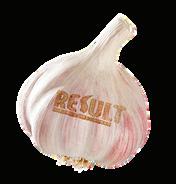
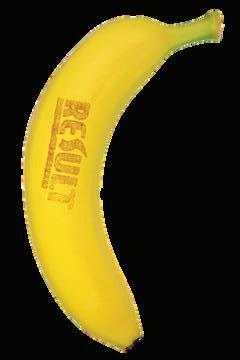


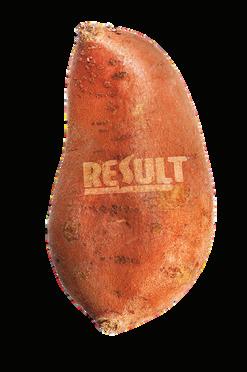


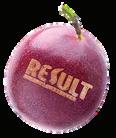
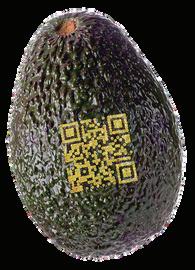

The IFPA Sustainability Summit 2025, held on 16 September 2025, brought together leaders from across the fresh produce and packaging industries to explore the challenges and opportunities shaping the future of sustainable supply chains.
One of the most talked about moments came when avocados, etched with the attendees’ names, were placed on the table The fruit was more than symbolic – it represented the innovative project between Result Group, Gilad Sadan, The Packaging Hippie, and Costa, trialling laser coding technology to replace stickers By marking the fruit directly on the skin, this approach demonstrates how packaging waste can be reduced without compromising compliance, traceability, or consumer communication�
The Costa project has already progressed beyond the pilot stage Earlier this year, laser coded avocados were introduced for Easter promotions, and the “Lovacados” brand, featuring laser-marked fruit, was rolled out across 20 Woolworths stores in Victoria This marked the first time Australian consumers could purchase natural branded fresh produce on supermarket shelves - a milestone that underscores the commercial readiness of the technology
Michael Dossor MAIP, Group General Manager of Result Group, addressed the summit as both a Platinum Member of IFPA and a member of the IFPA Sustainability Council� His session challenged delegates to consider how the packaging sector can support fresh produce businesses at a time when infrastructure, regulation and global standards are in transition Dossor pointed to the reality of ambitious packaging targets in Australia, where collection and recycling systems remain uneven, and highlighted the need for technologies that can provide verifiable proof of packaging performance� He stressed that 2D barcodes, traceability platforms and AI-driven packaging design are no longer “future tools” but part of the expected infrastructure of the next decade�
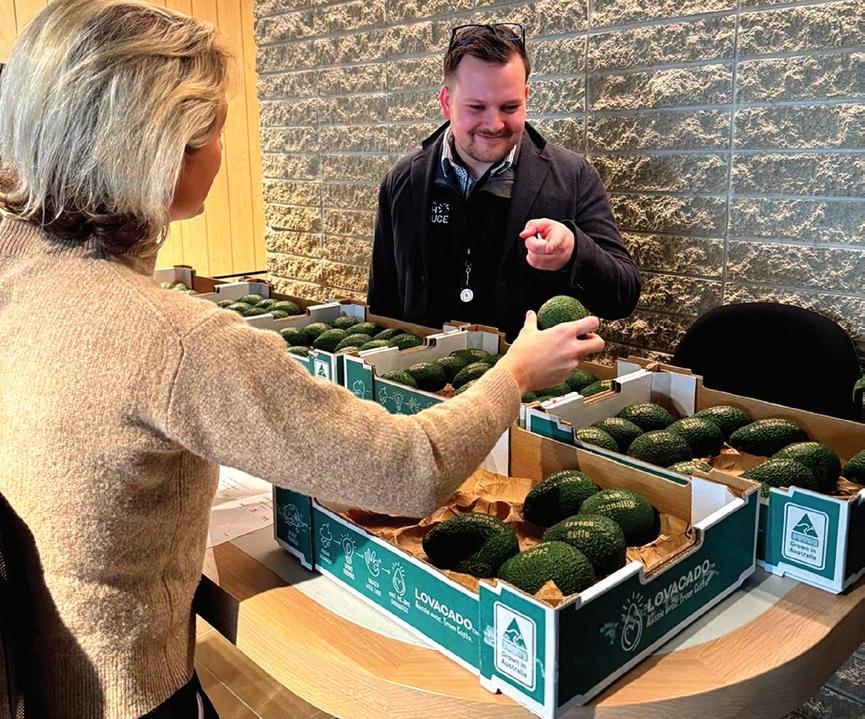
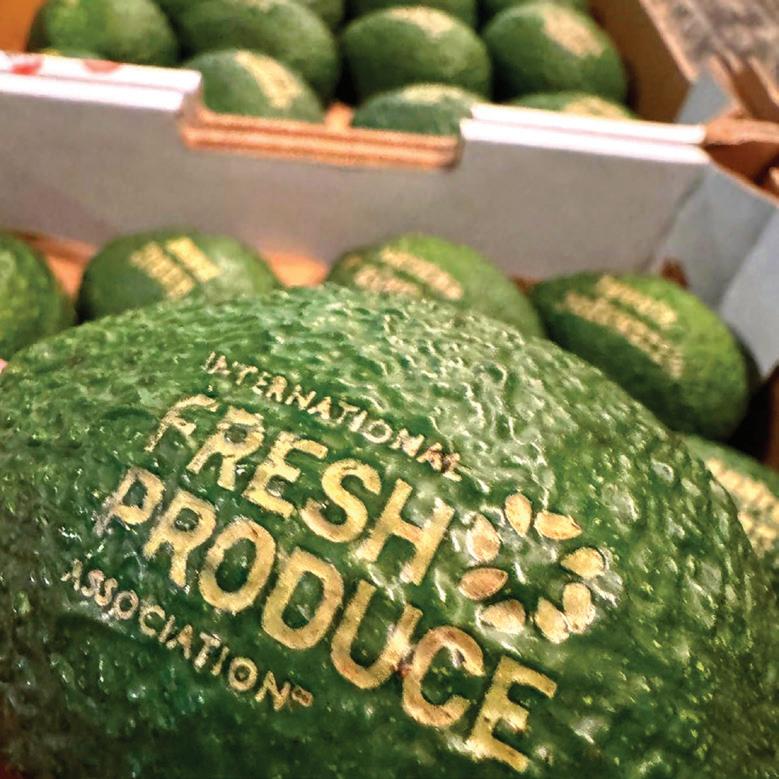
“Laser coding (natural branding) avocados with Costa is a perfect example of how we can move from concept to commercial reality,” Dossor said “It shows the industry that sustainable packaging solutions can work at scale today, not just in theory. The tools are here, and businesses must align with them now, because in packaging, you either align or you decline.”
He also emphasised the role of the Australasian Institute of Packaging (AIP) as a key industry body driving packaging training and professional development � Dossor noted that the Institute’s programs play a critical part in ensuring that the sector not only embraces innovation but also has the skilled workforce required to deliver it sustainably into the future�
The IFPA Sustainability Summit 2025 reinforced the role of packaging as a critical enabler of both sustainability and competitiveness in fresh produce With Result Group’s collaboration with Costa and its continued leadership in packaging innovation, the message to the industry was clear: change is no longer optional… it’s already underway
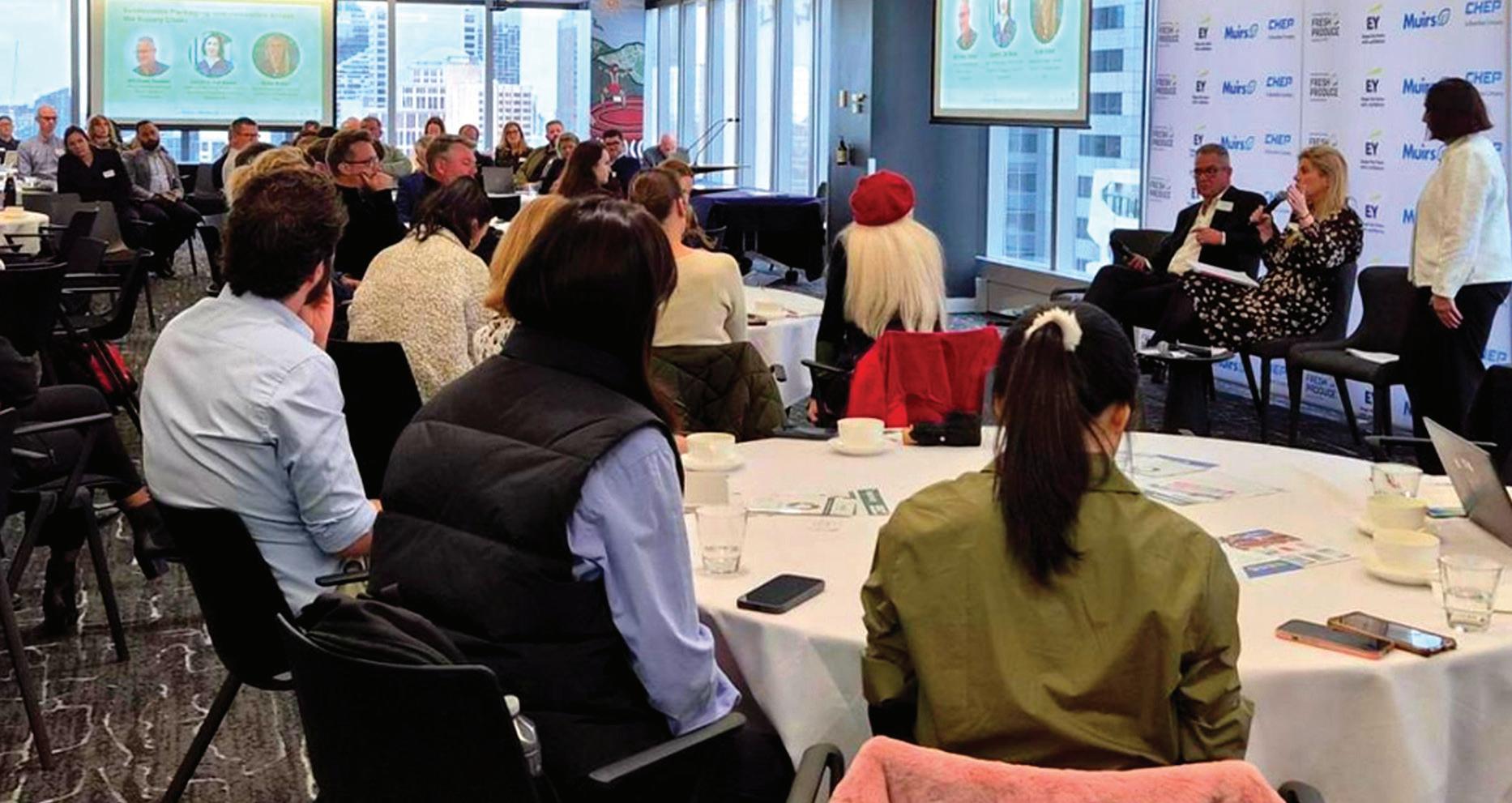
Global Regulatory Alignment
Proven Compliance
Technical Excellence
In pharmaceuticals, packaging is more than a container, it’s a safeguard for product integrity, patient safety, and brand trust. As legislation evolves worldwide, material choice must keep pace with increasingly stringent requirements. Ball & Doggett’s pharmaceutical-ready carton board range is engineered to align with global regulatory expectations.
Our materials are carefully selected, ensuring your packaging not only performs but stands up to scrutiny in every market you serve.
Our cartonboard grades are compliant with Australia’s PFAS restrictions. prohibiting certain chemicals in food and pharmaceutical packaging. just one demonstration of how we anticipate regulatory change so you can stay ahead.
SUMO CELSIUS GC2
• PEFC Certified (PEFC/40-31-7)
• ISO 14001 Environment Management System
• ISO 9001 Quality Management System
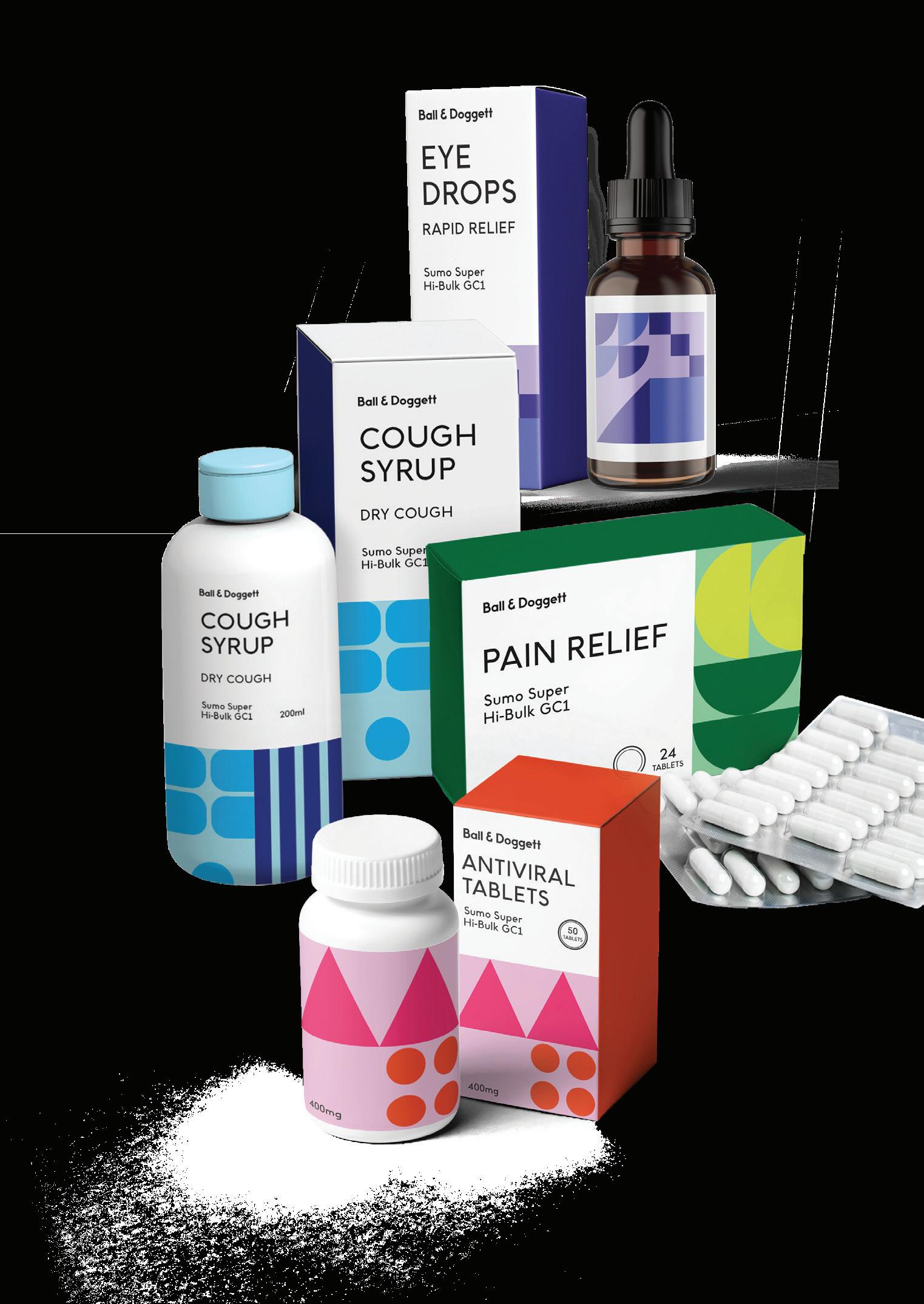
• Engineered for fridge and freezer stability with high stiffness and moisture resistance
• Double-coated surface for precision print quality
SUMO GREYBACK –RECYCLED & REGULATION-READY
• FSC® Certified, over 90% recycled pulp
• Glossy, clay-coated front for superior print; natural grey reverse
• Ideal for pharma cartons and secondary packaging in controlled environments
SUMO PRIMEKRAFT –TRIPLE-COATED VIRGIN FIBRE STRENGTH
• FSC® Certified, FSSC 22000 food safety accredited
• High stiffness, excellent printability, and edge-wicking resistance for chilled distribution
• 100% virgin fibre for strength in critical applications
packaging requirements.
• Proactive Compliance – PFAS legislation readiness is just one example of our forward-planning approach.
• Technical Expertise – Specialist guidance to match the right board to your process, product, and regulatory landscape.
• Sustainable Credentials – FSC® / PEFC certifications, recycled content options, and recyclability options within the range.
Let’s move beyond material supply — and into strategic partnership.
At Ball & Doggett, we work alongside brands, printers, and converters to anticipate market change, navigate compliance challenges, and design packaging that performs in every market.
Tap into our technical expertise, regulatory insight, and global supply strength and make your next pharmaceutical packaging project future-proof. Stay ahead of the curve.
Ball & Doggett is delighted to announce they have reached agreement in principle to acquire leading Flexible Packaging supplier Impak Films, with a completion date scheduled for 31st October 2025.
Part of the OVOL, Japan Pulp and Paper Group, Ball & Doggett is Australia’s leading distributor of printable materials and consumables to the Print, Signage and Packaging Industries The acquisition of Impak Films further solidifying Ball & Doggett’s commitment to the Packaging Market�
Established in 2005 by Andy Newman and Brian Christy, Impak Films specialise in the distribution of a wide range of Flexible films into the packaging industry�
Ball & Doggett CEO Luke Wilkinson “we are delighted to welcome Impak Films into Ball & Doggett, further strengthening our position and commitment to the packaging sector”.
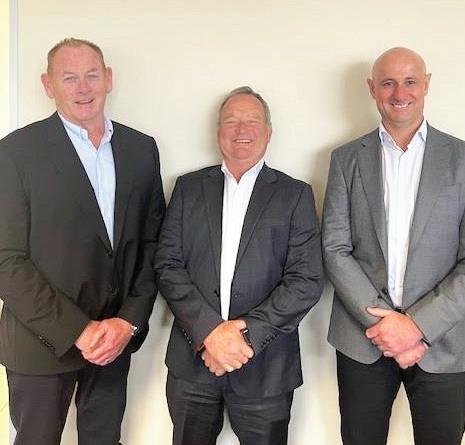
Impak Films Managing Director Andy Newman “this is an exciting next step in the Impak Films journey. Ball & Doggett have the resources, people, and infrastructure to take the business forward which will ultimately provide greater value to our customers, suppliers, and staff… we are excited about what the future holds”.
The business will continue to operate independently from their site in Tullamarine, Victoria with all staff remaining with the business�
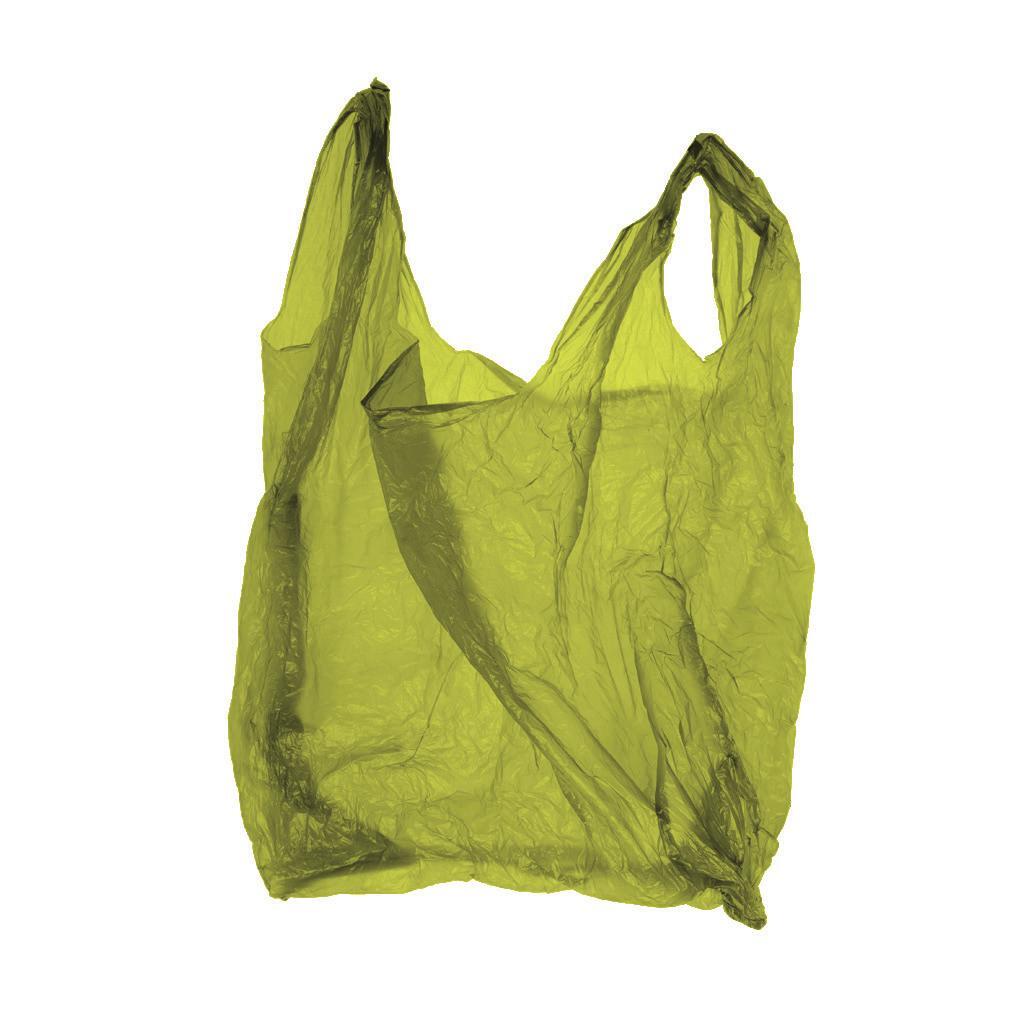



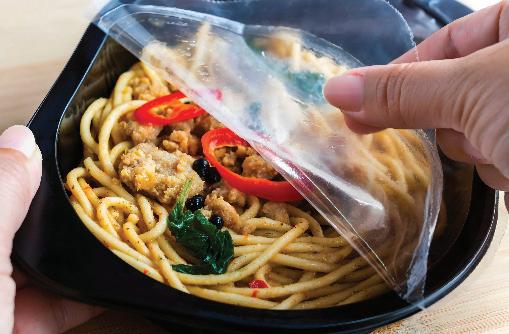
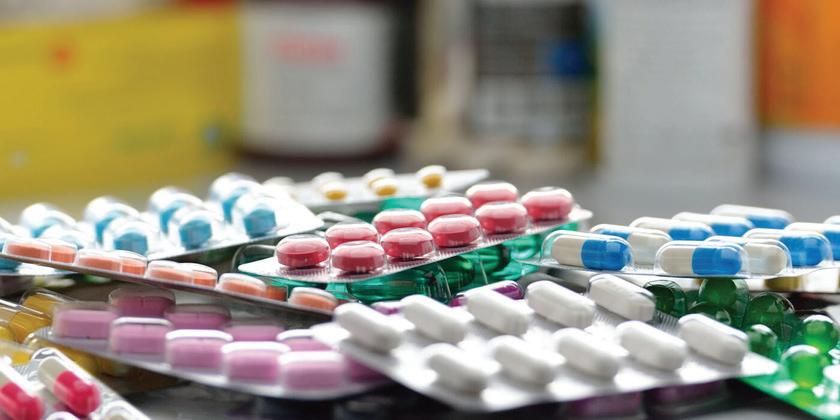
Global sourcing is a people business People with a worldwide network connecting you to the best global resources for local manufacture
People who know your business, understand your needs and will deliver the best results to you.
People with the supply chain systems experience and expertise to make sure you get what you want, when you want it.
For more than 35 years, National Resources has been connecting people to the best global resources for local manufacturing.
To find out more, contact us today.
Mapal Plastics are a leader in premium polypropylene sheets and rolls for markets and applications such as visual communication and food.
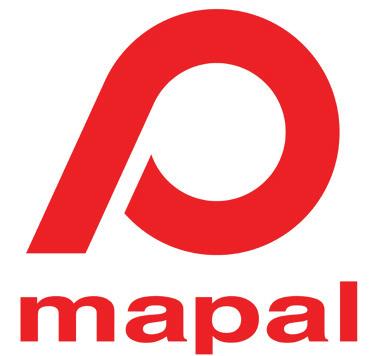
After several years of research, Mapal has introduced PolyCraft® - a foam polypropylene sheet that delivers an innovative set of properties compared to conventional rigid foam products � PolyCraft® is designed for sign and display applications as well as office products, with further potential across many other markets This material stands out for its scratch resistance, high impact strength, and excellent durability in both indoor and outdoor settings� Mapal uses advanced technology to make recyclable products with high post-consumer recycled content PolyCraft ® is the eco-friendly alternative to PVC foamed products, featuring an impressive 47% PCR content, distinctively setting it apart from competing alternatives Engineered to meet the demands of modern applications, PolyCraft® offers a host of benefits that make it the ideal choice for a wide range of industries�
National Resources is pleased to be partnering with leading global innovators to provide a comprehensive range of sealing films and lidding solutions, suitable for a wide range of tray types, applications, and markets See our easy reference guide to the right, to find the right solution for your business
For a downloadable copy, please see our website here:







Low and High Barrier, Planet-Friendly

*Fully compostable option available

We can change all our products into Recyclable Mono-Polymers, ensuring a greener future for our planet.

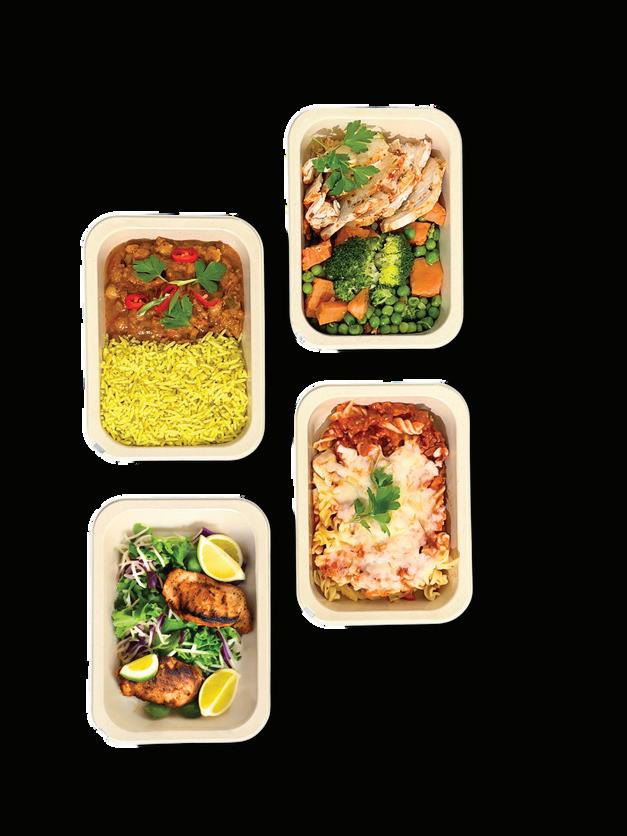

T R O L L E Y C O V E R S
An excellent eco-friendly substitute for cling wrap or reusable cloth covers, designed to safeguard your product from external contamination.
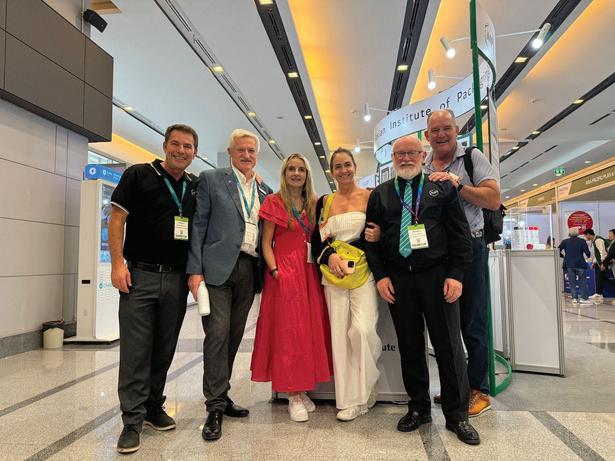

We were proud to attend the AIP exhibit at ProPak Asia where global experts came together to share ideas on packaging innovation and sustainability. For us, this was another step in our ongoing mission to reduce environmental impact and deliver smarter, greener solutions for the future. P I P I N G B A G S
Eco-friendly, anti-slip, and heavy-duty, ideal for both culinary and industrial use
In today’s foodservice industry, sustainability is no longer optional — it’s a business imperative. Commercial kitchens face increasing pressure to reduce waste, streamline operations, and align with circular economy principles. Pac Food has emerged as a packaging leader that combines ecoinnovation with practical solutions, empowering kitchens to work smarter, greener, and more efficiently.
For nearly two decades, Pac Food has specialised in high-performance food packaging designed to extend shelf life, preserve freshness, and improve kitchen efficiency� The company is widely recognised for its comprehensive range of vacuum sealers, vacuum bags, and sous vide equipment, but in recent years it has also taken a bold step forward with eco-forward packaging innovations
By balancing convenience with environmental responsibility, Pac Food is proving that sustainability and performance can go hand in hand — an approach that directly addresses one of the sector’s greatest challenges
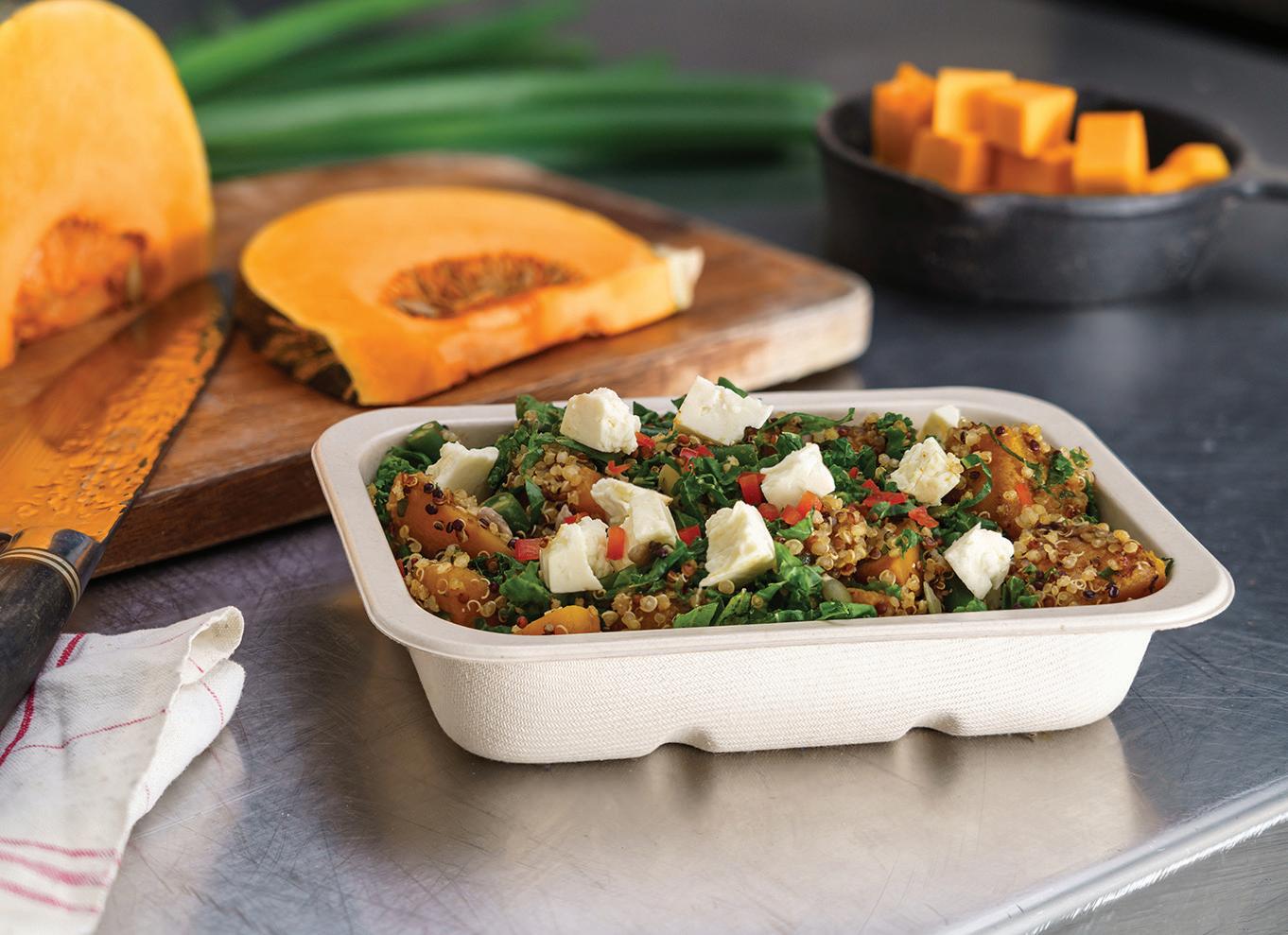
One of Pac Food’s most significant contributions to the industry is its lined sugarcane tray range Some of the trays meet APCO’s recyclability criteria with the liner still in place Featuring a compostable sugarcane base and a peel-off recyclable liner, the design ensures that once the liner is removed, more than 90% of the tray is compostable
This innovative combination allows aged-care facilities, hospitals, and large-scale caterers to portion meals with confidence, knowing packaging can be safely recycled or composted after use
Beyond their eco-credentials, the trays are remarkably versatile: oven-safe, microwave-ready, and freezerfriendly � Meals can be prepared, stored, reheated, and served in the same container — reducing the need for multiple packaging formats, cutting down on cleaning, and ensuring meals are delivered fresh and safely�
By pairing sustainability with practicality, Pac Food has delivered a true alternative to traditional plastics — one that reduces landfill and supports the circular economy�

Pac Food’s mission is clear: to help commercial kitchens work smarter, not harder — while also working greener From hospitals and aged-care facilities to airline caterers and large restaurant groups, Pac Food supplies packaging solutions that address the everyday challenges of food safety, efficiency, and compliance, without compromising on sustainability
The company’s portfolio includes recyclable piping bags, trolley covers and easy-clean pan liners — many of which are being transitioned into recyclable mono-polymer alternatives These designs allow kitchens to maintain durability and performance while reducing landfill waste �
By making these changes across its product lines, Pac Food is enabling operators to streamline workflows, deliver meals cost-effectively, and actively contribute to a more sustainable future
Reliability is just as important as innovation� Pac Food supports its eco-friendly packaging with a 'never out of stock' policy , guaranteeing that commercial kitchens across Australia and New Zealand can access what they need, when they need it � In highpressure environments like healthcare and catering, this consistency ensures operators can meet both operational and environmental responsibilities without compromise
The packaging industry is undergoing rapid transformation, driven by sustainability targets, food waste reduction goals, and regulatory changes�
Pac Food is actively aligning its product development with these priorities, helping its customers futureproof against compliance requirements and consumer expectations alike
By focusing on recyclable and compostable designs, Pac Food is enabling operators to meet immediate needs while contributing to long-term goals such as reducing food waste and advancing Australia’s packaging sustainability roadmap �
As the Australian Institute of Packaging (AIP) continues to highlight initiatives like Save Food Packaging, Pac Food’s innovations demonstrate how practical, commercially viable solutions can make a meaningful impact
Pac Food’s path forward is clear: keep innovating, keep supporting customers, and keep driving the industry toward a more sustainable and efficient future Whether through expanding its eco-friendly packaging range, refining vacuum technology, or collaborating with industry bodies to set new standards, the company is committed to being more than just a supplier — it is a partner in progress for commercial kitchens across the region
To learn more about Pac Food’s sustainable packaging solutions, visit pacfood.com.au
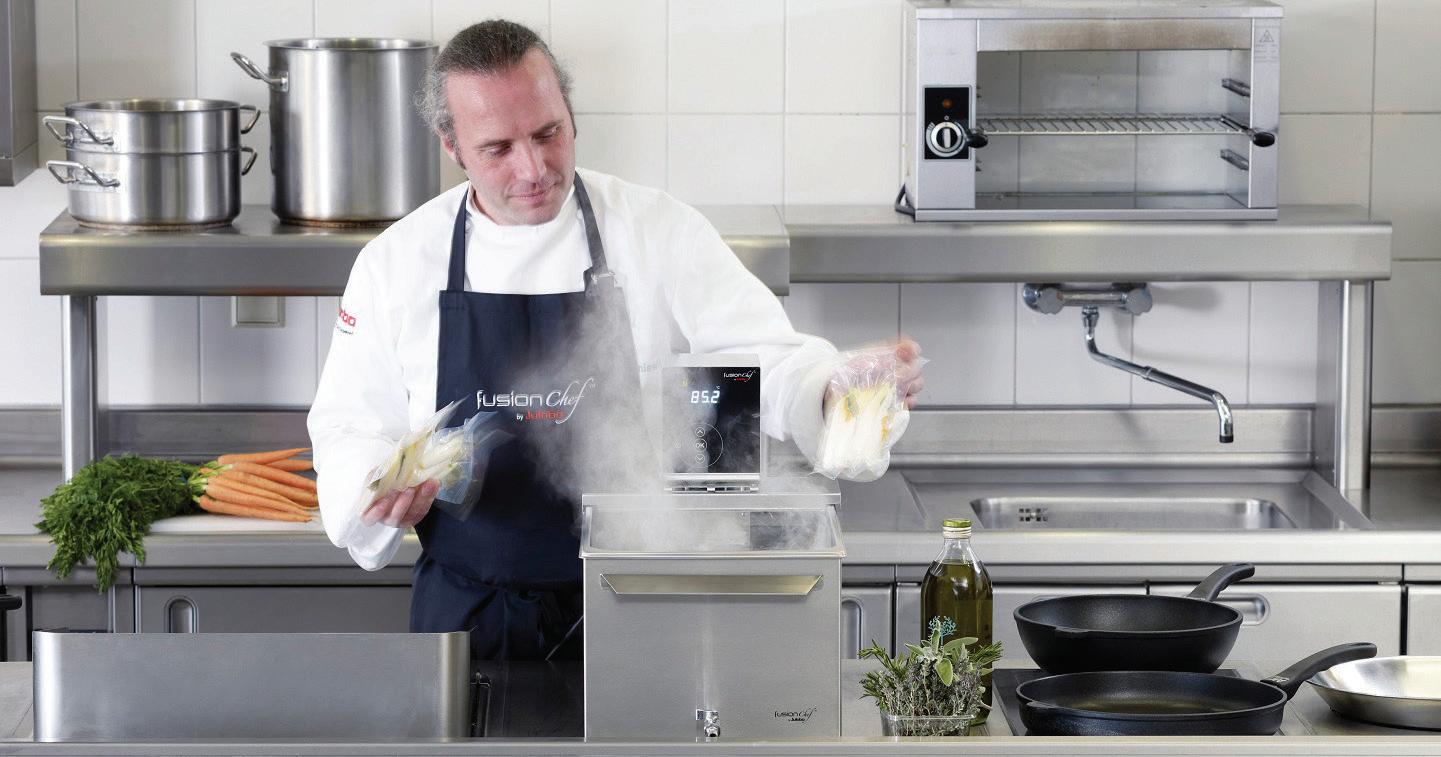
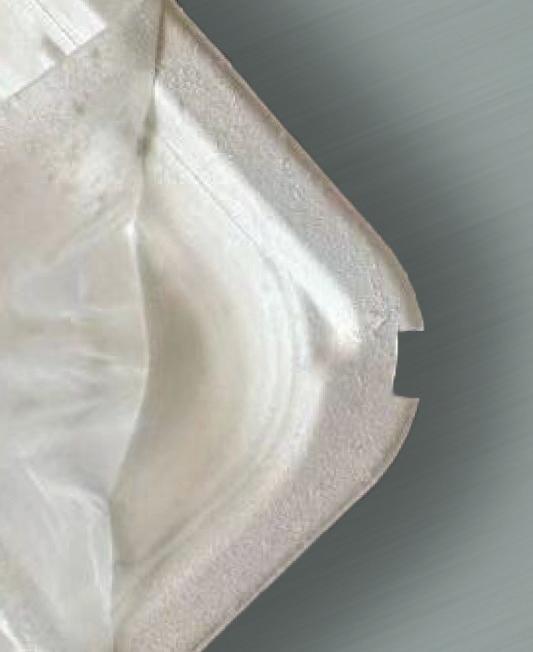
• Regularly advertise products in newsletter.
• Logo recognition on AIP emails.
• Logo on AIP website.
• Regularly share product launches and staff updates in newsletter.
• Elevate your brand, products & services in front of the AIP community.
• Dedicated packaging audience across Australasia.
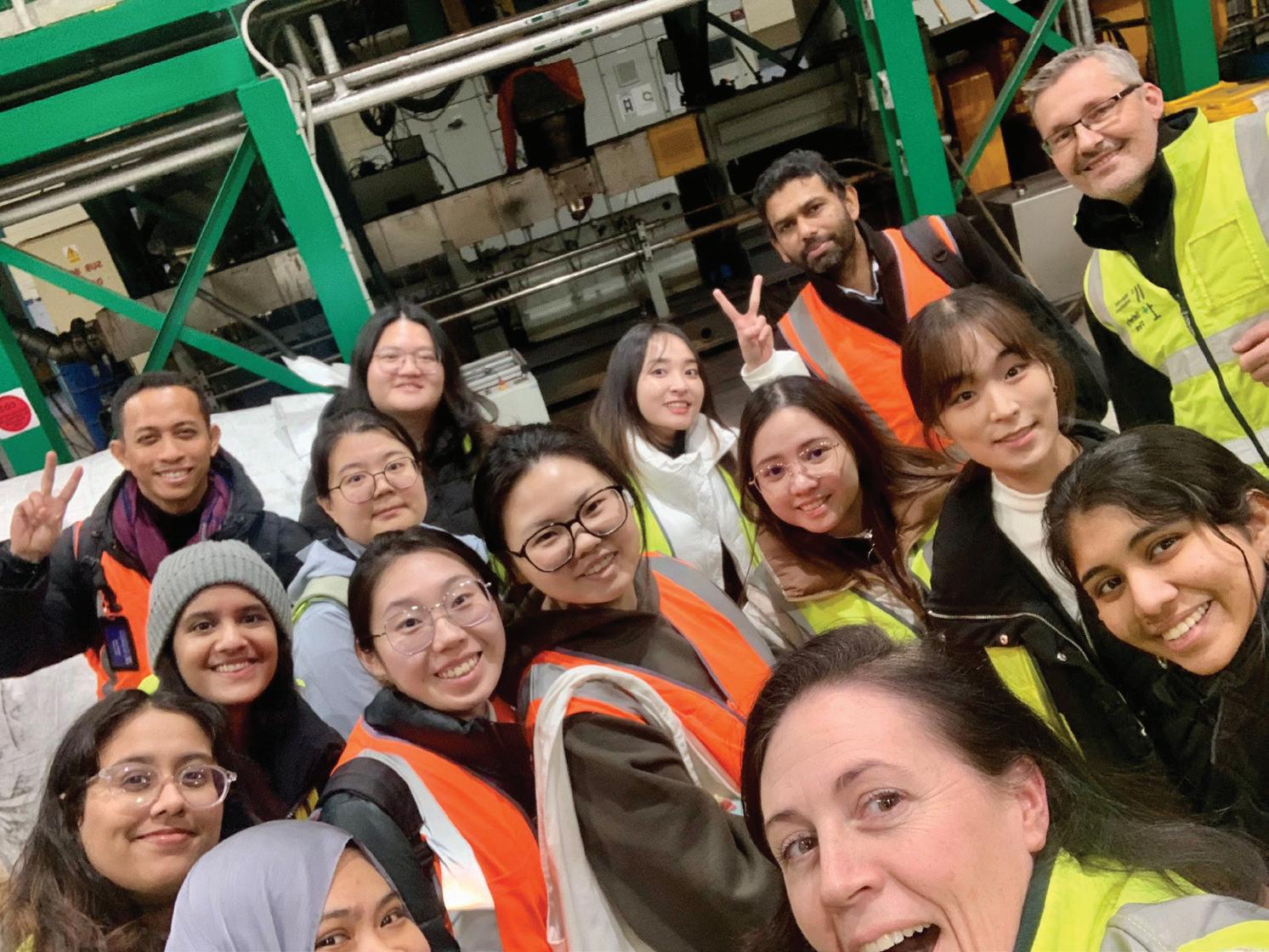
Are you looking for an Intern to work in your business? Would you like someone that is completing Master degree in
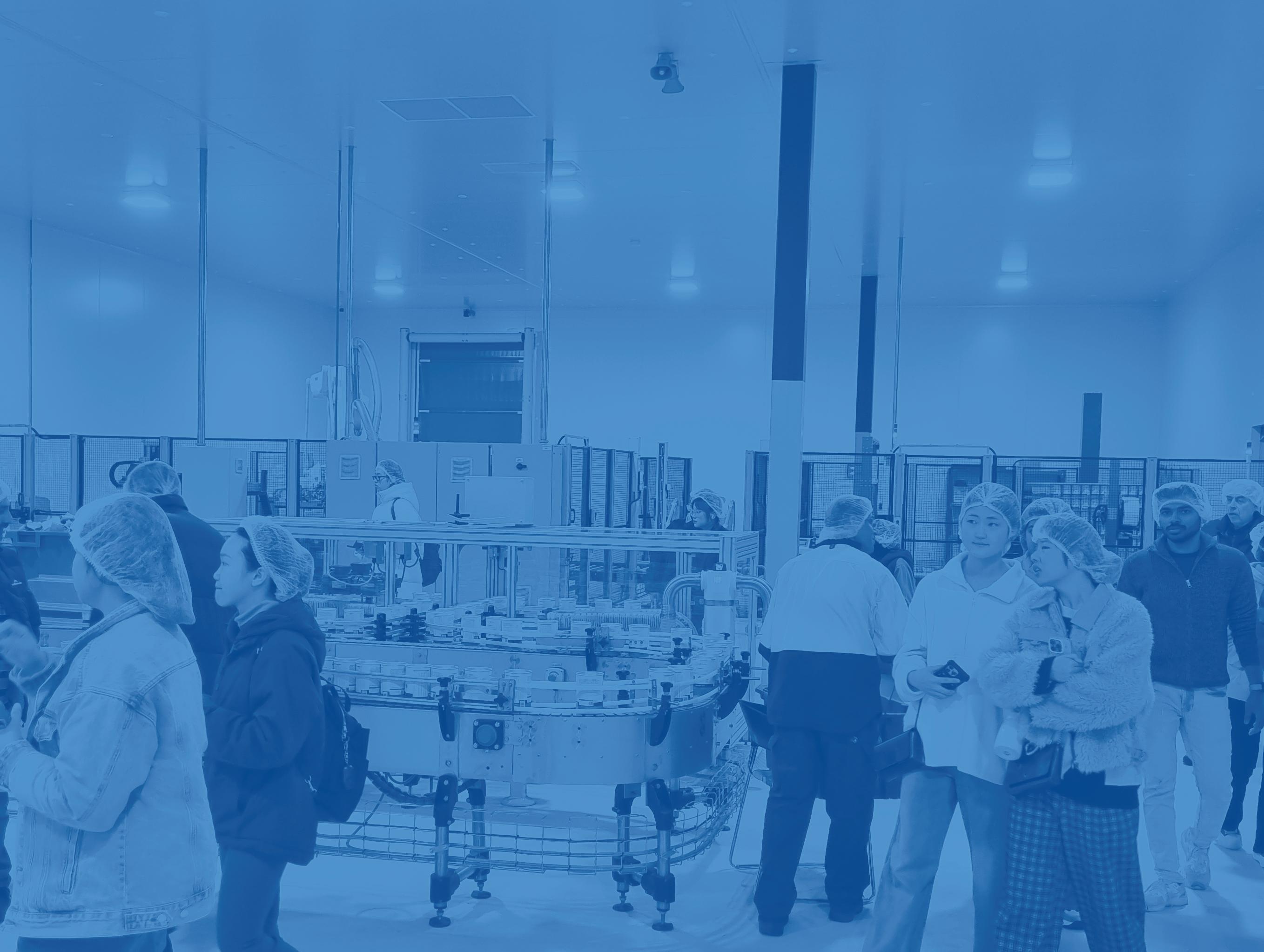
The Master of Food and Packaging Innovation is an inter-disciplinary degree that explores food science, entrepreneurship and innovation in product and packaging design at an advanced level. The degree was developed over 11 years ago as a joint initiative between the University of Melbourne and the Australasian Institute of Packaging (AIP).
The degree has been designed to offer the students industry experiences and knowledge through access to AIP technical experts as lectures, visits to food and packaging related sites and an internship program. Students can graduate with the technical foundational knowledge and practical experience in the industry. This is the first step to bringing the talented school of graduates into the industry is to enable them to work in Food, Beverage and Packaging businesses. There are many graduates already working in the industry within the region and a number are now packaging technologists.
The internship comprises up to 200 hours in which the student is expected to work within the business on a project as determined by the company. The timing of the internship is flexible and is determined by the nature of the project, which will generally be negotiated between the company’s needs and the student’s availability.
Each year the Master of Food & Packaging Innovation degree has students that are looking for a place to learn and gain practical industryrelated experience. Would your business like to support the next generation by offering them an internship?
If you are interested in joining the Master of Food & Packaging Innovation internship program then please email info@aipack.com.au

WHEN: 7-10 October 2025
WHERE: Tokyo Big Sight East Exhibition Hall (Koto-ku, Tokyo)�
WHAT: JAPAN PACK is Japan's leading biennial packaging industry exhibition, which has been held 34 times since the first exhibition was held in 1964� The latest solutions, innovations, and trends related to production lines from major Japanese packaging machinery manufacturers and companies from Japan and abroad will be gathered under one roof By matching the various issues faced by stakeholders with solutions to those issues, we create new values, such as improved productivity and promotion of sustainability, as well as develop new business initiatives As one of Japan's leading packaging trade shows, JAPAN PACK continues to be highly anticipated by the packaging and related industries
WHEN: 15 October 2025, 10.00 AEDT / 9.00 am AEST
WHERE: On-line via Zoom
WHAT: Packaging Producer Responsibility obligations and regulations have been in play in the United Kingdom (UK) since 2023, replacing the 2007 Regulations in 2025. Alongside this change is the introduction of further regulatory requirements around Deposit Return Schemes, and harmonised packaging collection for businesses and at kerbside.
Alison Appleby, Packaging Sustainability Specialist for Ecosurety, a UK packaging compliance scheme, joins the AIP to talk about the complex UK packaging regulatory landscape�
Alison will share detail on the following, highlighting similarities and differences with the Australian packaging landscape along the way:
• The UK Packaging Extended Producer Responsibility Regulations, including detail on the Recyclability Assessment Methodology (RAM) and eco-modulation of Waste Management Fees�
• Updates on Simpler Recycling regulations, with detail on upcoming kerbside collection requirements�
• Deposit Return Schemes and how they will operate throughout the UK
• Additional regulations in the region which need to be considered for packaging design


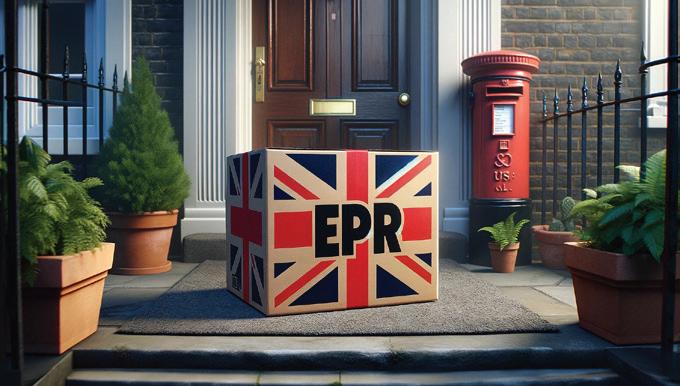
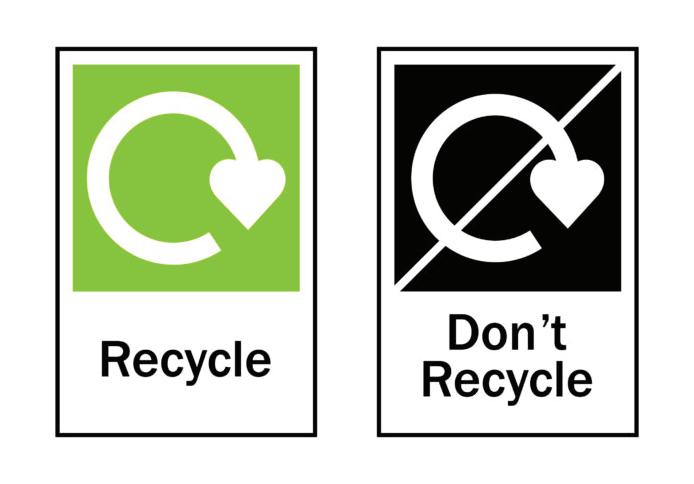
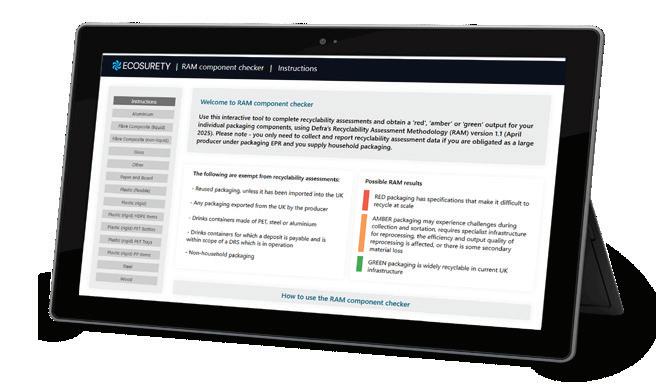
Ecosurety is a leading packaging EPR compliance scheme on a mission to rid the world of unnecessary packaging� Using data-driven insights, market-leading tools and multidisciplinary expertise, they help businesses to comply with packaging EPR and make sustainable packaging decisions A B Corp since 2020, Ecosurety is guided by its purpose of accelerating change towards an environmentally and socially sustainable world
SPEAKER:

Alison Appleby
Packaging Sustainability Specialist
Ecosurety

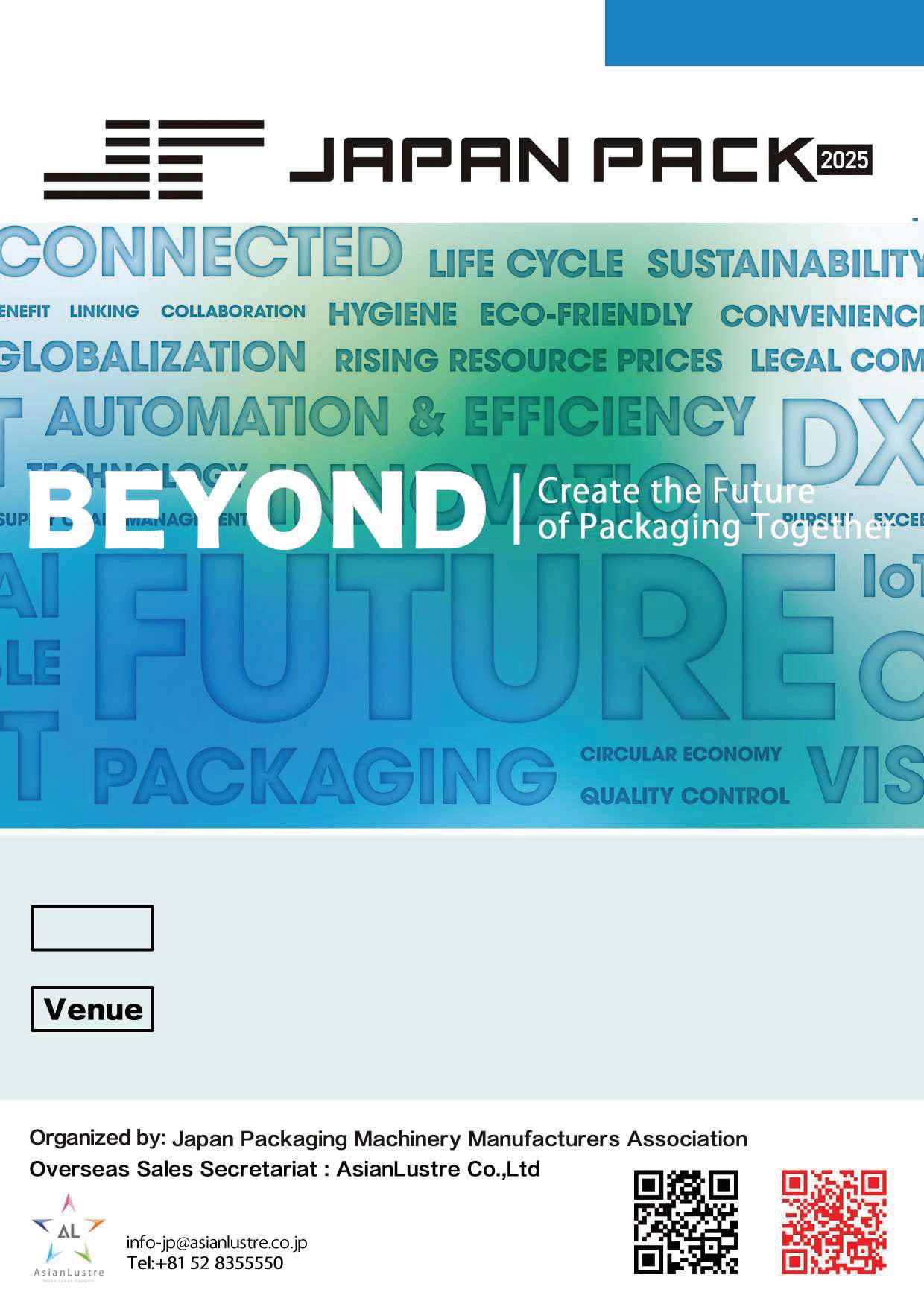


WHEN: 20 & 22 October 2025, 9 am - 1.00 pm
WHERE: South West - Monday 20th October 2025 | Margaret River HEART
Perth - Wednesday 22nd October 2025 | The Hub Bentley

WHAT: Come and join the WA DPIRD workshops for Food & Beverage Manufacturers in South West Margaret River & Perth.
Join DPIRD for two half day interactive workshops in October, where Nerida Kelton FAIP and Ralph Moyle FAIP, CPP from the Australasian Institute of Packaging (AIP) will discuss all things sustainable packaging for food and beverage businesses
The Unboxing Sustainable Packaging workshop will take participants through regulations, trends and guidelines for packing their product�
Participants will be able to walk away from the workshop with a better understanding of:
• Global, domestic and local WA new packaging and waste regulations, including regulations for single use plastics, extended producers, FOGO, compostable packaging and eco packaging�
• How to design your packaging to be recycle ready, have a lower environmental impact and meet regulations that are coming to Australia
• The importance of data in packaging including packaging specifications and lifecycle assessment�
• Packaging design guidelines for Sustainability and Accessibility & Inclusivity
• Addressing food waste and loss through Save Food Packaging guidelines
After the workshop, participants will be able to register for consultations. The team from the AIP will be offering 15-minute in-person consultations with businesses after the workshop at the venue.
Sessions may be one-on-one or in small groups, depending on the topic � You can request a consultation when booking your ticket— you must provide details on the subject matter you would like to discuss A time will be allocated closer to the workshop
Please note: consultations are limited and not guaranteed.
We encourage you to use this opportunity to connect with the AIP; the peak professional body for packaging training & education in Australasia
Book your place today so you don’t miss out!
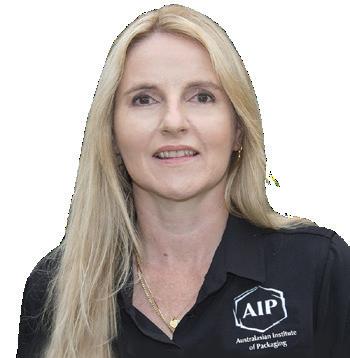
Nerida Kelton FAIP Executive Director - AIP
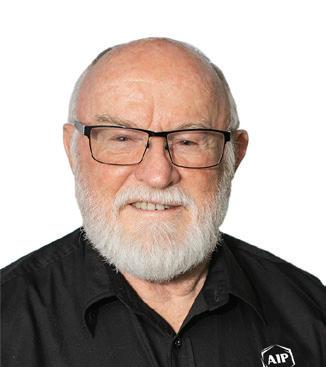
Ralph Moyle FAIP, CPP Education Coordinator - AIP
20th
22nd October Perth Event
AIP State of Industry Webinar: Global Plastics Pollution Treaty Inc 5.2 and What's Next
WHEN: 19 November 2025, 10.00 AEDT / 9.00 am AEST
WHERE: On-line via Zoom
WHAT: With global plastic waste expected to reach 1.7 billion metric tonnes by 2060, the United Nations (UN) hosted a series of negotiations to deliver the world’s first treaty to control plastic pollution. The most recent was held in Geneva in August, with the intent being to create the first global and legally binding and historic agreement between over 175 countries. Unfortunately, at INC5.2 there was no resolution as was anticipated.
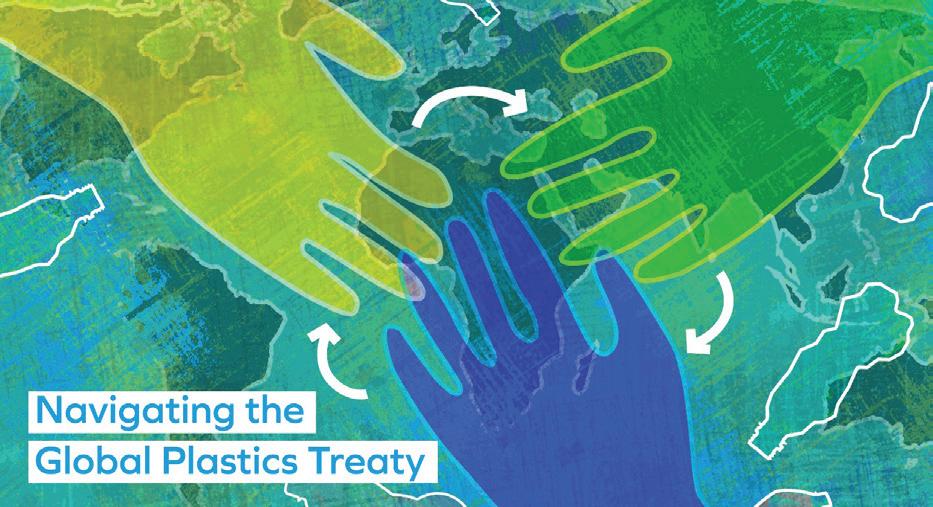

The development of the Global Plastic Pollution Treaty was designed to address the full lifecycle of plastics � This means not only looking at its disposal and waste management, but starting with plastic design, production and consumption However, this mandate was disputed by many countries and was a major sticking point for many in the INC 5 2 meetings Global targets and initiatives need to be matched with in-country action plans tailored to each country�
This State of Industry webinar will bring together five experts from Switzerland, Australia, Indonesia, New Zealand and the United States of America; who all attended and participated in the INC5 2 meetings During this panel discussion attendees will have the opportunity to find out what positive outcomes have been made in all 5 rounds, the path forward and what countries can still do with, or without a global treaty�
SPEAKERS:





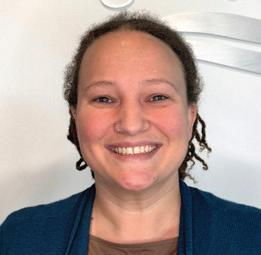





WHEN: 19-22 November 2025
WHERE: Jakarta, Indonesia

WHAT: ProPak Indonesia is the leading international processing and packaging trade event in Indonesia for Processing & Packaging technologies�
Powered by ProPak Asia, ProPak Indonesia is part of the event series taking part in the region showcasing a comprehensive array of innovative products to a thriving and expanding local market in Indonesia
It is the centerpiece where market trends converge, and industry networking evolve to valuable customer insight ProPak Indonesia is the ‘must-attend’ processing and packaging event in Indonesia delivering an industry-focused platform connecting worldwide suppliers to both local and regional buyers in the food & beverage, consumer & personal goods, and pharmaceutical industrial sectors�
WHEN: 20 November 2025

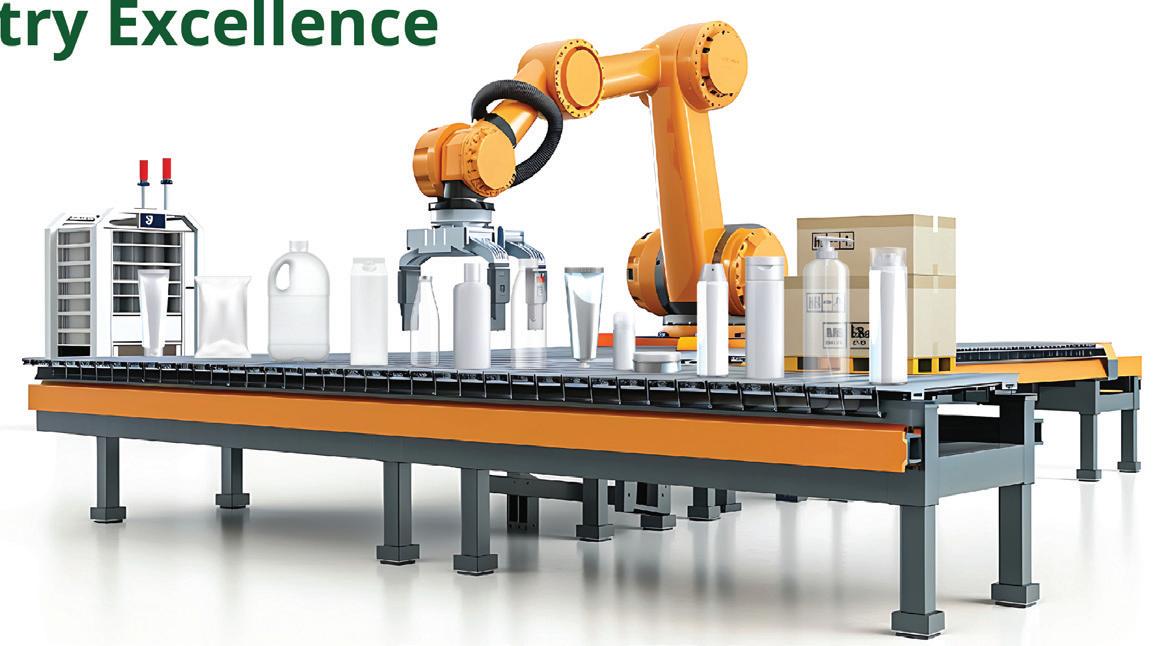
WHERE: ProPak Indonesia, JIExpo Kemayoran, Jakarta
WHAT: The AIP will be running the 2nd Indonesian Packaging Forum in partnership with Pamerindo over two days This forum will bring together global and local speakers to discuss a wide range of packaging topics�
WHEN: 22 November 2025
WHERE: ProPak Indonesia, JIExpo Kemayoran, Jakarta
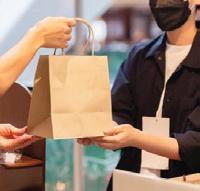

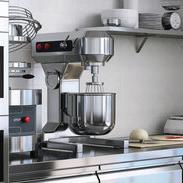
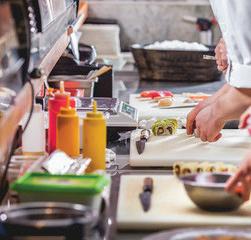

























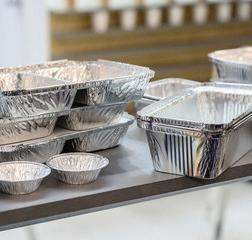







































































DAY 2: THURSDAY 20th NOVEMBER
DAY 4: SATURDAY 22nd NOVEMBER

Pearl Chan Sustainability Director Reloop by Nature’s Lab

Puvaneswaran Jsu Strategic Account Manager South APAC X-Rite Pantone

Eki Setijadi Co-Founder & Chief Operating Officer Jangjo

Ragita Wirastri Promotion, Marketing & Communication Manager Indonesian Forestry Certification Cooperative (IFFCC)

Ralph Moyle FAIP, CPP Education Coordinator Australasian Institute of Packaging (AIP)

Huangyi Chen Sustainability Manager, APAC South SIG Group

LTC Joseph Ross Jocson President Asian Packaging Federation (APF)

William Sukiban Sales Manager Indonesia UPM Raflatac Indonesia

Terrynz Tan Sustainability Director – ASEAN Tetra Pak

Hiroyuki Otsuka Technical Manager Toppan Plasindo Lestari


Lillian Kallman Director Acubetic
FREE TO ATTEND FEATURING: Simultaneous TranslationBahasa & English HELD ALONGSIDE:

Rocky Pairunan NPAP Manager/Ocean & Plastic Waste Manager World Resources Institute (WRI) Indonesia

Devaki Rajendran APAC Sustainability Manager MCC Label

R. Kadu Manager (Marketing) Functional Materials Division Mitsui Chemicals




Ovy Sabrina Co-Founder & Chief Operating Officer Rebricks Indonesia SUPPORTED BY COORDINATED BY



19-22 Nov 2025
JIEXPO Kemayoran Jakarta, Indonesia
Opening hours: 19-21 Nov (Wed-Fri) 10AM-06PM I 22 Nov (Sat) 10AM-05PM
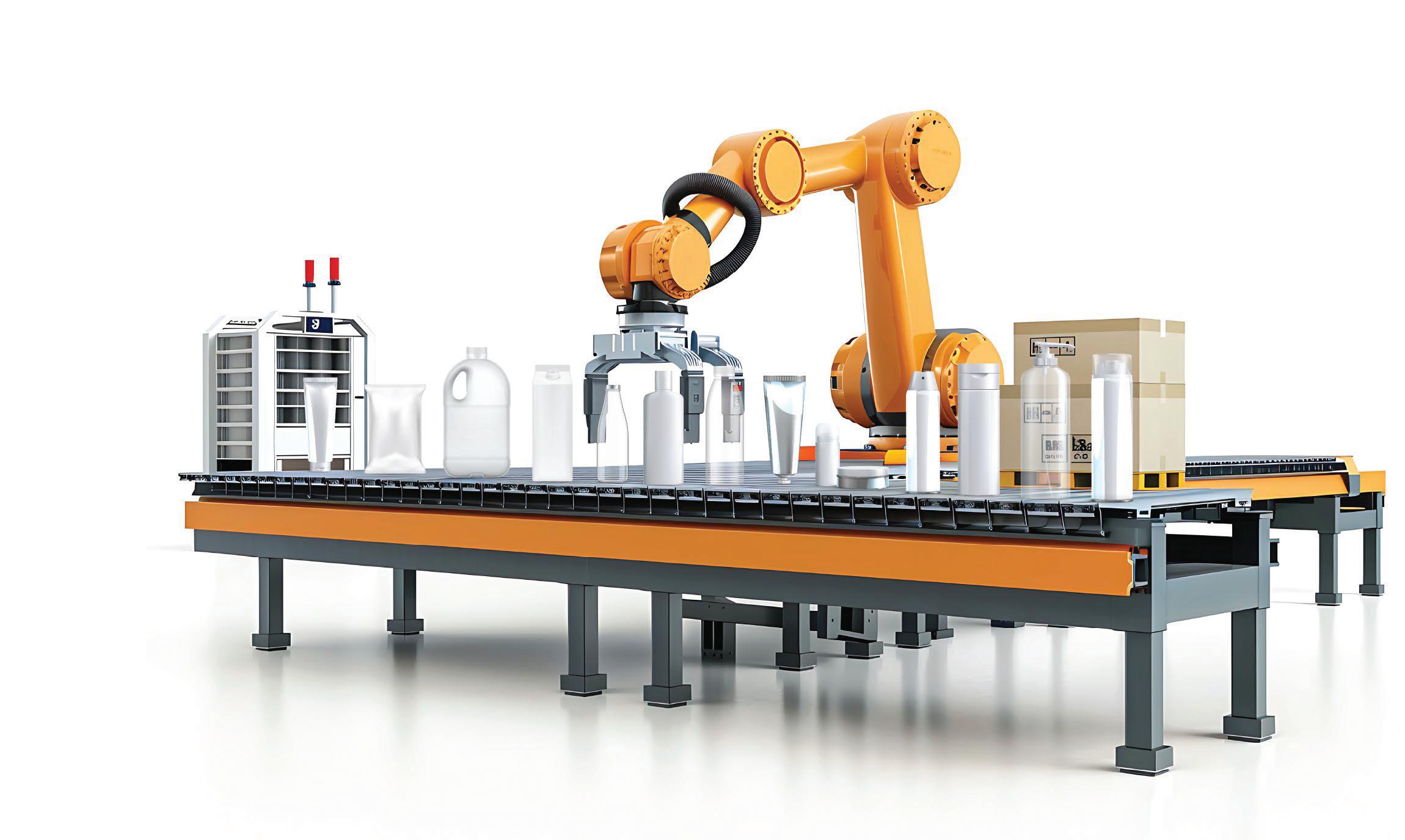



WHEN: 25-27 November 2025
WHERE: Shanghai New International Expo Centre (SNIEC), China
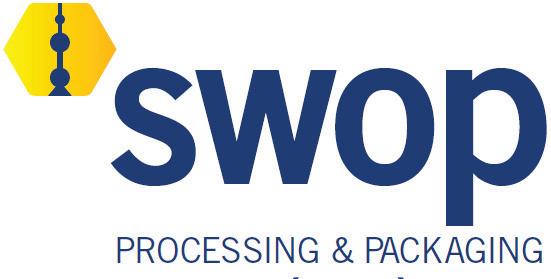

WHAT: swop is the essential event for the food, beverage, confectionery, bakery, pharmaceutical, cosmetics, non-food and industrial goods sectors No other trade fair in China represents the entire supply chain And at no other trade fair in China does the packaging industry provide all industry sectors with tailored solutions and innovative designs based on such a variety of materials�
WHEN: 28 November 2025
WHERE: Hilton Hotel Sydney & Live On-line
WHAT: The AIP brings its expertise on packaging reform, innovation, and sustainability to the Food Regulation Symposium Members and associates of the AIP receive a special discount of 30% off the full price of the conference, with promotion code 25AIP30 Hear from Keith Chessell of the AIP Education Team as he explores proposed government packaging design mandates, soft plastic recycling initiatives, chemical concerns such as PFAS, packaging’s role in reducing food waste, and the latest advances in sustainable packaging�
Click here to view more information:
https://hubs ly/Q03KXn650
PRESENTER:


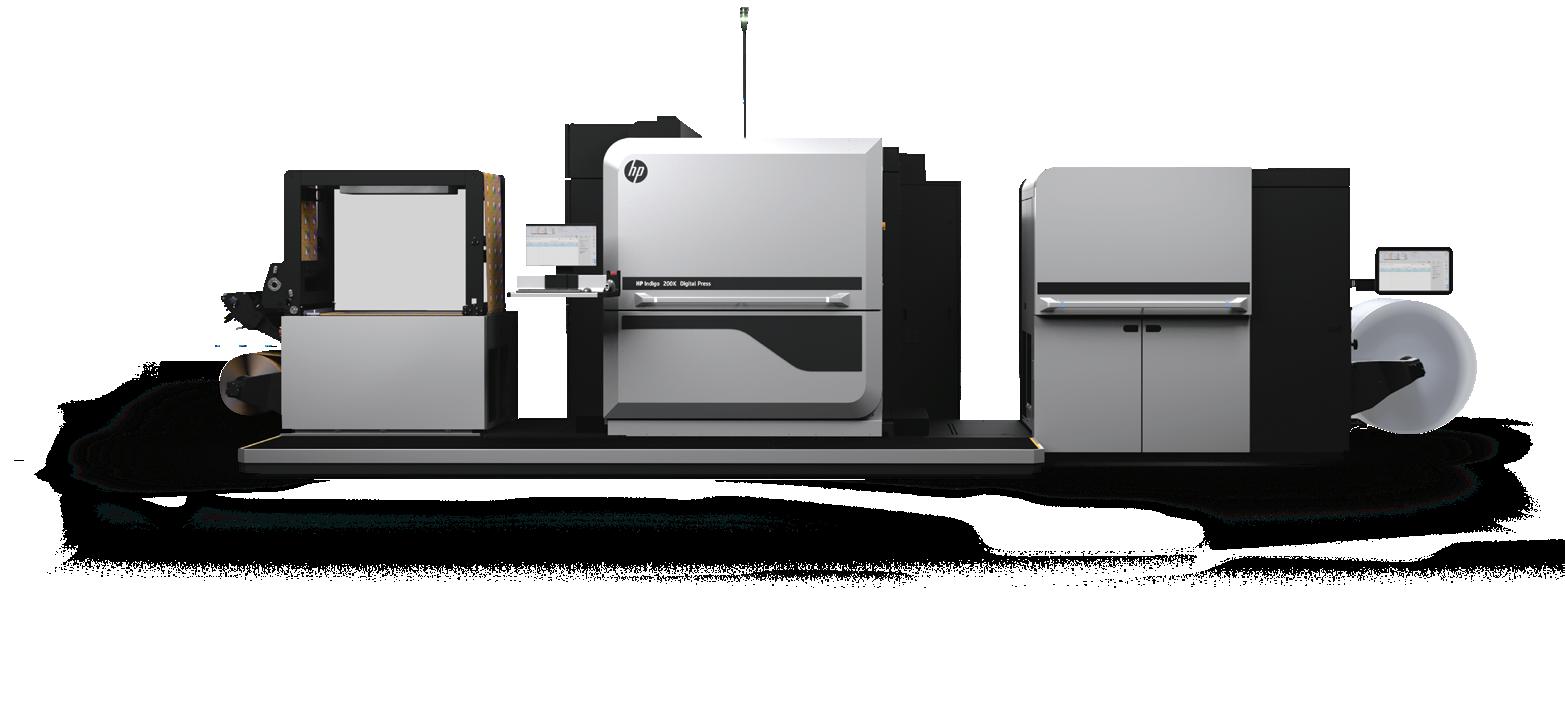

WHEN: 9-11 December 2025
WHERE: Egypt International Exhibition Centre, Cairo, Egypt
WHAT: The International Exhibition for Processing & Packaging in the Middle East and Africa

• Addresses the requirements of the food, beverages, confectionery, bakery, pharmaceuticals, cosmetics, non-food, and industrial goods sectors in the Middle East and Africa region
• Brings together local and international industry stakeholders from across the entire value chain
• Capitalises on mega opportunities in one of the major economic hubs in North Africa; also serving as the gateway to regional markets
Packaging & Packaging Waste Regulation (PPWR) Part 2:
Implementation & Operational Details
WHEN: 10 December 2025, 10.00 AEDT / 9.00 am AEST
WHERE: On-line via Zoom
WHAT: Following on from the recent AIP State of Industry webinar that discussed the Basic Toolkit for Understanding the Packaging & Packaging Waste Regulation in Europe the second webinar in this three part series will be discussing Implementation & Operation Details.
In this session, Charlotte and Lina will take a practical look at what companies need to do to comply with the new European Packaging and Packaging Waste Regulation (PPWR) The webinar will outline the key implementation steps required, with a particular focus on the conformity assessment process � The webinar will explain how this assessment must be carried out, especially from the perspective of importers, and provide clear guidance on operational details to help organisations prepare for compliance
The webinar will help attendees to better understand key actions required for brands, suppliers, and manufacturers and how to navigate reporting requirements

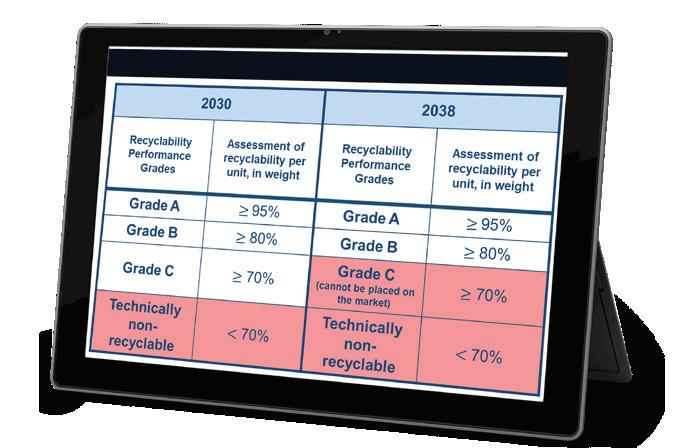
The third and final webinar of the series will be discussing PPWR & Data Management and Digitilisation� SPEAKERS:

Lina Wimmer Senior Consultant Circular Analytics



Charlotte Neumair Team Lead Circularity Circular Analytics
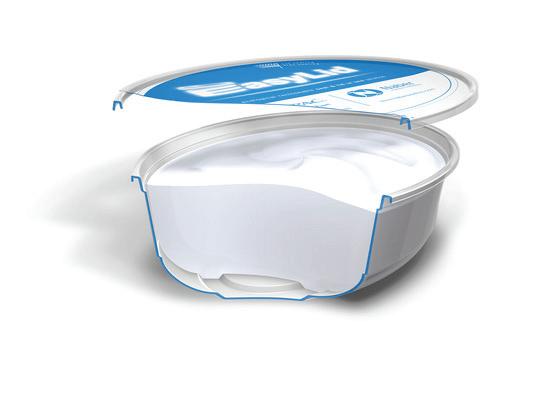

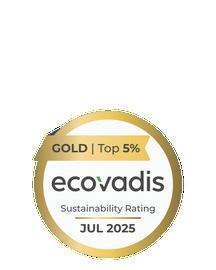

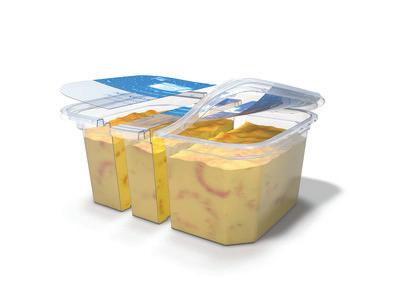

ProPak Philippines 2026
WHEN: 4-6 February 2026
AIP to Partner - Philippines Packaging Forum, Training Courses & Stand
WHERE: World Trade Centre Metro Manila, Pasay City
WHAT: ProPak Philippines is the leading international processing and packaging trade event for the Philippines� It is the perfect platform for market trends, investments and industry networking through product exchange and a variety of conferences, seminars and technical workshops offering sustainable solutions for the country’s enterprises The event provides various industries with access to the latest development in packaging and processing machines and technology from leading companies across the globe The exhibition delivers a brilliant industry-focused event connecting international suppliers to local and regional buyers in food, drink and pharmaceutical manufacturing industries With supportive governance, the Philippines has forecasted strong and dynamic growth across its industries with the backdrop of rising incomes, expanding & changing consumer demands, and increasing export potential�


WHEN: 31 March - 2 April 2026
WHERE: Saigon Exhibition & Convention Centre (SECC) Ho Chi Minh City, Vietnam
WHAT: ProPak Vietnam is poised to showcase the latest advancements in the Processing, Packaging, and Packaging Technology sectors, solidifying its status as the 18th International Exhibition and Conference dedicated to these industries in Vietnam� Organised by Informa Markets - Vietnam, this tradeshow will take place at the Saigon Exhibition and Convention Center, a prominent venue located in Ho Chi Minh City The exhibition

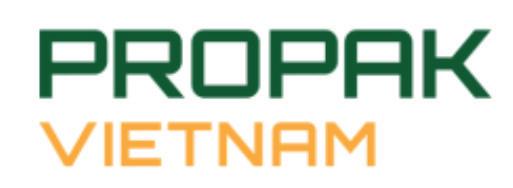
AIP to Partner - Vietnam Packaging Forum, Training Courses & Stand





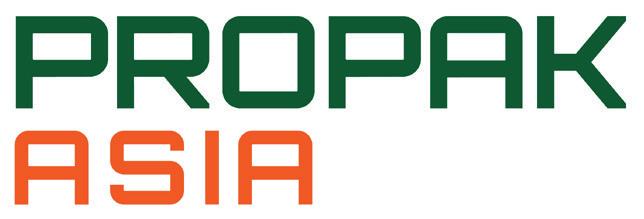
ProPak Asia 2024 Post Show Fact Sheet
Show Title: ProPak Asia – The 31st International Processing and Packaging Exhibition for Asia
Date & Time: 12-15 June 2024
Venue: BITEC, Bangkok, Thailand
Exhibit Area: 55,000 Sq.m.
Participants: 2,000 Exhibitor Brands from 42 Countries
International Pavilions: 14 International Pavilions from 12 Countries and Regions
Australia, Bavaria, China, France, Italy, Japan, Malaysia, North America, Singapore, South Korea, Switzerland, and Taiwan ROC
Trade Attendees: 68,218 Attendees from 83 Countries and Regions
JUNE 2026
ProPak Asia 2026
Top 10 International Visitor Countries:
WHEN: 10 - 13 June 2026
WHERE: Bangkok, Thailand

Afghanistan, Africa, Australia, Austria, Bangladesh, Belgium, Bhutan, Brazil, Brunei, Cambodia, Canada, Chile, China, Costa Rica, Czech Republic, Denmark, Egypt, Fiji, Finland, France, Georgia, Germany, Ghana, Holland, Hong Kong S.A.R., Hungary, India, Indonesia, Iran, Iraq, Ireland, Israel, Italy, Japan, Jordan, Kenya, Kuwait, Kyrgyzstan, Laos, Lebanon, Lithuania, Luxembourg, Macau S.A.R., Malaysia, Maldives, Mauritius, Mexico, Mongolia, Morocco, Myanmar, Nepal, Netherlands, New Zealand, Nigeria, Oman, Pakistan, Palestine, Papua New Guinea, Peru, Philippines, Poland, Portugal, Romania, Russia, Saudi Arabia, Singapore, Slovakia, South Africa, South Korea, Spain, Sri Lanka, Sweden, Switzerland, Taiwan ROC, Tanzania, Thailand, Tonga, Turkiye, UK, United Arab Emirates, The USA, Vietnam, Yemen
AIP to Partner - Global Packaging Forum, Training Courses, Workshops, PIDA showcase & Stand
Philippines, Malaysia, China, Japan, Cambodia, Indonesia, Vietnam, Singapore, Myanmar, India

WHAT: ProPak Asia is Asia's Number One international trade event for Processing & Packaging Technology� ProPak Asia truly is the 'Must-Attend' industry event in Asia for Asia, as quality and variety of products increase and expand, and productivity of operations and manufacturing standards are driven higher by consumer demands and new automation and technological advances, which will be presented at the show







VISIT OUR WEBSITE WWW.PROPAKASIA.COM
TO REGISTER YOUR INTEREST, PLEASE EMAIL US AT INFO@AIPACK.COM.AU
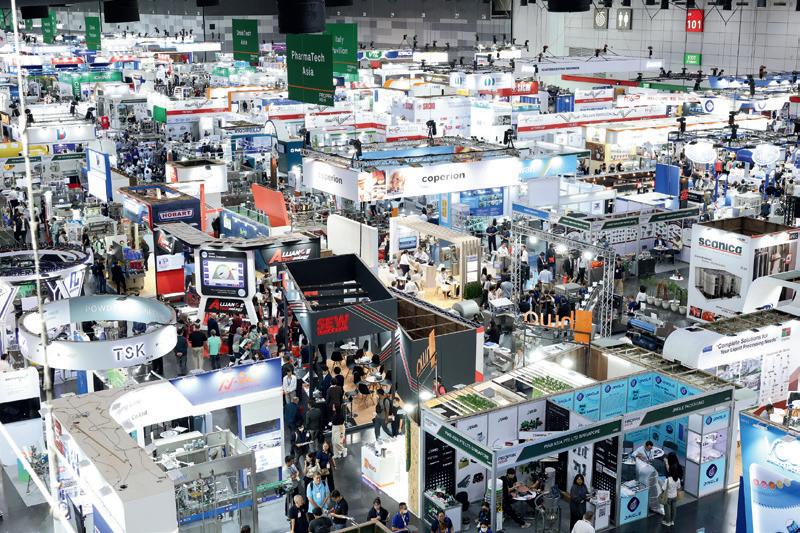

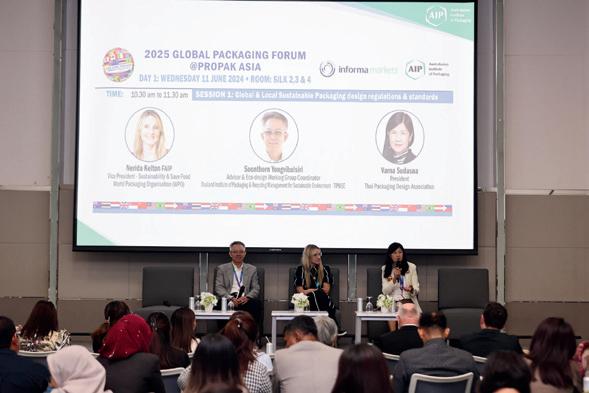
EXPERIENCE A WEEK OF UNPARALLELED OPPORTUNITIES

nnual Global Packaging Forum: Gain insights from industry leaders.

Exclusive Training Courses: Enhance your skills and knowledge.

Interactive Workshops: Collaborate and innovate.


Showcase Display: Witness cutting-edge packaging solutions.























AUSTRALASIAN INSTITUTE OF PACKAGING (AIP) IS THRILLED TO INVITE AUSTRALIAN AND NEW ZEALAND PROCESSING AND PACKAGING BUSINESSES TO JOIN OUR DEDICATED GROUP DELEGATION AT PROPAK ASIA 2026 DURING 10 – 13 JUNE IN BANGKOK!
JOIN THE AUSTRALASIAN INSTITUTE OF PACKAGING (AIP) GROUP DELEGATION AND GAIN
Access to leading suppliers across Food & Beverage, Pharmaceutical, Cosmetics, and related industries. Exclusive networking with key industry decision-makers. Benefit from complimentary airport pick-up and drop-off services, as well as a shuttle bus service between the hotel and the venue during your stay. Delegates may be eligible for complimentary accommodation for a seamless experience. Enquire today!




“It was great to be part of the first Australasian Delegation, hosted by the Australasian Institute of Packaging, at ProPak Asia 2025. ProPak Asia is thriving, with strong industry engagement and many returning exhibitors. AIP’s training sessions and workshops drew strong interest, and the AIP PIDA showcase was a standout.”
“Thank you so much AIP for organising the first-ever Australian Delegation and for the invitation for us to attend. Propak Asia was such a great show, fantastic exhibitors, very well run, the AIP stand featuring all the PIDA winners was amazing, and the organisation of the delegation, dinners, and getting in and out of the show was seamless. Can’t wait to do it all again. Many thanks.”

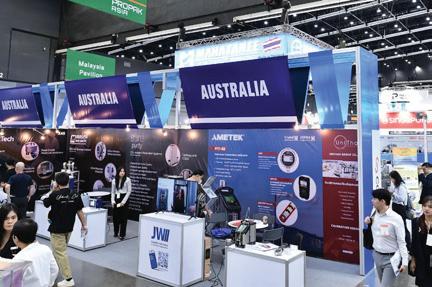

“Another year at ProPak Asia but this time around I was there as AIP Australasian delegate. Thank you to the AIP for the continuous support for those AIP Members outside of Australia. Your continuous effort in organising events and upskilling packaging professionals around Asia is commendable. I was also very lucky to gain knowledge from Ralph Moyle and Prof Pierre Pienaar during the four days. Their experience and efforts to share knowledge to people of all different levels is quite remarkable.”
WHEN: 26 - 29 July 2026
WHERE: Melbourne Convention and Exhibition Centre
WHAT: Australia's Leading Trade Event for Food Processing, Packaging and Innovation


The manufacturing sector is vitally important for our economic future, with food and beverage processing being Australia’s largest manufacturing industry. For over 50 years, foodpro has gathered the industry to celebrate the contribution of Australian food producers, distributors and manufacturers� foodpro connects professionals across the food and beverage value chain seeking cutting-edge solutions in processing, packaging, beverage equipment, digital technologies, logistics, and sustainability to drive efficiency, compliance, and growth�
Foodpro returns in 2026 to the MCEC as Australia’s leading event for the food processing and manufacturing industry
The AIP will be once-again partnering with foodpro with an exhibition stand, some packaging sessions and training courses Stay tuned for more information
WHEN: 16 - 18 November 2026
WHERE: Shanghai New International Expo Centre (SNIEC), China
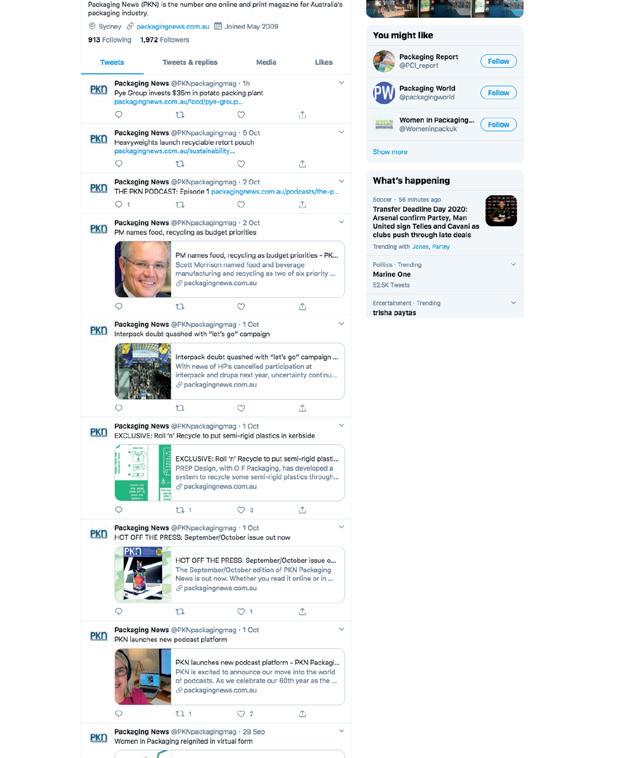


WHAT: swop is the essential event for the food, beverage, confectionery, bakery, pharmaceutical, cosmetics, non-food and industrial goods sectors No other trade fair in China represents the entire supply And at no other trade fair in China does the packaging industry provide all industry sectors with tailored solutions and innovative designs based on such a variety of materials
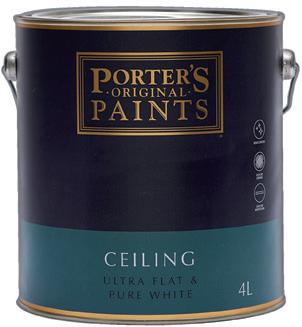
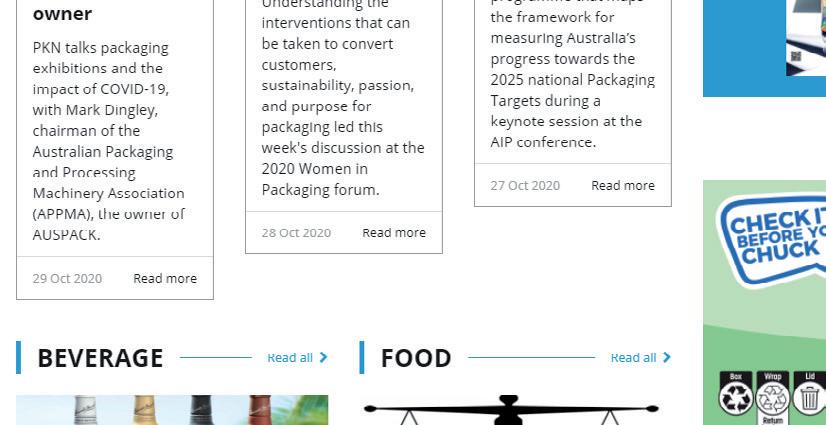







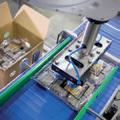
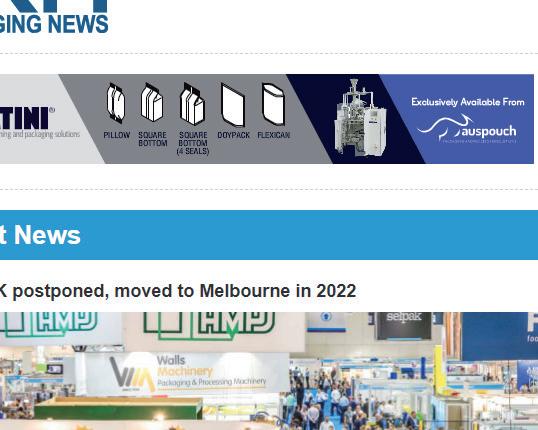
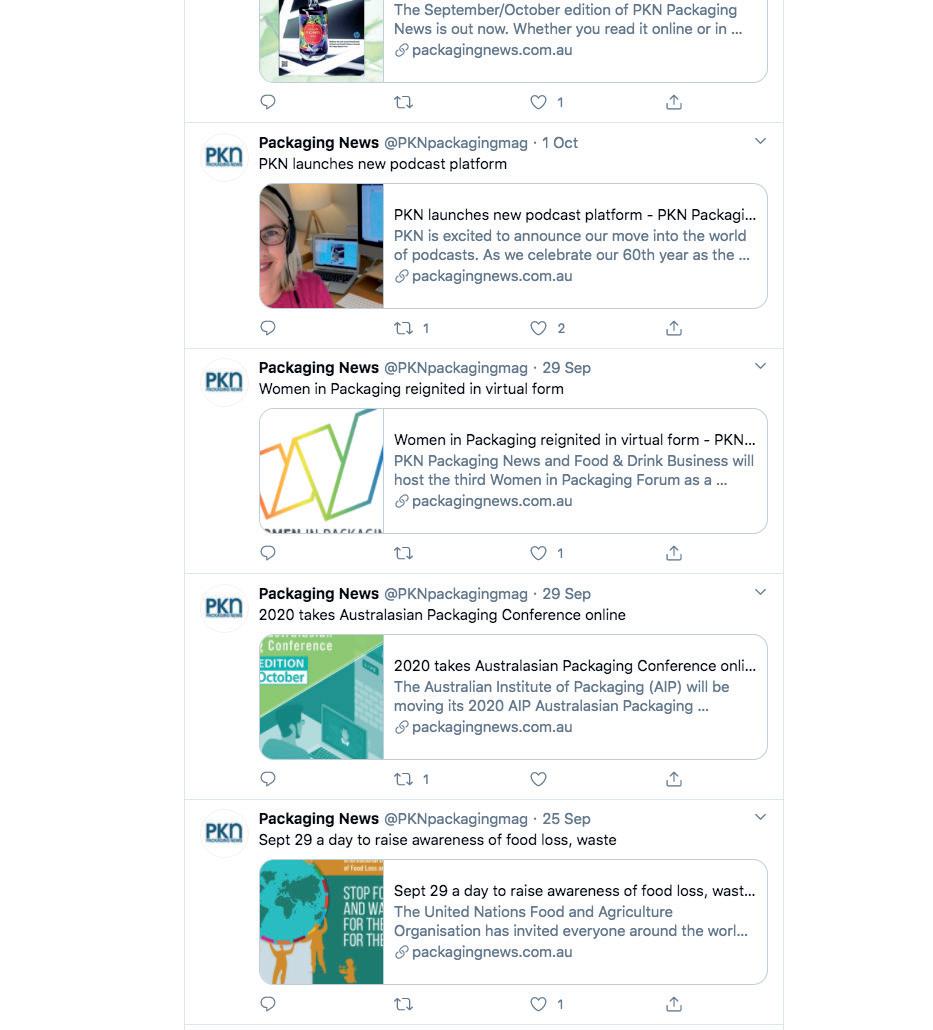




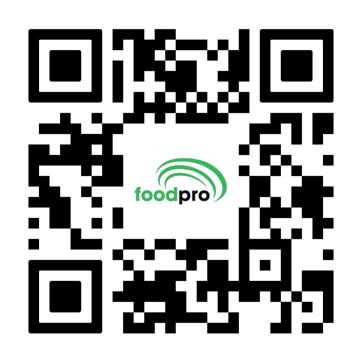
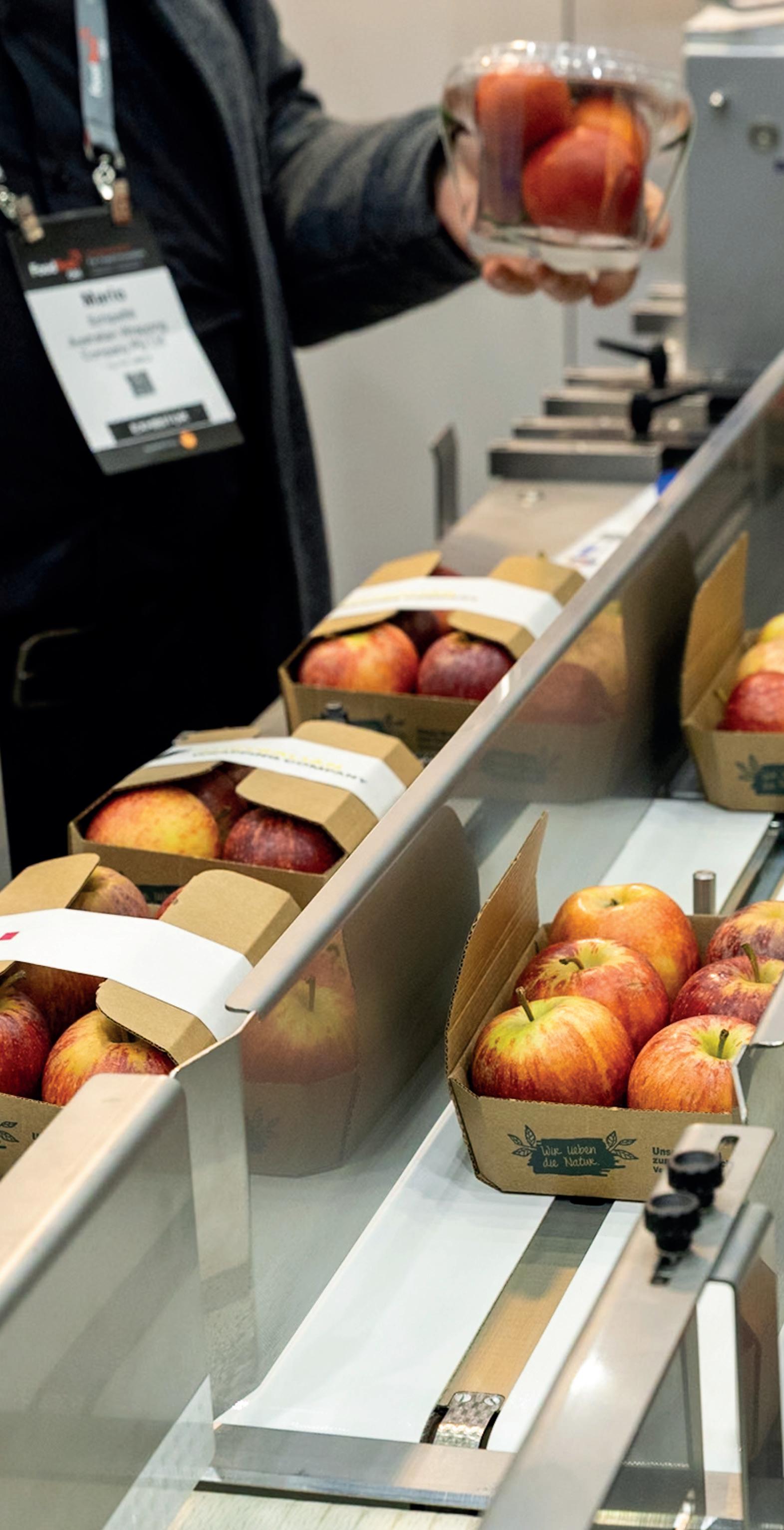


Well the first day of Foodtech Packtech was a day of learning with the AIP Australasian Institute of Packaging running a full day New Zealand Packaging Forum. Some of the sessions were so well attended we needed more chairs!
The 22 speakers were brilliant They were thoughtprovoking, honest and shared the barriers and challenges the industry is facing in New Zealand and Australia I have no doubt that attendees would have taken away many learnings and actions from the sessions
For me personally it was so wonderful to catch up with AIP Members and industry colleagues in New Zealand and the AIP looks forward to doing more locally to support the region�
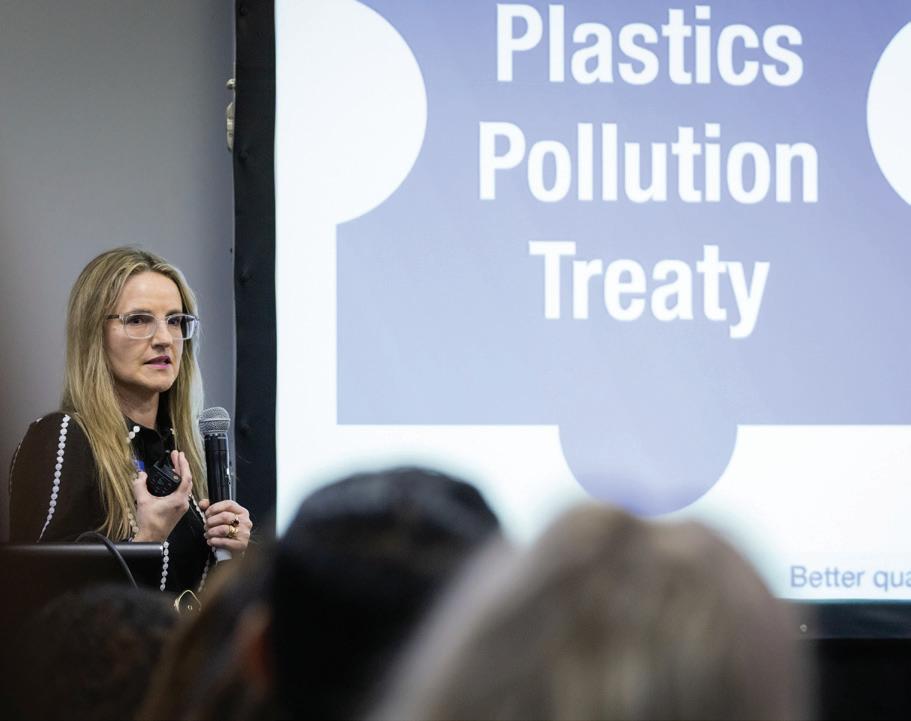
I would like to thank the moderators and time keepers for the day Joe Foster, Sarah Yanez, Alan Adams - GAICD and to the The Packaging Forum @NZ Food and Grocery Council NZIFST Plastics New Zealand for joining with us to offer a vibrant day of education
To the speakers, it is not easy to condense a presentation into a rapid fire showcase and you all did brilliantly! THANK YOU for contributing to the very important conversations we must have right now in the industry
We hope to make the NZ Packaging Forum bigger and better for the next edition and the one takeaway for me is that we CANNOT do this alone and a crosstasman approach is the only way forward�

The third and final day of Foodtech Packtech in Auckland, New Zealand, was extremely memorable as the AIP Australasian Institute of Packaging held not one, but two training courses in flexible packaging with Joe Foster as our lecturer, I caught up with lots of AIP Members, saw a PIDA Australasian Packaging Innovation and Design Awards trophy and a WorldStar Awards trophy on the Forward Plastics Limited stand for Apex Brands and discovered some fabulous innovations that I will share with you all in a wrap up article
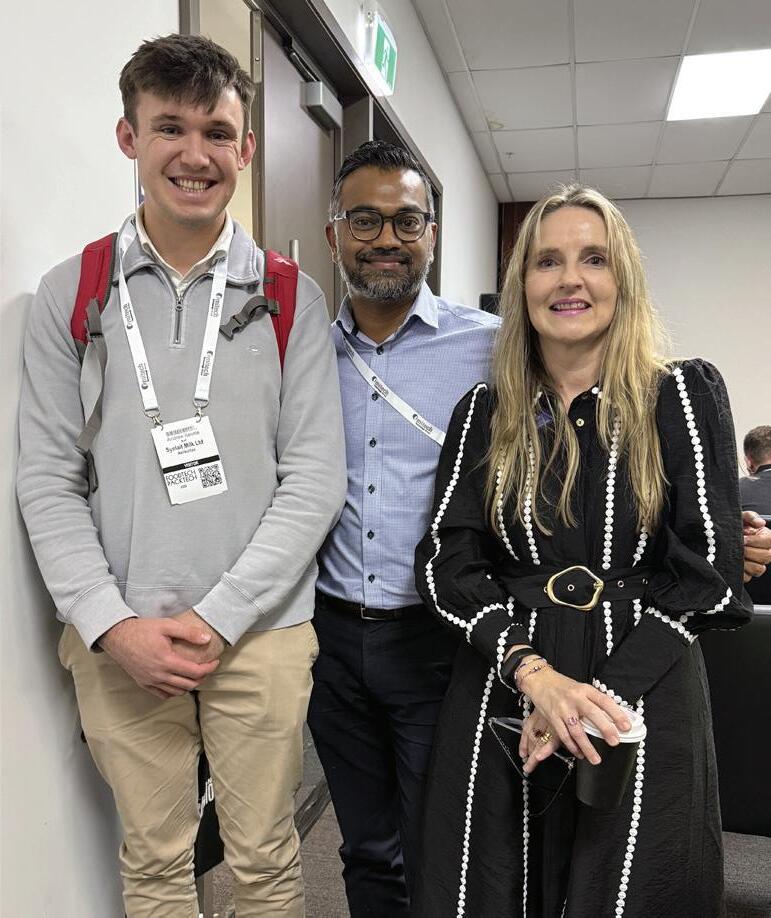
A highlight of the week was finding out that the AIP was a part of a Goodman Fielder treasure hunt Everyone had to find an AIP person and get a photo with them�
Thanks Christopher Jury MAIP for making my week
To Deb Haimes, Tony Waite, Dallas Abel, Brent Spillane and all of the team at XPO Exhibitions thank you for taking care of the AIP all week and for allowing the Institute the opportunity to offer educational content alongside each edition of Foodtech Packtech
We can’t wait for the 2027 edition!
Nerida Kelton FAIP
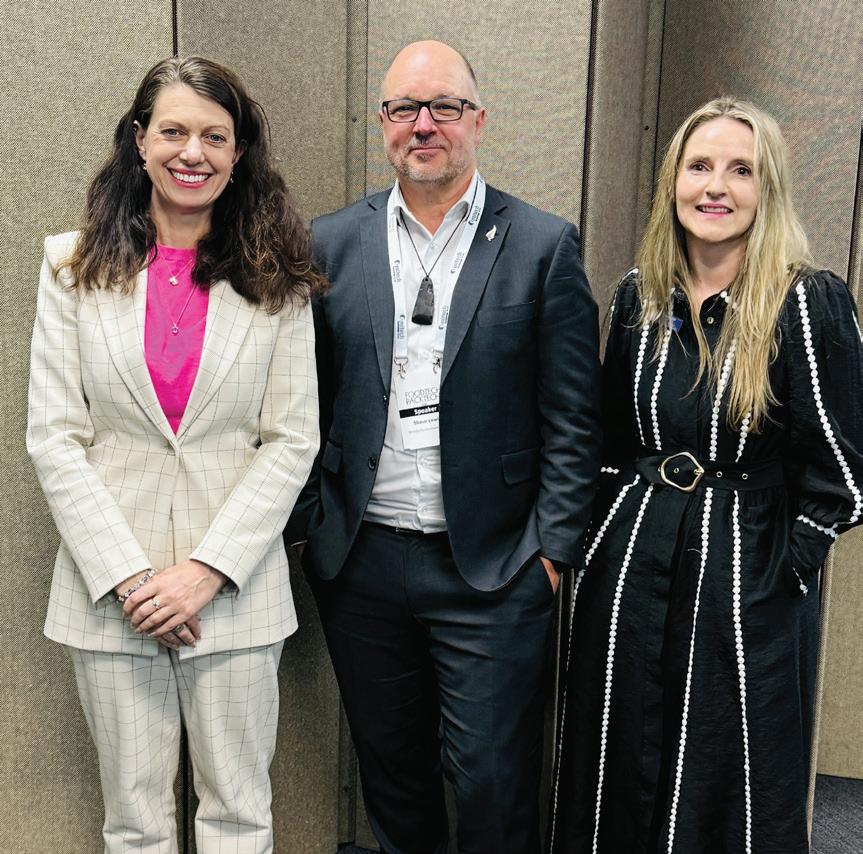
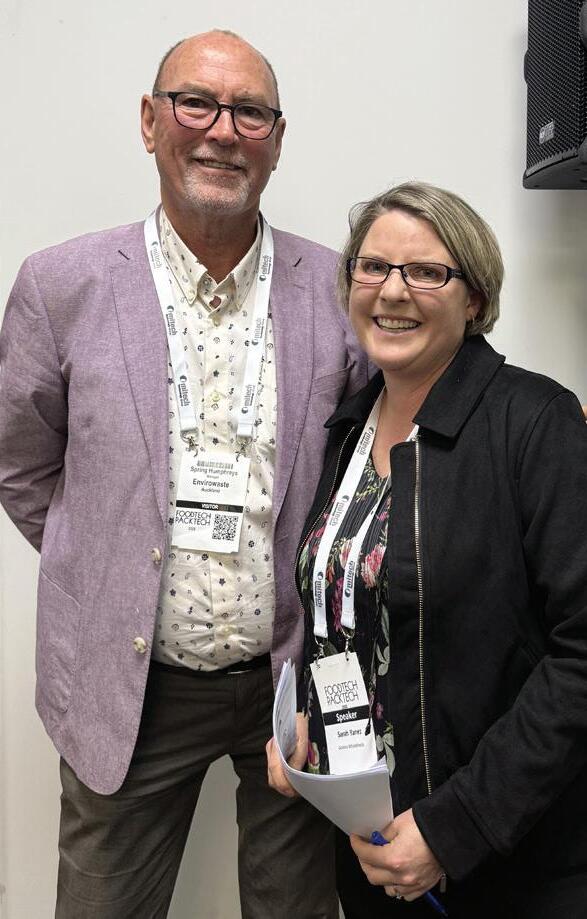
For me the absolute special moment of the entire week was my WPO colleague and friend Antro Säilä surprising me by turning up at the show, all the way from Finland. Never in a million years would I have imagined that Antro would be in Auckland, New Zealand with me! To say I was speechless was an understatement.
Nerida Kelton FAIP
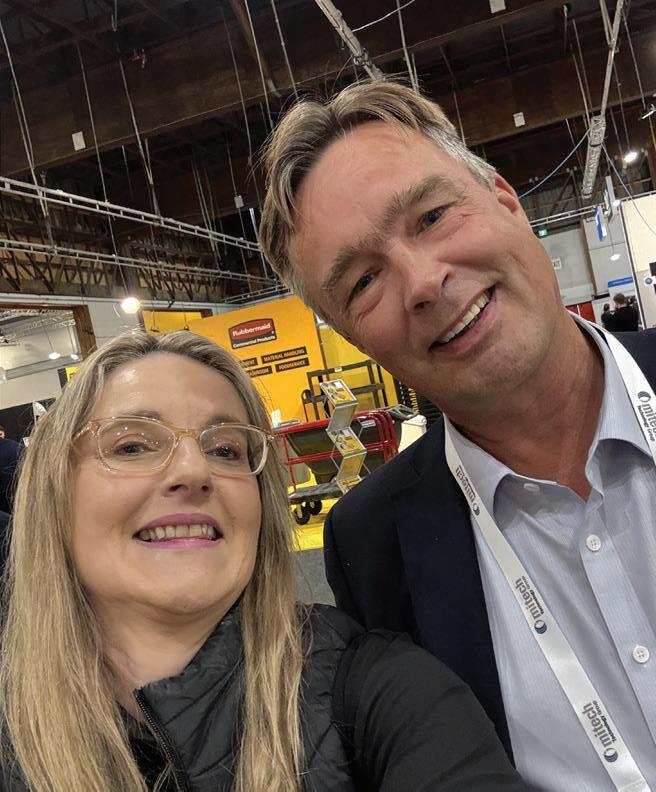
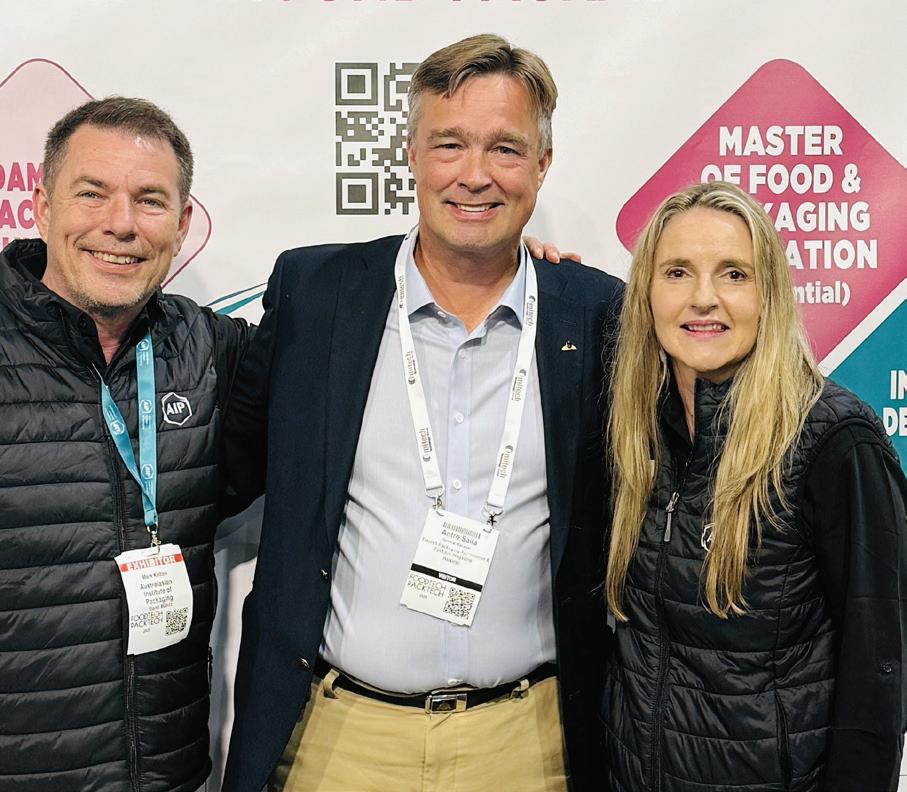




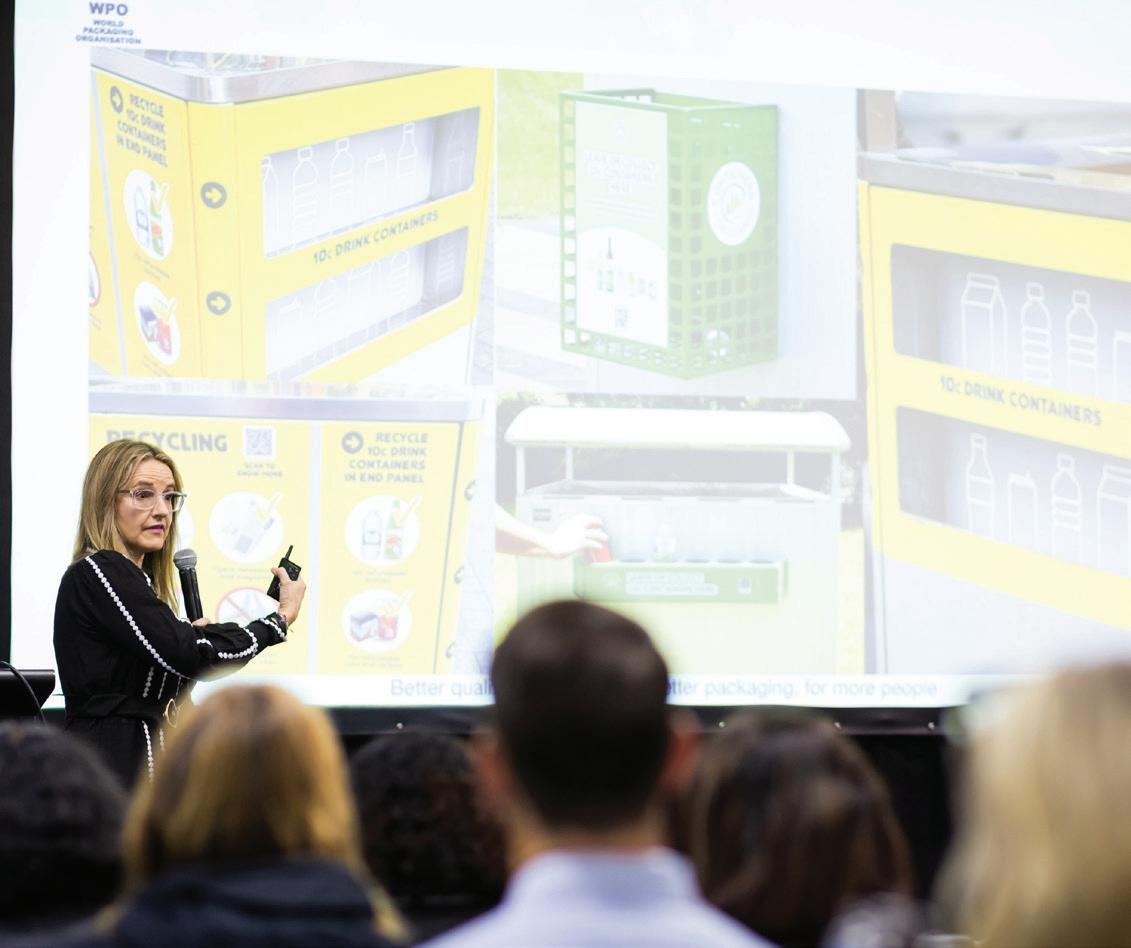
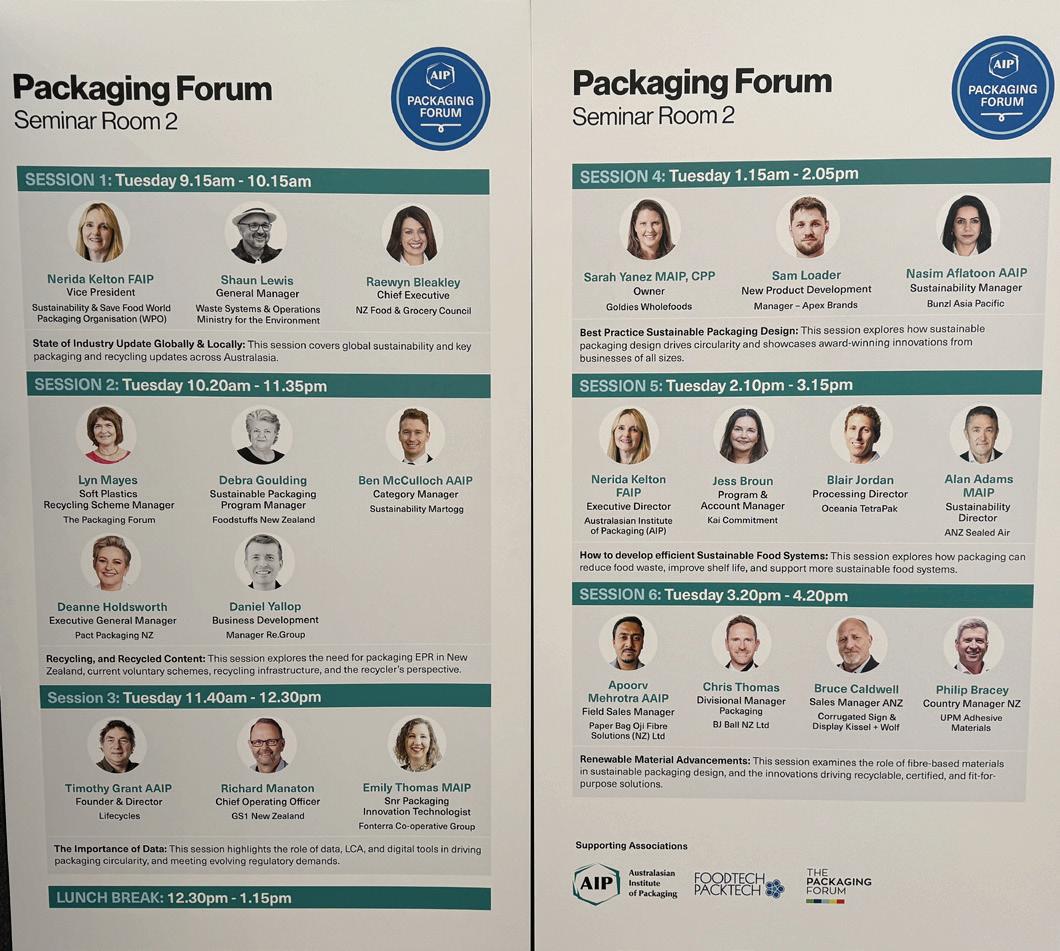



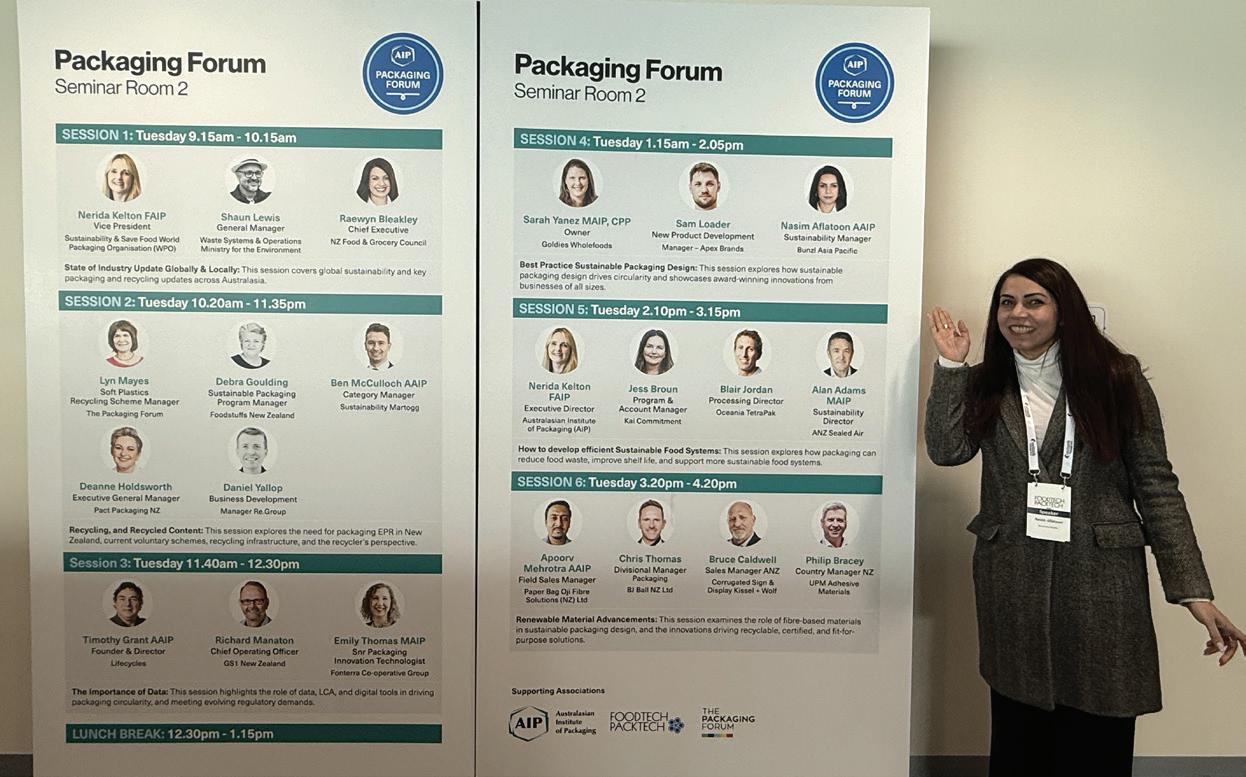
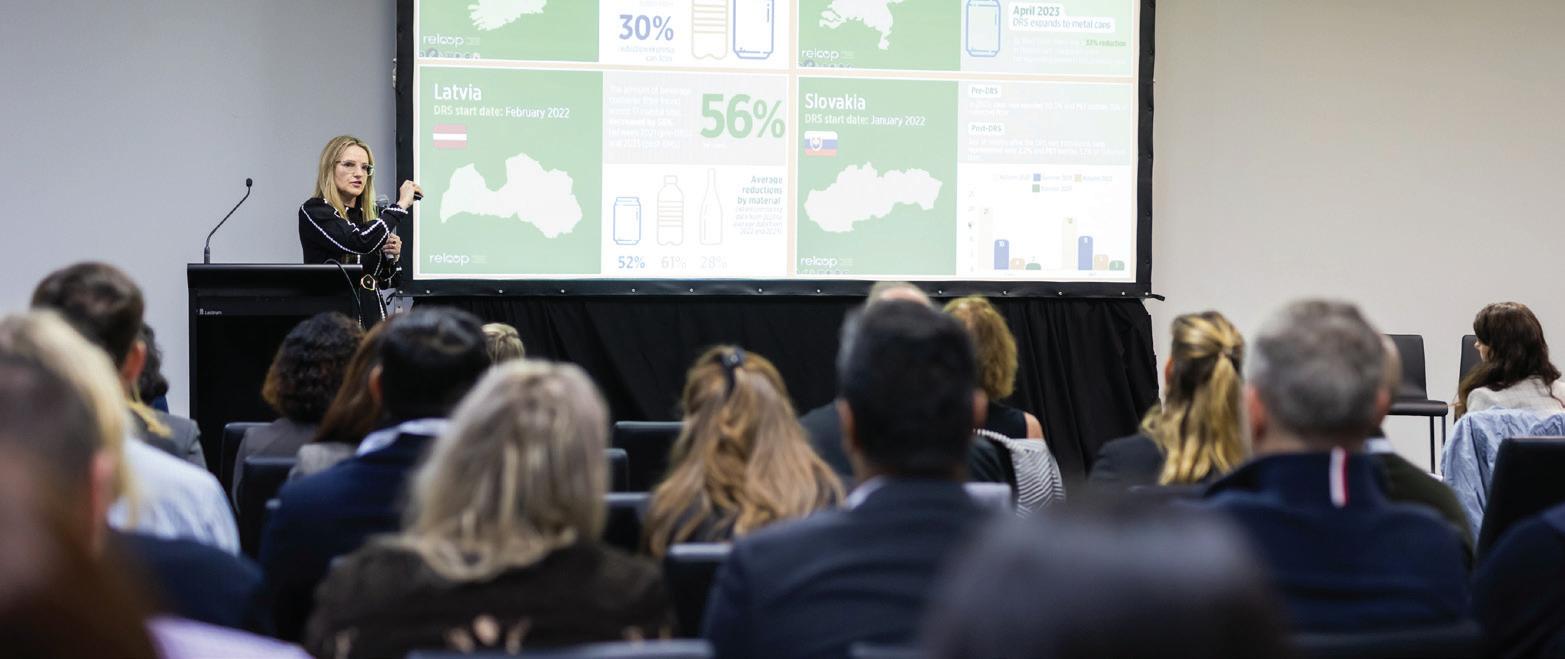
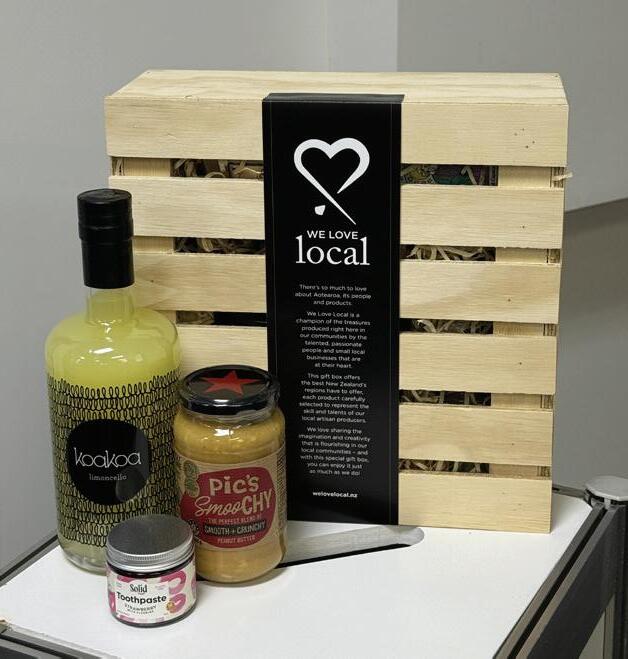
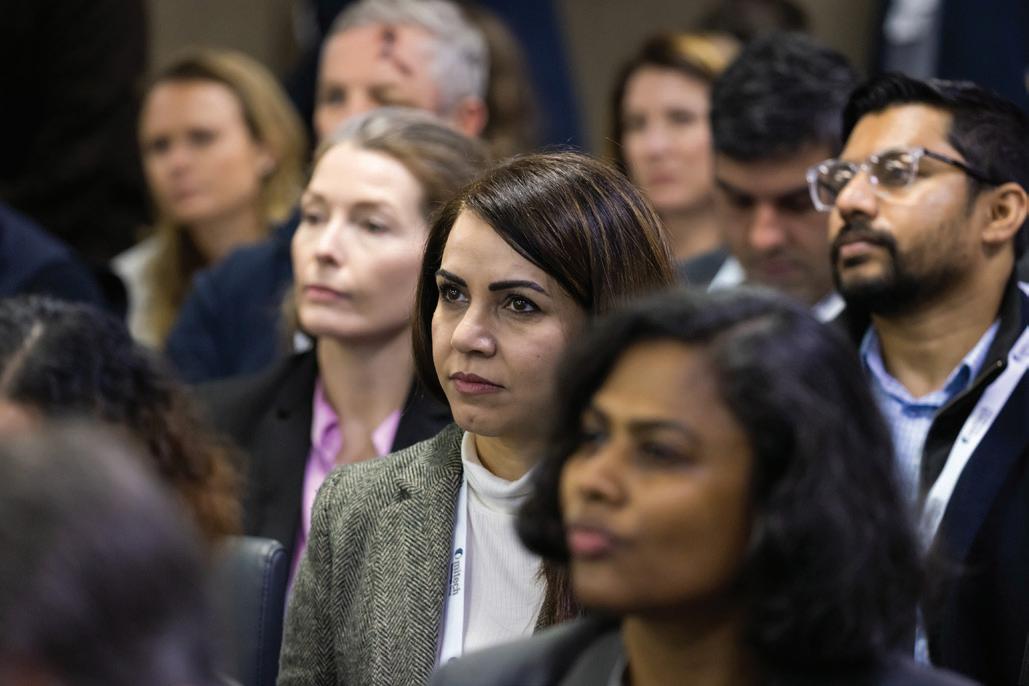
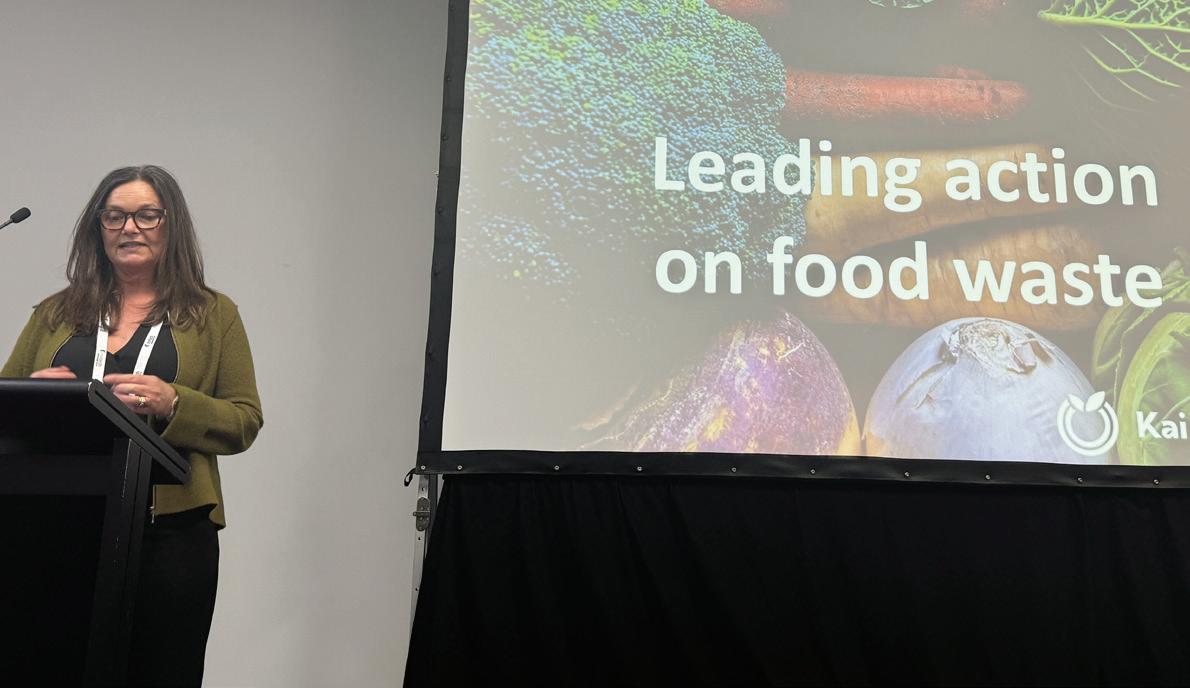


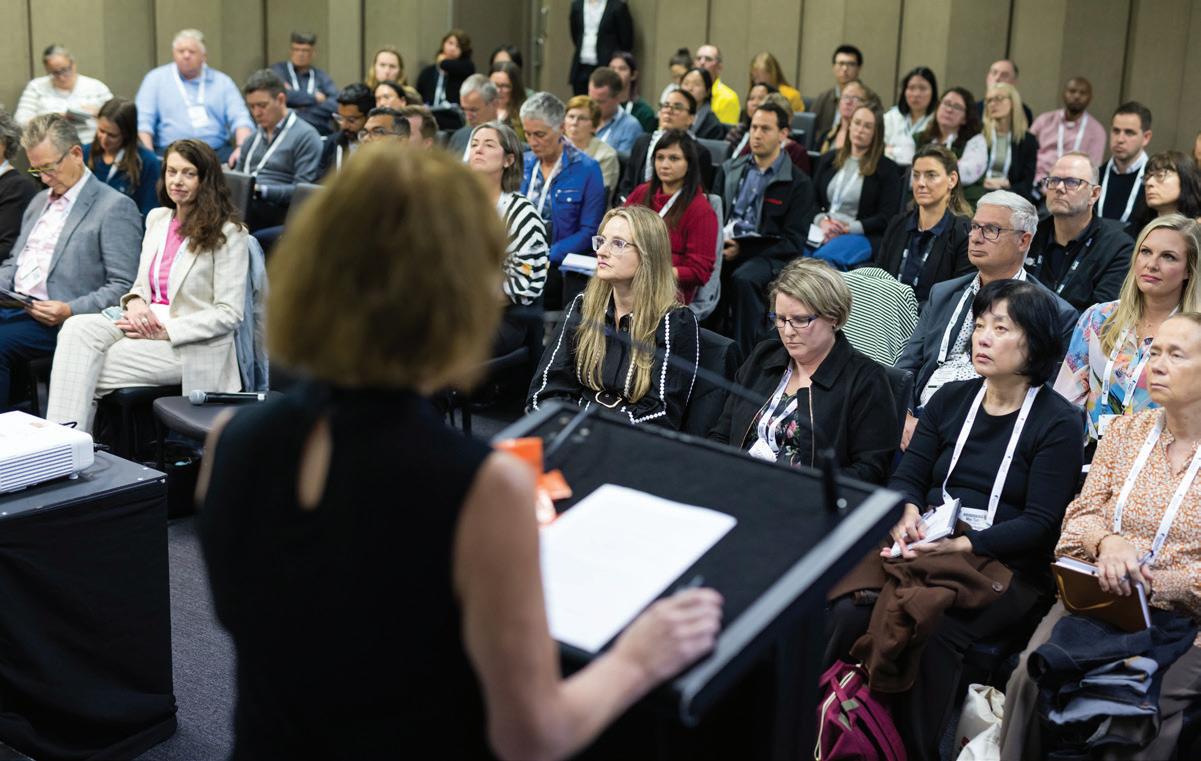
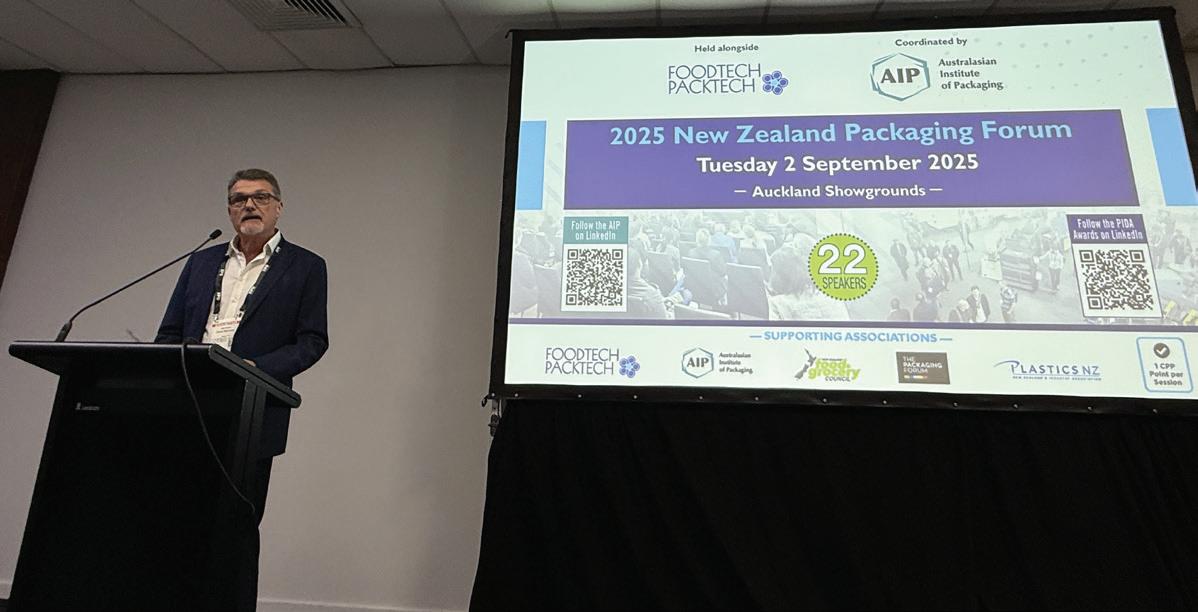
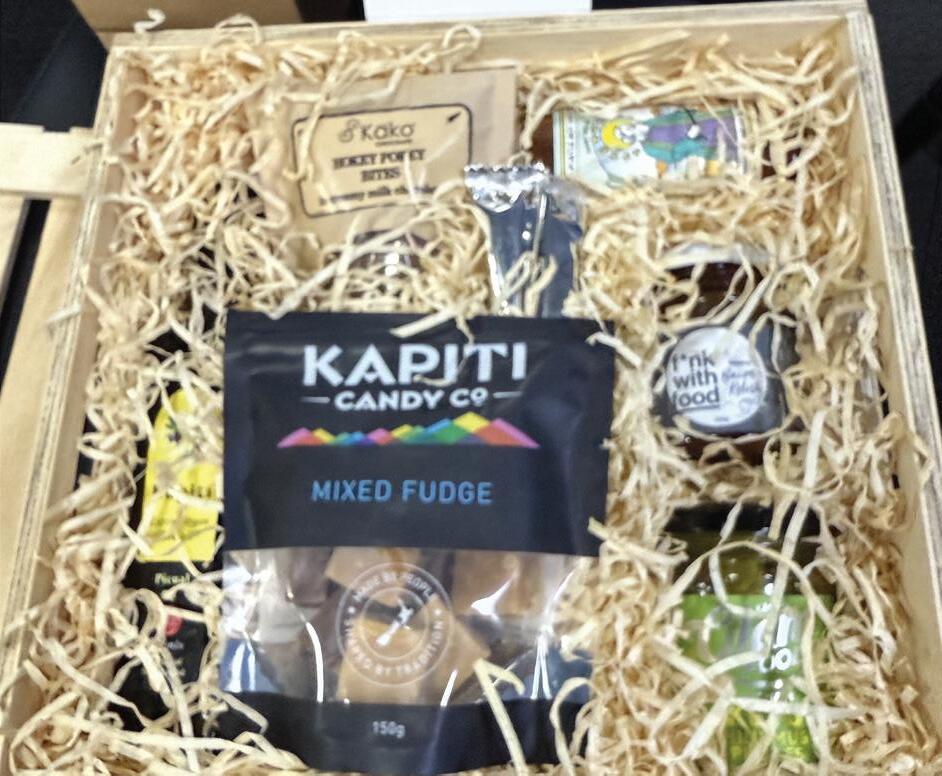
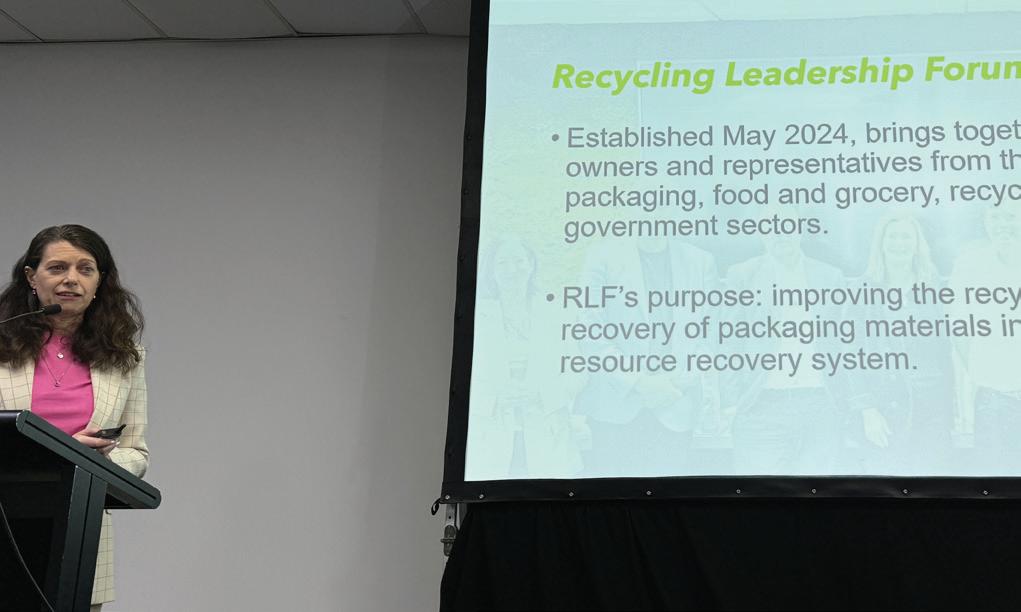
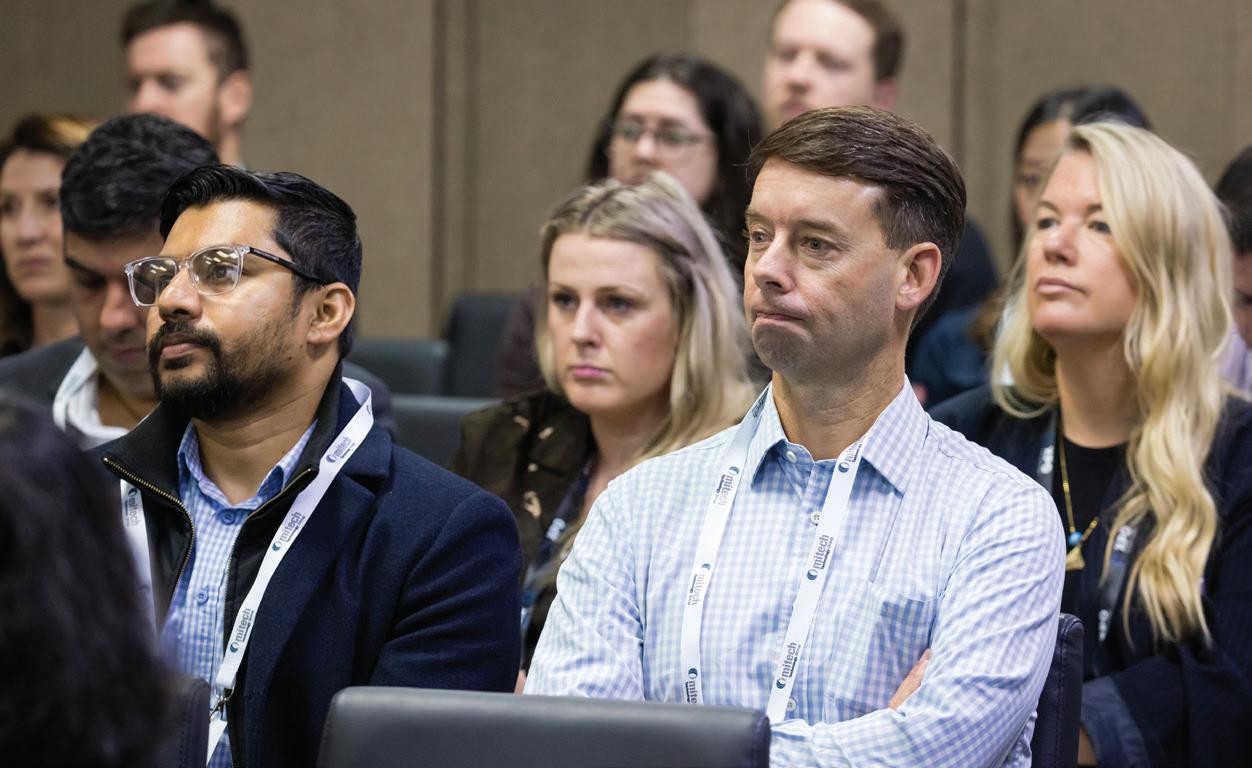

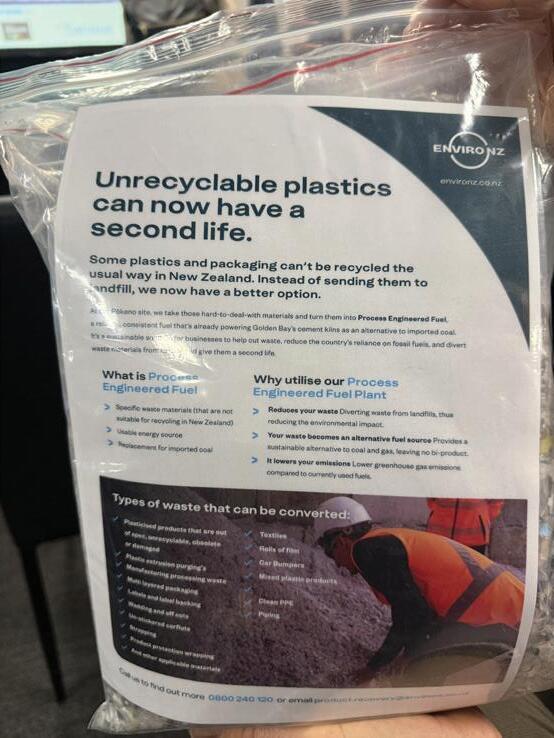
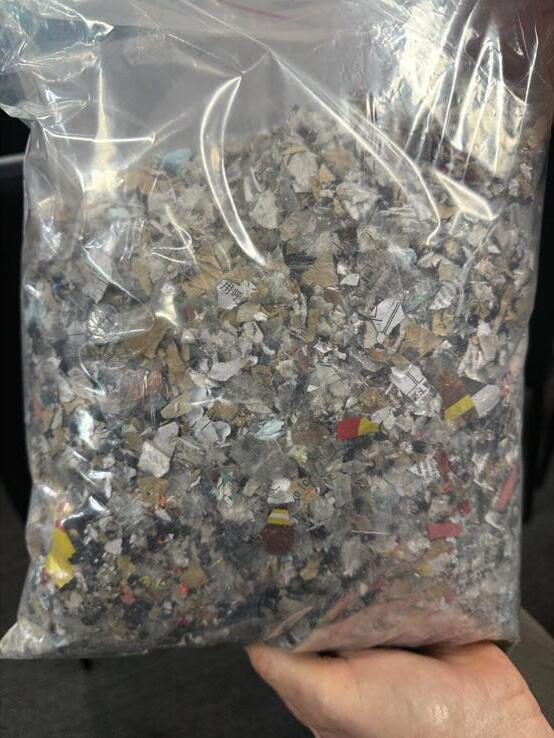



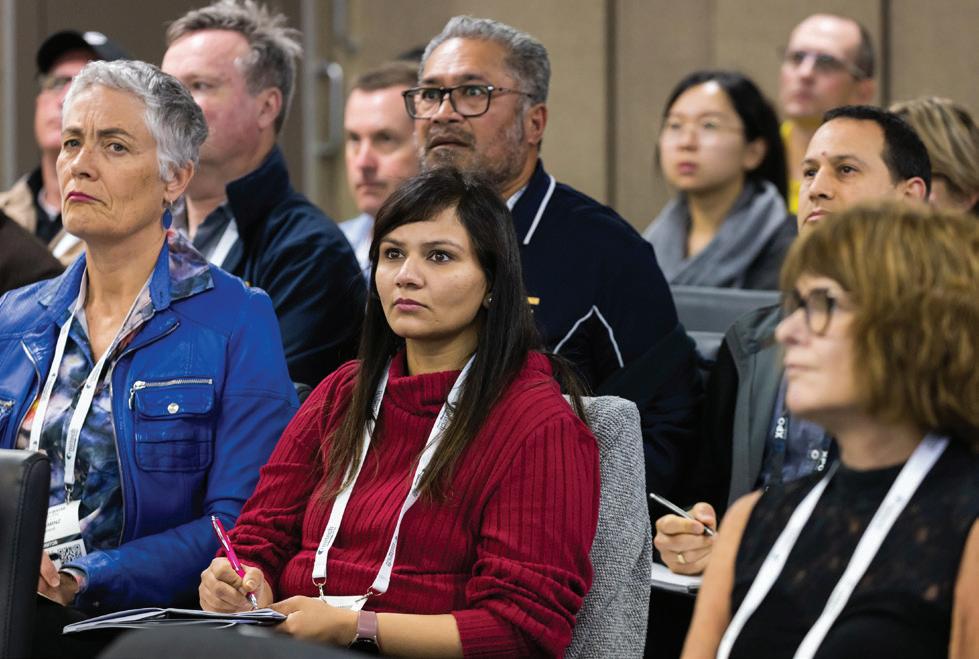
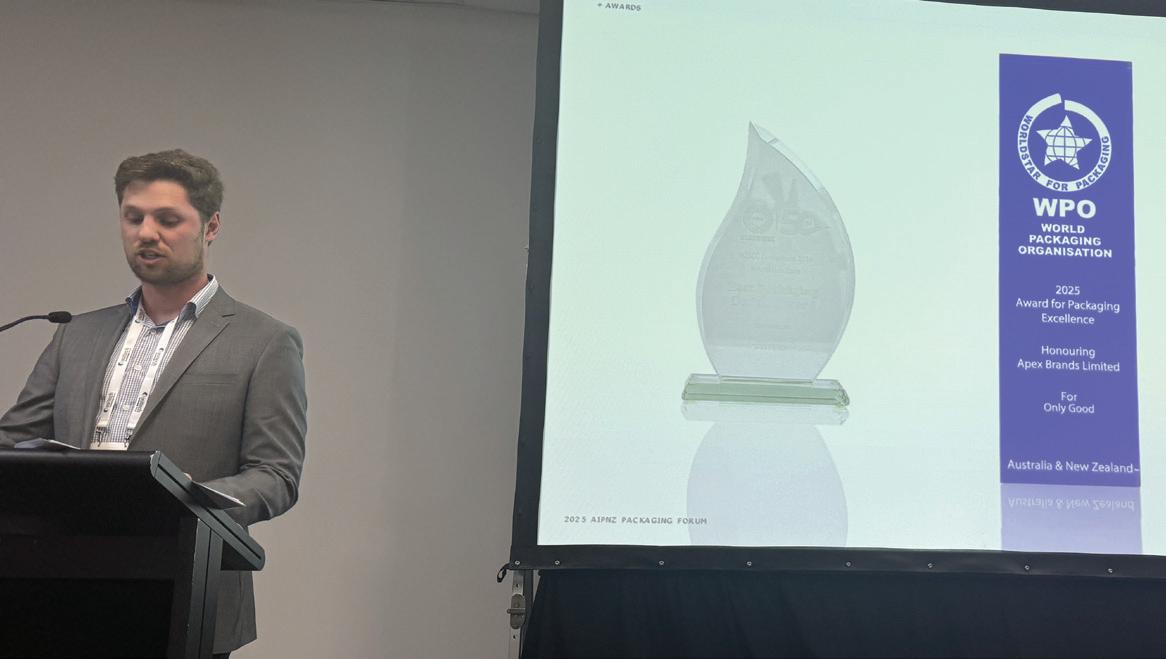

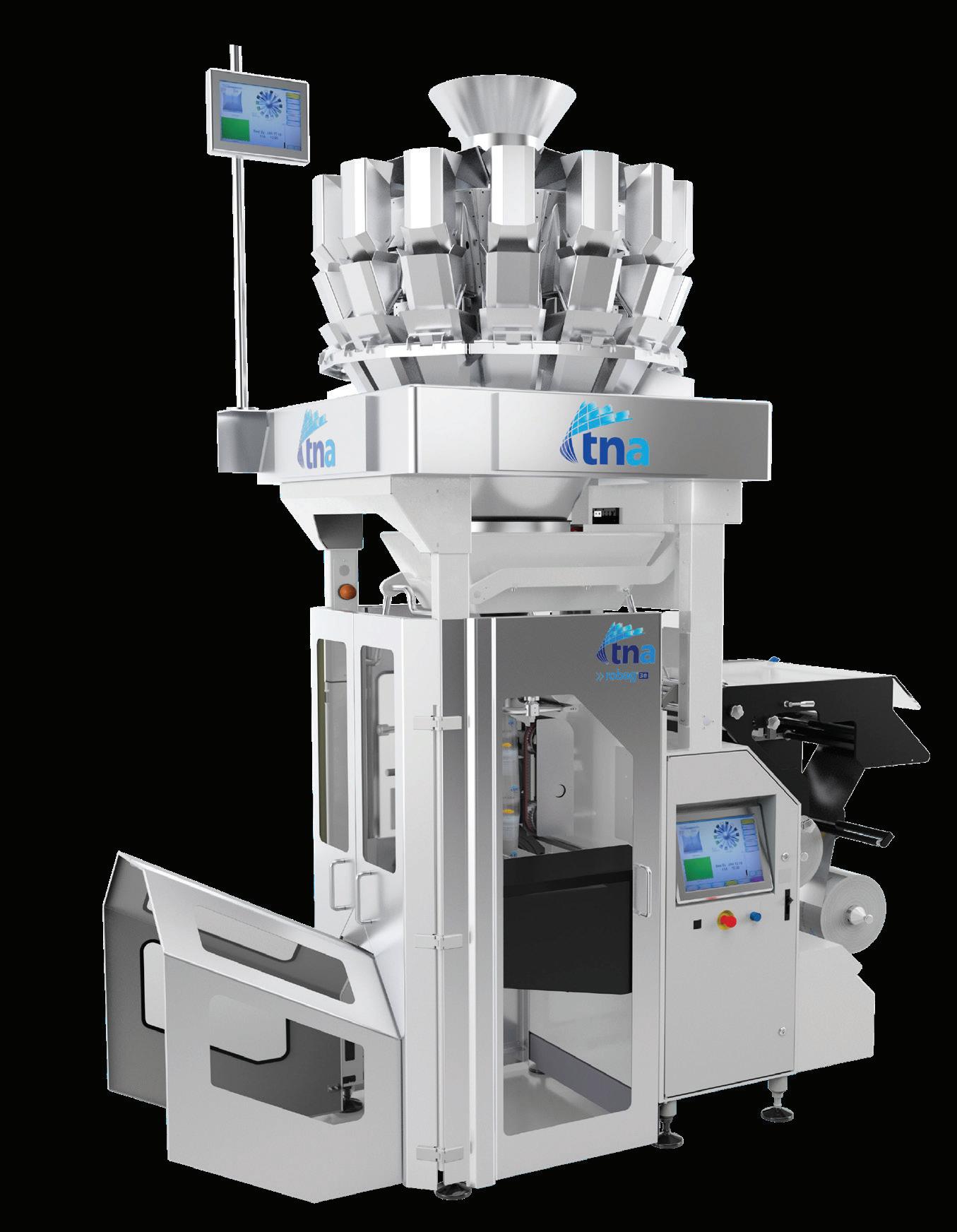
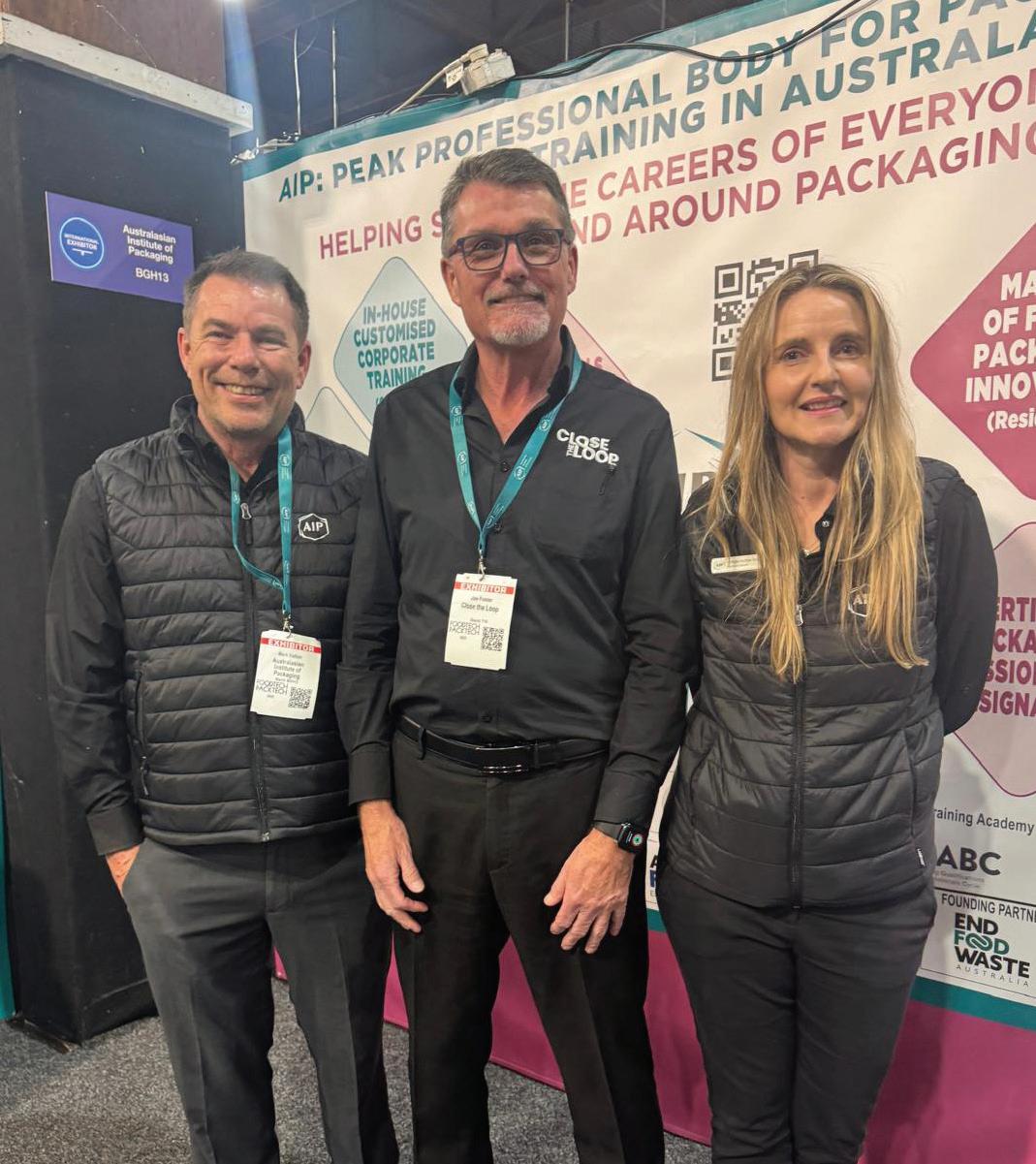
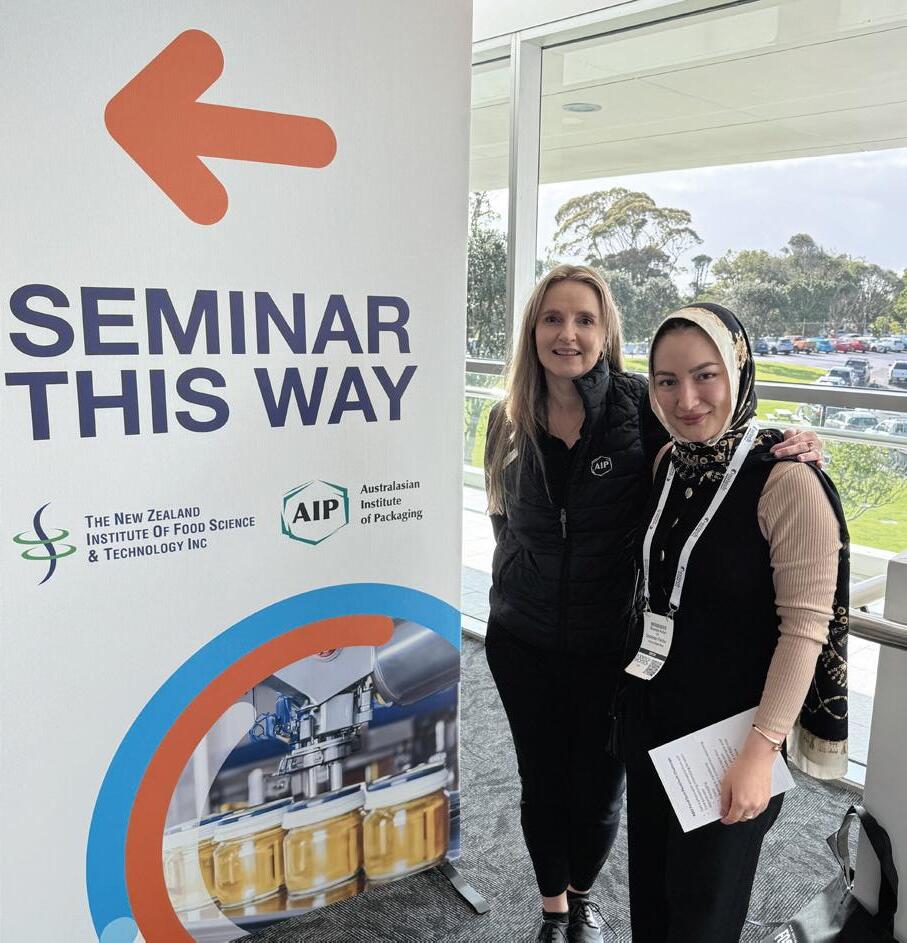
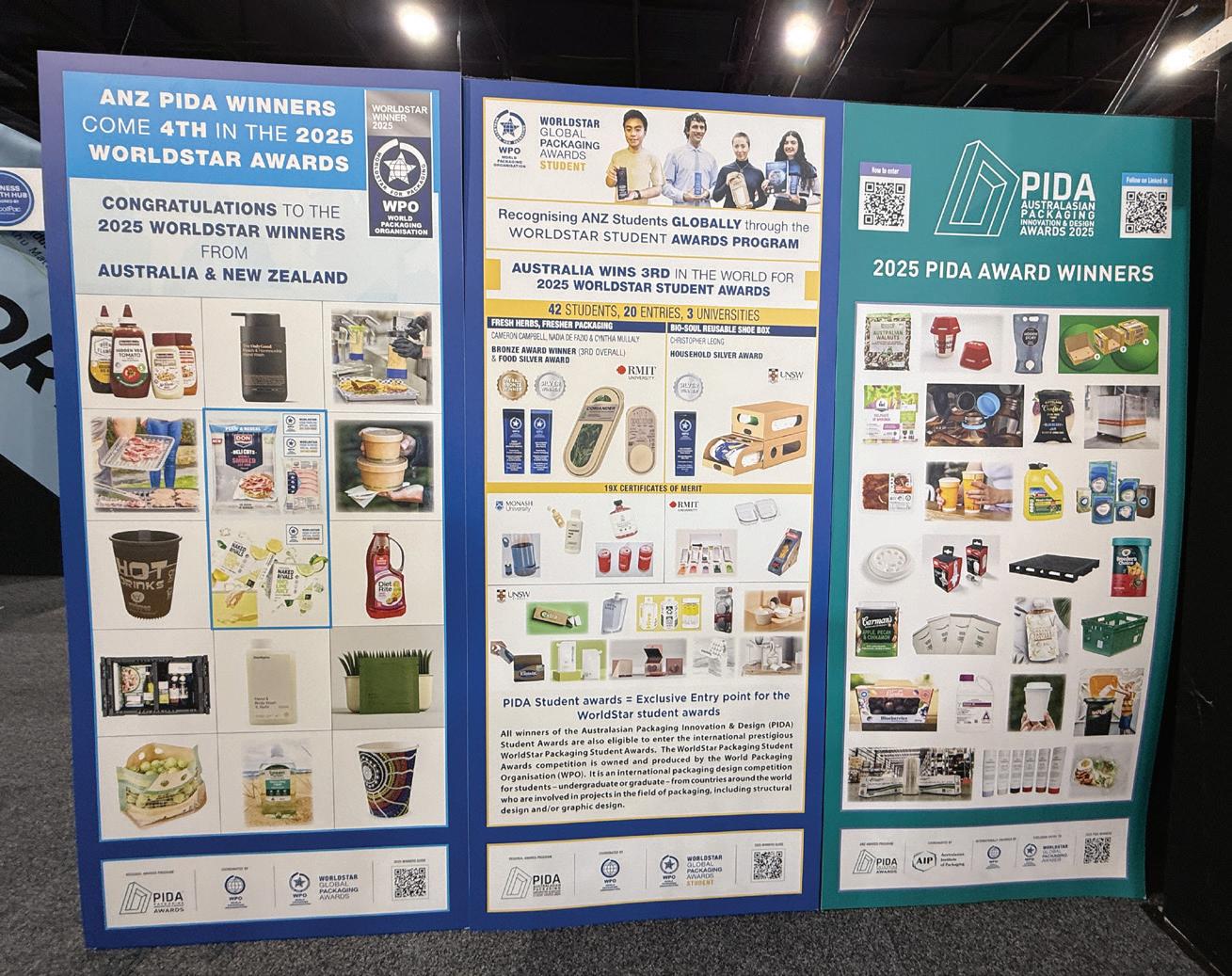
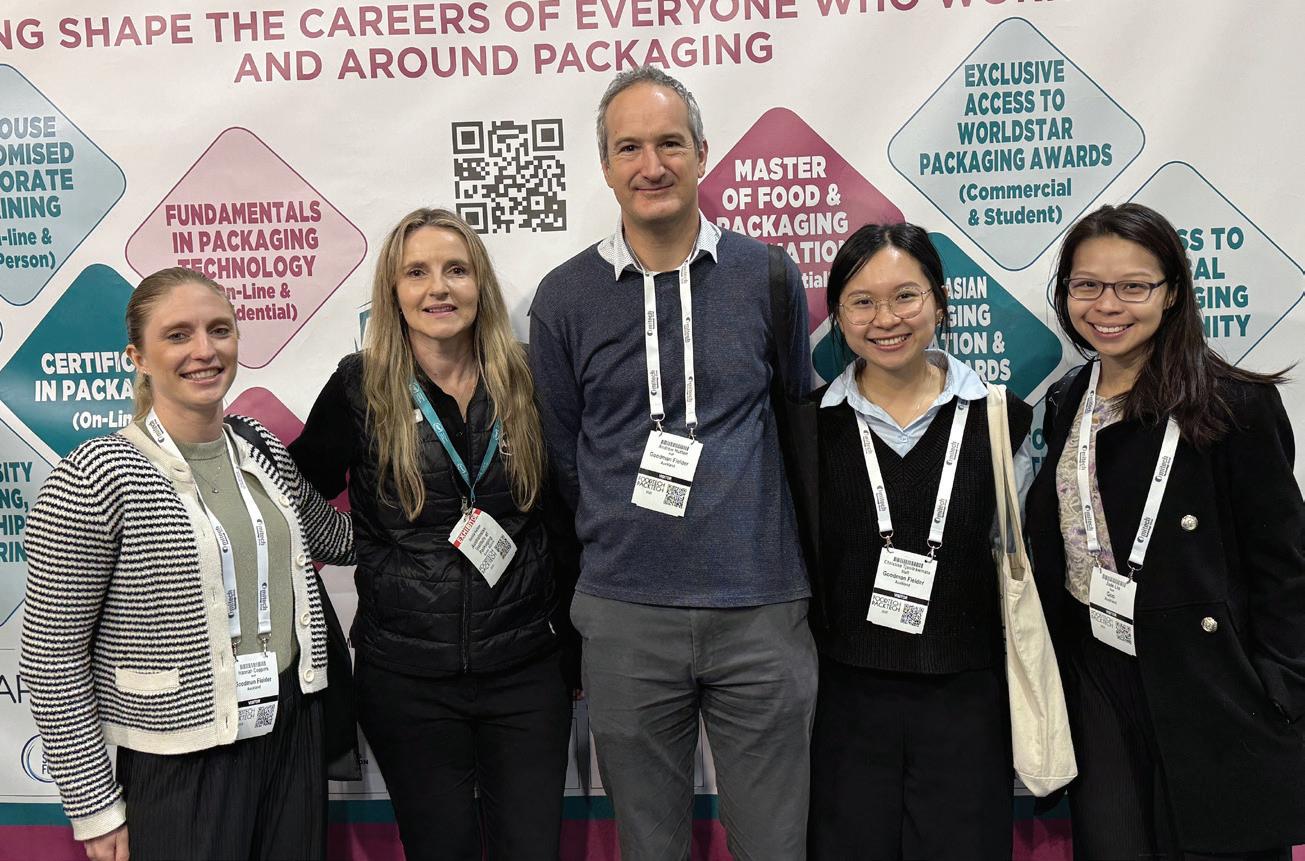
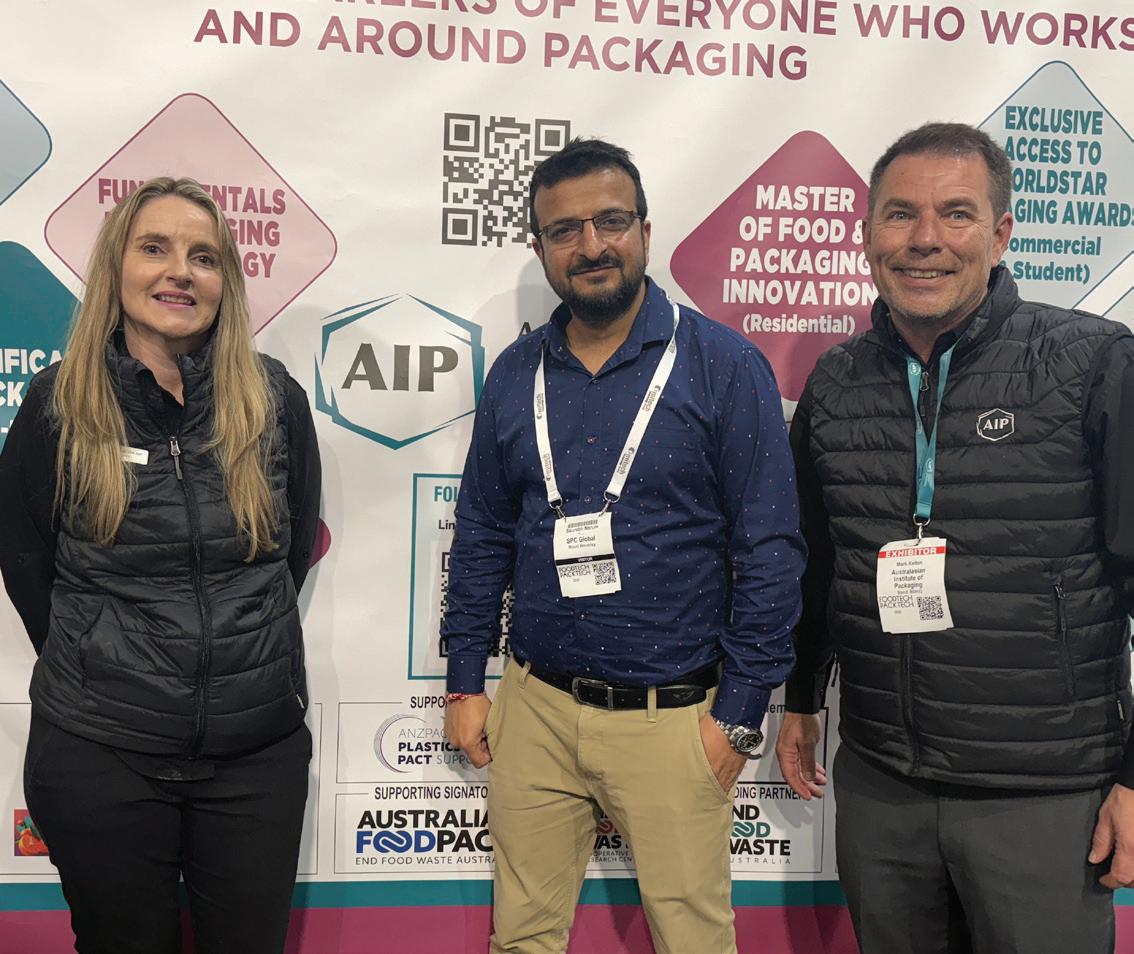




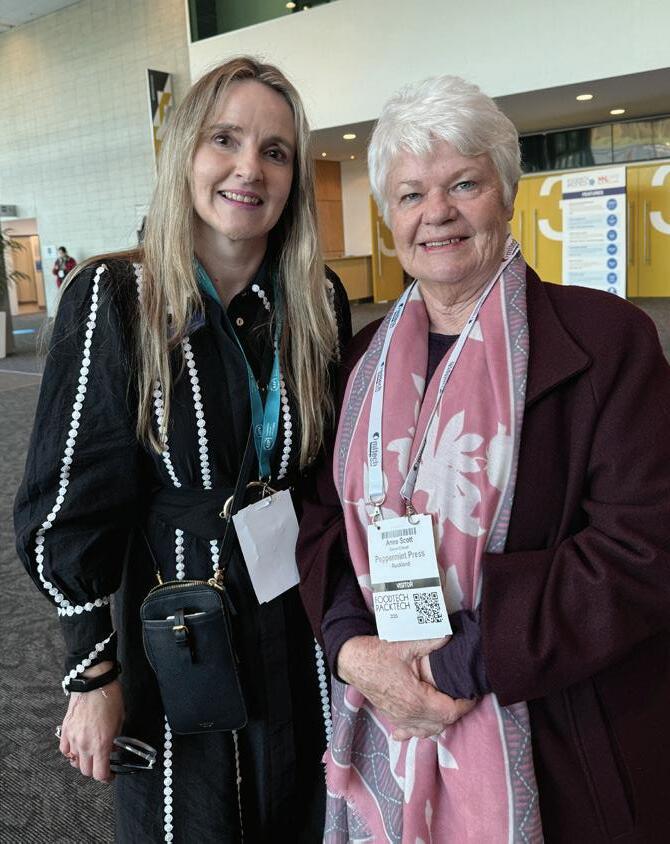
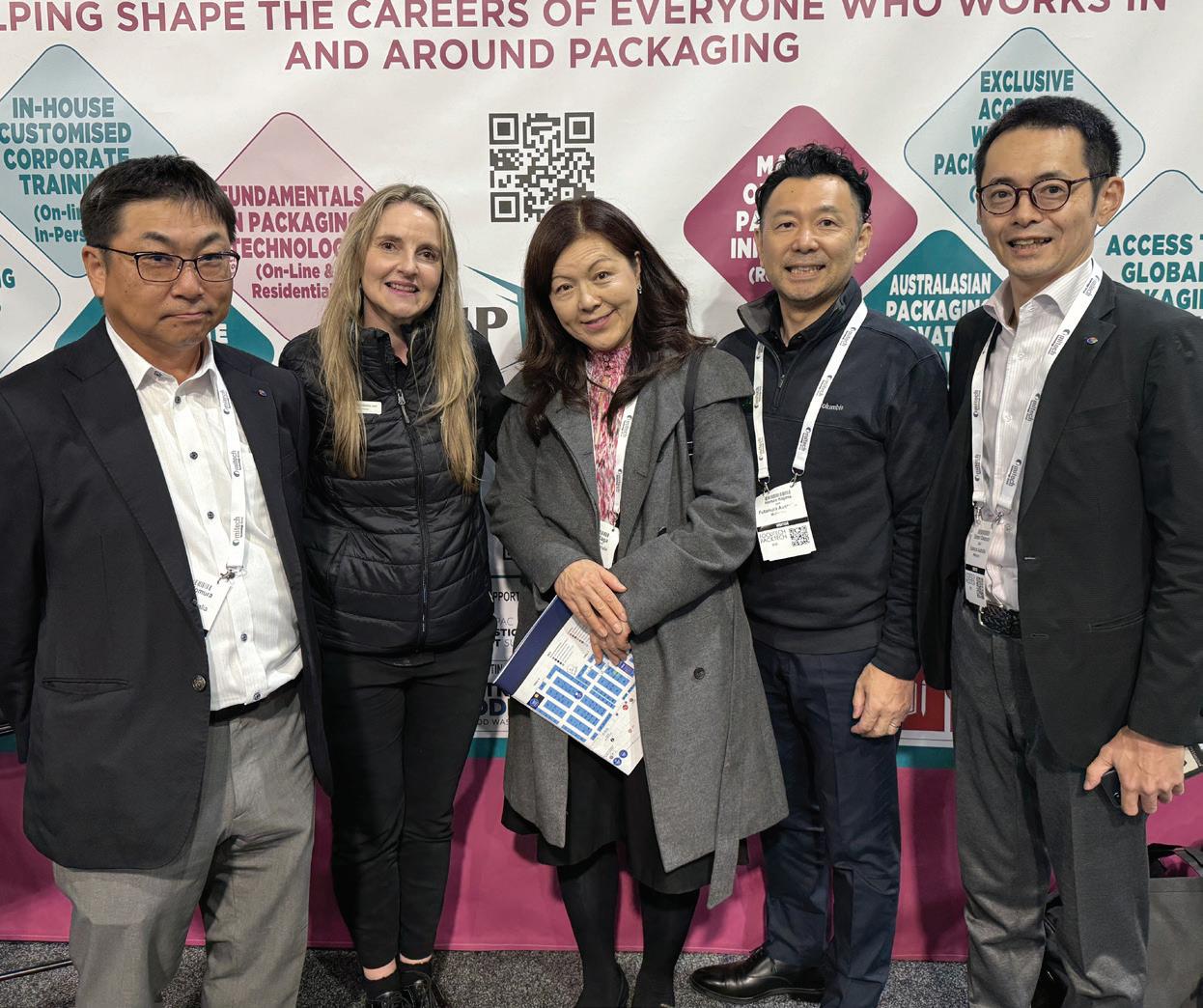




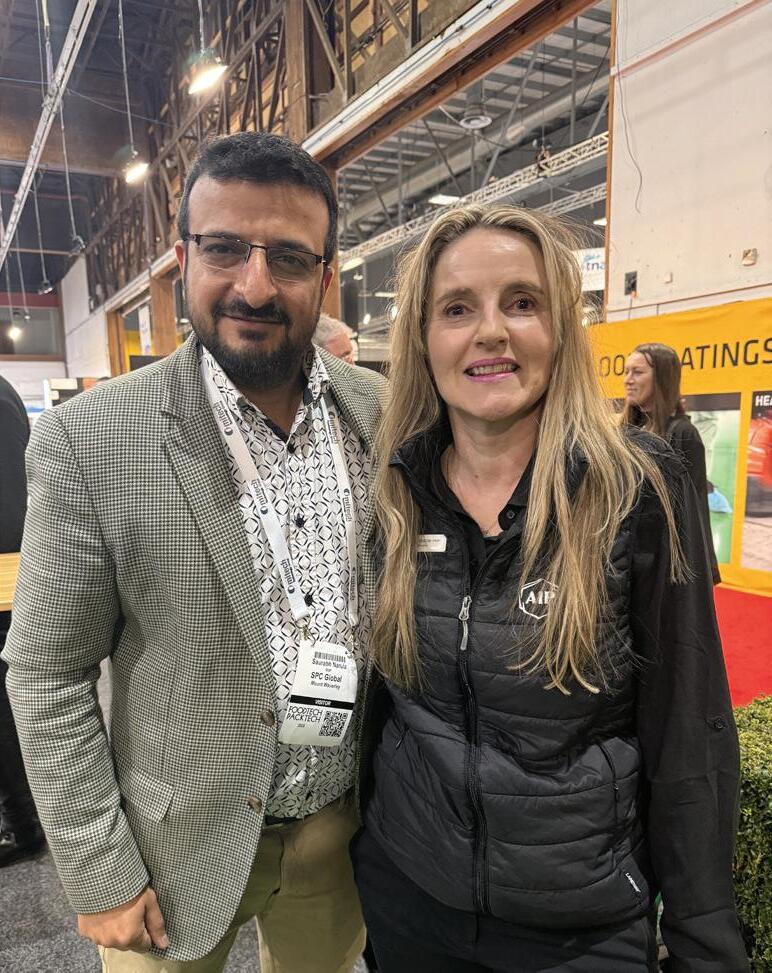

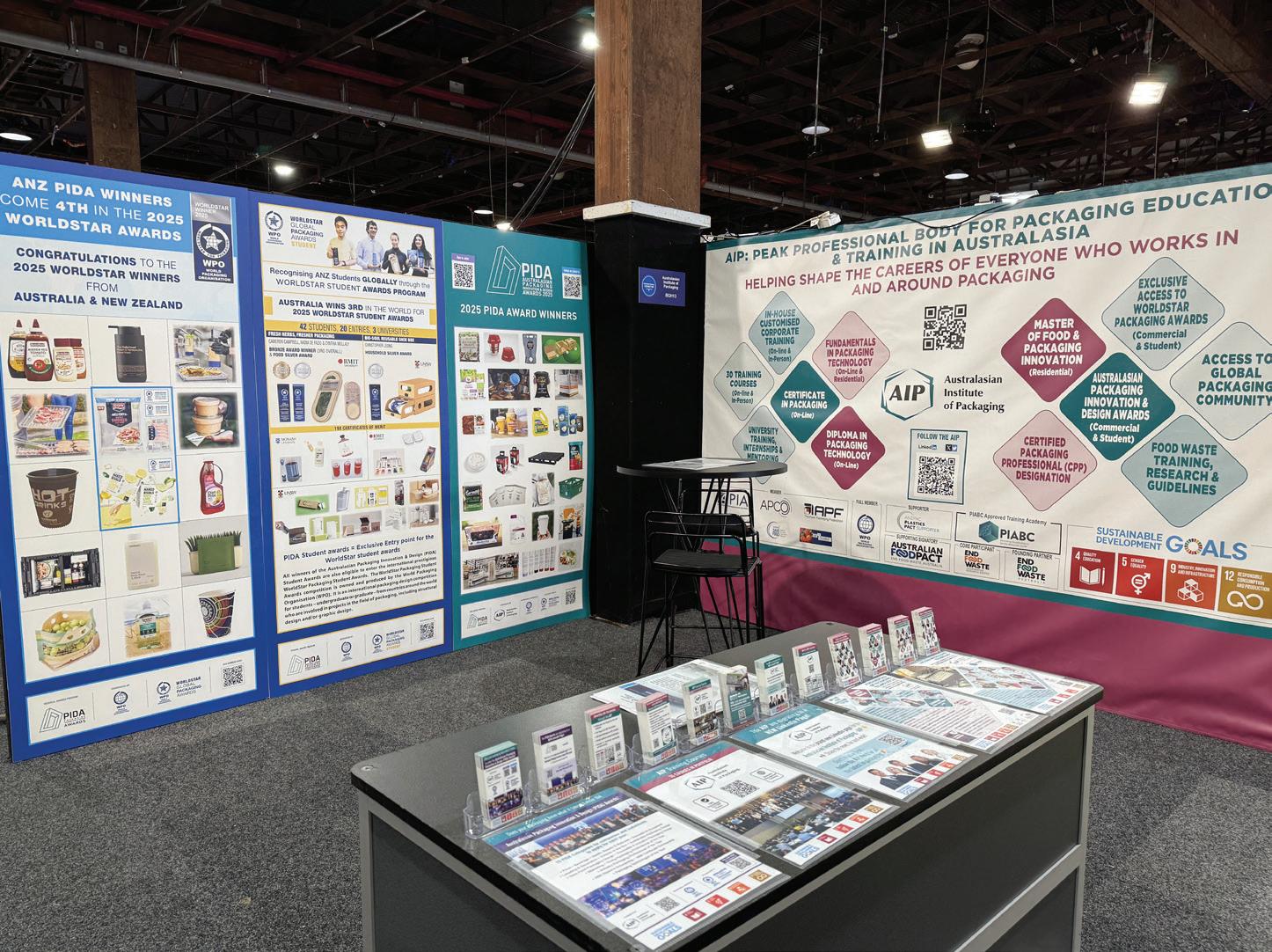



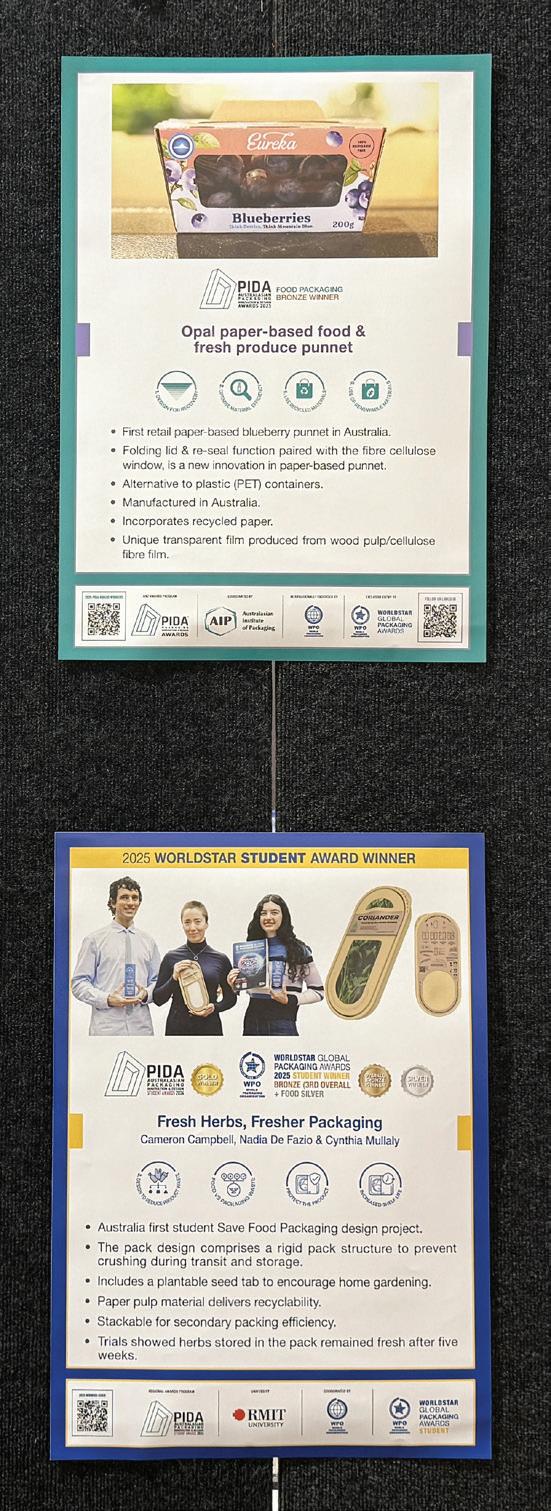







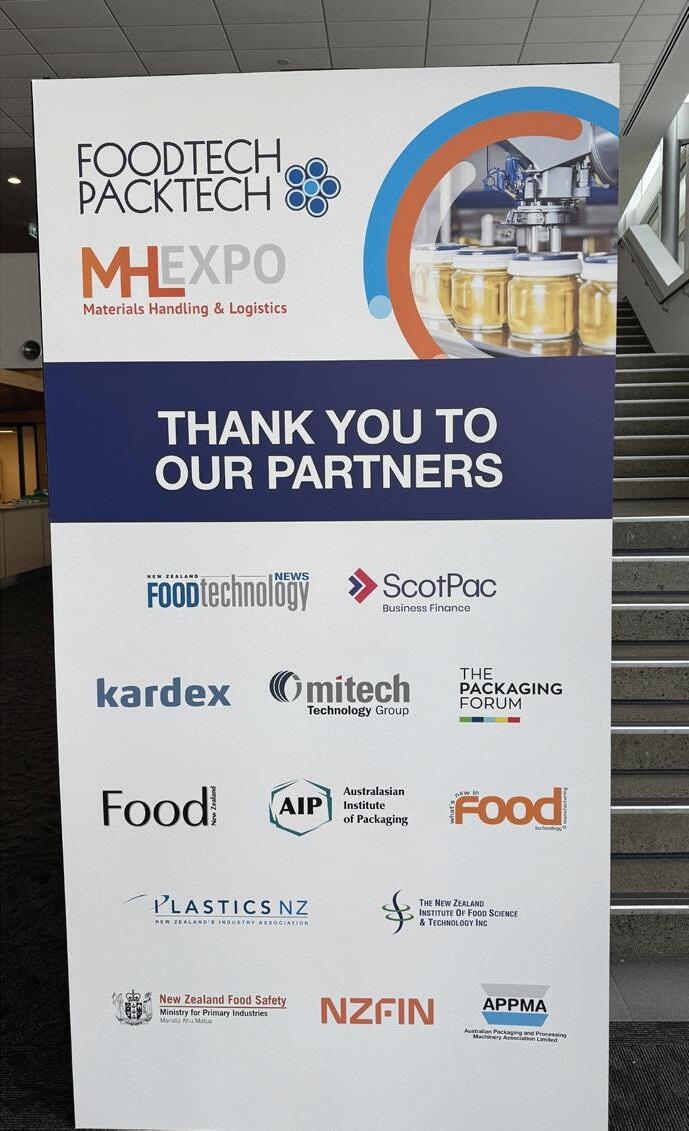
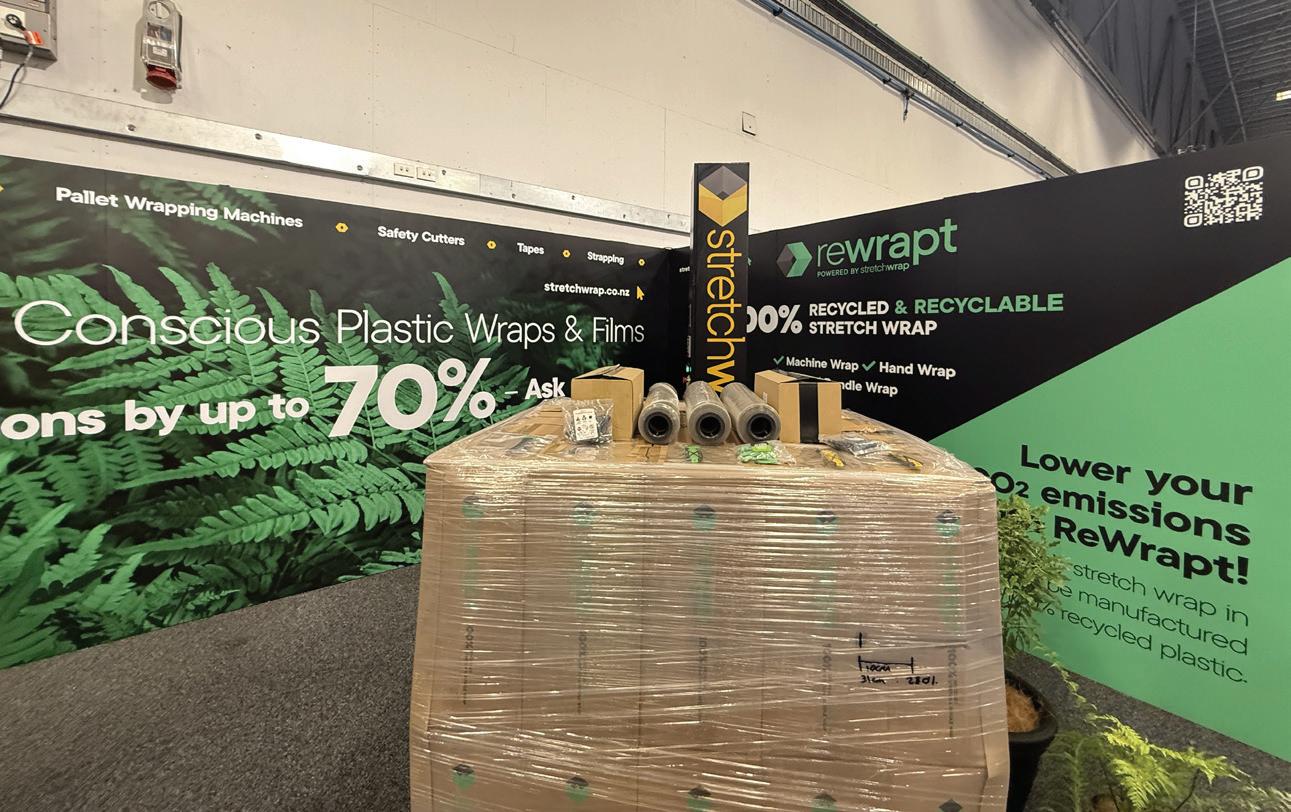

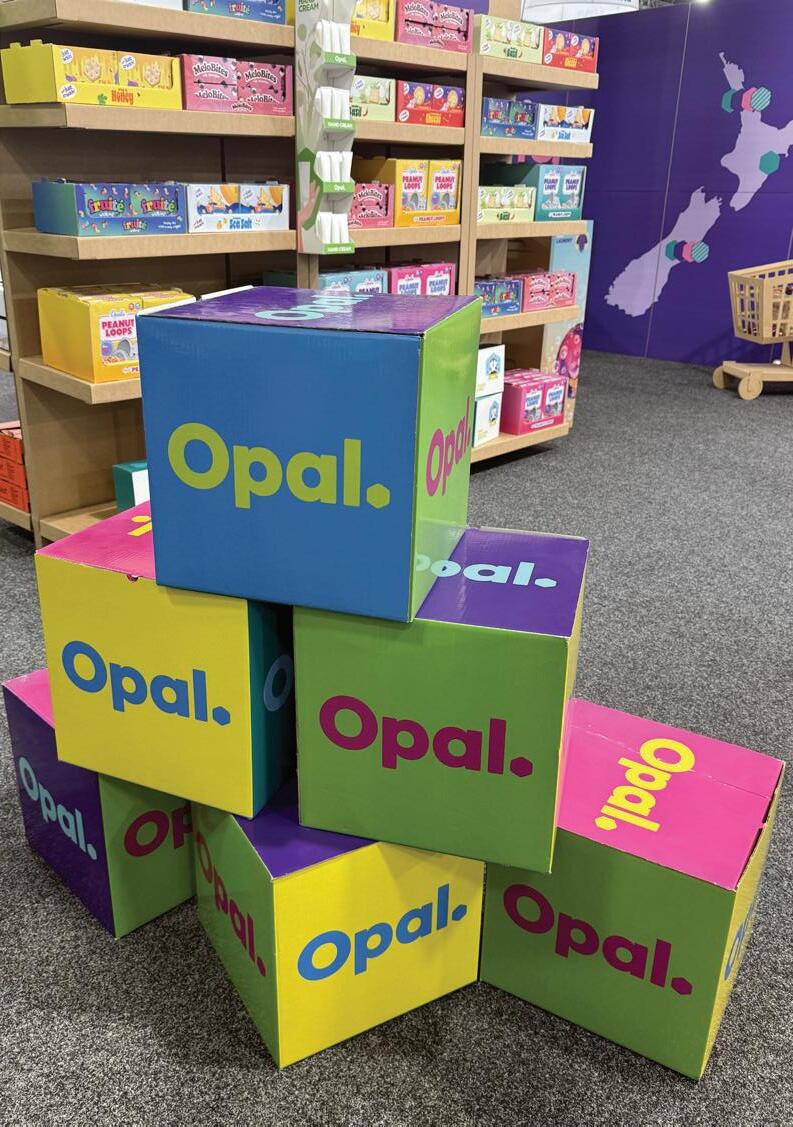
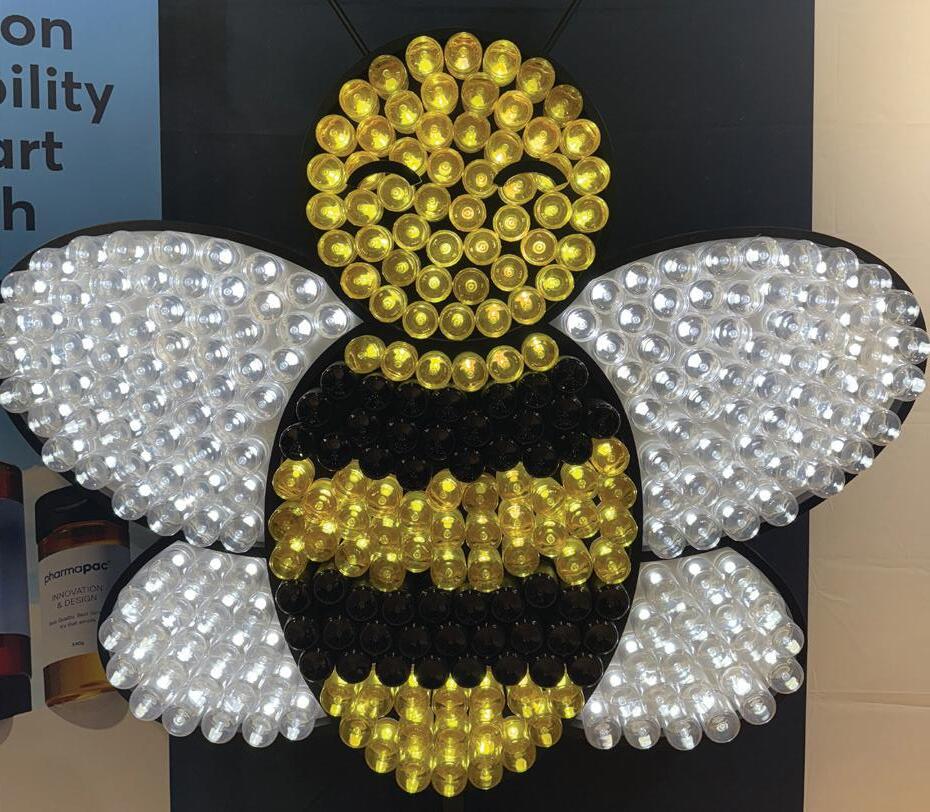
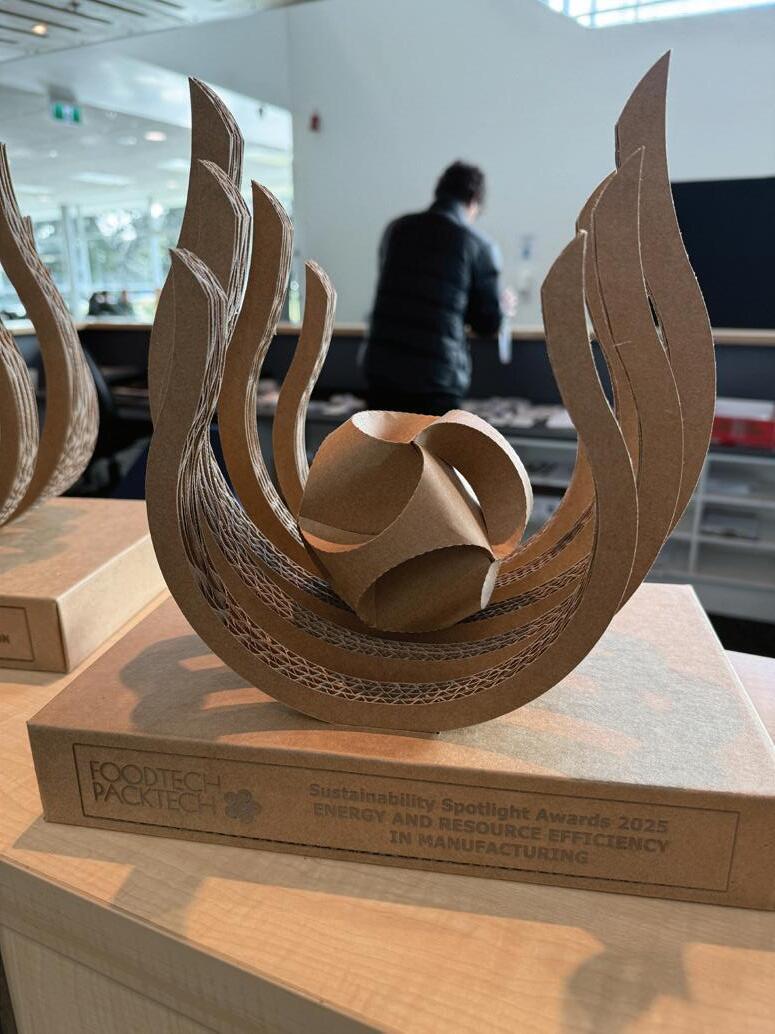

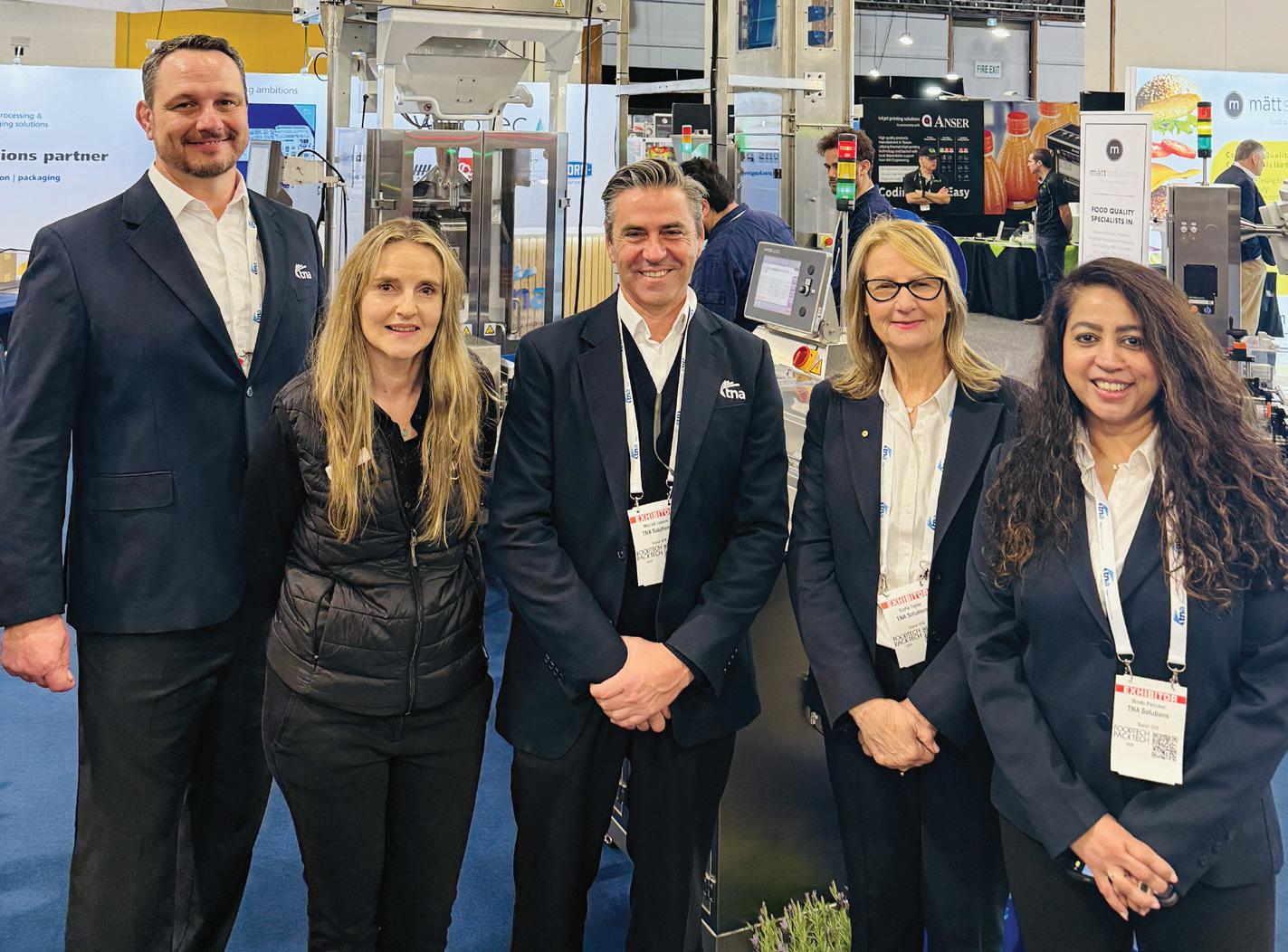




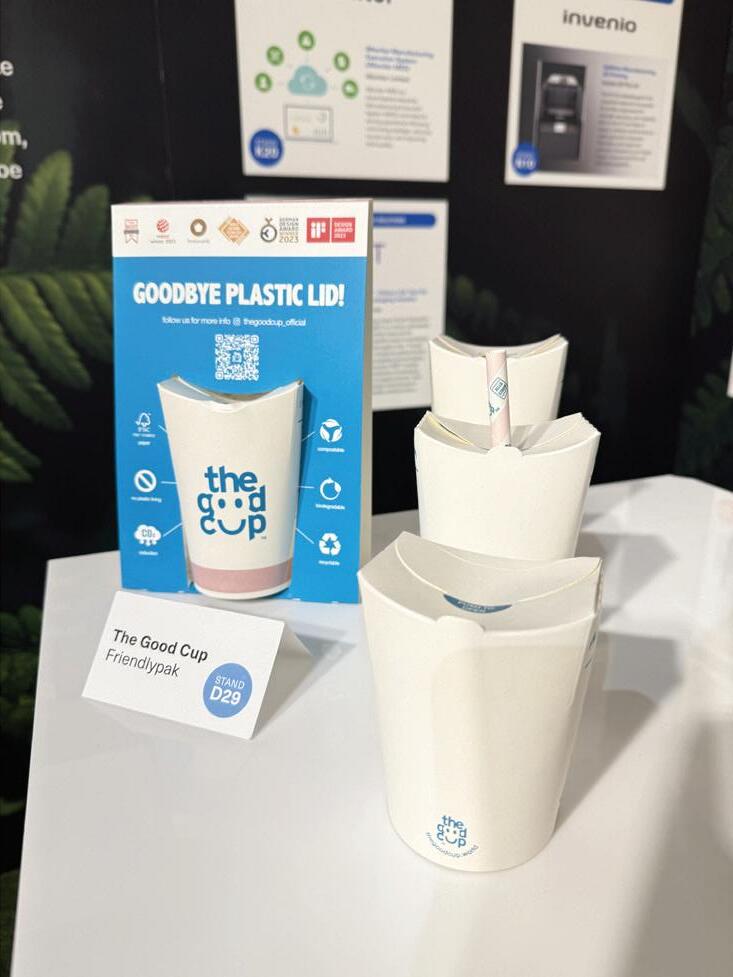

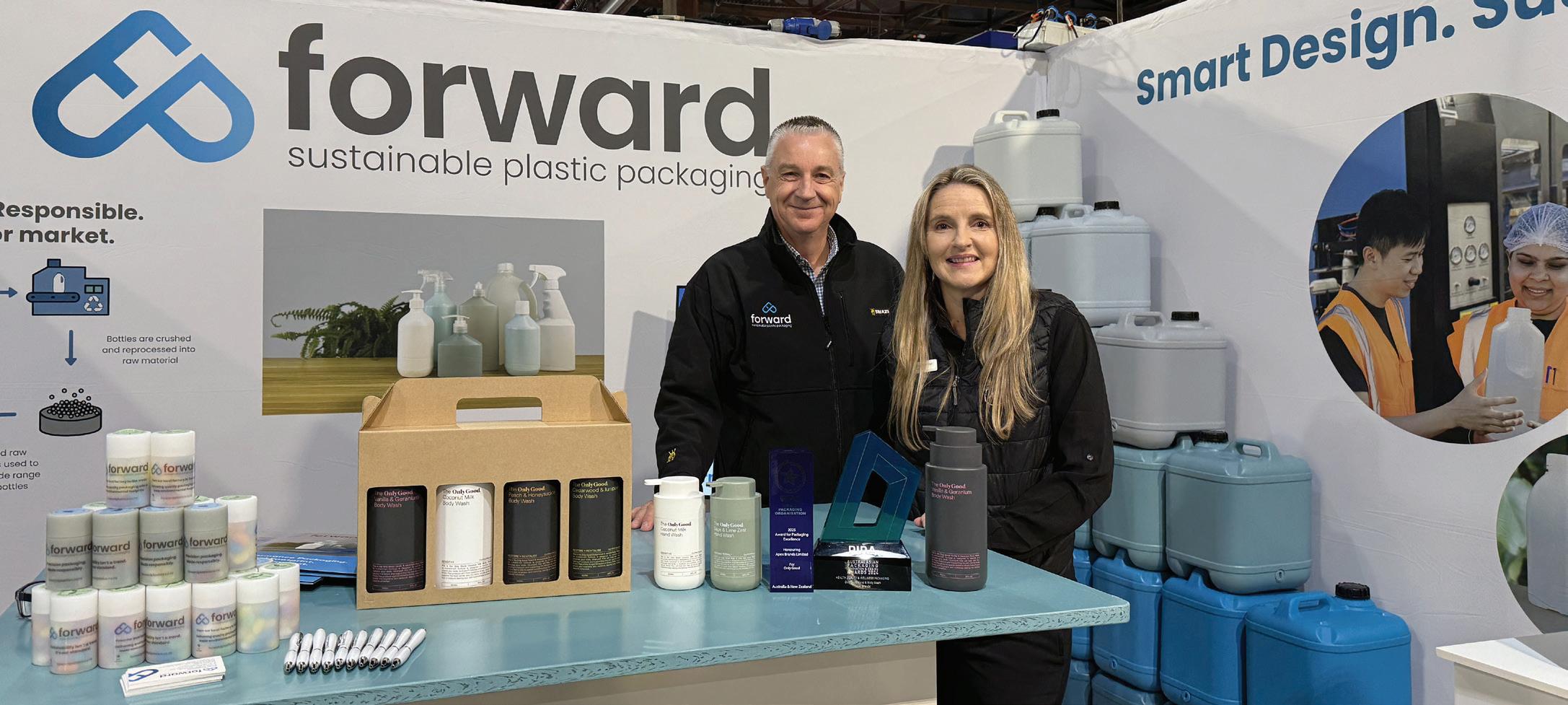
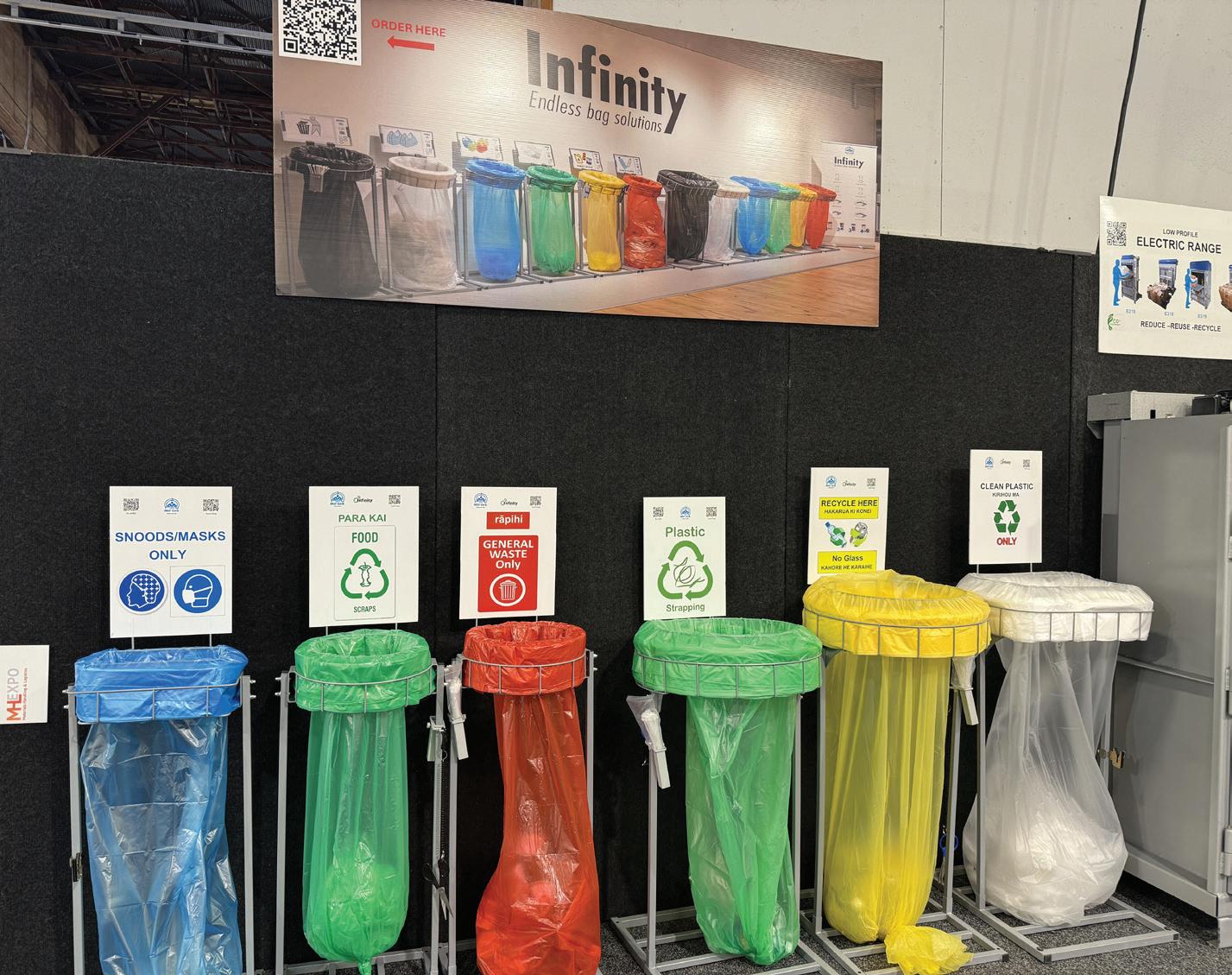
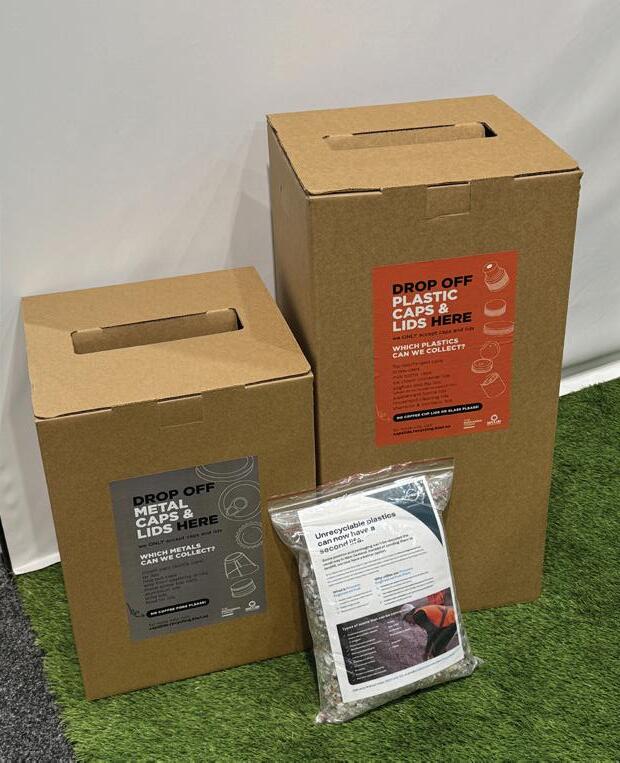
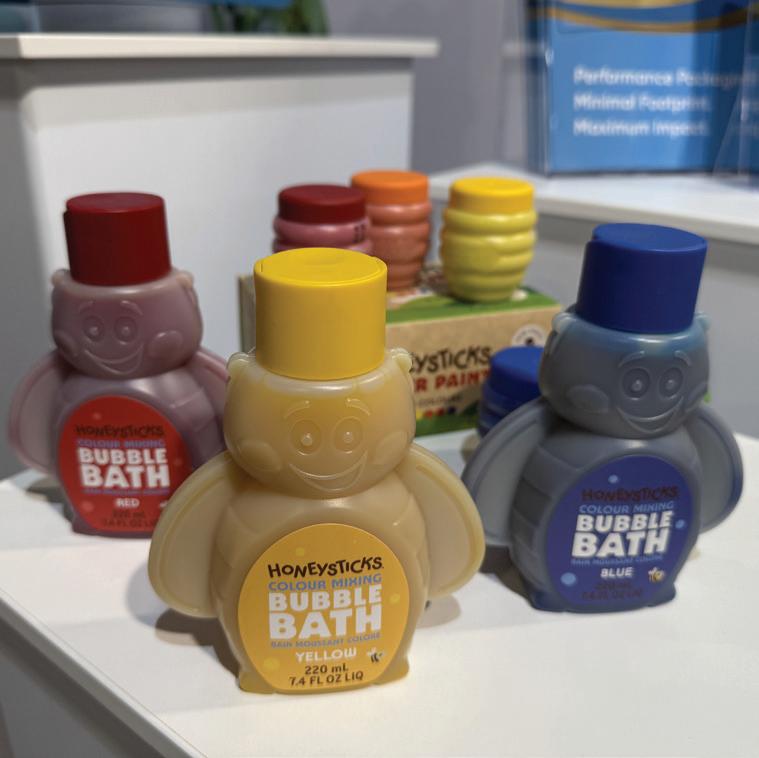
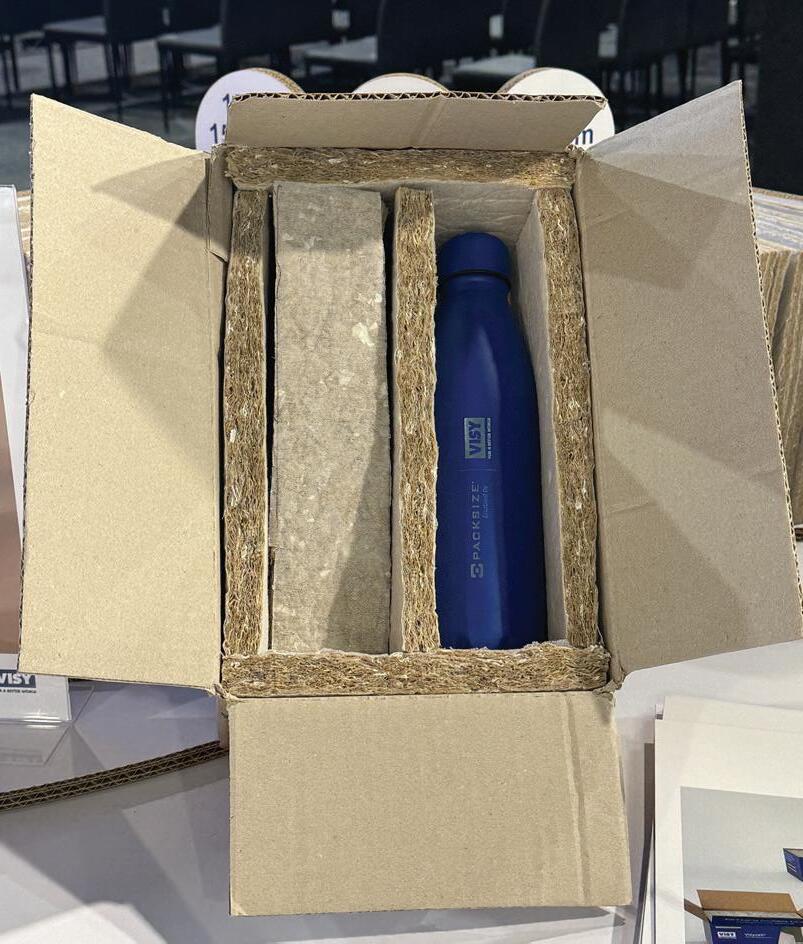
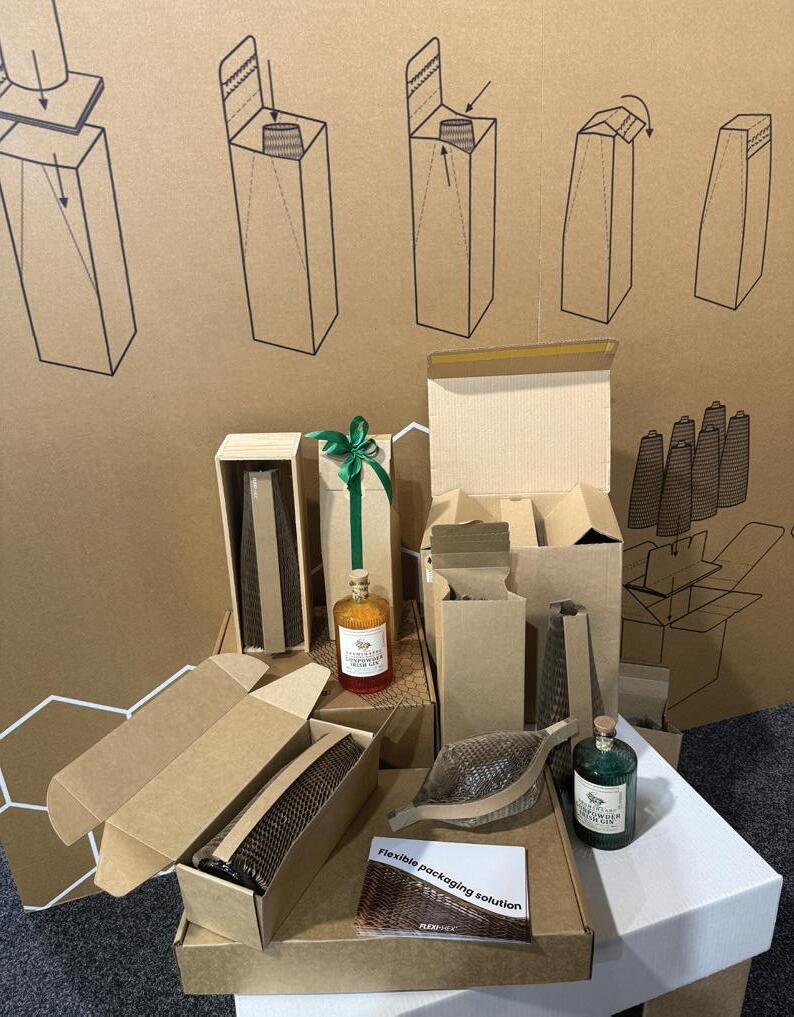
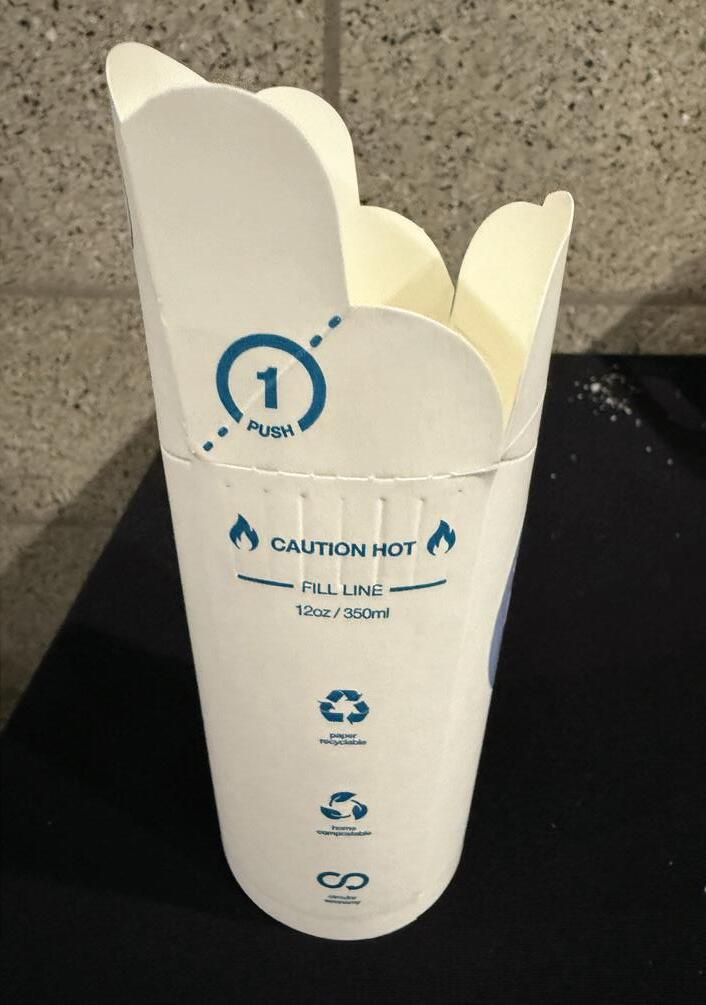
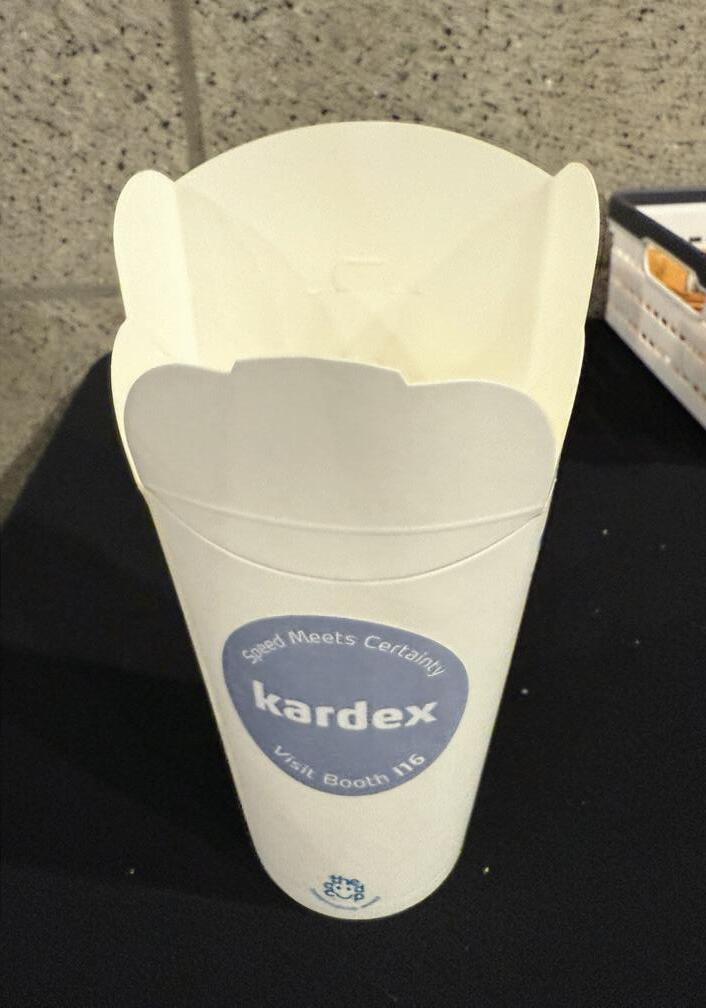
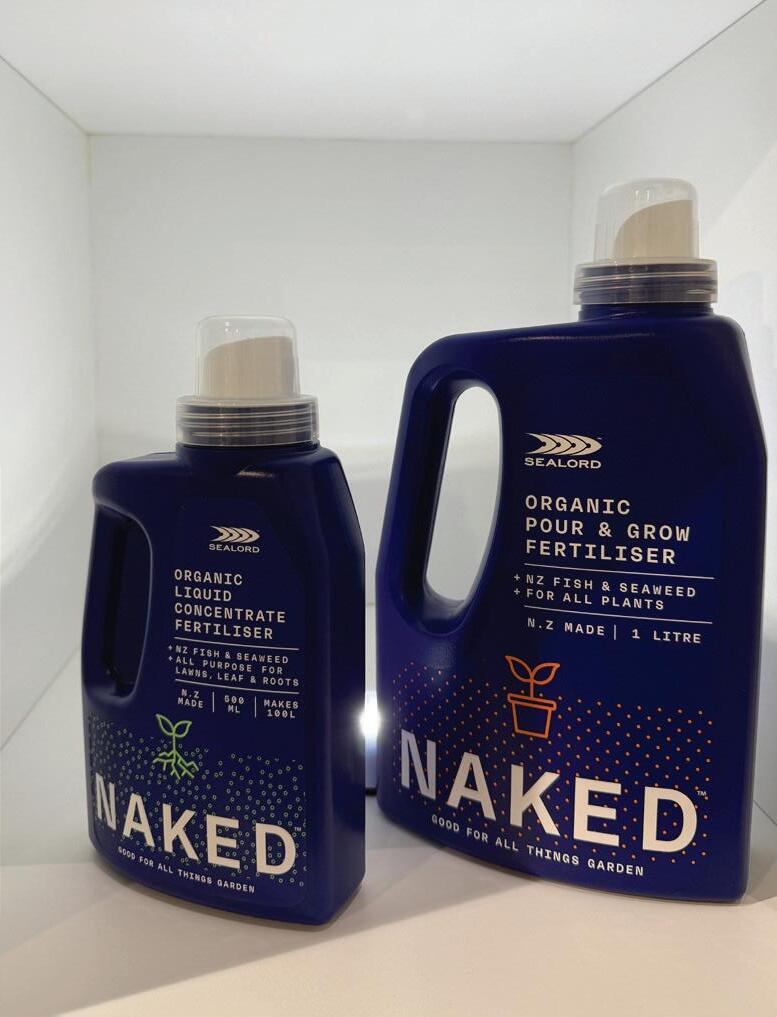



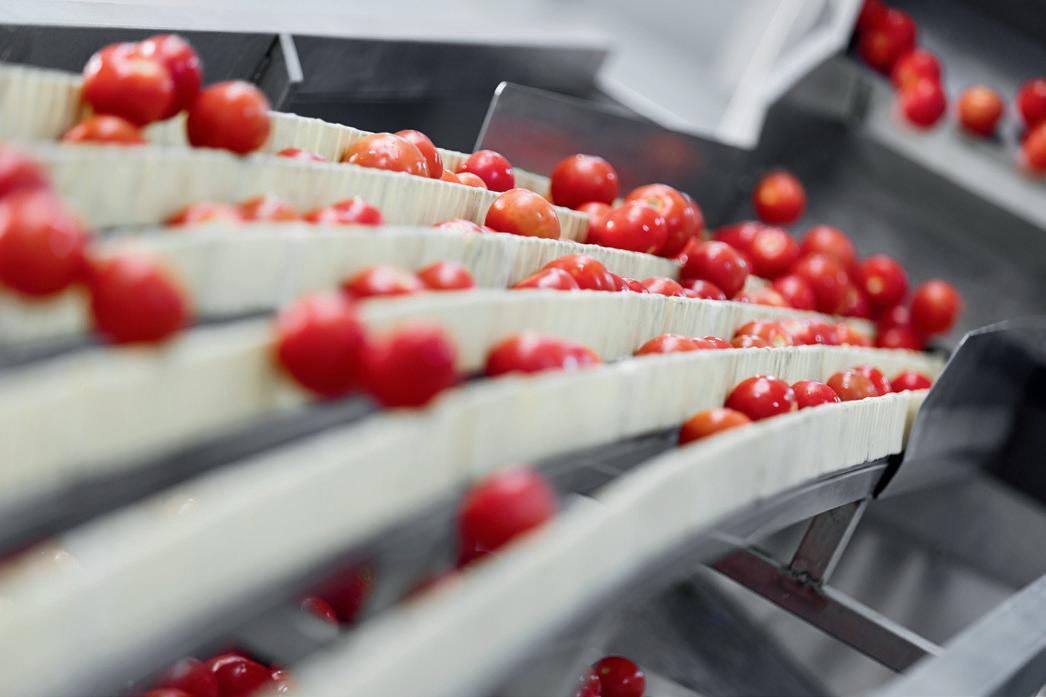

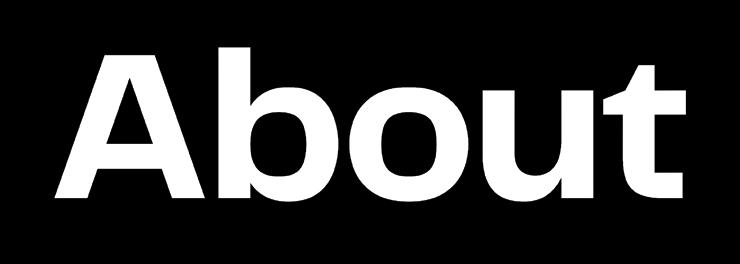
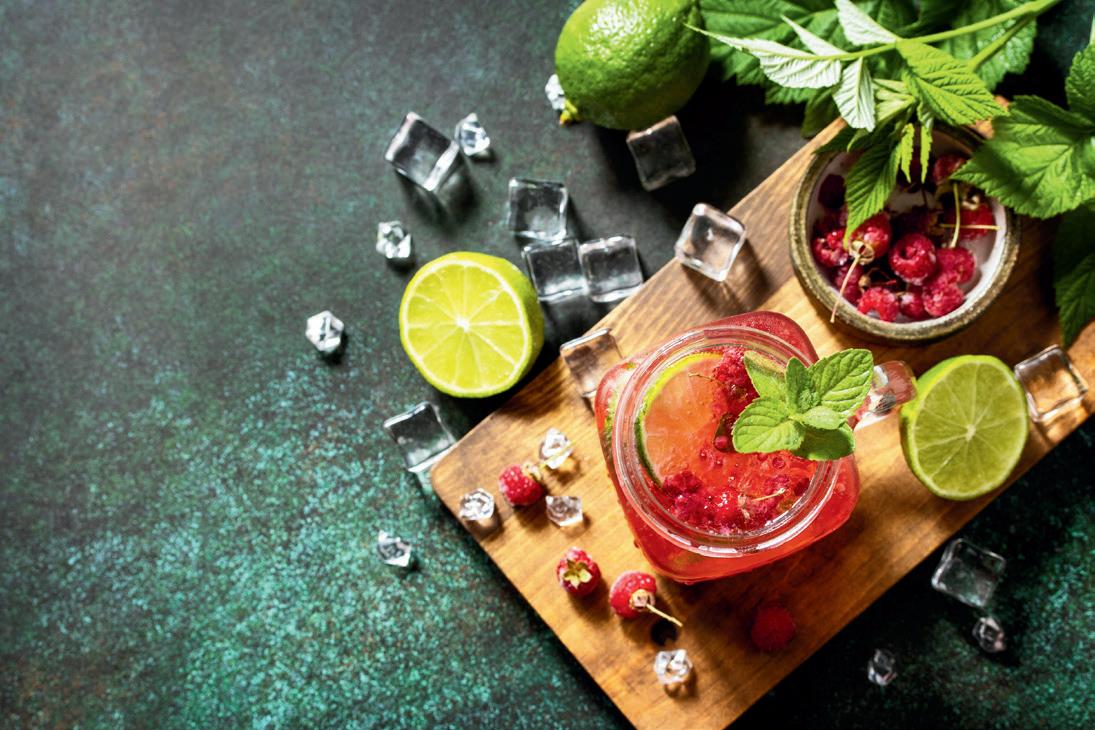


Food Entrée & Manufacturing is a comprehensive digital publication offering contents on the food and manufacturing industries. Published in English five times annually, the magazine covers a wide range of topics, including food automation, food processing and machinery, packaging and labeling, food ingredients and nutrition, nutraceuticals, snacks, confectioneries, food technology and innovation, beverage, milk and dairy, as well as news and trends in the food industry.
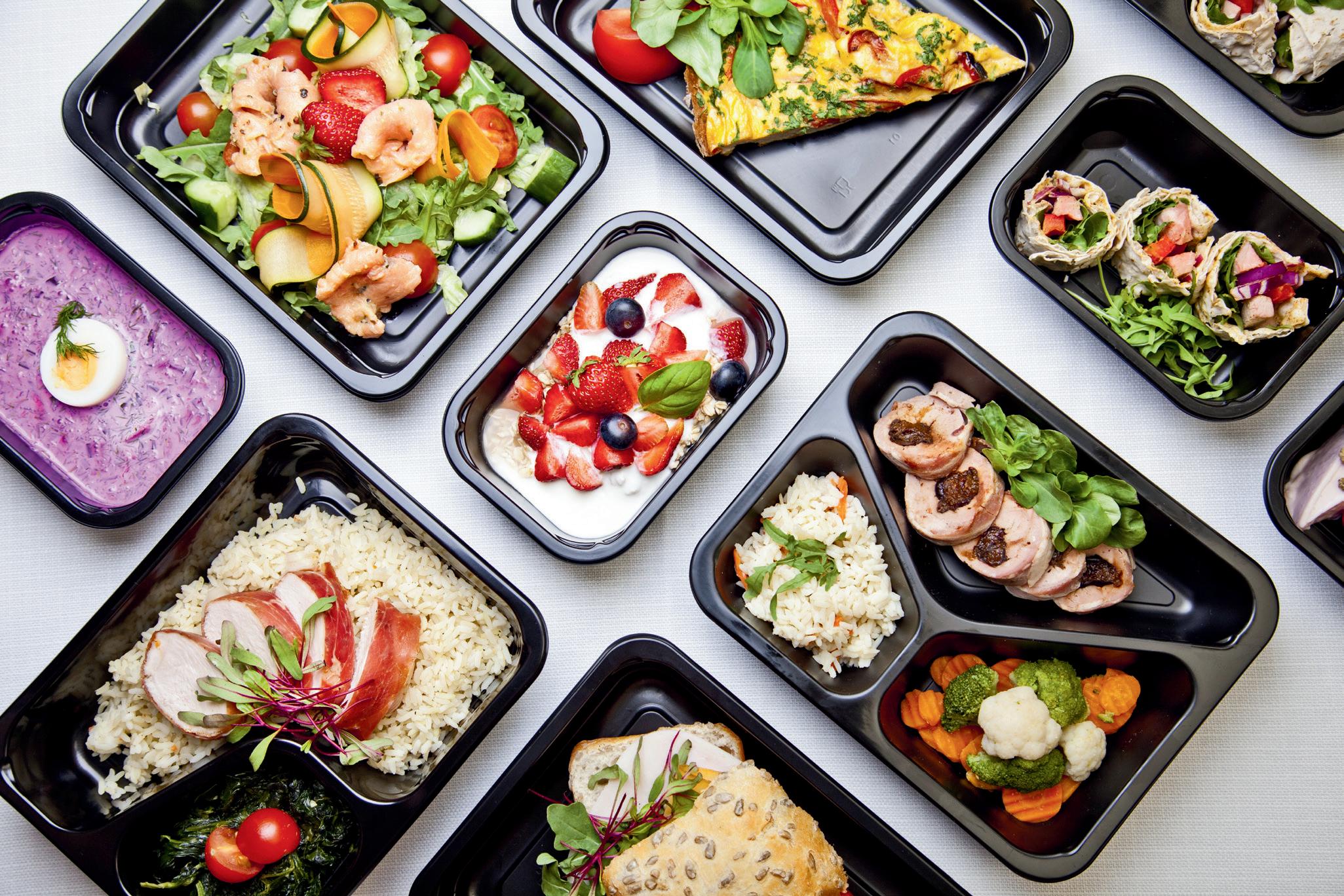
Our ultimate goal is to provide our readers and manufacturing businesses worldwide with the latest insights and information. With over 47,000 readers from the Asia Pacific region and beyond, our magazine is read by professionals, including managers, marketing executives, R&D professionals, business development managers, and marketing communication specialists.
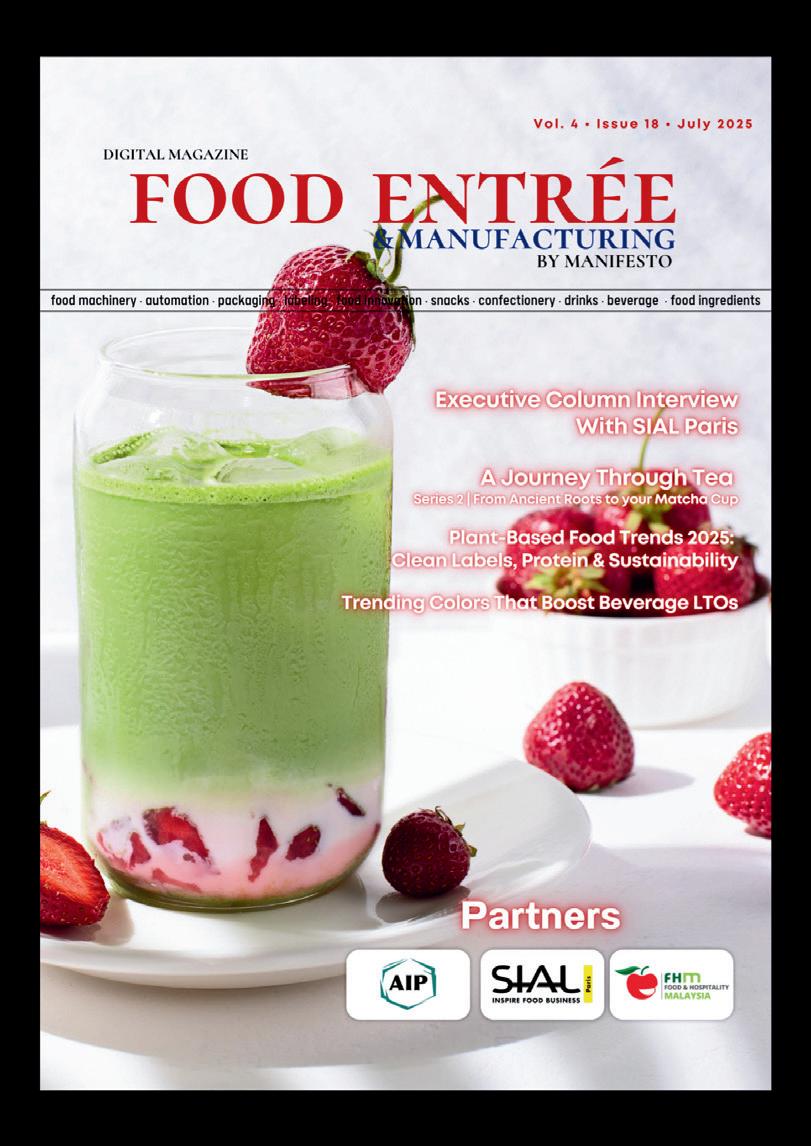





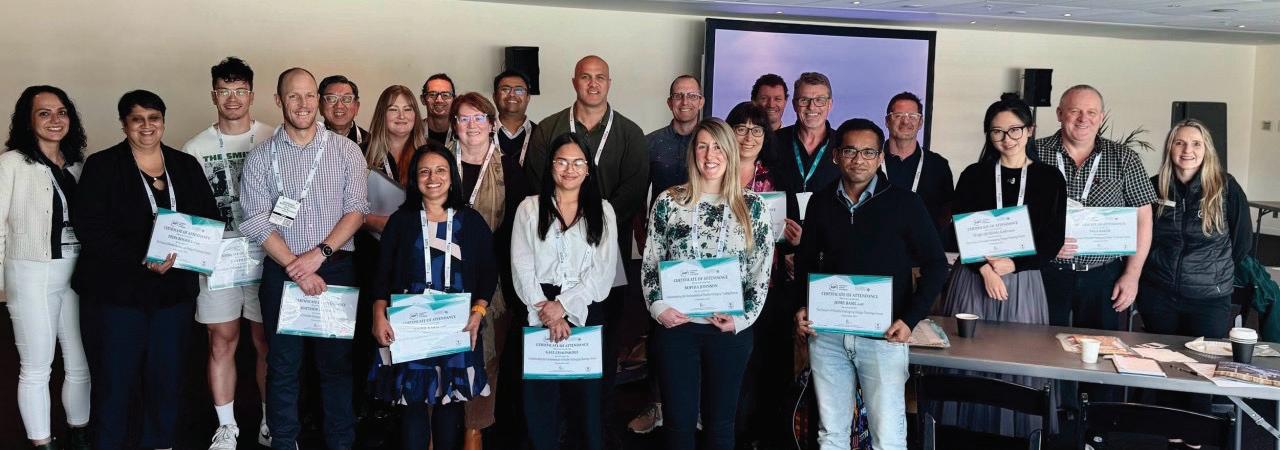



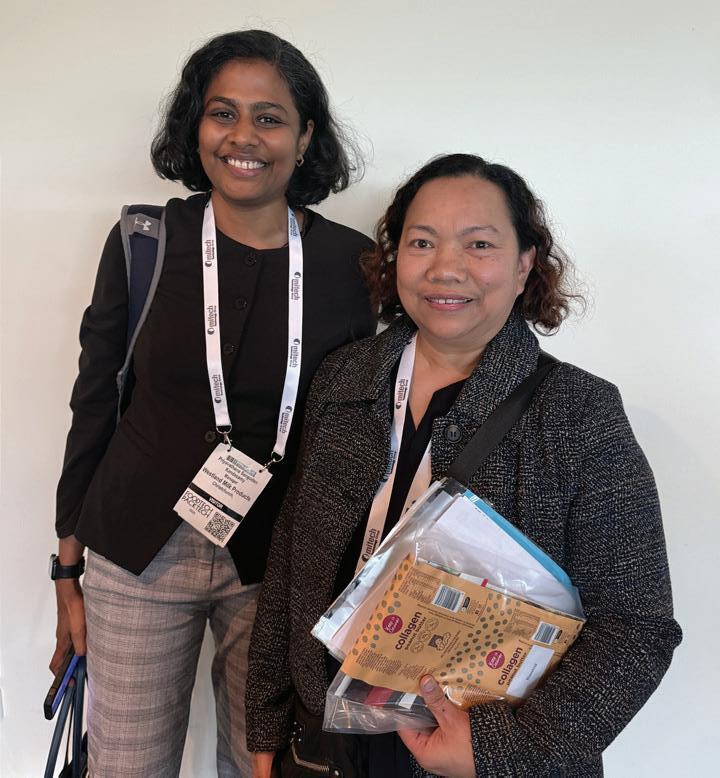

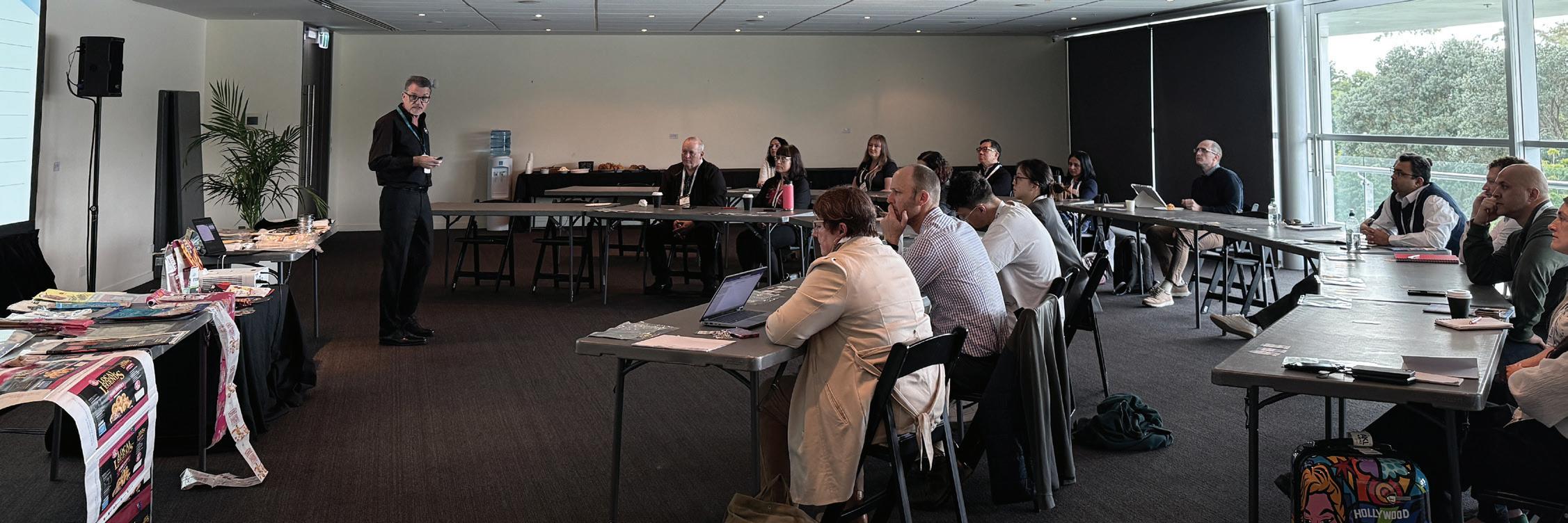

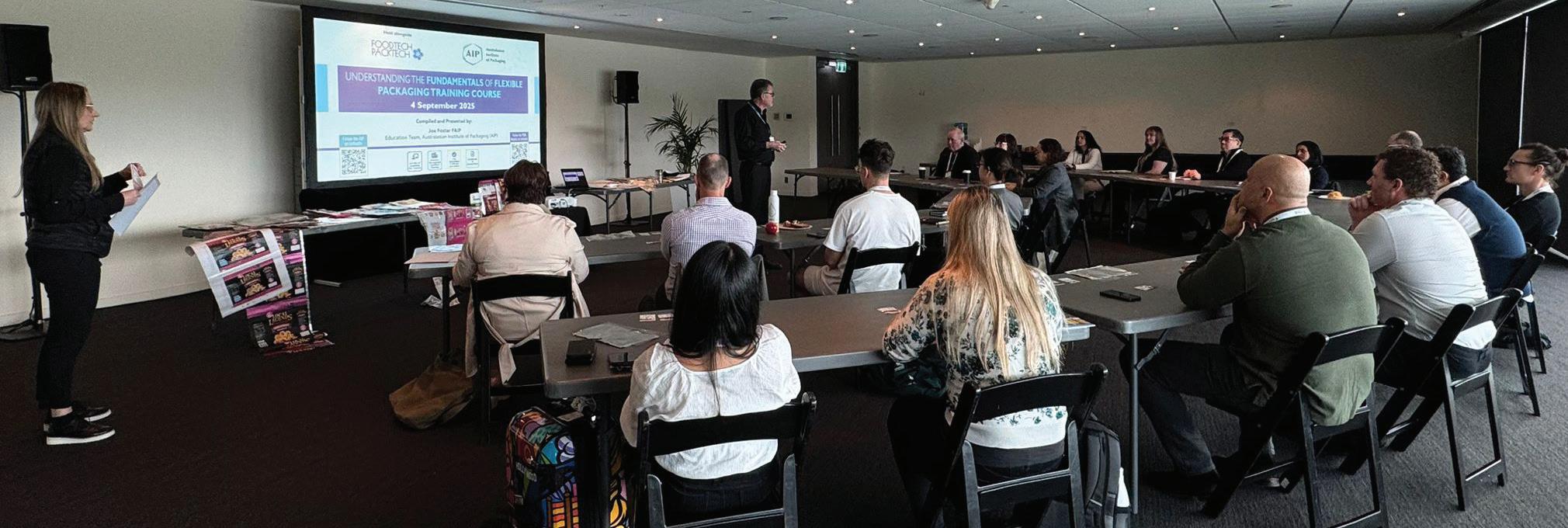
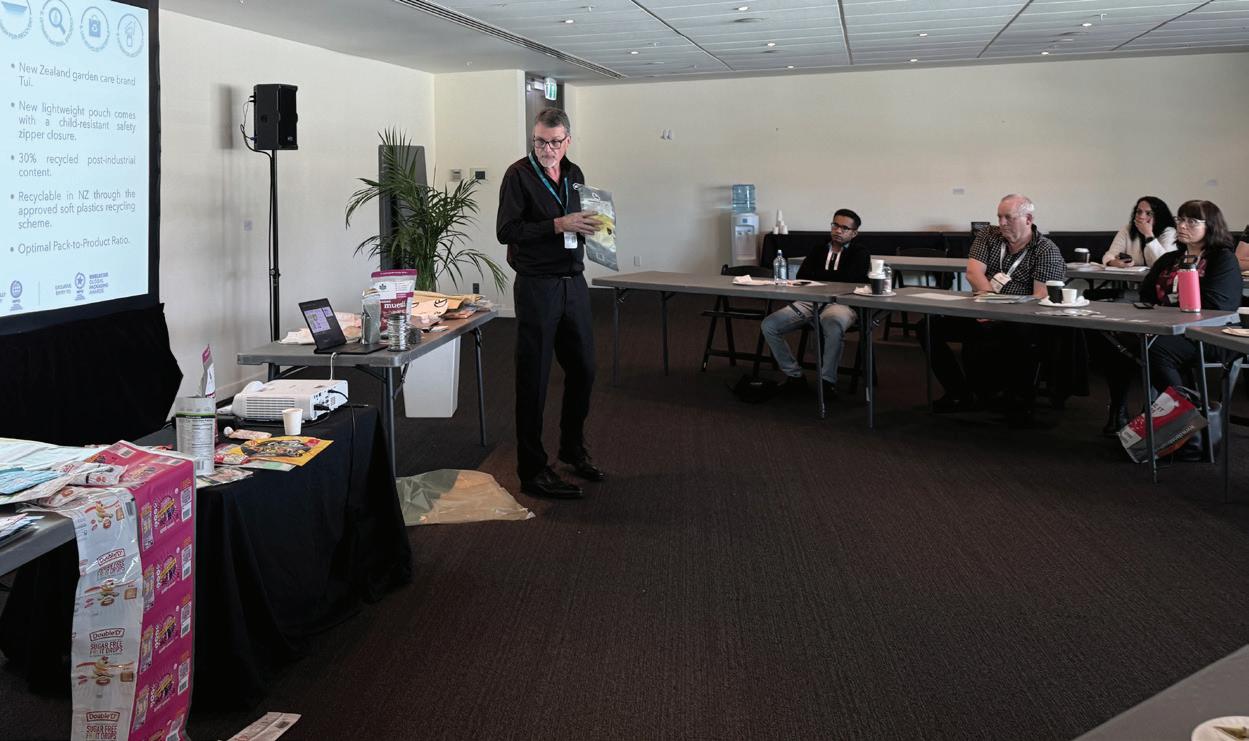
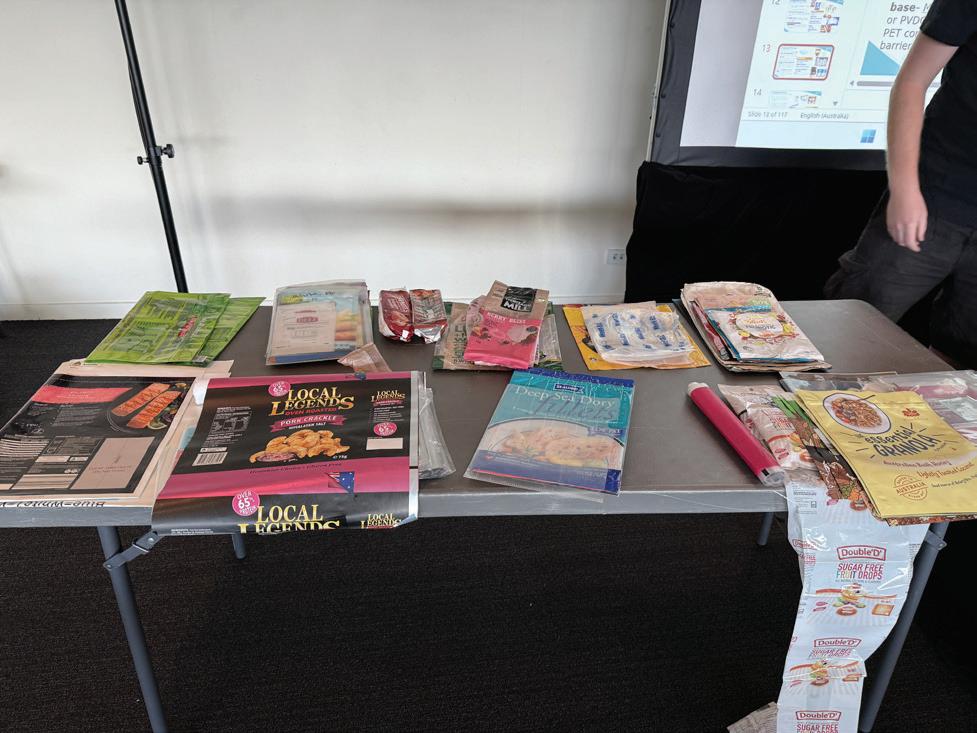

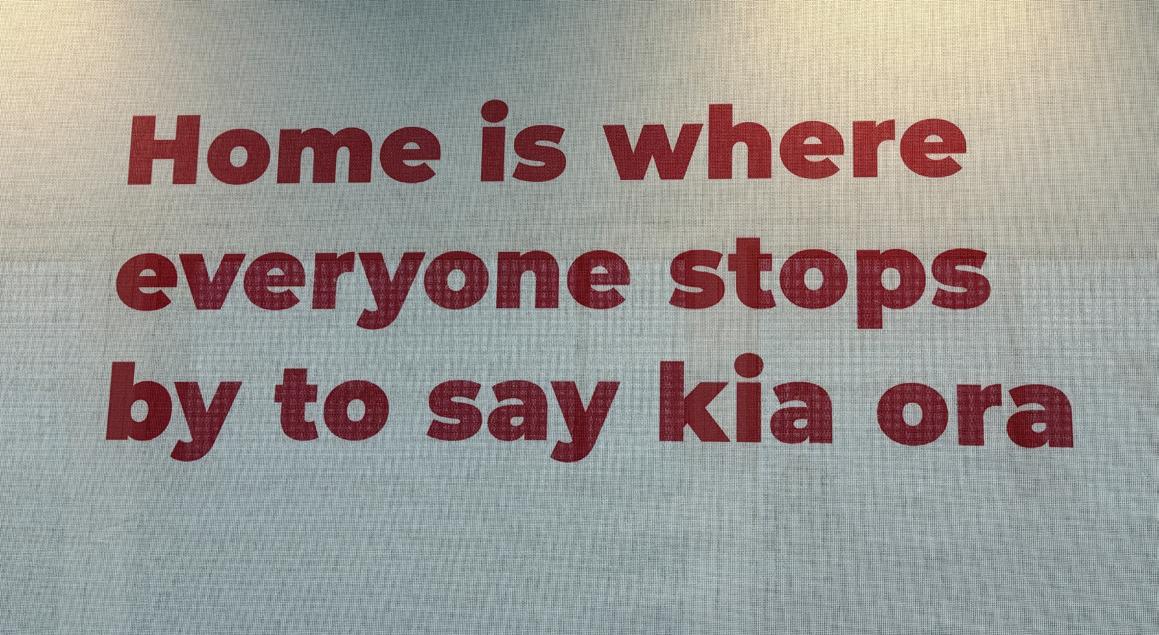


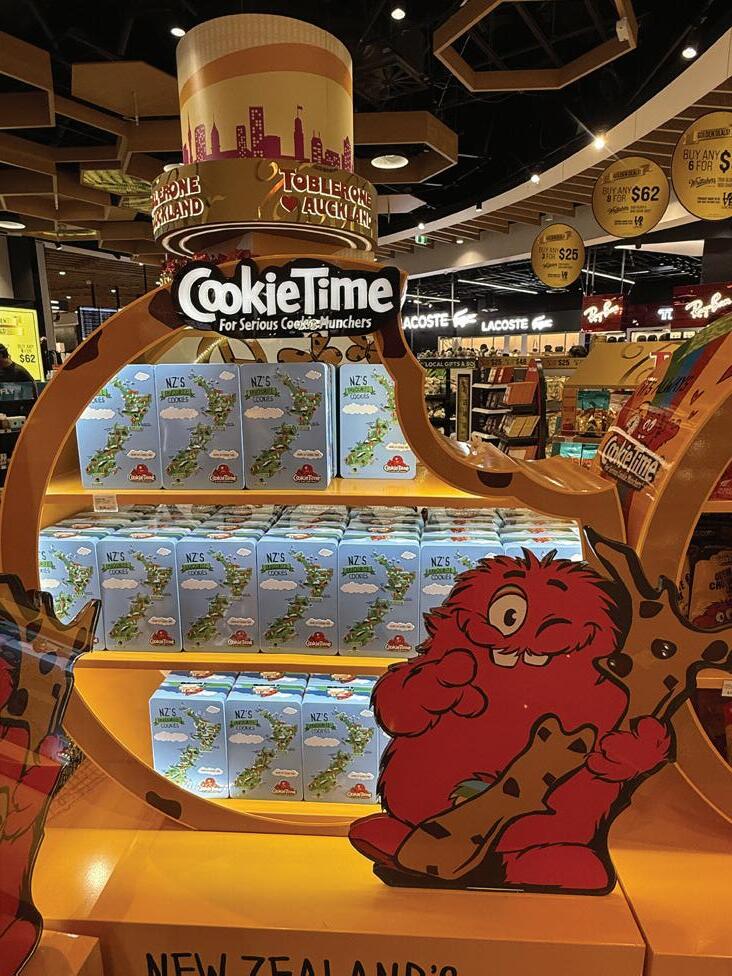
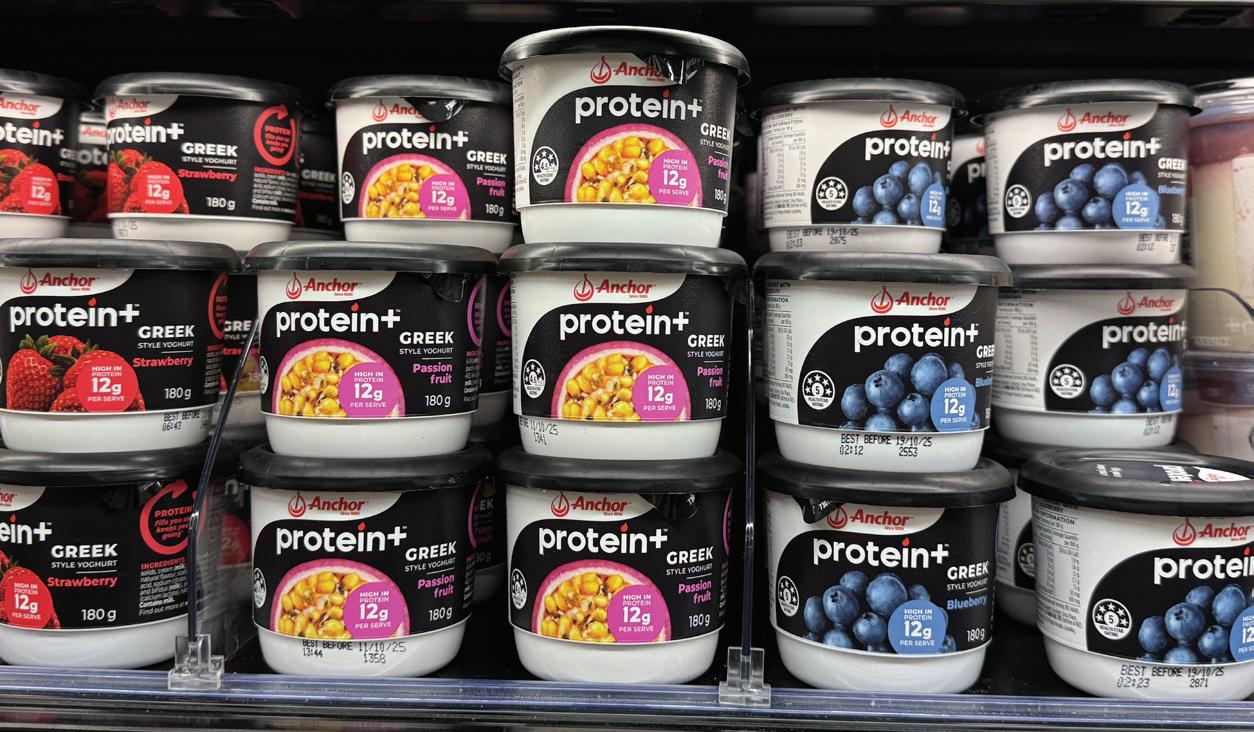
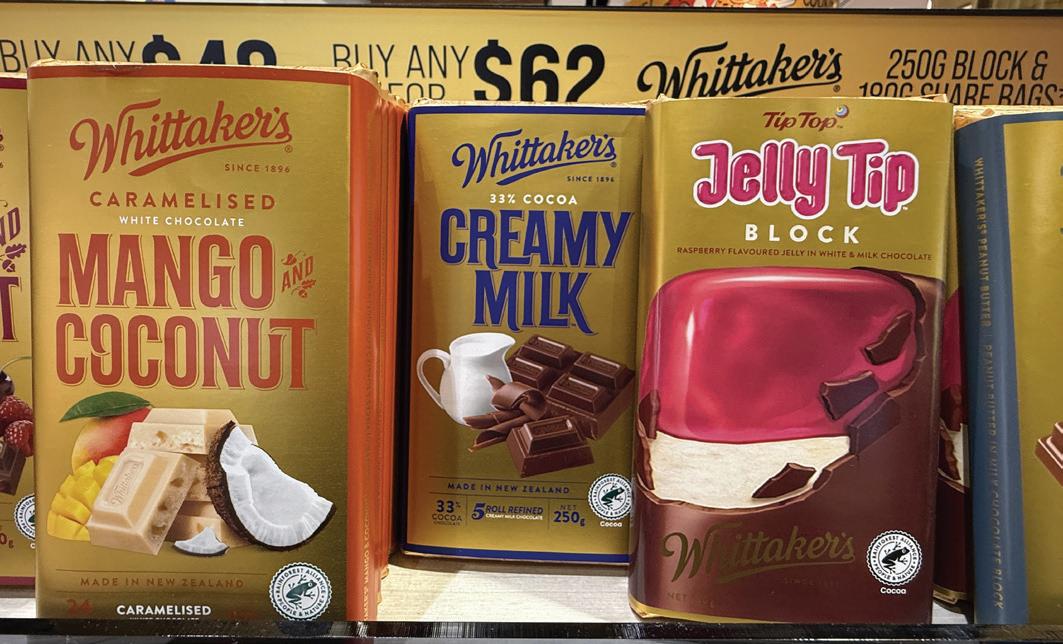
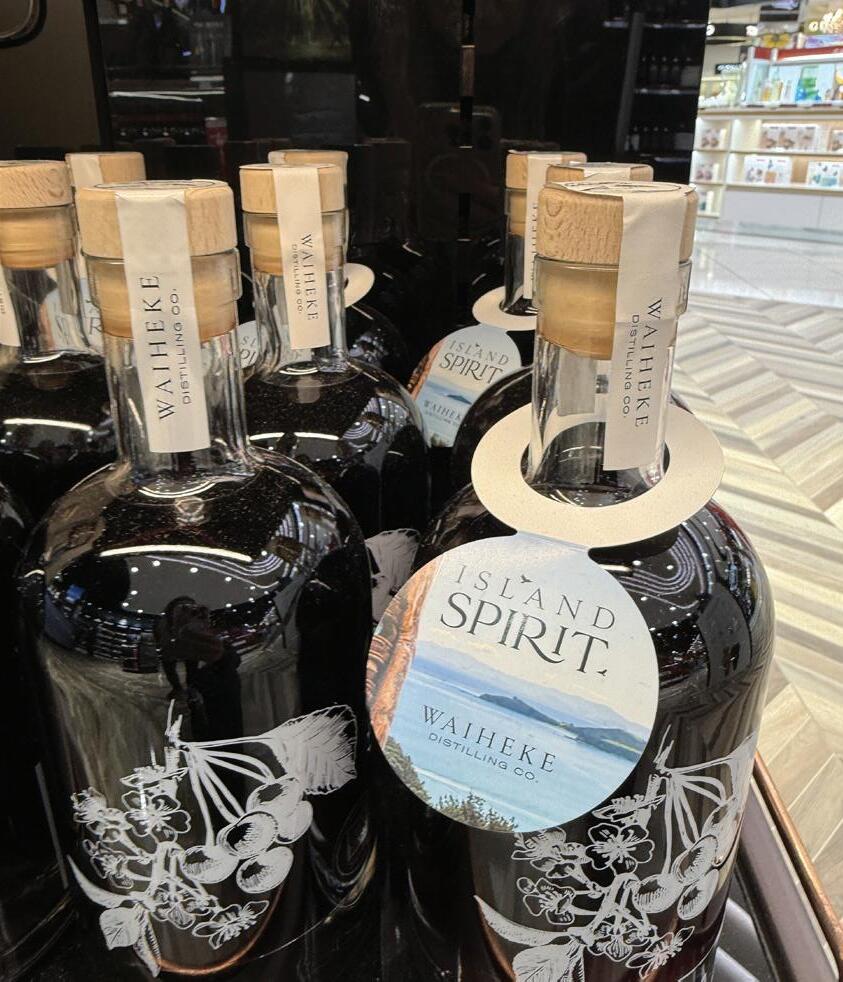
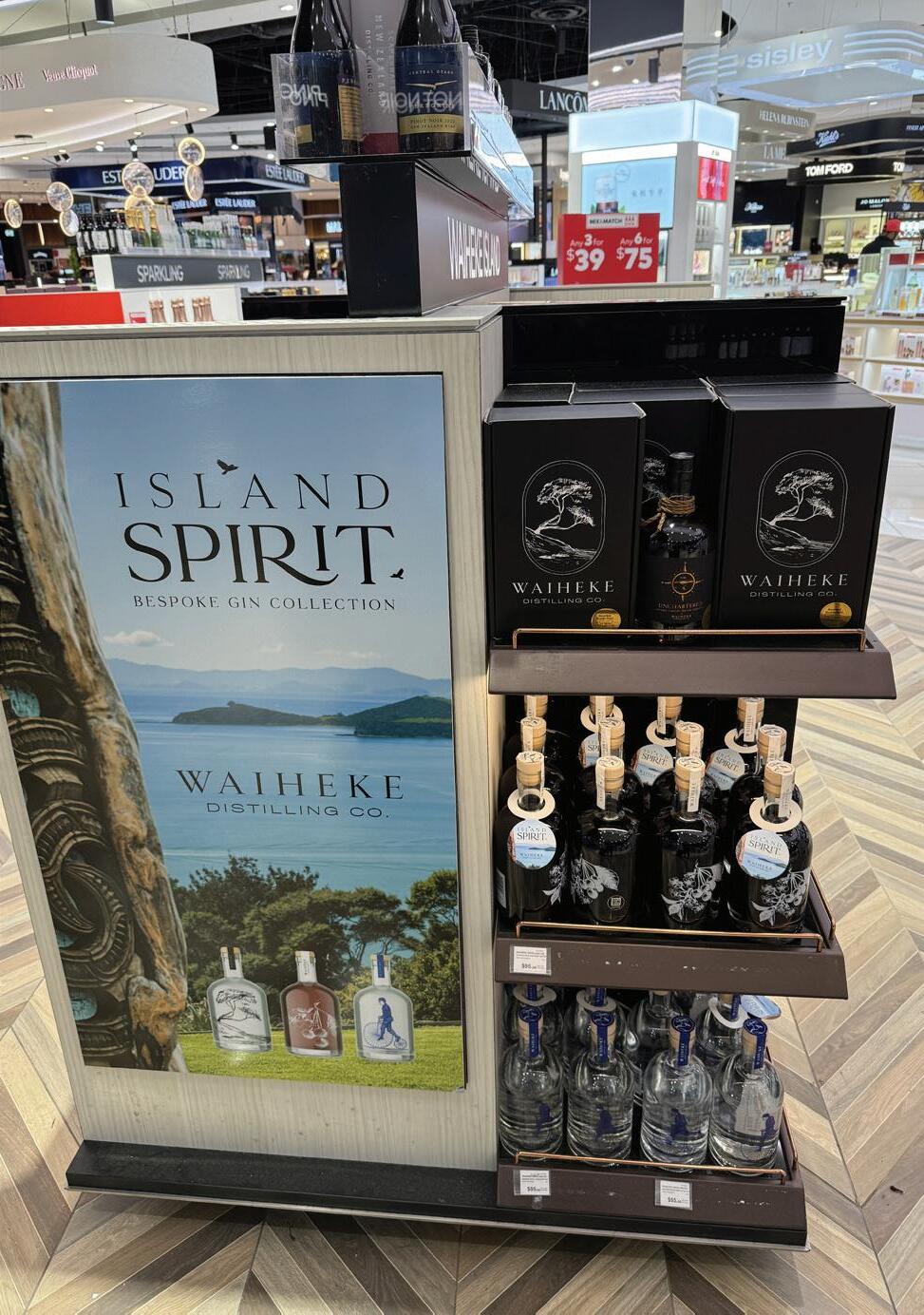
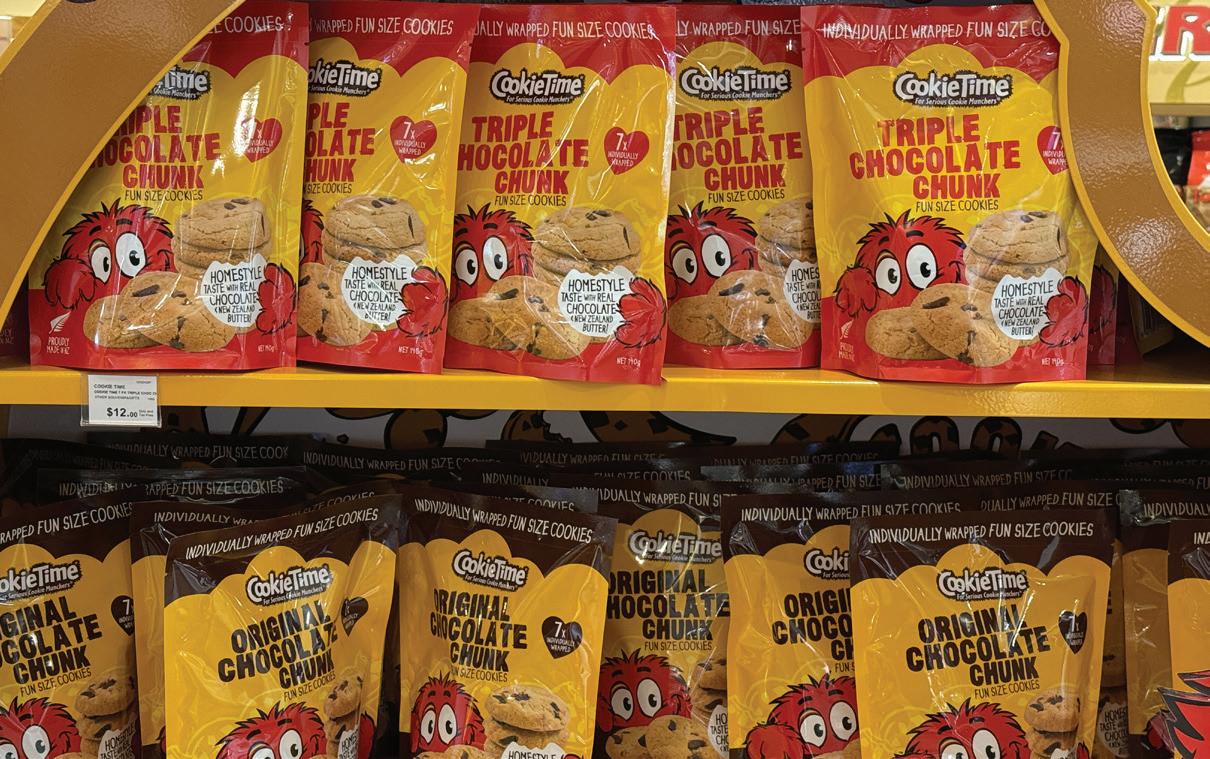
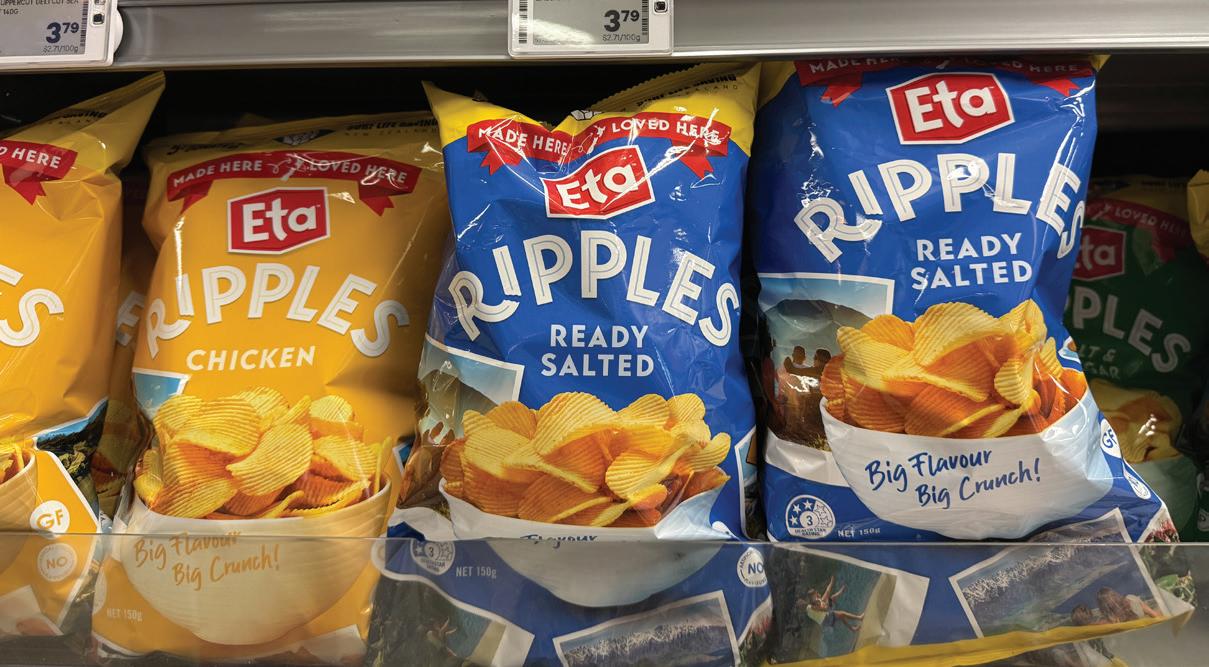

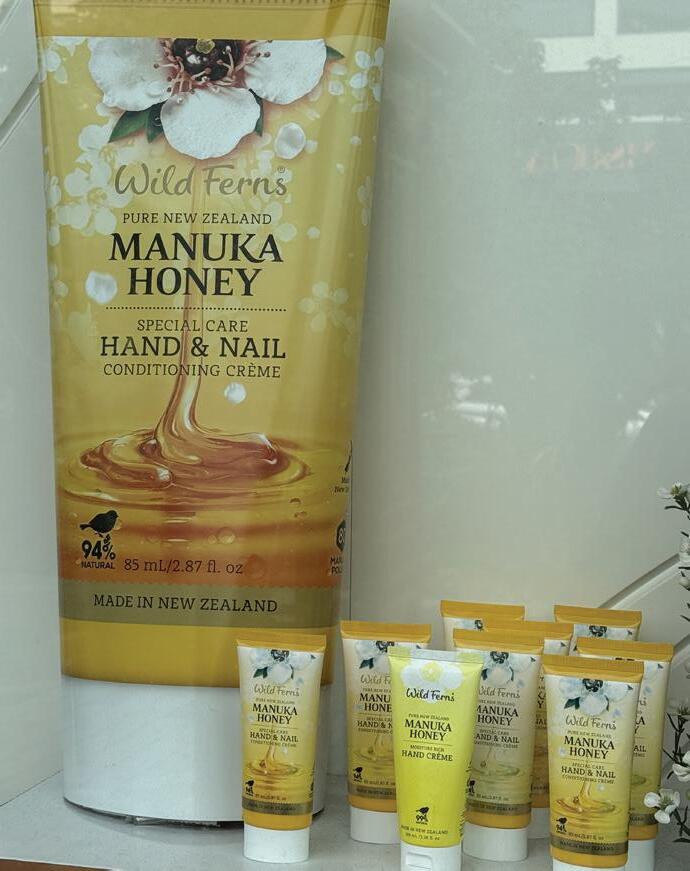

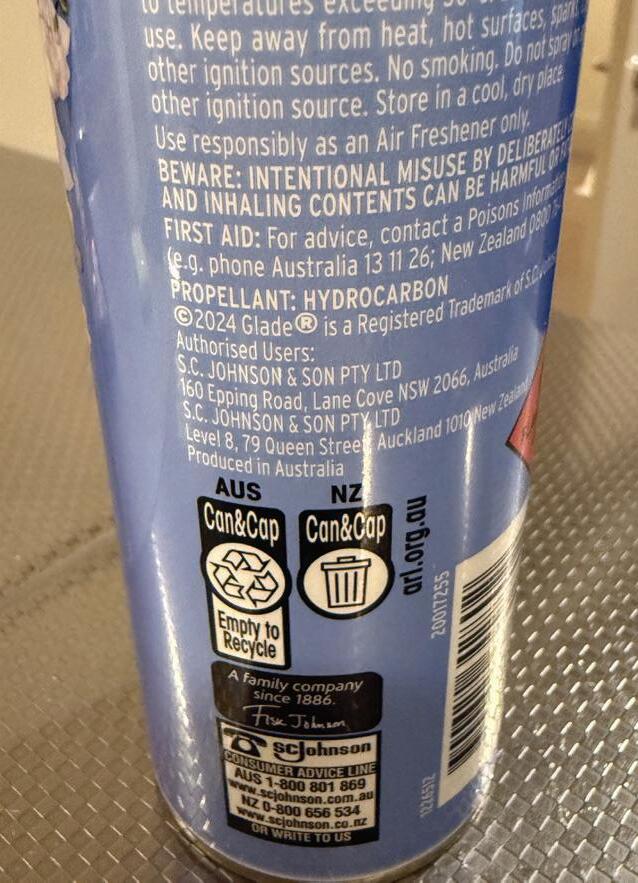


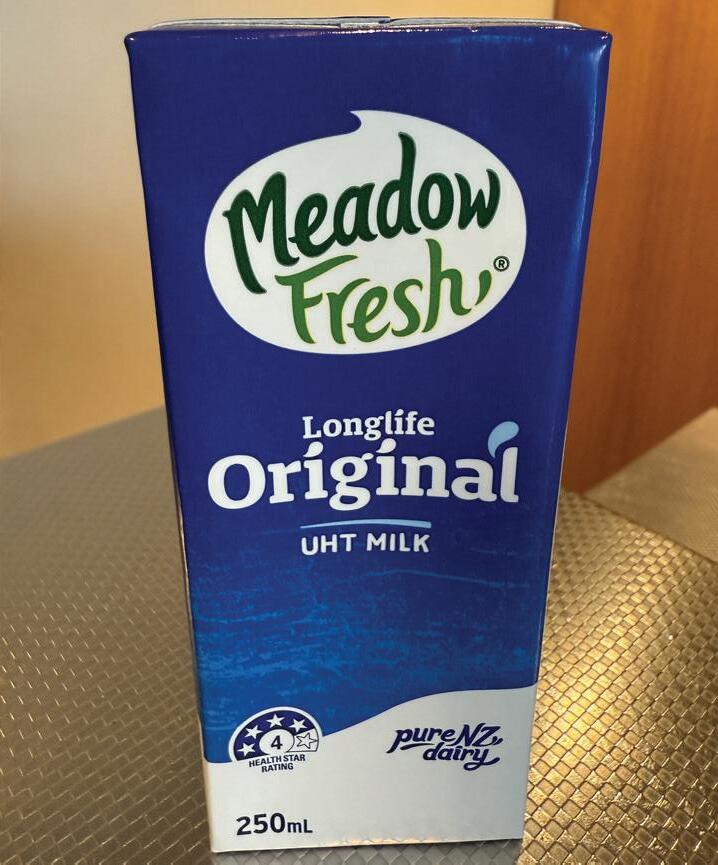
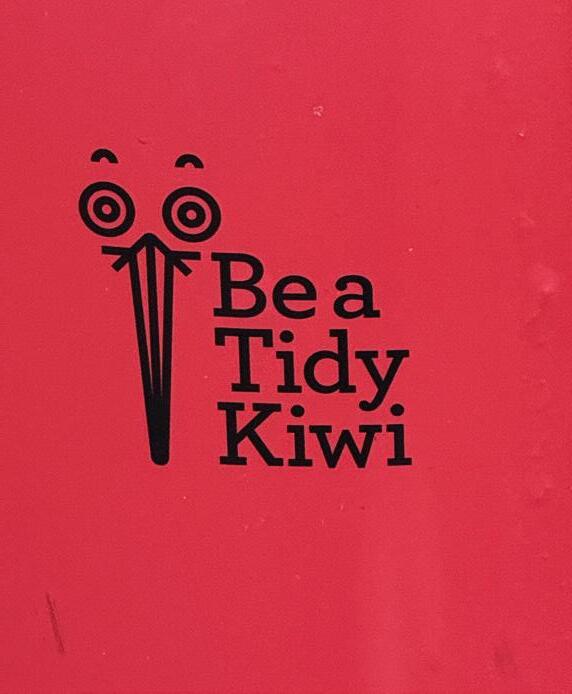
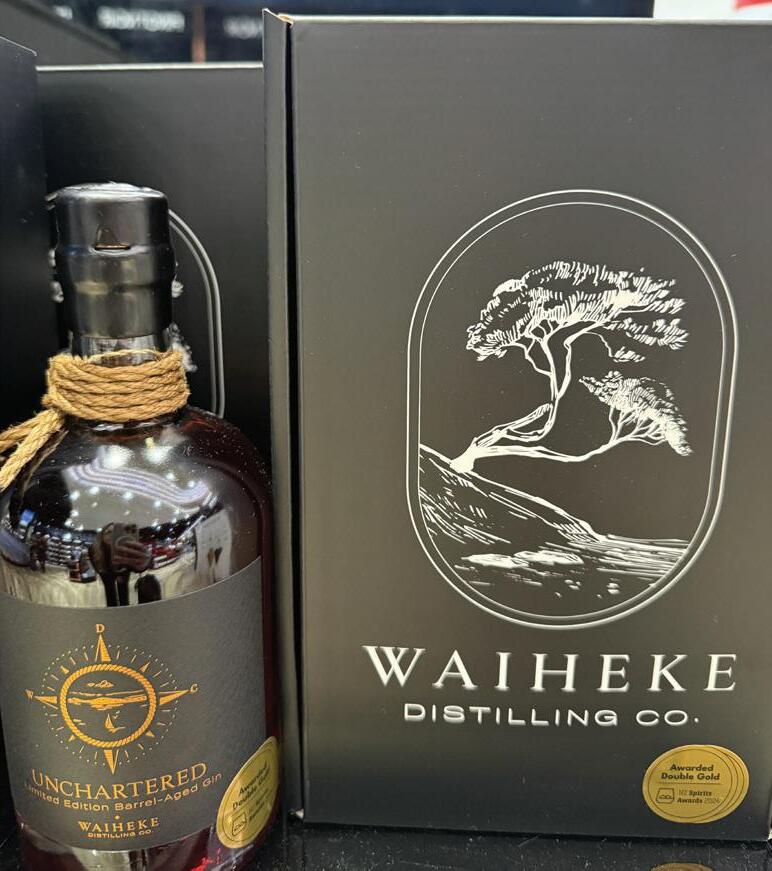
– 25-28 August 2025
The AIP recently hosted Dr Mouylin Chen from the Royal University of Agriculture (Cambodia) who will be one of the people leading the newly established Cambodian Packaging Centre located in Phnom Penh.
The Cambodia Packaging Centre (CPC) recently became a Member of the World Packaging Organisation and through the partnership with UNIDO invited the AIP to suport this project
The AIP training was specifically designed to enhance the knowledge of Dr Mouylin Chen, who is a lecturer of the CPC, so that she can then train others in the BSc Food Science undergraduate degree which has a component on packaging
The AIP is committed to providing packaging and related business education to WPO member countries that indicate a true need for such training opportunities� Education is critical to achieve the WPO’s mission of “Better quality of life through better packaging for more people” and with leadership from the Education Committee this sector of work is promoted and organised
Packaging education is so important to help ensure that the world’s resources are used as effectively and efficiently as possible and the AIP makes its contribution by improving knowledge and expertise in Southeast Asia
�
As the AIP Education Director I personally undertook the four days of training and challenged Dr Mouylin Chem, senior lecturer at Royal University of Agriculture to elevate the packaging of local products so they can compete with international brands currently dominating the Cambodian market We know that good packaging is key to accessing markets, and, together with product quality, plays an even greater role in sustaining those markets Packaging is no longer a mere afterthought in value addition � It is a decisive factor in market competitiveness, food safety, environmental sustainability, and consumer trust
This training is not the end of education in packaging for Cambodia but rather the beginning of a journey in partnering with the CPC to ensure a continuous process that will require investment, technological innovation, collaboration, and policy support

Prof Pierre Pienaar FAIP, CPPL
Education Director
Australasian Institute of Packaging (AIP)
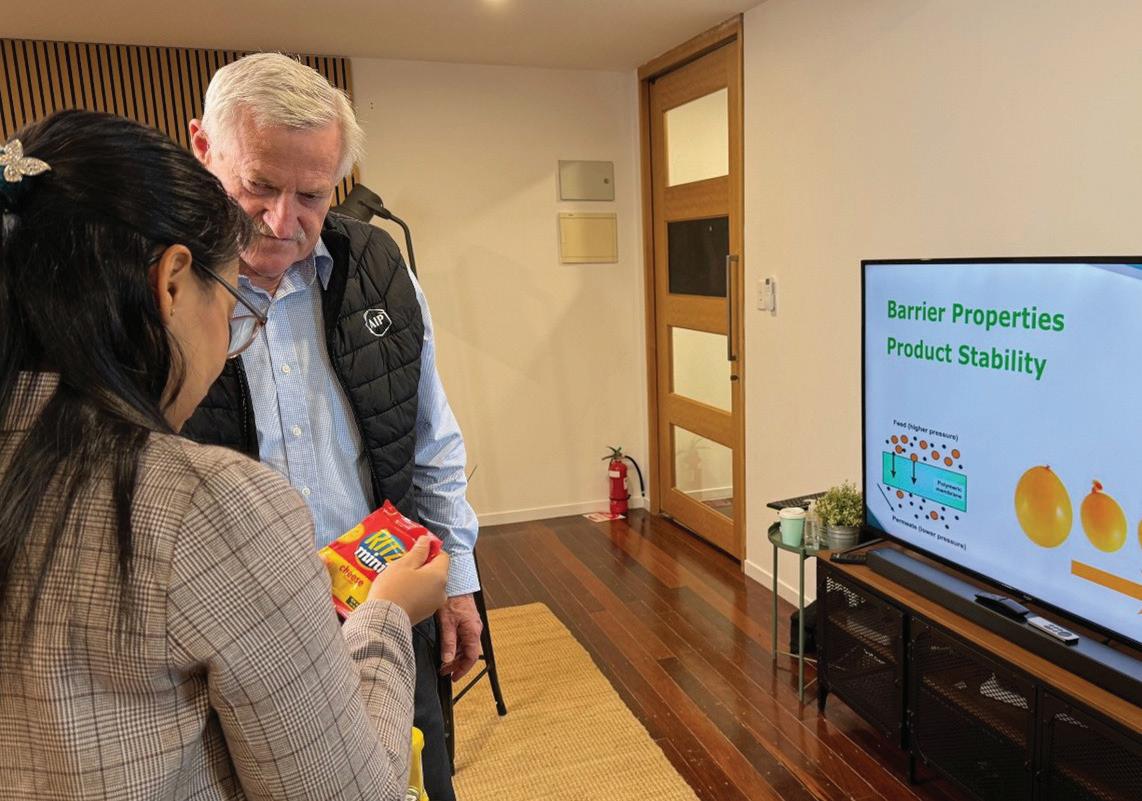
This 4-day intensive training introduced the concept of the role that packaging plays in the global society to ensure how best that can be achieved through informed decisions and how that impacts stability and longevity of a packed product, especially food and beverage Dr Mouylin was taught on the content of packaging technology, but also the pedagogy to ensure how best to put theory into practice
I wanted all that which Dr Mouylin has learned in this intense training to spark innovation and drive product excellence, export readiness, and competitiveness as Cambodia pursues their critical policies of import substitution and export promotion,
The training commenced with the principles and functions of Packaging focussing on the Business Aspects of Packaging The training then moved into Barrier Properties to understand the Food Shelf-life Evaluation and ensured a comprehensive understanding of packaging testing and migration analysis
The second day included was a study of the various materials used in packaging, i � e � ; paper, board, plastics (rigid and flexibles), glass, metal, teaching the importance of sustainable options This involved increased use of life cycle assessment (LCA) to help guide the use of packaging which reduces the environmental impact and ecological footprint �

On day-3, food packaging design and innovation was closely studied along with Sustainability in Packaging Design, anti-counterfeit packaging, and smart packaging (Active and Intelligent) It was shown how important suitable specifications are once basic principles of components for e�g�; closures are critical to the success of the ultimate pack�
On day-4 the training included a visit to the Department of Primary Industries (Horticulture and Forestry Science) to enjoy a field visit in Brisbane where the focus was on the research in fruit and vegetables shelf-life studies�
This visit was a great success as the bond with their lead person Ms Jodie Campbell was established offering ongoing support and training to Dr Chem �
The afternoon included a field evaluation of packaging at:
• Aldi
• Coles
• Woolworths
• Independent Groceries
The importance of this field visit was to see how well the learnings of the previous three days of theory was being put into practice
Many products were taken from the shelves to study the functions of packaging and to see first-hand some of the great packs on the market but also where some packs had failed the fundamentals of packaging � A wealth of knowledge was gained by this exercise It was a pity when the afternoon session came to an end as there is always so much more to see and learn from such a practical experience �
The training was well received; Dr Mouylin was most engaging and appreciated that the Australasian Institute of Packaging (AIP) had undertaken in this training week on the Gold Coast, Australia �
May this be the beginning of packaging transformation in Cambodia and roll out more specialised training programs focused on specific technical aspects of packaging technology along with value chains.


written by Dr Mouylin Chen
I am deeply grateful for the incredible opportunity to participate in the recent 4-day intensive training program hosted by the Australian Institute of Packaging AIP, on the Gold Coast, Queensland. As a senior lecturer at the Royal University of Agriculture and the member of the Cambodian Packaging Centre (CPC), this experience was not just a training; it was the beginning of a transformative journey for packaging education in Cambodia.
The comprehensive curriculum was meticulously designed to provide a robust understanding of modern packaging technology On the first day, I gained a foundational understanding of the business aspects of packaging, exploring how barrier properties and migration analysis are critical for evaluating and extending food shelf-life This training highlighted that packaging is not an afterthought but a strategic component of a product’s success �
The second day deepened my knowledge of various packaging materials, from paper and plastics to glass and metal, with a strong focus on sustainability Learning about Life Cycle Assessment (LCA) was particularly insightful, as it provided a clear framework for making environmentally conscious decisions that reduce our ecological footprint


The third day was dedicated to design and innovation, covering anti-counterfeit and smart packaging technologies � I learned how crucial suitable specifications, like the choice of closures, are to a product's integrity and market success This knowledge is vital for equipping Cambodian producers with the tools they need to protect their products and build consumer trust.
Perhaps the most impactful part of the training was the fourth day The field visits to the Department of Primary Industries and a variety of supermarkets like Aldi, Coles, and Woolworths were invaluable � This practical experience allowed me to see how the theoretical principles I had learned were applied in real-world scenarios By examining products on the shelves, I could identify both successful and failed packaging designs, cementing my understanding of what works and why� I also established a connection with Ms� Jodie Campbell, which I believe will be the foundation for on-going support and collaboration �
As I return to Cambodia, I am more prepared than ever to contribute to the newly established Cambodian Packaging Centre. My goal is to leverage this knowledge to train students in the BSc Food Science and Postharvest Technology program and collaborate with local businesses to help their products compete with international brands. I now see packaging as a decisive factor in market competitiveness, food safety, and environmental sustainability.

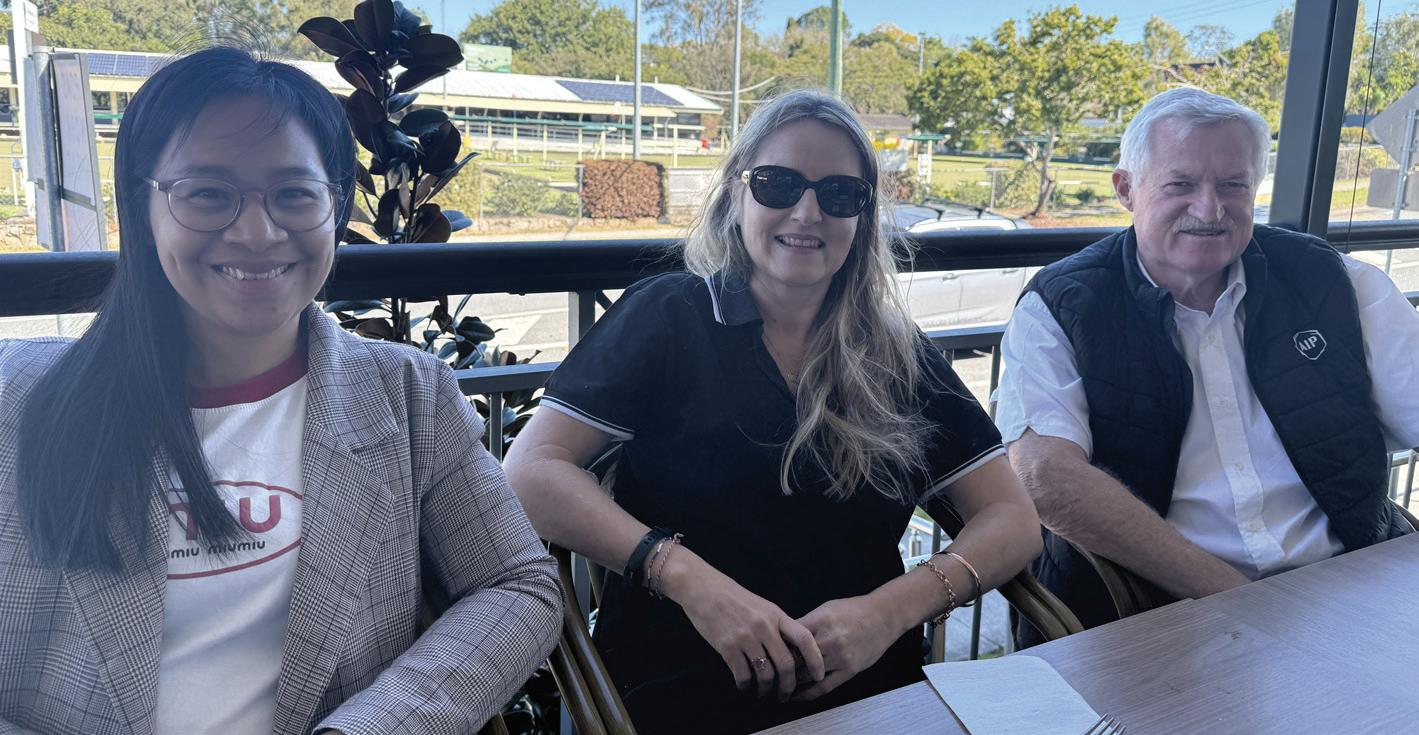
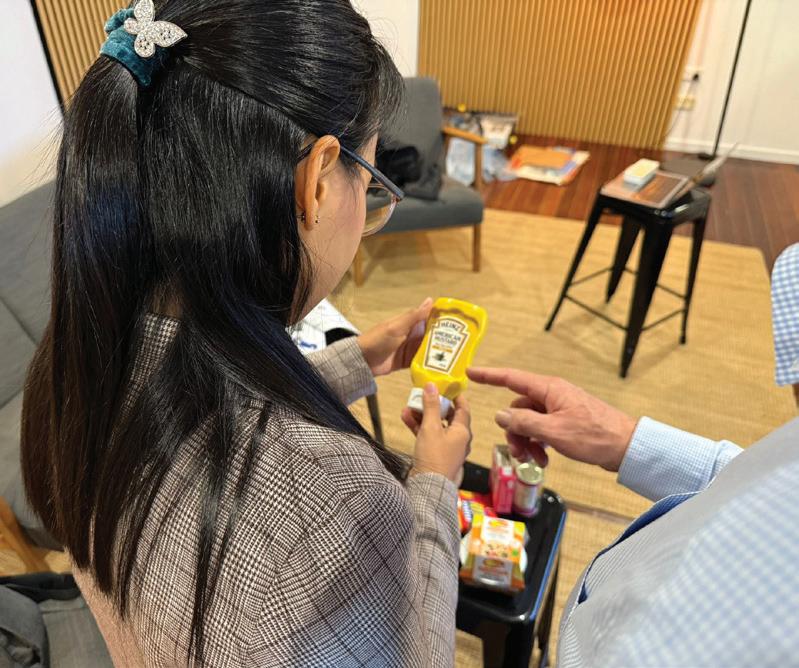
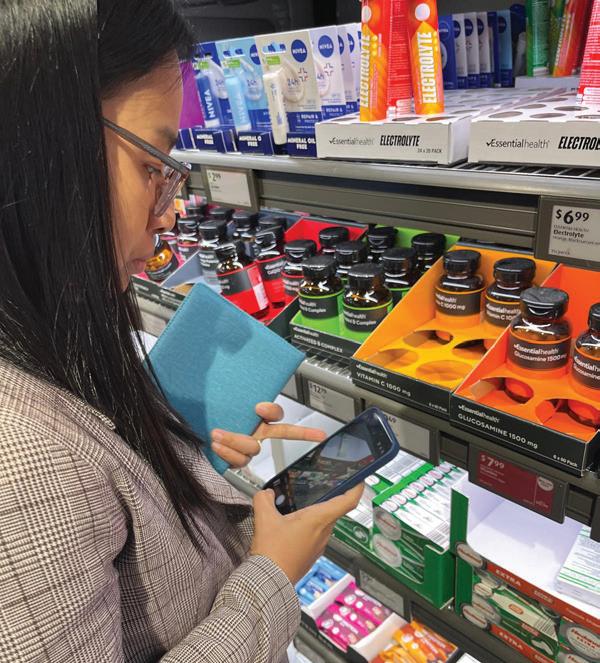
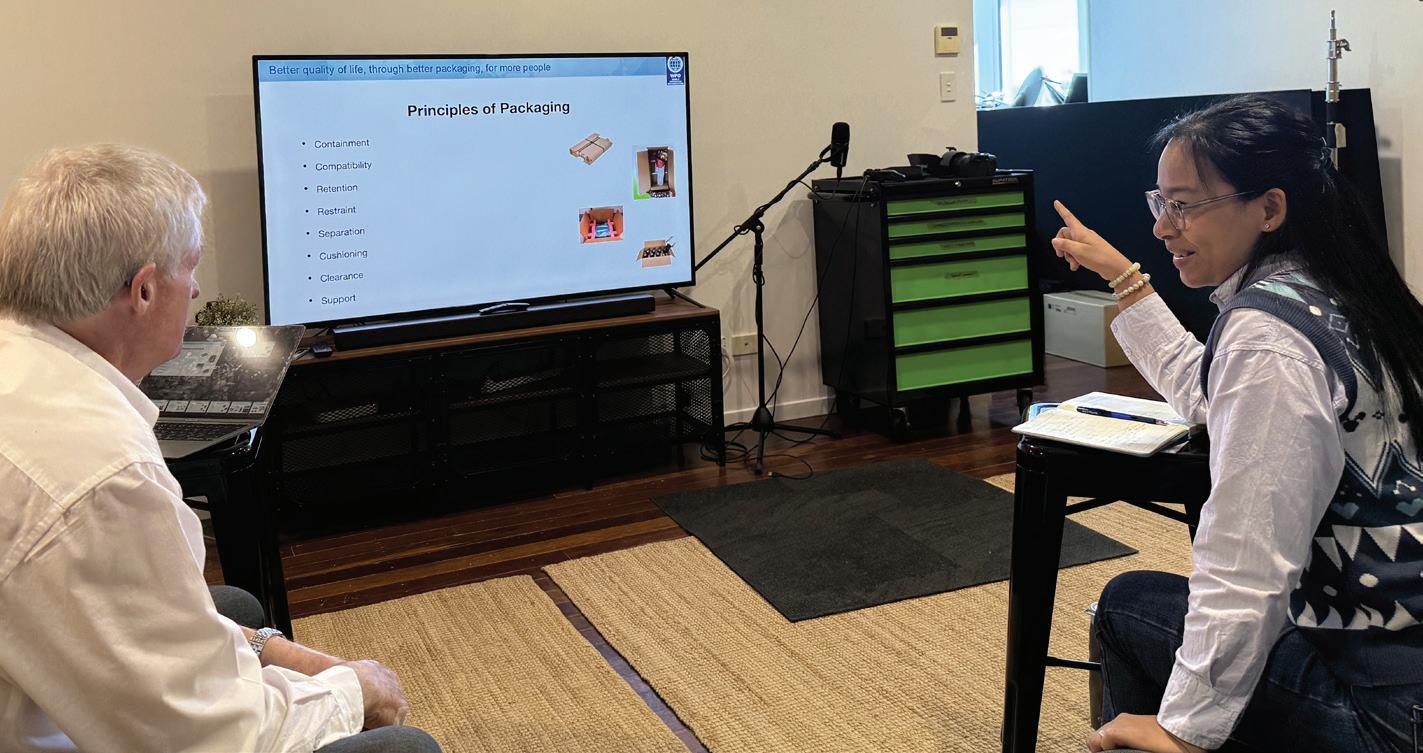
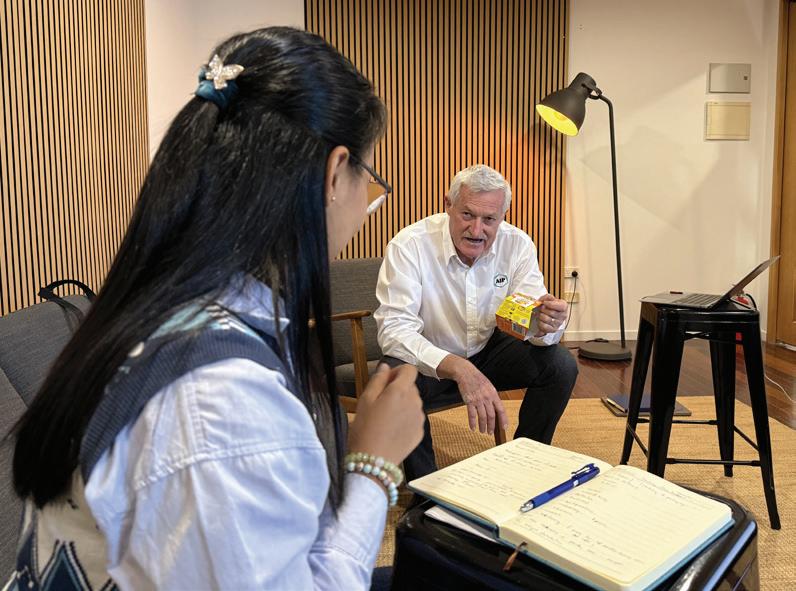
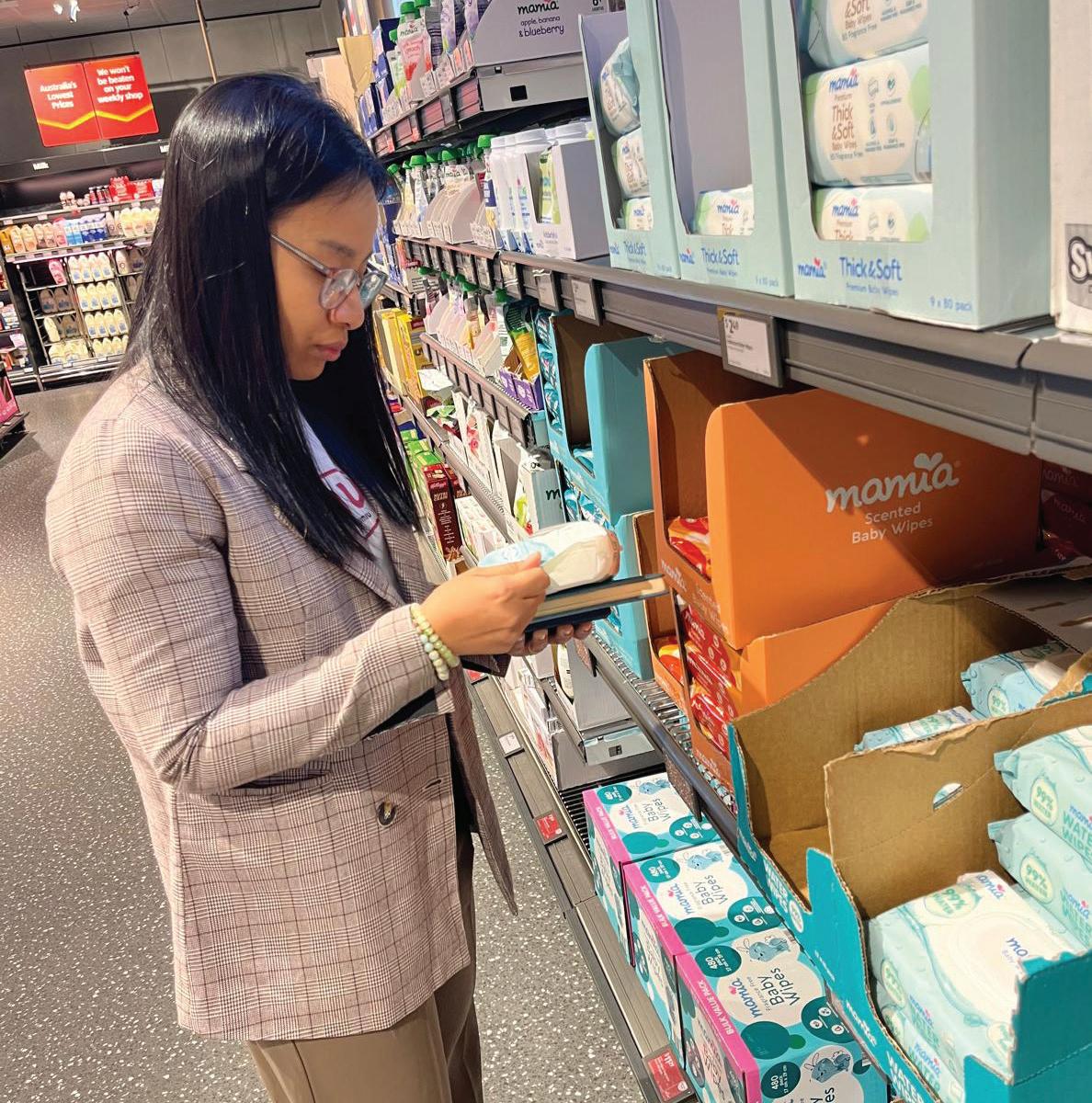

Do you have any old textbooks that you no longer use?


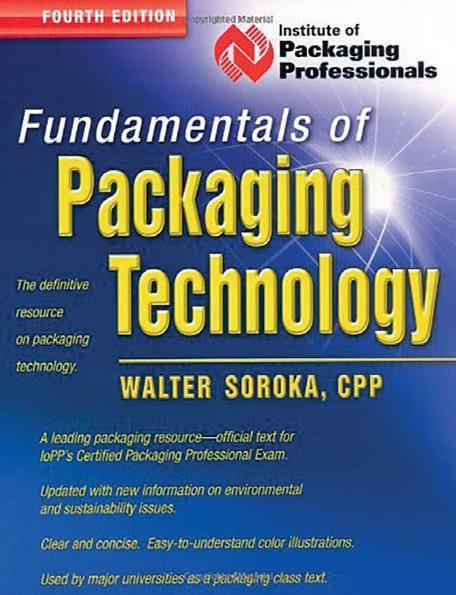
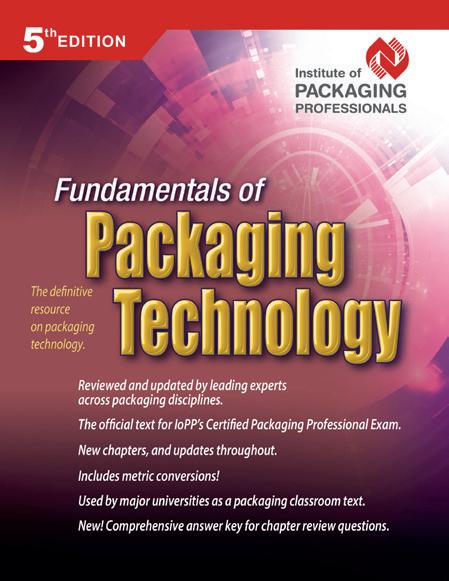
If you have one or these tex tbooks lying around gathering dust please send them to:
PO BOX 400 Mount Ommaney 4074 Queensland, Australia up - coming events.
The AIP is look ing to REUSE 3rd, 4th and 5th editions of the FPT tex tbook and share them with our overseas Members & these tex tbooks.
Please make sure you let us know who you are so that we can take a photograph of the lucky recipient with your book. Prof.

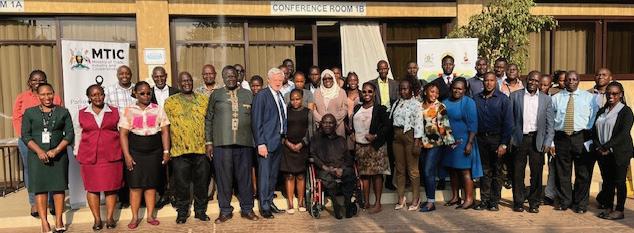
Uganda (5-7 August 2025)
The host Organisation, the Institute of Packaging Partners of Uganda (IPPU), led by Prof Charles Muyanja and Secretary General Mrs. Ketra Kintu from the Ministry of Trade, Industry and CoOperatives is a packaging institution within the Uganda serving the needs of the greater packaging community of Uganda. IPPU is also a recent member of World Packaging Organisation (WPO) and this was their first WPO supported training.
Uganda is located in central Africa in the African Great Lakes region, and lies within the Nile basin 41% of people live in poverty, and almost half of Uganda's population is under the age of 15, representing one of the youngest populations in the world Uganda is especially known for its diverse wildlife, which includes mountain gorillas, tree-climbing lions, stunning landscapes, rich cultural heritage and welcoming people � It is known as the "Pearl of Africa" for its natural beauty and unique experiences
The WPO is committed to providing packaging and related business education to WPO member countries that indicate a true need for such training opportunities� Education is critical to achieve the WPO’s mission of “Better quality of life through better packaging for more people” and with leadership from the Education Committee this sector of work is promoted and organised

Prof Pierre Pienaar FAIP, CPPL Education Director
Australasian Institute of Packaging (AIP)

Packaging education has never been more critical to help ensure that the world’s resources are used as effectively and economically as possible and through this space, WPO makes a significant contribution to improving knowledge and expertise �
The Minister of State for Trade, Hon Gen Wilson Mbasu Mbadi, was present at the opening ceremony where he urged local manufacturers and producers to prioritise quality branding and packaging in order to effectively position themselves in both domestic and international markets Gen Mbadi made the remarks while officiating at the closing ceremony of a threeday masterclass training in packaging technology
The event was organised by the Institute of Packaging Professionals of Uganda (IPPU), in partnership with the Ministry of Trade, Industry and Cooperatives and the World Packaging Organisation (WPO), with support from the International Trade Centre (ITC) and the United Nations Industrial Development Organisation (UNIDO)
Gen� Mbadi challenged the 83 participants attending from SME’s across Uganda to elevate local products so they can compete with international brands currently dominating the Ugandan market� He went on to say that good packaging is key to accessing markets, and, together with product quality, plays an even greater role in sustaining those markets� “Packaging is no longer a mere afterthought in value addition. It is a decisive factor in market competitiveness, food safety, environmental sustainability, and consumer trust.” He described the training as part of Uganda’s journey toward improving the packaging sector� “The journey of improving Uganda’s packaging sector is not a sprint, but a continuous process that requires investment, technological innovation, collaboration, and policy support."
He urged participants to apply the knowledge gained during the training within their industries, cooperatives, SMEs, and enterprises � “What you have learned here should spark innovation and drive product excellence, export readiness, and competitiveness as we pursue our critical policies of import substitution and export promotion,” Mbadi emphasised.
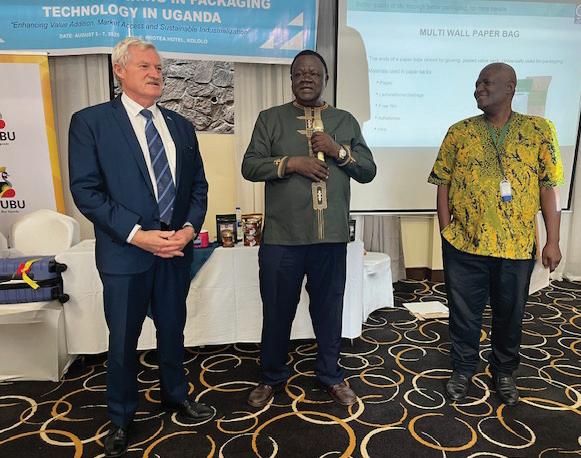

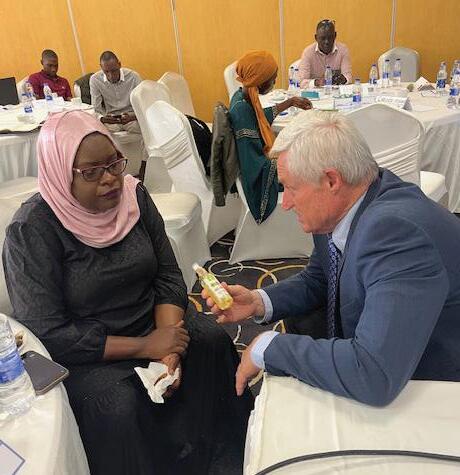
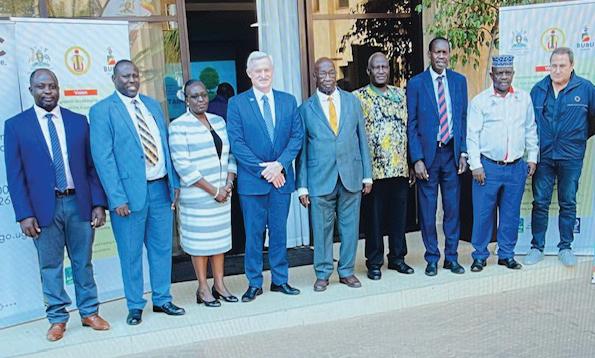
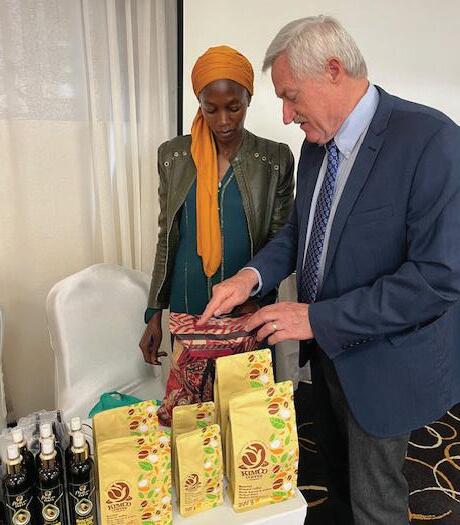
As a trusted leader of adhesives, Henkel has developed a range of adhesives for packaging and paper solutions that offers fast bonding for enhanced production processing and increased efficiency.
Our packaging adhesives provide excellent adhesion and bonding to a wide variety of surfaces and are used in applications ranging from folding cartons to food and beverage packaging.
Additionally, our portfolio of paper converting solutions enables new creative and sustainable design options for both food and non-food applications.
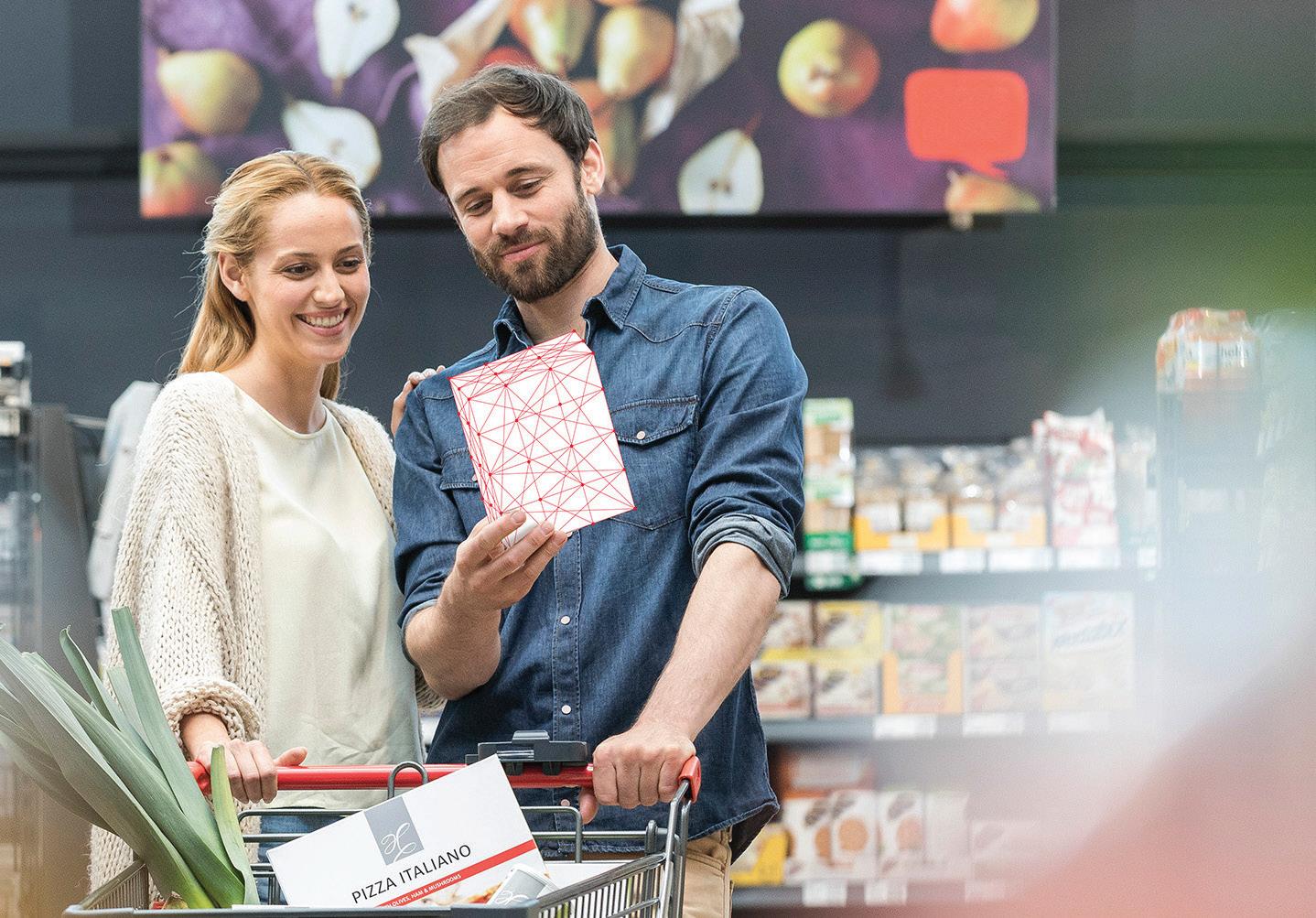

At last, we are seeing the resurrection of the recycling of soft plastic in Australia, there is ‘Light at the End of the Trommel”.
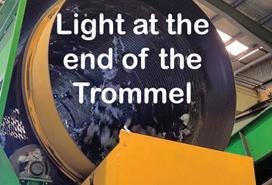
For those not familiar with material recycling facilities, the trommel is usually the first piece of equipment (a cylindrical revolving screen) used for screening the incoming packaging material�
On 27 August 2025, 100+ industry leaders had the opportunity to see soft plastic being recycled into valuable Soft Plastic Engineered Commodity (SPEC) pellets� The Soft Plastic Stewardship Australia (SPSA) and the iQRenew team hosted the industry tour of iQRenew's SPEC Mechanical recycling facility, which is located at Kundle Kundle, 8 km north of Taree, NSW The facility processes soft plastic and turns it into valuable high-grade pellets, flakes, and shreds for manufacturers Check out the local NBN News report�
What did we see?
As soft plastic is currently a major contaminant in Material Recovery Facilities (MRFs), the collection programs for soft plastics are being undertaken in specifically designed collection plastic bags (80% recycled content)� Many of you will have heard of the Curby bag trials being undertaken on the NSW Central Coast These Curby and other plastic collection bags are the feedstock to the iQRenew process�

Keith Chessell FAIP (Life) Education Team Australasian Institute of Packaging (AIP)
The iQRenew process – The plastic collection bags are mechanically opened, with the first screening process through the trommel to remove paper, glass, and foreign contaminants The second screening has the mixed soft plastic passes through advanced optical sorting This produces three grades of output: clear/white LDPE, coloured LDPE, and multi-laminate�
The current iQRenew process has an 80% yield, with the balance going to landfill, being made up of contaminants such as chlorine-laden (PVDC) cheese and meat wrappers� As the education of consumers and packaging design (use of mono films) improves, we will see a reduction in the levels going to landfill�
The LPDE clear outputs are shredded, washed, dried, and then a densification process with heated screws (extrusion) produces compressed beads for easier handling and transport�
The outputs from the plant are currently being used by 12 offtake partners to manufacture products including Garbage bags, buckets, bin caddies, pallets, bollards, erosion control grids, insulation, and paving blocks The production output consists of approximately20% A grade clear/white LDPE, 20% B grade coloured LDPE, 40% multi-laminates� Gallagher indicated that all SPEC-produced products (the pellets, the flake, and the shred) have been certified under the Global Recycling Standard
Another important learning from the visit was that this type of iQRenew's SPEC Mechanical recycling facility is a key step in providing the quality raw material required for chemical or advanced recycling of soft plastics into oil�
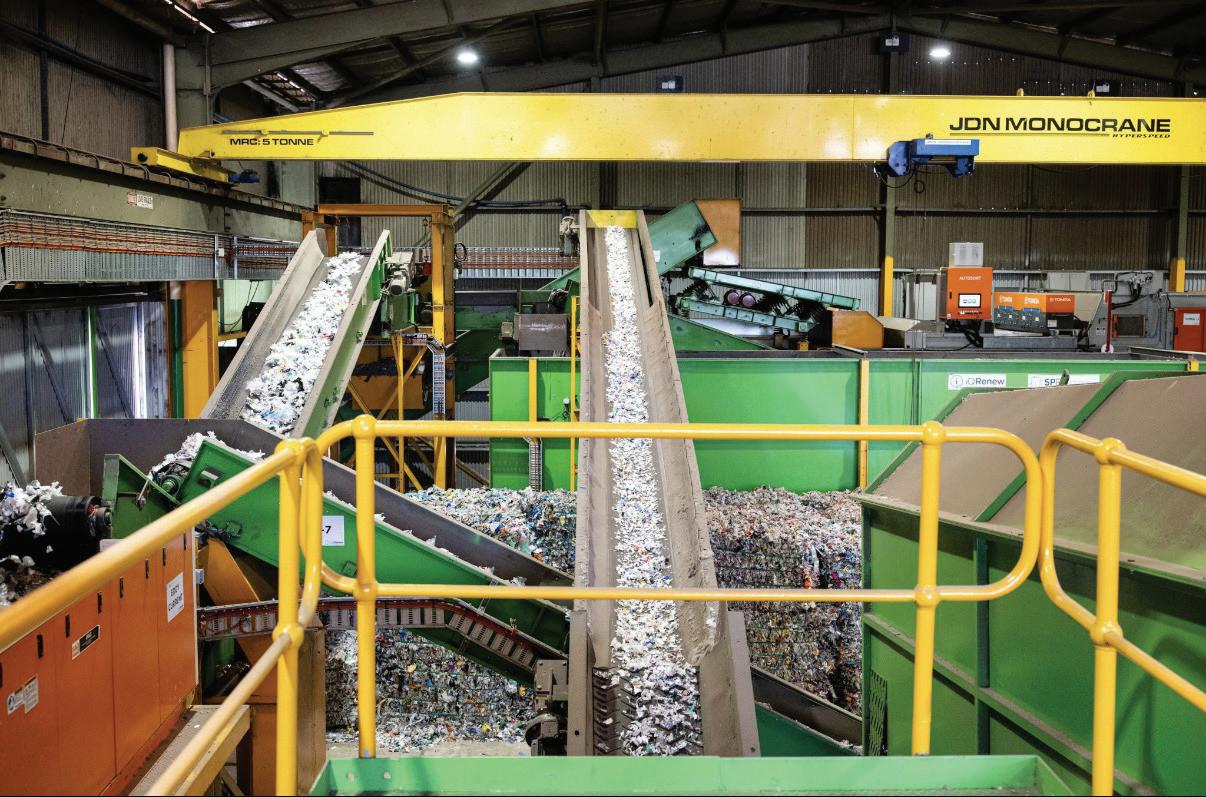
Pippa Corry’s LinkedIn report of the tour highlighted a few key actions for brand owners:
• Design packaging to align with circular economy principles, and if soft plastics play a role within your strategy, ensure they meet soft plastic design standards
• Join the SPSA scheme (85% of companies using soft plastic still haven’t)�
• Use on- and off-pack comms to educate consumers and build trust�
iQRenew CEO & Managing Director, Danial Gallagher, indicated that the facility represents over five years of trials, innovation, and significant investment The facility can now process 14,000 tonnes of household soft plastics per year With the recent Federal and NSW governments' investment of a further $9�2m in government funding, iQREnew will expand its capacity to 24,000 tonnes That’s up to three times the volume previously collected by REDcycle
Danial Gallagher’s main message to the industry“Recycling only works when products that are made with recycled content are purchased. The more those products are bought, the more collections and the more processing we can support.”
Barry Cosier, Co-CEO of Soft Plastic Stewardship Australia, also emphasised the importance of the procurement of recycled products, including the use of recycled content This is a key ‘Pull through” effect, required not only for the iQRenew and other soft plastic facilities but for the soft plastic recycling success � SPSA is investigating a range of collection options and multiple output options It was encouraging to hear that Woolworths now has 500 stores collecting soft plastics�
Over the last four years, the industry has been working hard to recover and reestablish the collection and recycling/reprocessing of soft plastics Much of the early activity has been undertaken by the Australian Food & Grocery Council's (AFGC) National Plastics Recycling Scheme (NPRS) and the major retailers' Soft Plastics Taskforce� This work is now with the newly formed Soft Plastic Stewardship Australia (SPSA) � SPSA recently received (11 August 25) ACCC’s provisional authorisation to establish a voluntary, industry-led national stewardship scheme to collect and recycle soft plastic packaging from consumers� SPSA’s program gaps include:
1 Participation in the collection program SPSA is seeking new members, as its current membership is only 15 % of the major brands
2 Government policy to be formalised
3 � Working with a group of local councils (9 mainly regional councils in SA, Vic, NSW & Qld) using something similar household collection to the Curby model
On behalf of the AIP and the 100+ industry members, a huge thank you to SPSA, the iQRenew team for opening up their plant, and especially to Annika Stott for all the organisation leading up to the day

Attending the launch of iQRenew’s SPEC facility was a valuable opportunity to see Australia’s first purpose-built soft plastic recycling plant in action. Watching soft plastics transformed into pelletised streams ready for remanufacturing reinforced that with the right systems in place, recovery at scale is achievable.
It was great to witness the product of years of work led by SPSA and investment from committed companies across the value chain. To me, this highlights what’s possible when persistence, collaboration, and community demand come together.
With infrastructure like SPEC now operational, the next step is increased brand participation. I look forward to continuing to support brand owners on their sustainable packaging strategies to ensure effective design and meaningful participation in Australia’s soft plastic recovery.
Pippa Corry MAIP, Founder, Philo & Co
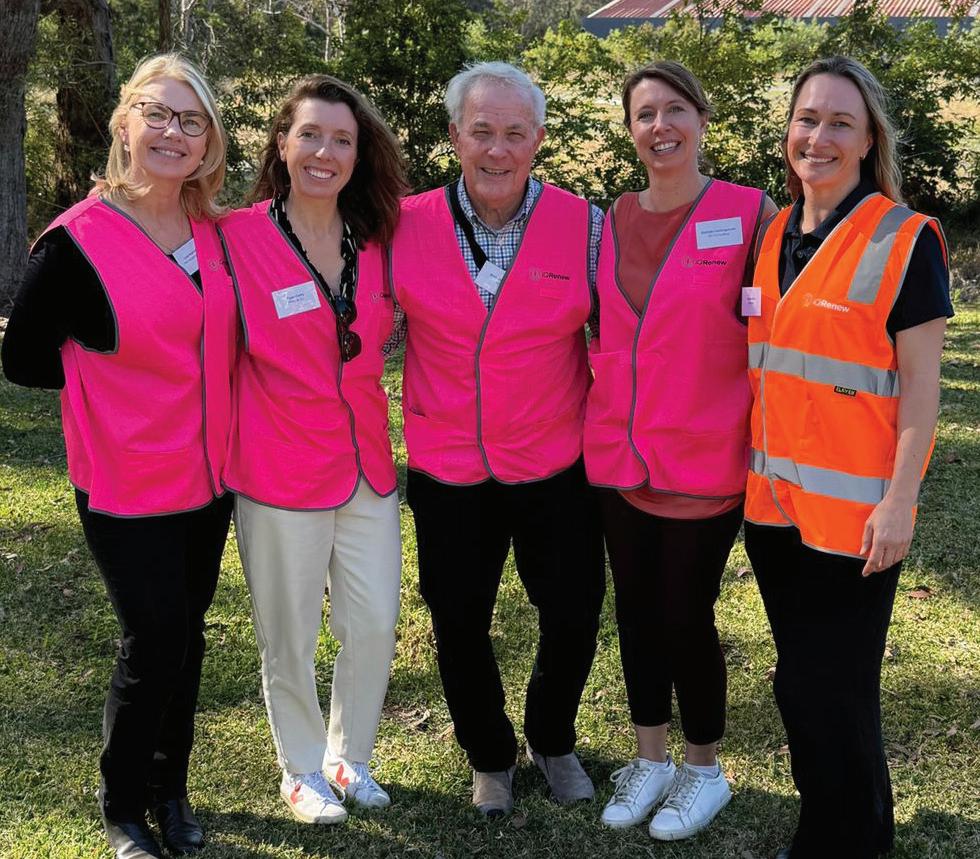

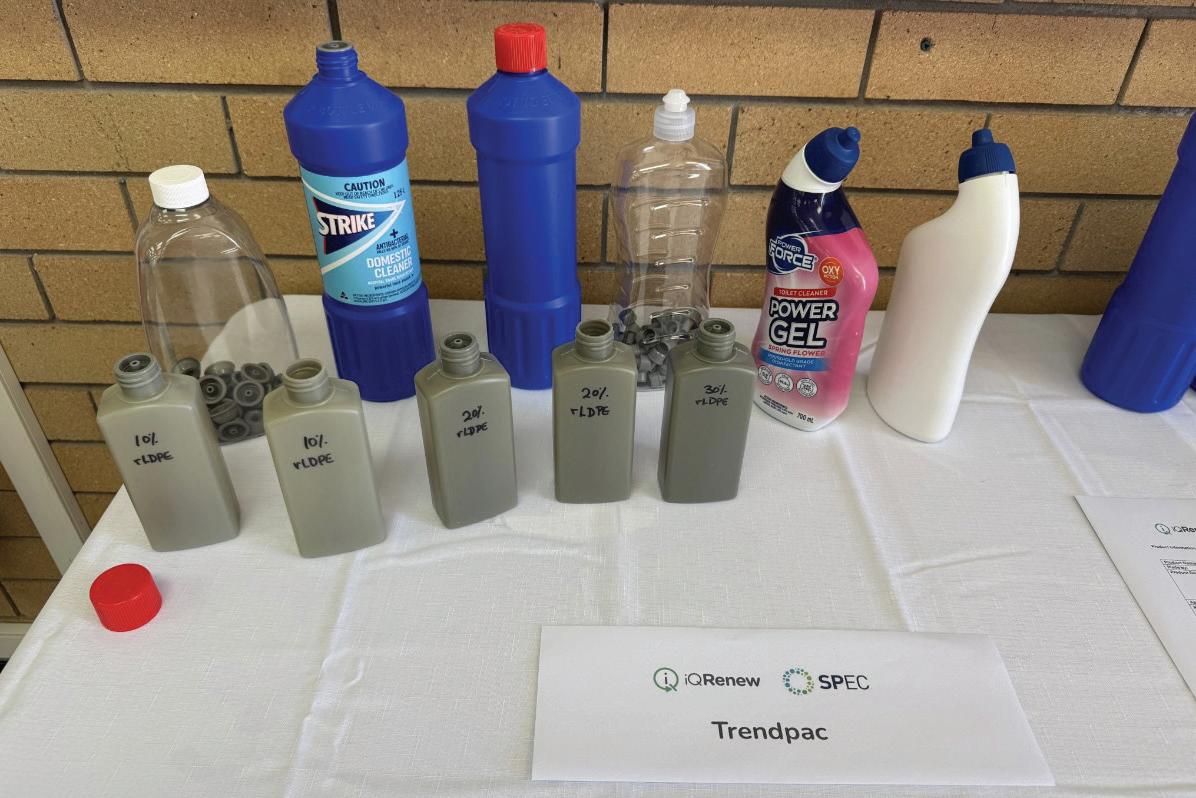



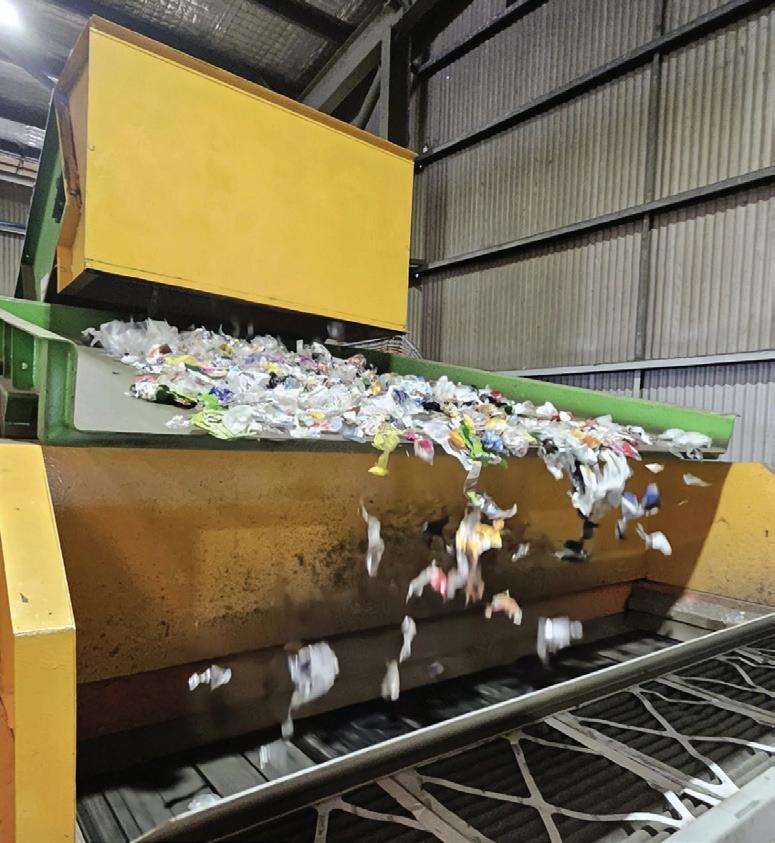

Looking around at the diversity of people and organisations who attended was demonstrable proof cross-sector collaboration is improving. There weren't just representatives from the recycling industry, but from the entire packaging value chain, government, consulting, media and the not-for-profit sectors. You wouldn’t have seen that ten years ago.
Belinda 'Bel' Chellingworth, Director, BC Consulting
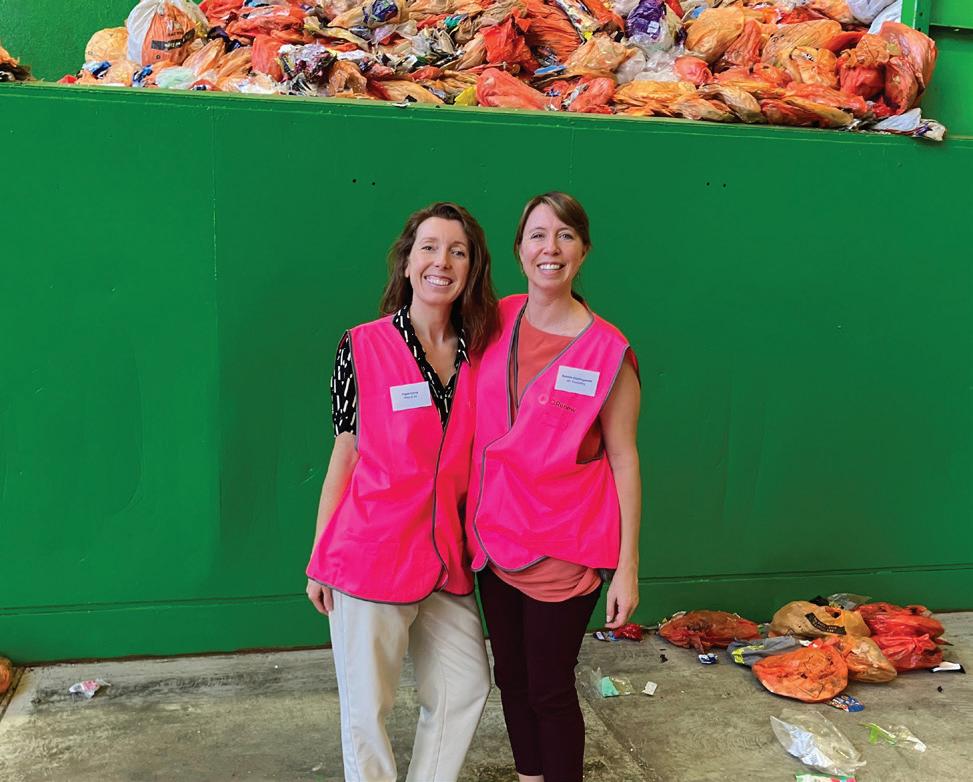
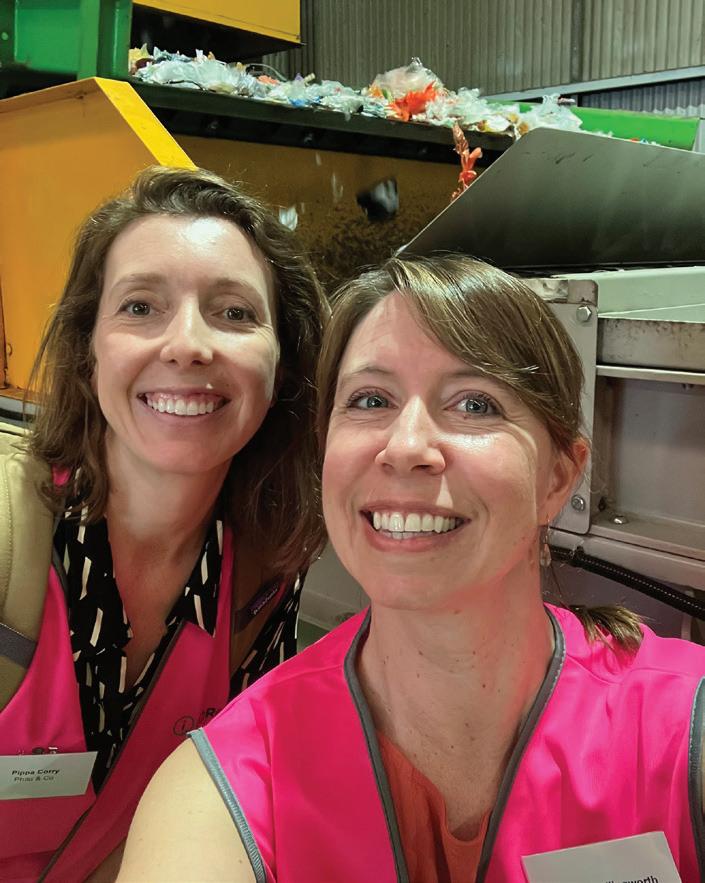


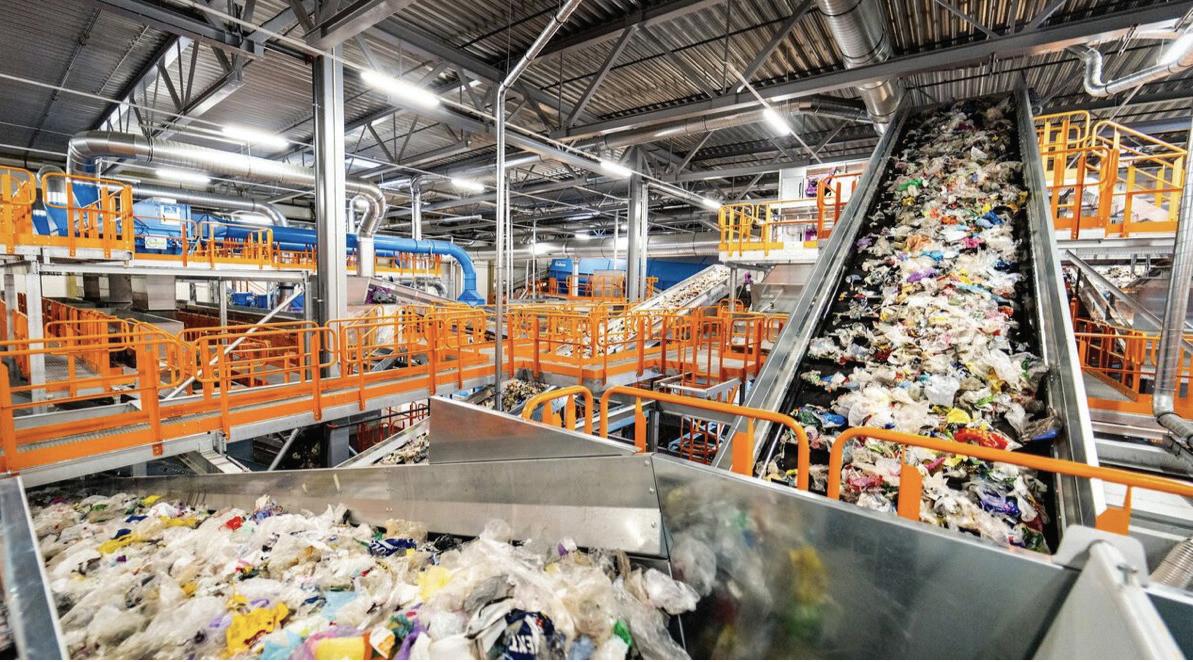
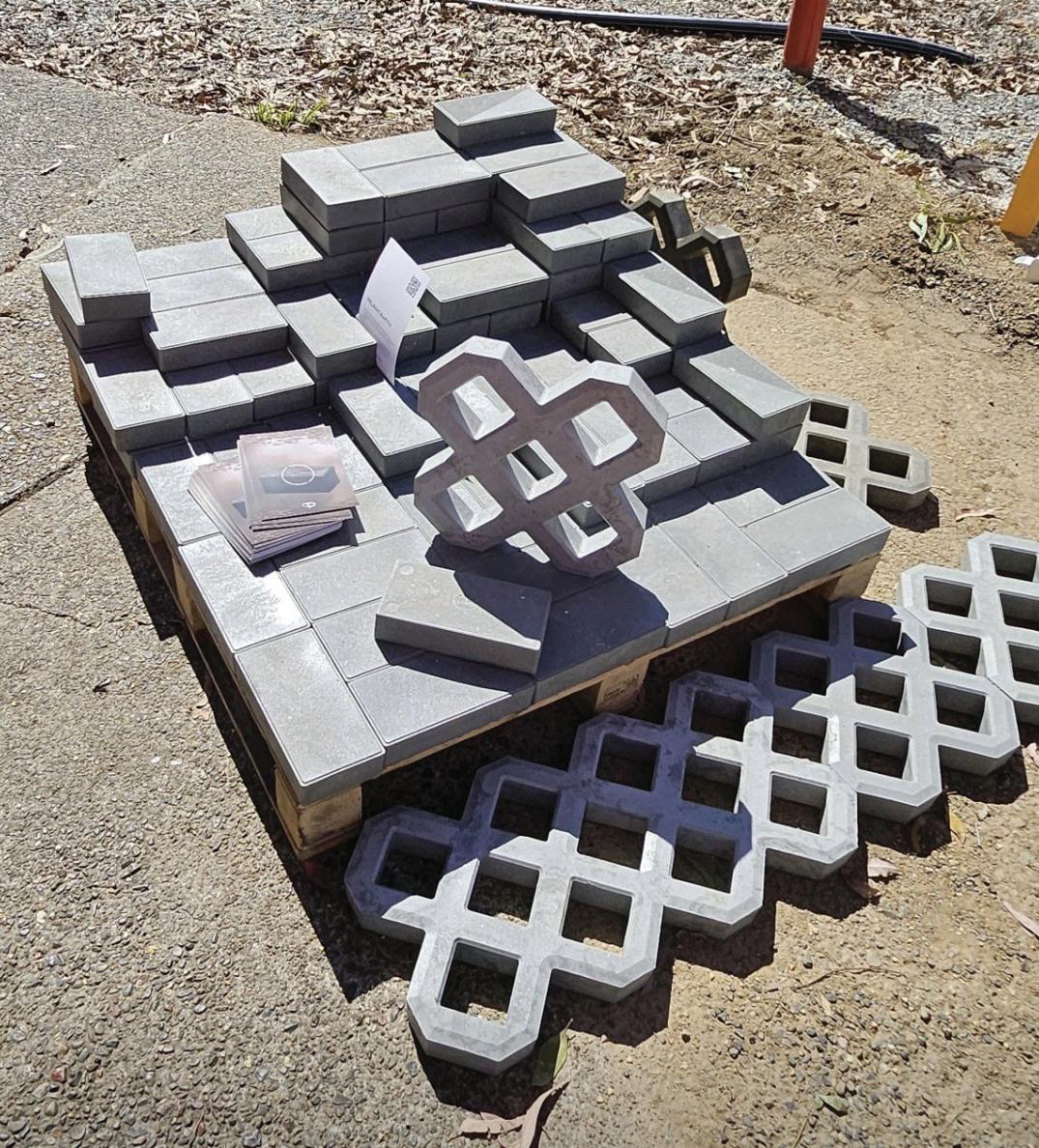
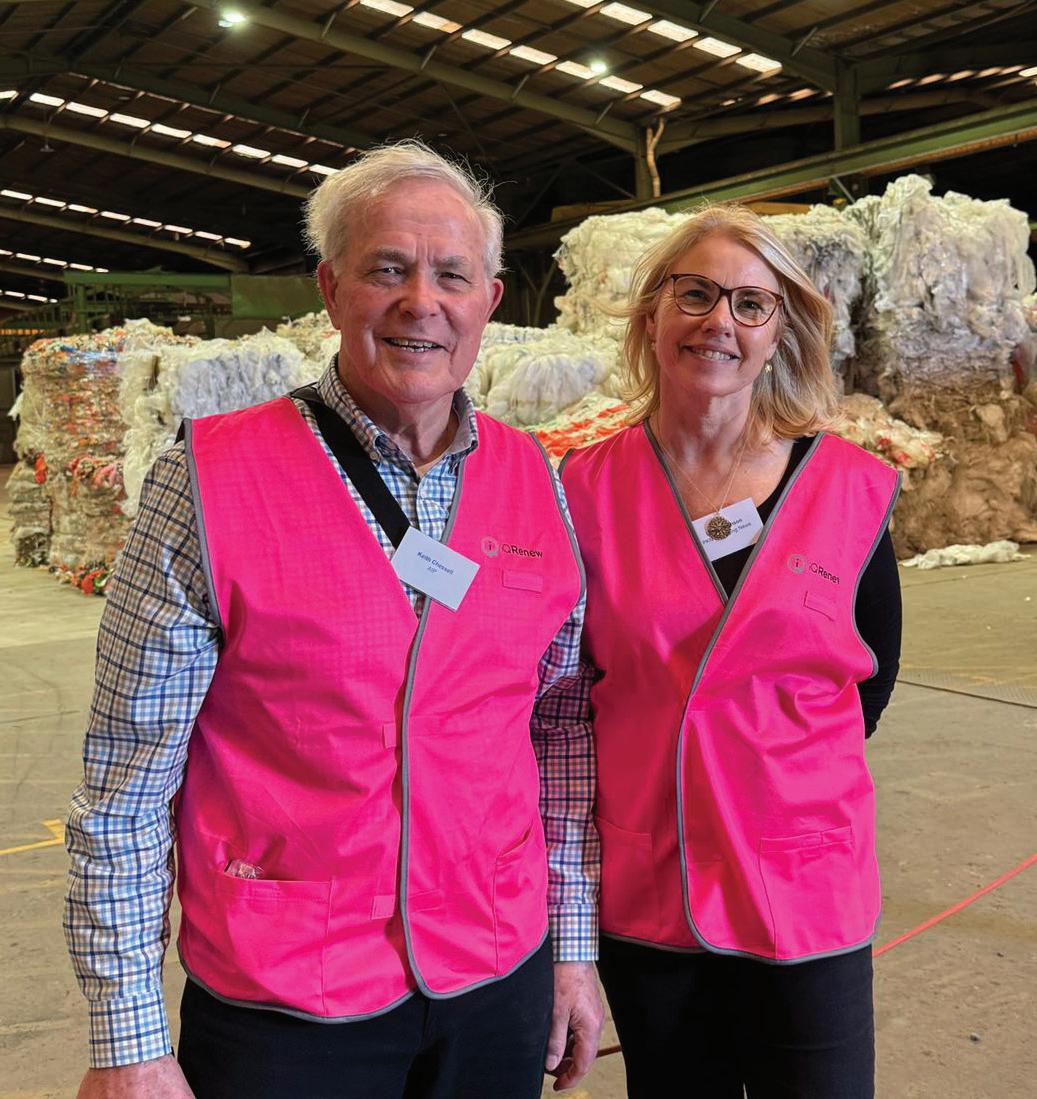
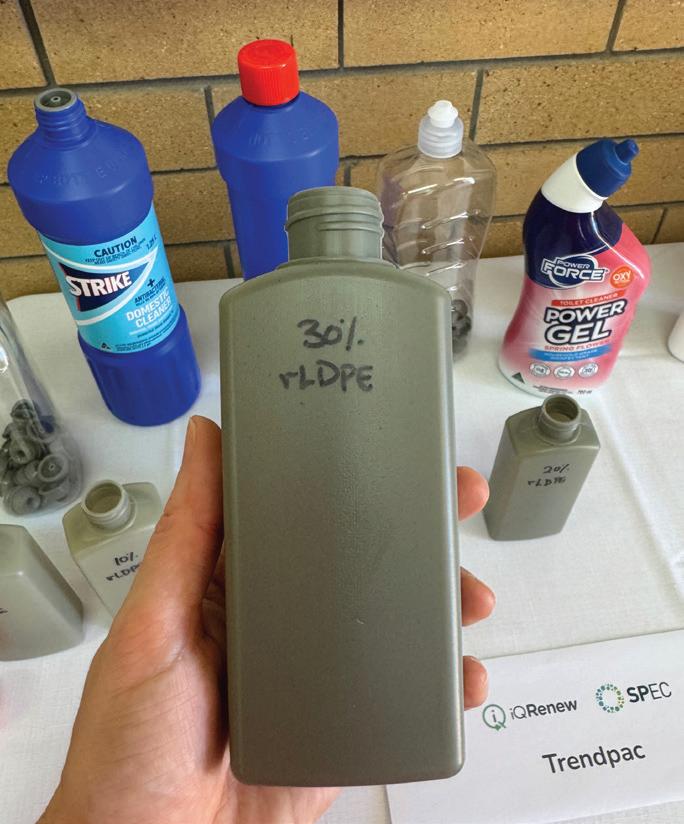
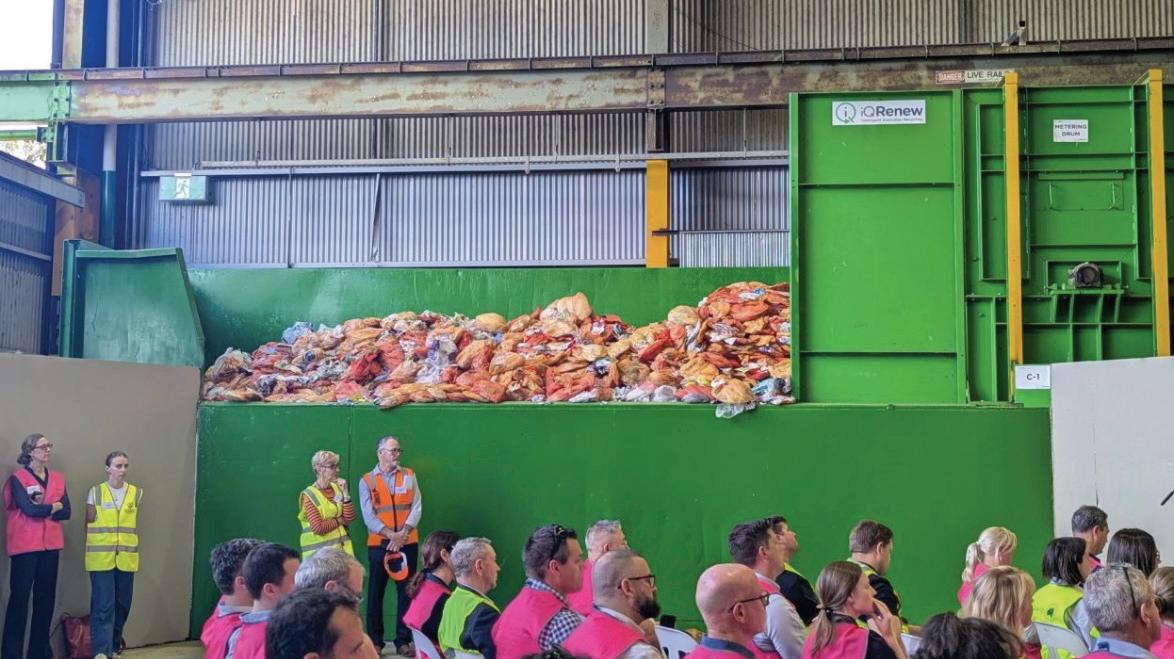
OzHarvest identified a gap in the market for updated household food waste research. This research captures the latest behaviours, volume and costs associated with household food waste. The report can provide organisations, industry and government with the latest research insights to develop food waste reduction strategies as well as highlight key actions for individuals.
Their new report, Half Eaten: Australian Household Food Waste Research, surveyed over 3,000 households, and revealed that households are wasting a staggering $1,500+ worth of food annually, with under 35s leading the charge as the nation's biggest food wasters

Highest Wastes Key insight: Households with under 35s emerge as the highest wasters� Households with under 35s generate approximately $1,503 in annual food waste (equalling to 113 kg of food), 71% more than households aged 35-65+, who average $898 (66 kg) in wasted food annually High-wasting households are predominantly urban-dwelling, affluent households, with 43% reporting annual household incomes between $100,000-$200,000+� They are typically comprised of younger adults living alone, with partners, or in a share house
Food labelling significantly influences food wastage Key Insight: 58% of high-wasting households cited food reaching either best before or use by date as the most common reason why they disposed of food, followed by food starting to go mouldy These households often disposed of food before a grocery shop to make room in their fridge, or because they had forgotten about food that had expired�
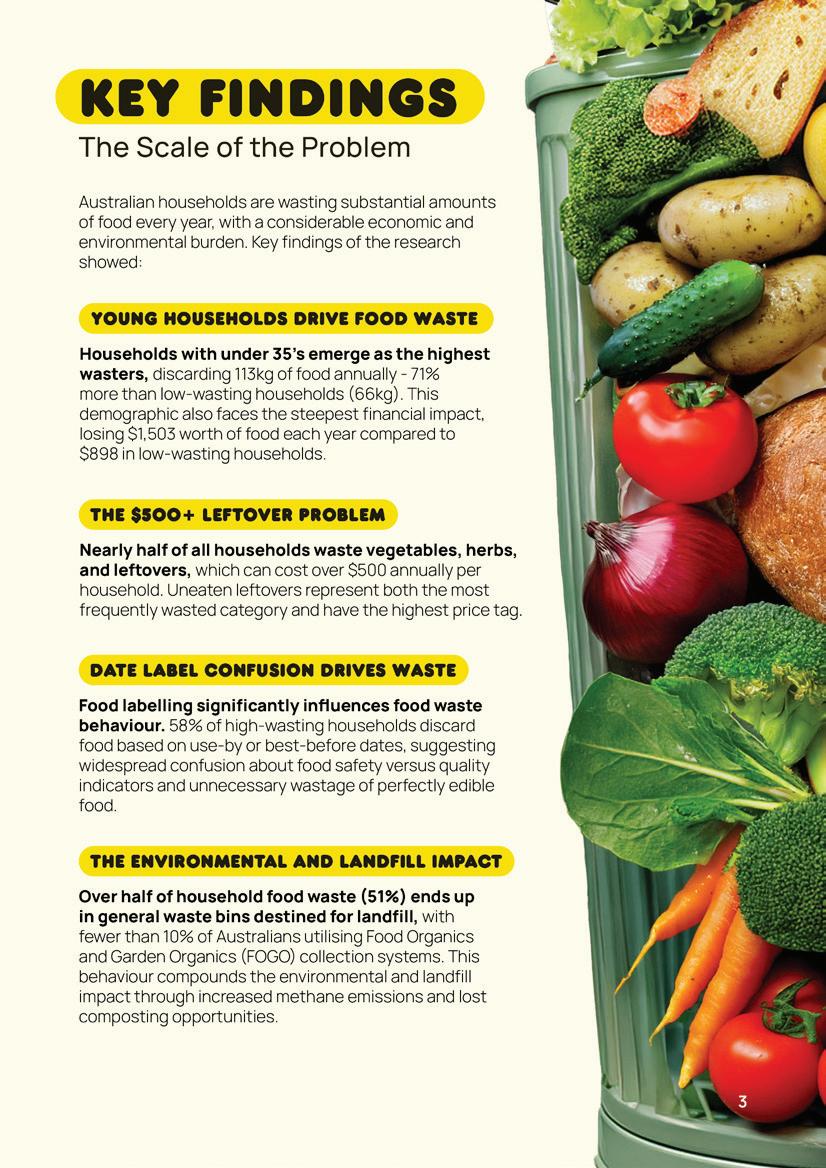
Landfill Key insight: Half of all household food waste ends up in landfill�
Volume & Value Key insight: Nearly half of all Australian households waste vegetables, herbs and leftovers, which can cost over $500 annually�
Vegetables Key insight: Almost half of households reported throwing out vegetables, primarily tomatoes, carrots, broccoli and leafy greens�
Leftovers Key Insight : Nearly half of households reported wasting leftovers, with the majority wasting homemade leftovers, more than takeaway�
Download the report here
The AIP has joined forces with leading sustainability software company Empauer, to offer a comprehensive and cost effective LCA Decision Package for Small to Medium Enterprises (SME’s). AIP and Empauer have entered into an exclusive MOU, providing Life Cycle Assessments (LCAs) to SME’s to ensure that they are making informed and science-based decisions when selecting packaging materials. The driving force behind this collaboration is recognition of the challenges faced by SMEs. The AIP, through its SME training programs, identified a pressing need for affordable and customised LCA solutions that simplify the often-complex process of undertaking sustainability assessments for packaging design.
The report part of the package can then be utilised for internal decisions including selection of packaging materials, components and the shift towards more sustainable alternatives within the business
This innovative LCA Decision Package will enable businesses to make informed and sustainable decisions when it comes to the packaging design they utilise and choices in selecting the most appropriate packaging material format It will provide AIP Members and the wider industry, with access to the latest tools and expertise, enabling them to reduce their environmental footprint and make responsible choices in line with global sustainability goals
The main benefit to SMEs in using the AIP / Empauer LCA Decision Package means you don’t have to understand all the complexities of LCAs, as you will be provided with the comparison information and assistance to understand from your selected LCA parameters the environmental impact for each packaging material choice�
The LCA Decision Package for SME’s provides four easy steps to complete your own Streamlined Lifecycle Assessment:
Step 1: Choose your packaging
Step 2: Choose your environmental indicators
Step 3: Data Collection
Step 4: Use the results for internal decisions including selection of packaging materials, components and the shift towards more sustainable alternatives within the business
The AIP & Empauer LCA Decision Package for SMEs provides the information for sustainable packaging design decisions
• Complete the online ‘Expression of Interest’ form www empauer com/lca-program/ and the brief questionnaire and then submit to Empauer
• Upon submission, you will receive a confirmation email acknowledging receipt of your interest
• The LCA will require you to provide some basic data about the packaging options being assessed You will be provided access to a ‘Data Collection Sheet’ and a video with instructions by a followup email to help you provide the data
• The LCA report will be provided within 2- 3 weeks of the submission of the Data Collection
Please register your interest using the QR code or go to www empauer com/lca-program/

Should you have any enquiries please email info@empauer.com
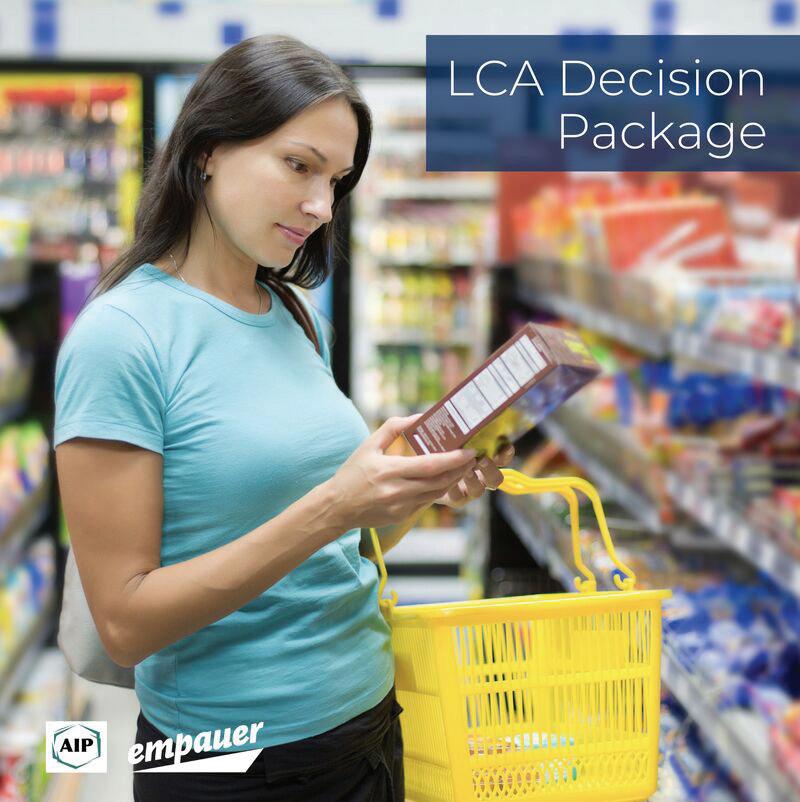
The drinks industry has always been about experience, craft and connection. In 2025 and beyond, that connection will be measured as much by a bottle’s footprint as by what’s inside.
A recent webinar, held in conjunction with the Drinks Association Sustainability Council and hosted by Nevil Shah from Australian Liquor Marketers, shifted the dial on sustainable packaging in the drinks industry Sector leaders Shae Courtney from Coles Liquor and Nerida Kelton, Executive Director of the Australasian Institute of Packaging (AIP) and Vice President of Sustainability & Save Food for the World Packaging Organisation (WPO), kicked off the session�
Coles Liquor
As National Quality and Sustainability Manager at Coles Liquor, Courtney shared Coles Group’s threepillar sustainability strategy: Climate, Nature and Circularity
A highlight for Coles Liquor is the initiative of removing aluminium hoods from sparkling wine bottles While this may sound like a small change, it will save nearly 4,000 kg of material annually�
Additionally, by the end of FY25, Coles Liquor will have achieved 98 7% of its Own Brand packaging being recyclable, reusable or compostable�
Australasian Institute of Packaging Cheat Sheet
Nerida Kelton’s presentation really hit home�
She opened with “If your packaging team isn’t embedding the 10 Principles for Sustainable Packaging Design (the Sustainable Packaging Guidelines, SPG) now, you’ll be scrambling when the new regulations hit�”
Kelton also reminded the audience that labels, adhesives and secondary packaging are often the hidden compliance killers A key takeaway for the liquor group
The new storytellers
Dharshi Hasthanayake, Sustainability Manager at GS1 Australia, shared common challenges brands face when managing on-pack information, while dealing with limited space and minimalistic design requirements
Hasthanayake showcased Next Gen QR Codes by GS1, the ‘new storytellers’ in the marketplace, and how they are helping to solving some of the major problems for liquor brands, including:
• Enabling consumers to easily access and explore brand sustainability credentials without label overload
• Supporting supply chain serialisation (tracking every individual bottle) and recall automation
• Ensuring the same QR Code will scan at point of sale in the future
Peter Davenport, also from GS1, backed Hasthanayake’s message remarking, “Next Gen Barcodes are a powerful tool, not only to meet compliance but to turn compliance into customer engagement ”
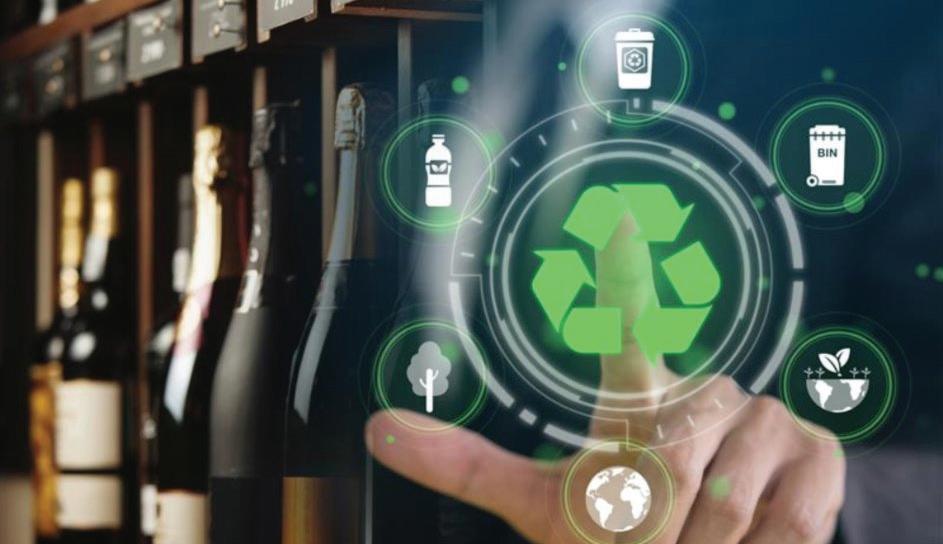
For many in the drinks sector, sustainability talk may feel like cost and compliance rather than revenue
However, as Courtney previously demonstrated in discussions with the Drinks Association, “Critically, sustainability should be baked into the culture of a company as business-as-usual ”
Courtney also added, “Premium isn’t always viable, so smart design choices such as lightweighting bottles or reducing unnecessary packaging, delivered at scale, can offer measurable impact, while also positively influencing customer proposition and cost � ”
The drinks industry is ripe with innovation and well placed to invest in partnerships that help meet sustainability objectives while embedding a sustainability culture as a driver of resilience within business
The GS1 Australia x Drinks Association webinar was held on Wednesday 13 August. A recording of the webinar, this can be accessed via our You Tube channel at https://youtu.be/7nM4jbmNbAw
The final word
Sustainability in the drinks industry isn’t about chasing trends; it’s about anticipating certainties and seizing opportunities From removing polylaminate hoods on Coles Liquor Own Brand wine bottles to Next Gen QR Codes providing enhanced transparency, the innovations showcased at the GS1 x Drinks Association webinar aren't future visions, they are already in play� Shah closed the webinar with a sharp reminder, “If your sustainability claim can’t withstand an audit, it’s a liability, not an asset ”
• Audit your packaging against the 10 Sustainable Packaging Guidelines
• Integrate digital labels with Next Gen Barcodes
• Design with simplicity in mind
The team at GS1 Australia is ready to assist you in exploring Next Gen QR Codes and how they can shift the dial on sustainability for your brand
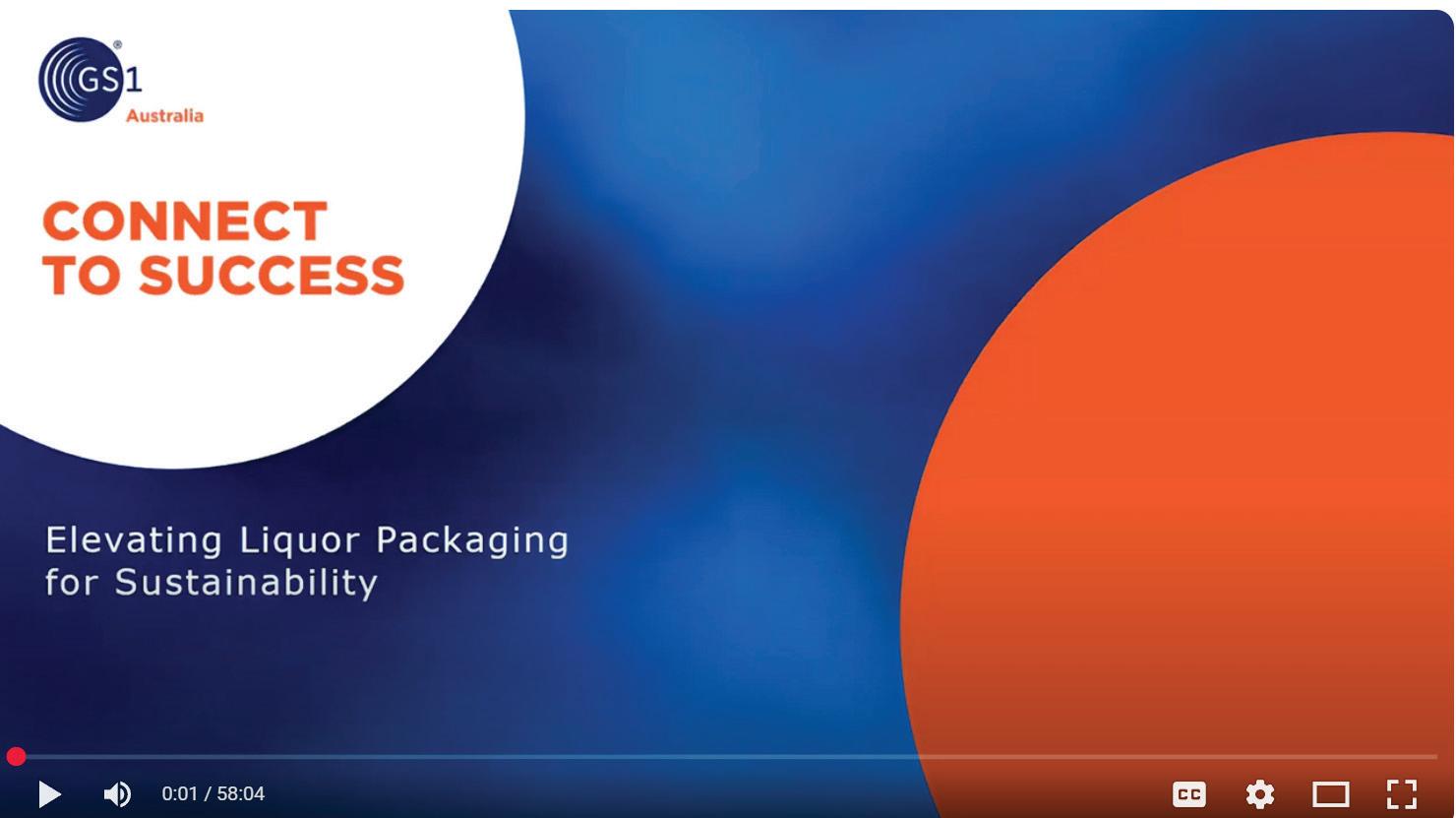

• Australian made checkweighers
• Metal Detectors & X-Ray inspection systems
• Food grade depositors for ready meal lines
• Trade scales and smart weighing systems
• Calibration services (NMI accredited)

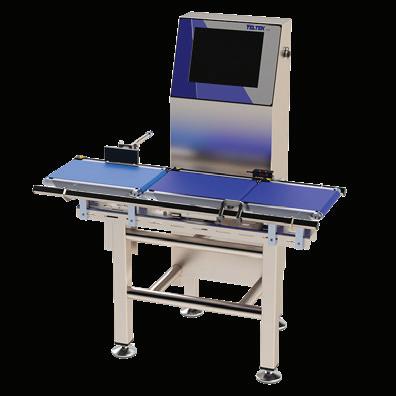
Suppliers of 1300-989-079 sales@ofiinspection.com.au www.productinspection.com.au
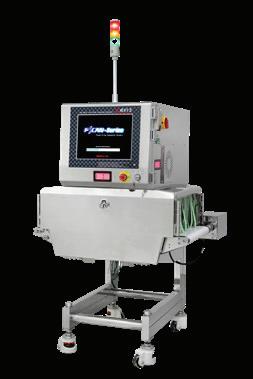


Australia’s recycling industry has welcomed new commitments by New South Wales and South Australia to include glass wine and spirit bottles in container deposit schemes (CDS) from 2027. The Northern Territory has sped up the process and will start recycling these glass bottles within six months.
The Australian Council of Recycling (ACOR) has long supported the move, noting that these bottles are highly recyclable, valuable and well-suited to CDS
“Expanding CDS to glass wine and spirit bottles is a smart step,” said ACOR CEO Suzanne Toumbourou. “It delivers high-quality glass for bottle-to-bottle recycling, cutting emissions, saving energy and strengthening Australia’s circular economy. It’s a win for households, charities and the environment.”
ACOR said glass bottles are infinitely recyclable and can be remade locally, supporting home-grown jobs and reducing reliance on virgin materials
The organisation also said it would like the CDS to further expand to include more beverage types, including juice concentrates, cordials and larger containers of beverages already in the scheme
“Container deposit schemes are a fantastic way to recover well-sorted, high-value materials that can be recycled locally,” Toumbourou said “Keeping the focus on recyclables ensures these programs remain strong, trusted and deliver clear environmental benefits. We’re pleased the NSW and SA Governments will be engaging with peak bodies to make sure these changes deliver positive recycling outcomes.”
Published

The Waste Management and Resource Recovery Association of Australia (WMRR) has also welcomed the move, and hopes the other states follow suit “This is a cheers-worthy moment for recycling in Australia! Expanding CDS to include wine and spirit bottles is a win-win — it keeps valuable glass out of landfill, reduces litter in our parks and public places, creates jobs and puts money back in the pockets of everyday Australians,” said Gayle Sloan, CEO of WMRR
“We applaud NSW, SA and NT for showing leadership, but it’s time for WA and Victoria to join the party. Australia deserves a truly nationally consistent scheme, so wherever you crack a bottle — whether it’s a Barossa red, a Margaret River chardonnay or a Tassie whisky — you can recycle it easily and know it’s going to be a bottle again in Australia.”
WMRR is now calling for WA, Tasmania and Victoria to step up and ensure that Australia has one simple, consistent, national approach to CDS — without delay� “We know Australians are passionate about recycling, and this reform is about making it easier, fairer and more effective. With nationally consistent CDS settings, industry can plan with confidence, investment can flow and we can deliver the clean, high-value recycled materials that are crucial to a circular economy.”
SUSTAINABILITY MATTERS
magazine and website provide sustainability-focused professionals with an easy-to-use, readily available source of the latest information that is crucial to help you reach your environmental, social and corporate governance (ESG) goals.

The Australasian Institute of Packaging (AIP) is taking the world by storm: Food Waste Reduction through innovative packaging solutions
The Australasian Institute of Packaging (AIP) is the only peak professional body for packaging education and training in Australia and New Zealand. As the technical arm of the packaging industry, AIP provides support and training to design better packaging across all industries and categories, including primary, secondary and tertiary packaging.
As a not-for-profit educational institution, AIP also offers higher education degrees; a Master of Food and Packaging innovation with the University of Melbourne, a Diploma of Packaging Degree, Certificate in Packaging, Fundamental of Packaging Technology course and numerous hands-on workshops and training courses
We spoke with Executive Director Nerida Kelton to find out more…
Why is reducing food waste important for you and the AIP?
Food and beverage are the two main packaging industries in Australia, and as such, food and beverage organisations form much of AIP’s core membership base
� Around 20 years ago we wanted to create strong partnerships with food rescue organisations, particularly in Queensland, and this resulted in an annual Christmas hamper program delivered in conjunction with Foodbank, which we ran for over 15 years
Off the back of that program, we realised that food insecurity and food waste was a big problem in Australia
� When the End Food Waste Australia Cooperative Research Centre started, AIP was one of the founding project partners We sat down and explored what we could do together as an industryled project – we wanted tangible research that the industry could use�
It was important to us that we had evidence-based research, and we already had a longstanding relationship with RMIT University – so it all came together nicely� The subsequent research project created the Save Food Packaging criteria, to create a user-friendly resource for industry that empowered them
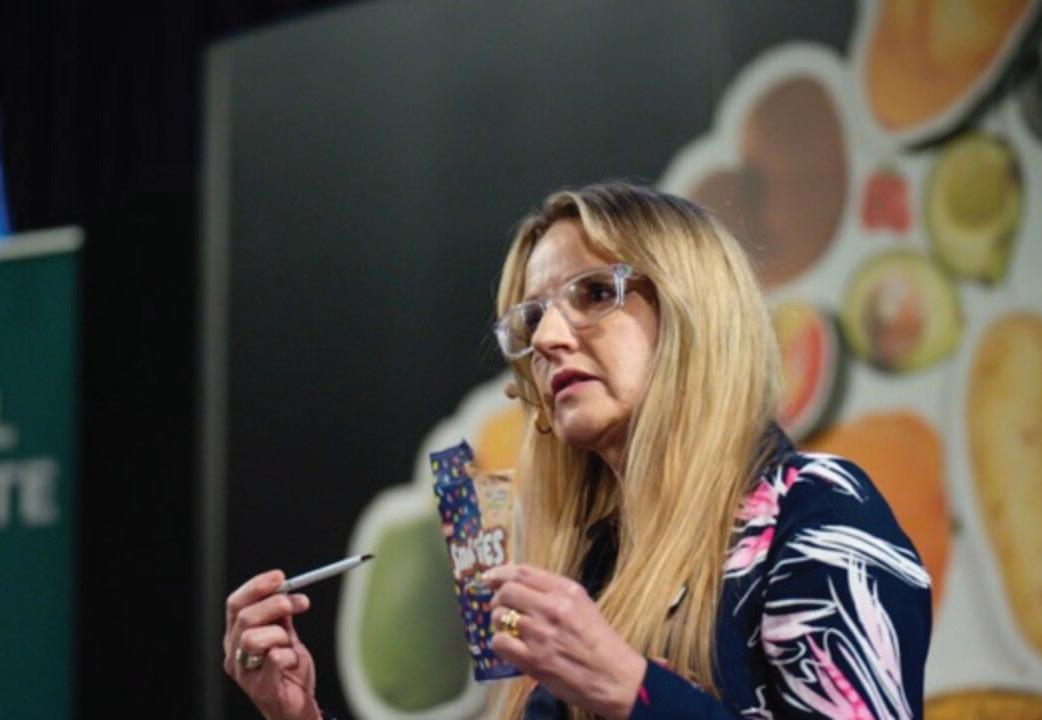
to prioritise food waste reduction, while embedding Save Food Packaging design principles into businesses
Since the inception of the project, the AIP has been able to present the Save Food Packaging guidelines at over 60 events around the world, providing training to thousands of people
What was the (specific) food waste challenge you needed to overcome?
The biggest challenge was around targeting, measuring and acting – understanding where food waste was happening and how to take action� For the food and beverage industry to intervene and improve packaging, they needed to understand where their losses and waste occurred
To facilitate this, we encouraged food and beverage businesses to join as a signatory of the Australian Food Pact, so they could create targets and strategies within their own business� We truly believe that if we design better, more intuitive packaging at the start, then you’re not going to have packaging pain points later, along the transportation line, in retail or the household�
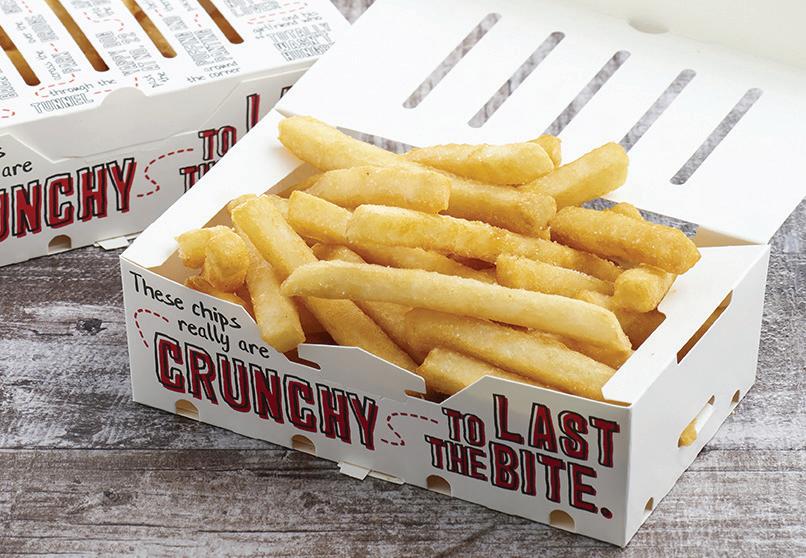



What are the outcomes of this project and the next steps to increase your impact?
AIP now has the ability to elevate the conversation around food waste and food loss through our training – we have guidelines, resources, booklets and case studies We’ve been able to provide packaging technologists within food and beverage businesses with tools to be able to design better, more intuitive packaging�
The challenge in our industry at the moment is the focus on packaging waste, while overlooking the environmental impact of food waste It’s especially important to talk about the paradox between packaging waste and food waste, to help build a more holistic understanding of the environmental impact of both the product and its packaging The key message is that you can’t look at packaging in isolation, it’s all connected�
We worked on our initial Save Food Packaging criteria project with 20 honours students from RMIT University, to embed the Save Food Packaging design principles into their projects From this group, 3 or 4 amazing teams ended up nominated in our 2024 Packaging Innovation Design Awards, followed by the 2025 WorldStar Packaging Awards, the respective teams won Global Bronze Award, and a Silver Award in the Save Food Packaging Student Categories� Recently one of the teams won the overall Best in Show Bronze in the Worlds for their Safe Food Packaging Project�
As well as two Australasian Packaging Innovation & Design (PIDA) award winners from 2024, Don Deli Cuts (George Weston Foods) and Naked Rivals, have taken out three WorldStar Packaging Special Awards� So again, it’s just fantastic, positive momentum that we’re seeing


We’ve been able to globalise the research findings from this project and share them with the World Packaging Organisation and other packaging associations worldwide. Through training, we’ve helped establish consistent, harmonised guidelines across countries. As a result, these organisations now have waste strategies in place, are introducing Save Food Packaging design awards, and are actively engaging with their governments – they’re really talking about it.
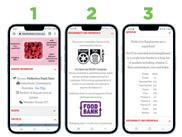

This is not a project that’s stopped, we see outcomes evolve continuously
This project really is a standout because it is one of the only programs that has trained over 15,000 people� We also created the world’s first Save Food Packaging Design Awards, which has now grown into a global program within the WorldStar Packaging Awards�
Find out more about the project here
• Domestic Manufacture.
• Domestic Recycled Content.
• 100% PCR rPET Material.
• Reduction of virgin materials.
• Lower carbon footprint.
• Tray kerbside recyclable.
• Australasian Recycling Labels (ARL) on pack for consumer disposal.

Australia’s recycling industry has welcomed new commitments by New South Wales and South Australia to include glass wine and spirit bottles in container deposit schemes (CDS) from 2027. The Northern Territory has sped up the process and will start recycling these glass bottles within six months.
Biotech company Samsara Eco has initiated its first plant in Jerrabomberra, Australia, to produce virgin-identical, low-carbon circular materials such as recycled nylon 6,6 and polyester with applications for the packaging industry
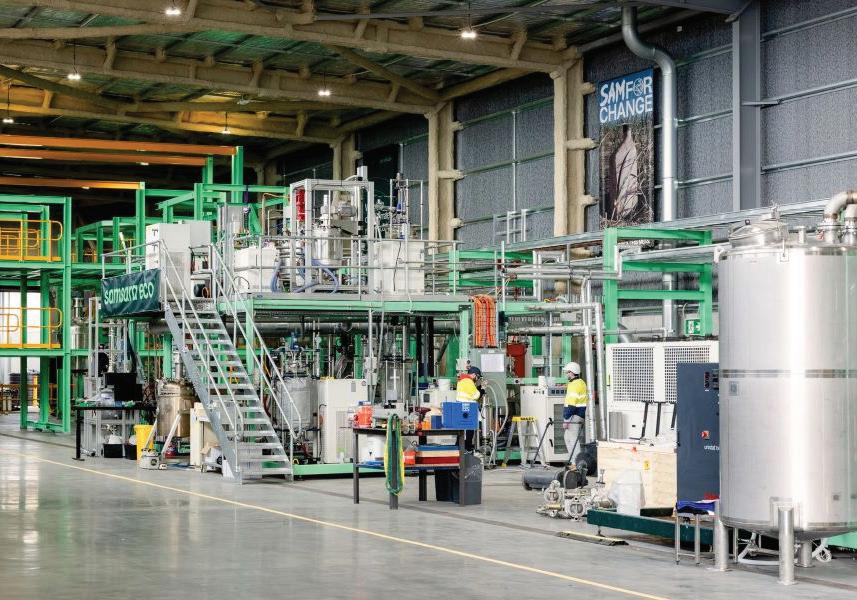
The plant and Samsara Eco headquarters in Jerrabomberra are home to the company’s enzymatic recycling technology EosEco� The technology uses “AI enzymes” to break down mixed plastics into recycled raw materials, preventing landfilling�
“The opening of Jerrabomberra is a milestone for us and the broader circular economy. In four years, we’ve scaled from bench research to pilot and demonstration, and now our first plant. This is a true tipping point for circularity, shifting circular materials from early-stage innovation to mainstream reality,” says Paul Riley, CEO and founder at Samsara Eco
The facility houses Samsara’s proprietary AI-powered enzyme discovery R&D platform aimed at finding recycling solutions for a broad range of plastics, which Packaging Insights discussed with Riley
Riley asserts that the company’s technology supports Australia’s net-zero targets, while driving economic growth, resilience, and productivity
“We’re creating an entirely new industry to unlock major export opportunities and bring new skills to market, while also helping to position Australia as a leader in circular technology and a global exporter of circular materials.”
A consortium of Samsara Eco’s investors, including Carley Phillips, principal at Greycroft, also commented on the milestone: “Samsara Eco’s new Jerrabomberra facility marks an important step toward scaling circular materials and showcasing the power of technology to transform industries We are excited to continue supporting the team as they bring this innovation to market and drive the growth of the circular economy ”
Jan Marchewski, associate at Hitachi Ventures, says the company is impressed by Samsara Eco’s ability to deliver results on time and on budget�
“The opening of the Jerrabomberra facility is a testament to the team’s execution. This hub will enable Samsara Eco to test AI-discovered enzymes at scale in collaboration with partners, further cementing its market leadership in enzymatic recycling.”
Phil Morle, partner at Main Sequence, comments: “Samsara Eco opening its first plant for infinite plastic recycling in regional Australia is an example of Australian ingenuity leading the world to create industries for the next generation of growth. In this case, the first step to eradicating the problem of plastic waste." Read the full story here
Tackle food insecurity at home before exporting, New Zealand Salvation Army says
A new report from The Salvation Army Te Ope Whakaora reveals that more than one in four households with children are regularly missing out on the food they need, while New Zealand exports enough to feed 40 million people overseas.
New Zealand might be expert at feeding the rest of the world, but it needs to do a better job of providing food to those within its borders, the Salvation Army says.
The report, Ending Food Insecurity – What Needs to Be Done Now, calls for urgent, valuesled action to ensure every New Zealander has access to sufficient nutritious food.
Download the report here

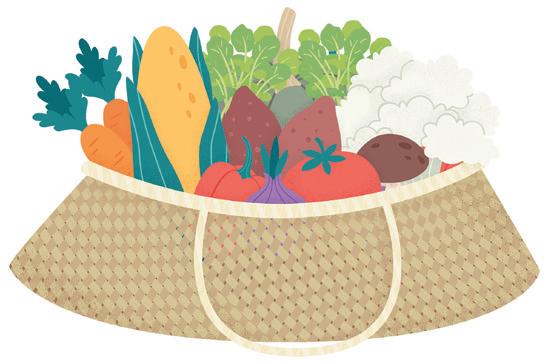
UK FlexCollect Report now available
This report details the outcome of a project undertaken by SUEZ recycling and recovery UK (SUEZ), in partnership with RECOUP, WRAP and Ecosurety, on behalf of the Flexible Plastic Fund (FPF), Defra, UK Research and Innovation’s Smart Sustainable Plastic Packaging Challenge delivered by Innovate UK, and Zero Waste Scotland.
Taking place over three and a half years, the project sought to better understand how to introduce a kerbside service for flexible plastic packaging for UK households by trialling the collection and recycling of the material with ten pilot local authorities, encompassing a representative range of demographics and collection service types � The intention of the project and its outcomes was to help both industry and government prepare for policy change, by establishing how flexible plastic packaging can be effectively collected, sorted and recycled in the UK�

for Packaging and Sign & Display Markets
Introducing the New REVO 2500 Series from Hanglory Group
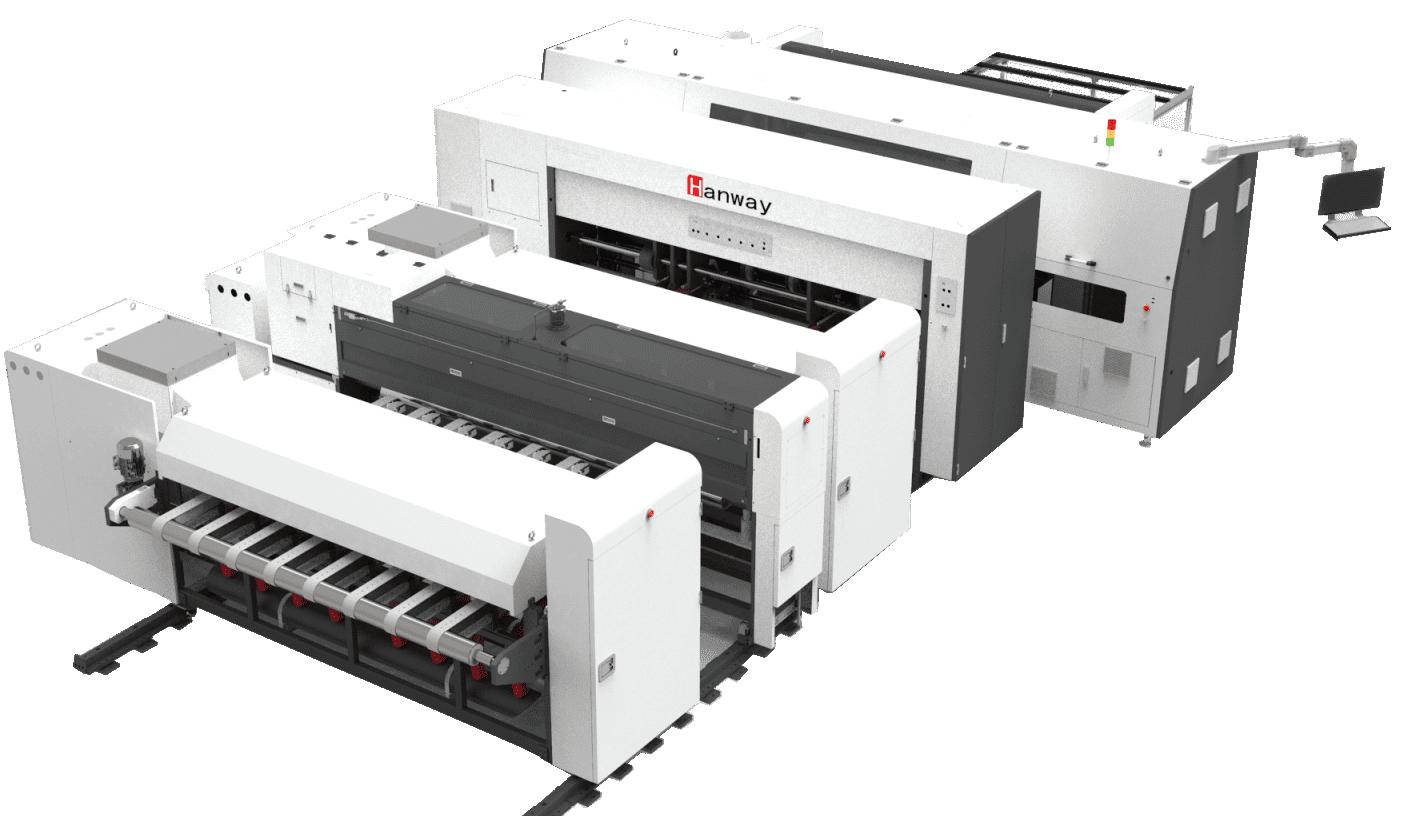






Proudly brought to you by Kissel+Wolf Australia Your trusted partner in print innovation. Visit our website to discover more about the REVO 2500 series.

The Australasian Institute of Packaging’s annual event awarded two new innovations.
Author Nerida Kelton FAIP, Executive Director AIP – Vice President Sustainability & Save Food – WPO
Sifting through the new innovations that were recognised in the annual Australasian Packaging Innovation & Design (PIDA) Awards is always a great way to see what design features or material choices are shifting the trends.
Year on year, the focus is predictably on designing out waste at the start, making sure that packaging is recycle ready, building in as much recycled content as possible and moving to mono materials.
Two 2025 PIDA winners that stood out were the Hidden Story Pinot
Grigio Bagnum and the Katermaster Regen reusable food container.
The Hidden Story Pinot Grigio Bagnum, which is a different way of saying a magnum in a bag, was developed by Victorian Alps Wine Co. and Auspouch Australia.
Victorian Alps Wine Co. was
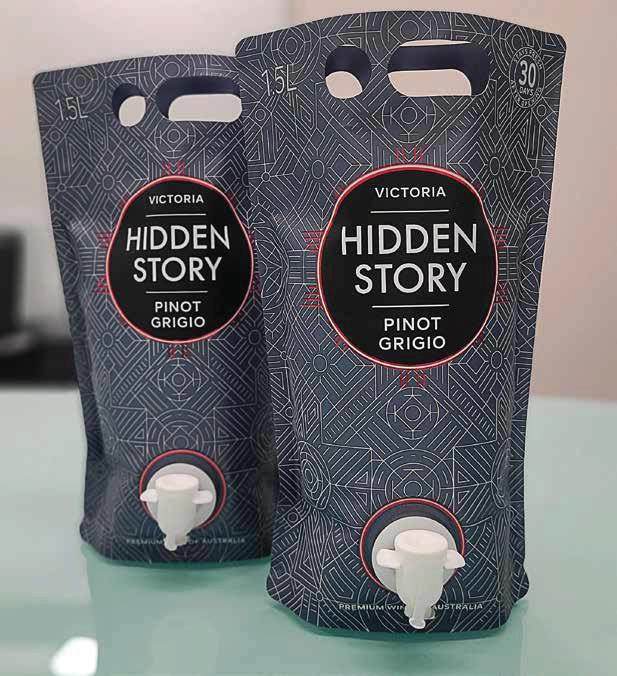
created by seven local wine industry families who came together to build a winery and brand showcasing wines from a selection of premium Victorian grape growing regions.
The team behind the Hidden Story Bagnum wanted an ‘adventure ready’, lightweight, convenient pack that offered a lower environmental footprint. The Bagnum takes over from the conventional bag-in-box wine cask, or the traditional magnums in the market, elevating the pack to new functional and aesthetic heights. The absence of glass enhances portability and eliminates the possibility of breakage.
The design of the Hidden Story Bagnum offers a stand-up mono material pouch with a carry handle and finger holes, a front-facing dispenser tap, and high-quality gravure printed graphics.
What really makes this a winner is that the Hidden Story Pinot Grigio is the first-to-market in Australia for a mono material wine pouch that is classified as a CEFLEX-compliant recyclable structure.
The elimination of problematic materials such as PET, nylon, aluminium foil and carbon black ensure that the Bagnum can be accepted into existing and expanding soft plastics recycling collection systems in Australia and New Zealand.
The lightweight nature of the Bagnum also offers Victorian Alps Wine Co. transport optimisation, shipping space efficiencies, pallet optimisation and improved storage capacity of the empty packaging before filling.
The Bagnum also offers functional and oxygen and moisture barrier properties to ensure that the wine stays fresh for up to 30 days after opening. Victorian Alps Wine Co can still offer its customers wines without compromise on product quality or taste. The portable design eliminates the risk of breakage, which means that this is suitable for outdoors,
family gatherings, external events and parties.
family gatherings, external events and parties.
An underutilised area of the waste hierarchy for packaging design is reuse and refillable solutions, and with the Packaging & Packaging Waste Regulations (PPWR) in the EU prioritising the reuse model, now is the time for brands to see if they can introduce reusable solutions into their range, if fit-for-purpose.
An underutilised area of the waste hierarchy for packaging design is reuse and refillable solutions, and with the Packaging & Packaging Waste Regulations (PPWR) in the EU prioritising the reuse model, now is the time for brands to see if they can introduce reusable solutions into their range, if fit-for-purpose.
The Katermaster Regen reusable food container was developed by Bunzl Australia and New Zealand. Katermaster is Bunzl’s exclusive reusable and refillable food service solution brand that is a locally made mono material pack with locally sourced resins.
The Katermaster Regen reusable food container was developed by Bunzl Australia and New Zealand. Katermaster is Bunzl’s exclusive reusable and refillable food service solution brand that is a locally made mono material pack with locally sourced resins.
It offers reliable, high-quality kitchen and food service durable products catering to customers who want choice and quality guaranteed and are looking for a solution with a lower environmental footprint.
Bunzl and Genfac Plastic have a strategic partnership and have been collaborating for many years on different projects. Genfac Plastics is a 100 per cent Australian-owned family business and manufacturer of plastic food packaging in Australia. Operating from a state-of-the-art, highly automated Melbourne facility with more than 30 years of industry experience, Genfac Plastics is committed to sustainability through manufacturing recyclable products and a low carbon footprint.
Bunzl and Genfac Plastic have a strategic partnership and have been collaborating for many years on different projects. Genfac Plastics is a 100 per cent Australian-owned family business and manufacturer of plastic food packaging in Australia. Operating from a state-of-the-art, highly automated Melbourne facility with more than 30 years of industry experience, Genfac Plastics is committed to sustainability through manufacturing recyclable products and a low carbon footprint.
By making Katermaster Regen a mono material, Bunzl Australia & New Zealand is not only addressing circular economy principles, but also reducing cost and streamlining the supply chain, making it a cost-effective option for its customers.
It offers reliable, high-quality kitchen and food service durable products catering to customers who want choice and quality guaranteed and are looking for a solution with a lower environmental footprint.
Katermaster’s Regen can be used in a microwave and refrigerator, lasting 700 commercial dishwashing rounds. It is designed to address the food packaging needs of customers, especially those who cater in remote locations and want to provide practical and reliable alternatives to single-use food container for their workforce.
Katermaster’s Regen can be used in a microwave and refrigerator, lasting 700 commercial dishwashing rounds. It is designed to address the food packaging needs of customers, especially those who cater in remote locations and want to provide practical and reliable alternatives to single-use food container for their workforce.
Katermaster’s Regen can be recycled by kerbside recycling at its end of life.
By making Katermaster Regen a mono material, Bunzl Australia & New Zealand is not only addressing circular economy principles, but also reducing cost and streamlining the supply chain, making it a cost-effective option for its customers.
The Australasian Packaging Innovation & Design (PIDA) awards are the entry point for Australia and New Zealand into the WorldStar Packaging awards; with Hidden Story Pinot Grigio Bagnum and Katermaster Regen both eligible to enter the next round, which will be open later in 2025.
The Australasian Packaging Innovation & Design (PIDA) awards are the entry point for Australia and New Zealand into the WorldStar Packaging awards; with Hidden Story Pinot Grigio Bagnum and Katermaster Regen both eligible to enter the next round, which will be open later in 2025.
Katermaster’s Regen can be recycled by kerbside recycling at its end of life.
Next time you are invited to a friend’s birthday party don’t forget to take a Hidden Story Pinot Griogio Bagnum and some Katermaster refillable containers for the extra pieces of birthday cake. F
Next time you are invited to a friend’s birthday party don’t forget to take a Hidden Story Pinot Griogio Bagnum and some Katermaster refillable containers for the extra pieces of birthday cake. F
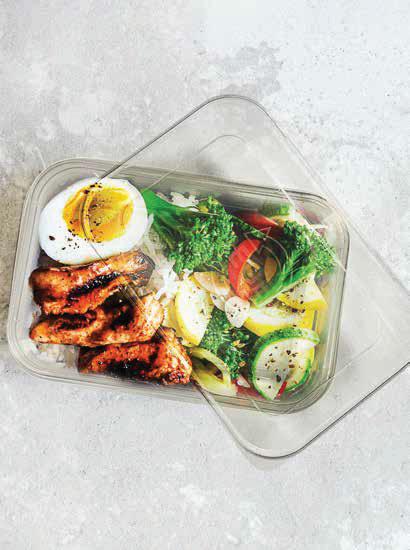
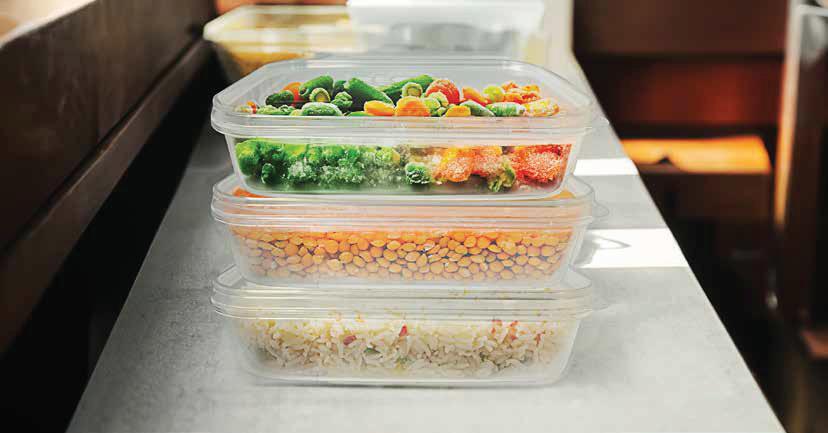
The AIP are migrating to a NEW LinkedIn Page!

Welcome to the brand new LinkedIn page for the Australasian Institute of Packaging - AIP Share the news far & wide!




Don’t miss a beatfollow the AIP here for all the latest in packaging. The PIDA Awards are migrating to a NEW LinkedIn Page!

Welcome to the brand new LinkedIn page for the Australasian Packaging Innovation & Design (PIDA) Awards

Share the news far & wide!
Don’t miss a beatfollow the PIDA Awards here.

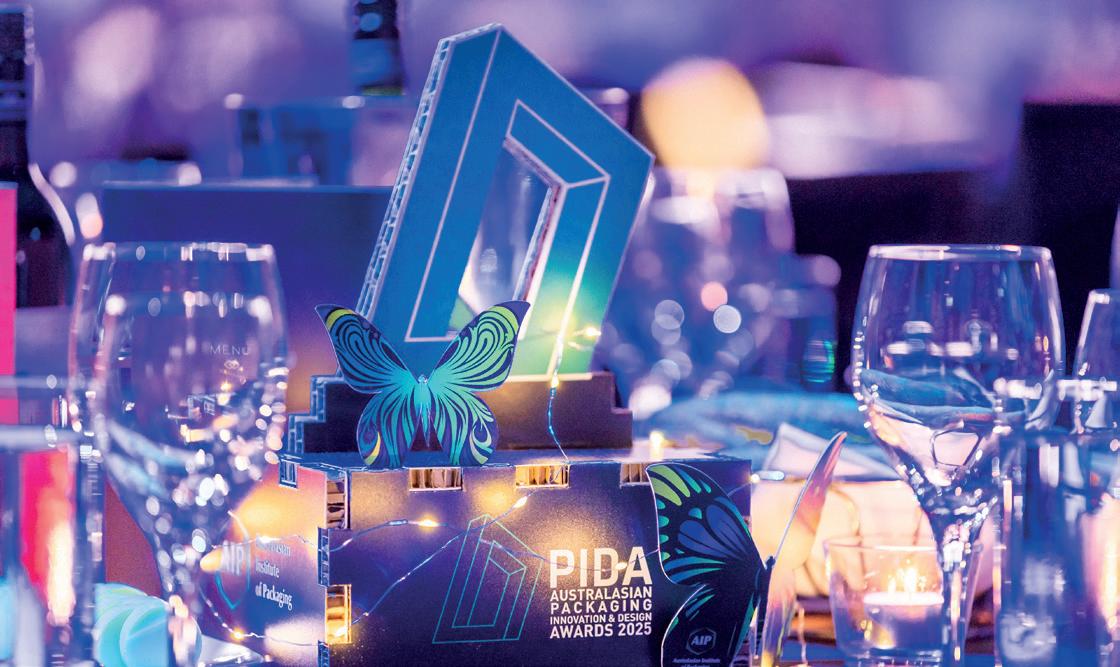


Join as a Partner today. The Australasian Institute of Packaging (AIP) provides opportunities for your company to partner with the Institute through our on-line newsletter, website and social media sites. These communication tools will provide direct access and communication on a regular basis to our Members and wider industry colleagues on the AIP database.
Ask the AIP how your business can become a partner today.